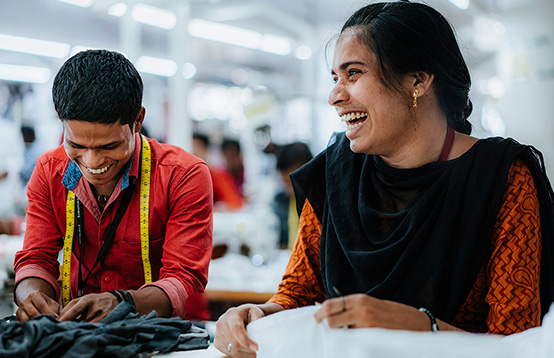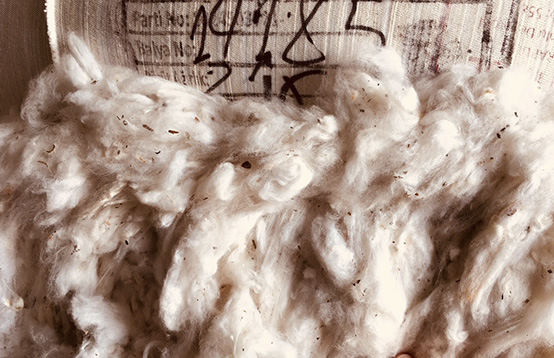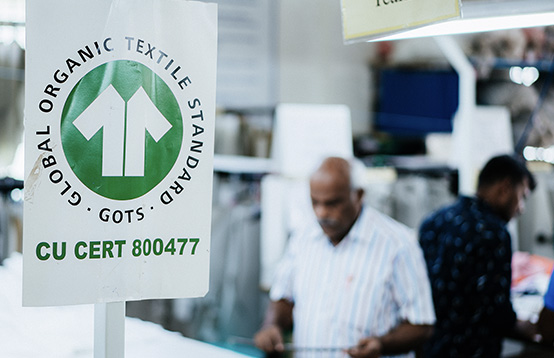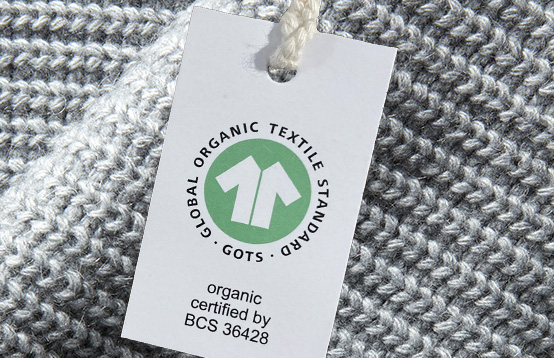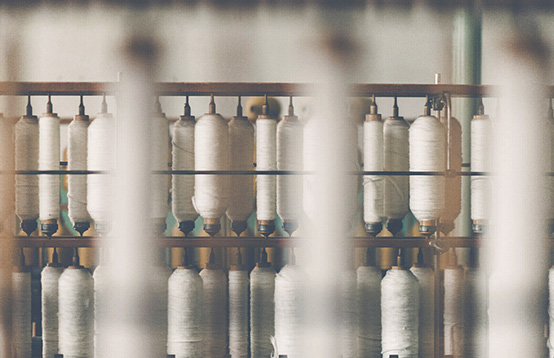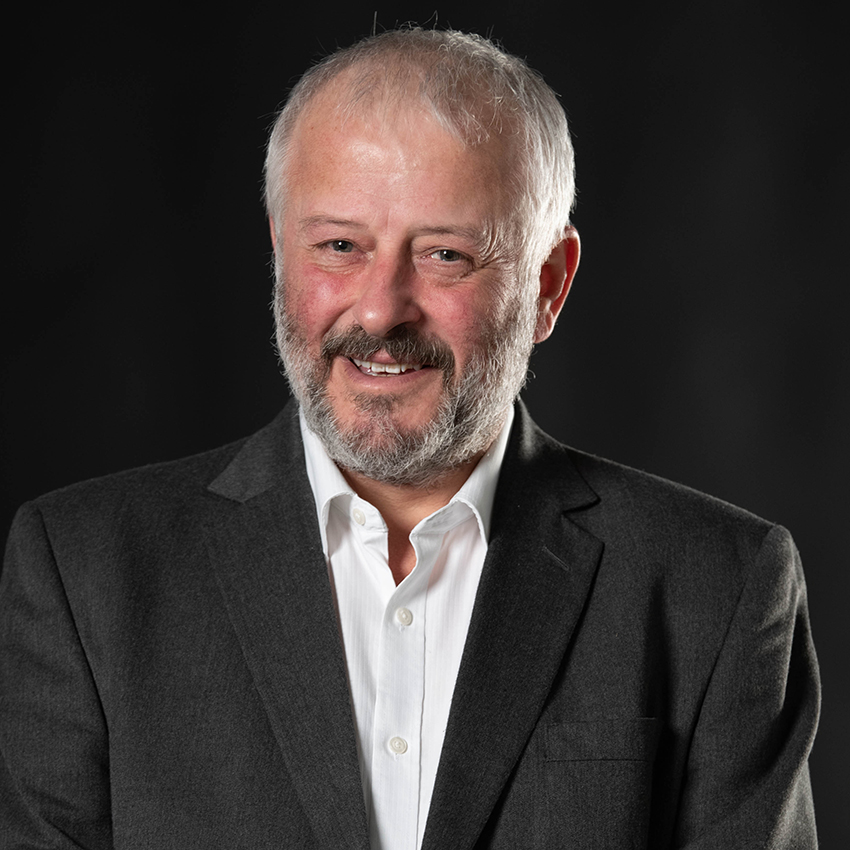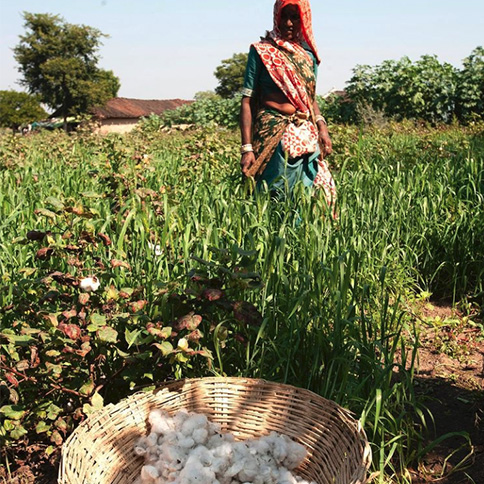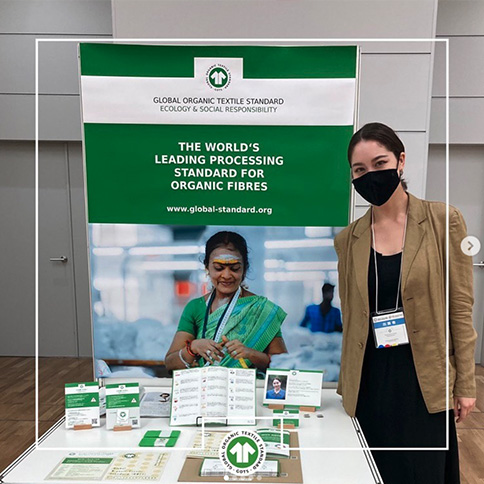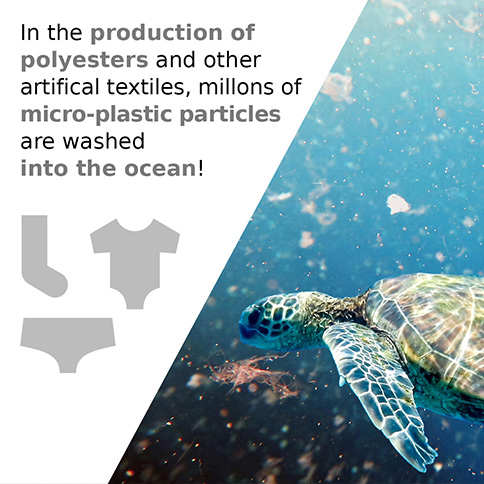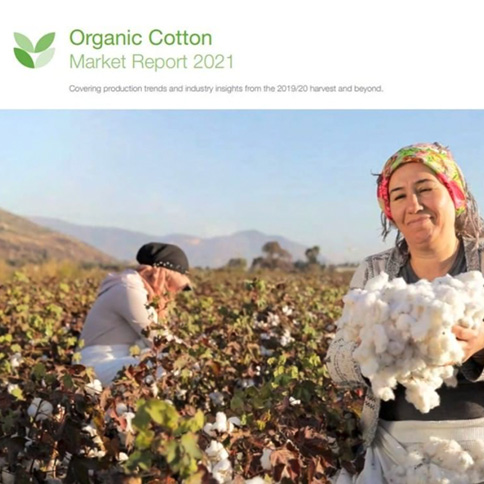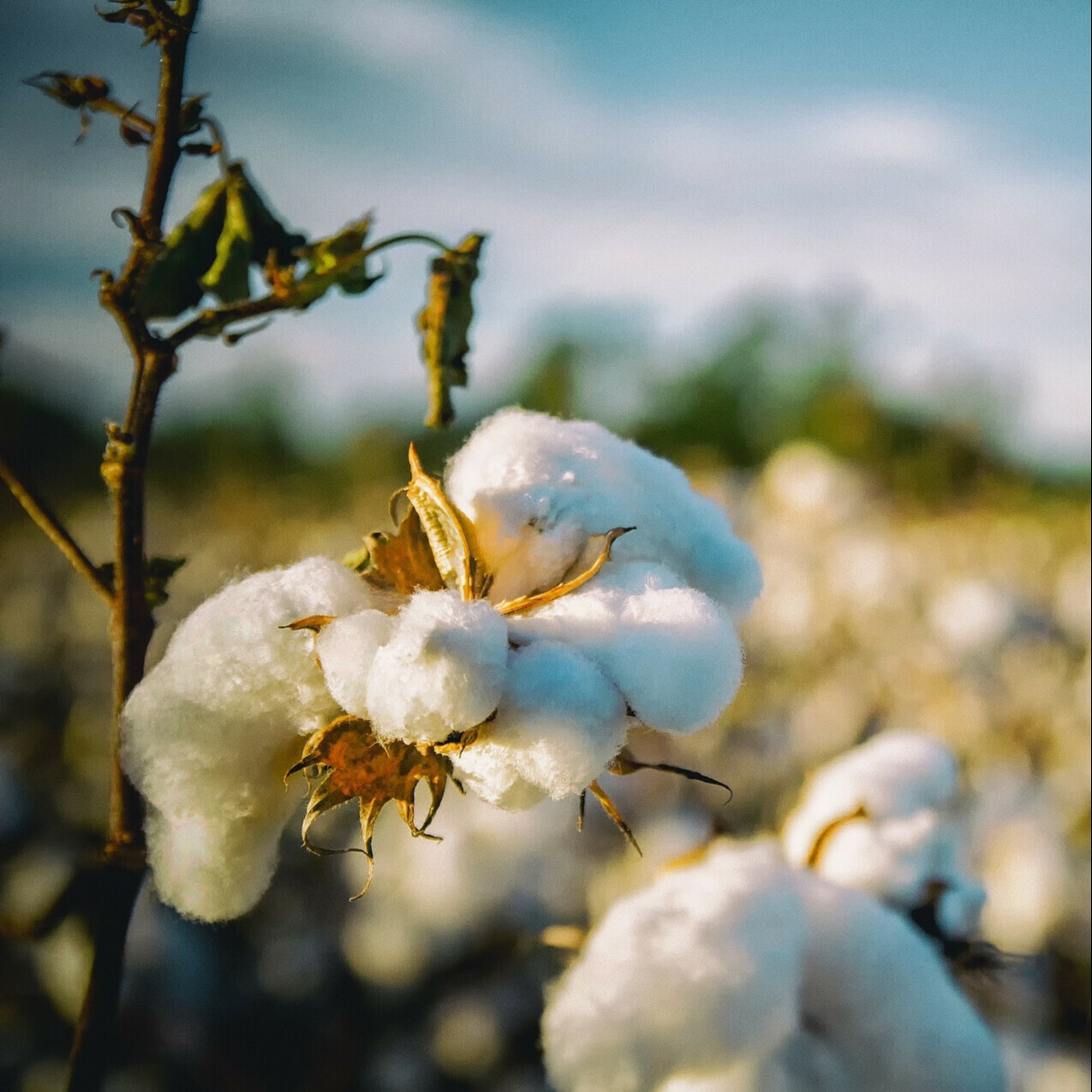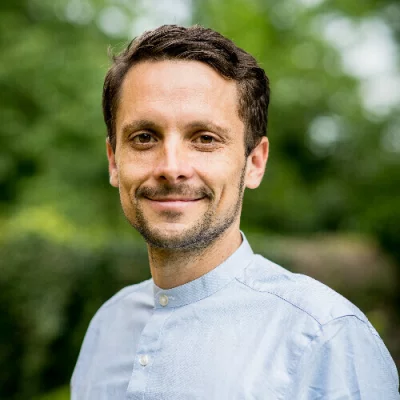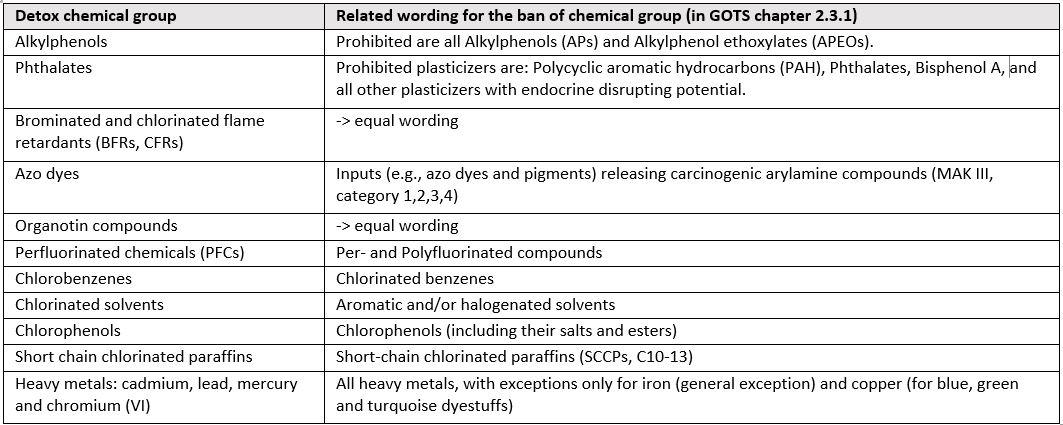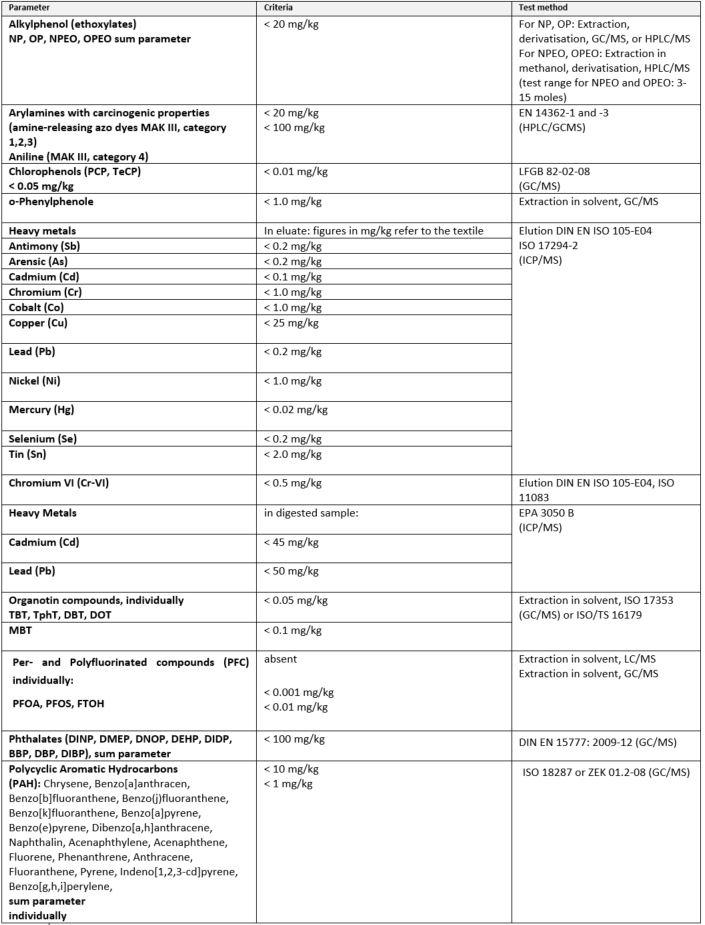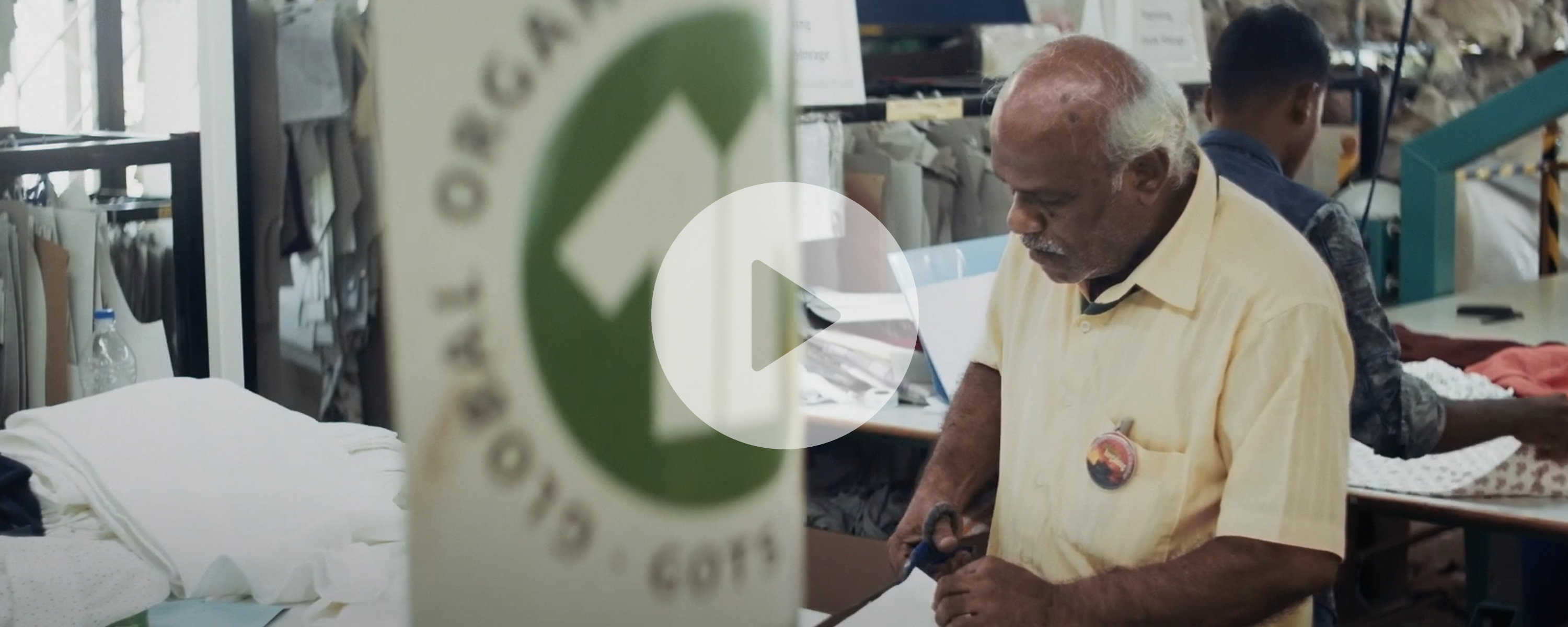A Conversation with 2 GOTS Approved Consultants
What is your role as a GOTS Certified Consultant?
Katharina Schaus: I see my most important role as a "mediator" between the standard setter (GOTS), the standard users (traders, producer, manufacturers) and the certification bodies as well as accreditation bodies. I very much hope to be able to encourage and guide the requirements, processes, further developments for all involved "parties" in the GOTS-system as best as possible. Since I understand GOTS from all angles, I see myself in a position to support GOTS in its further development/improvement, to advise companies in their preparation for certification, but equally to accompany certification bodies in their accreditation and business development.
Ely Battalen: I work with brands and manufacturers in a two-phase process. First, I analyse if the client is prepared to pass the audit, and then secondly, I work with the client to implement procedures, processes, etc., needed to bring them into compliance.
What might a company or brand need to do or think about before they can achieve (apply for?) certification?
KS: Companies need to be clear about their sustainability goals and consider whether GOTS certification is a suitable instrument to implement their own goals. They need to study the standard/requirements in order to be able to determine whether they can comply with them at all. That certification means a lot of documentation is not clear to many. Nor that certification means independent quality assurance and that a fair budget must be available for this service provided by the certification bodies. On the other hand, certificates cannot simply be “bought”, no - they have to be elaborated. Thus, it must also be conscious that time and willingness for documentation and adjustments is necessary.
EB: Being certified to GOTS is not only about organic fibre, but the standard covers social and environmental aspects, as well as the need for a high level of inventory control.
Do you have any advice for a business that is considering getting certified or introducing certified products?
KS: It requires know-how to get certified or to include certified products in the portfolio. This know-how must come from somewhere. The companies can try to build it up effortfully on ¬their own. Or they have the option to call in us approved consultants as supporters, which makes the processes and implementation more profound and much easier. The GOTS system is demanding and thus there is plenty of potential for errors with possibly result in unpleasant consequences. To avoid mistakes and associated consequences, I can highly recommend the involvement of the consultants. In addition, I think it is very important that companies strive for certification out of conviction and not because pressure and demands are imposed from outside. Then, they will make a successful use of certification and their certified products.
EB: Contact a certified consultant!
One source of change in the textile processing industry is the constant improvement of the science and technology involved. What are some of the significant changes you’ve seen? How do those changes impact certification?
EB: One shift I’ve noticed recently is the replacement of workers with technology/robotics. This can mean the employment of fewer workers but also increased safety.
KS: I find the possibility of DNA tagging on cotton fibres a very groundbreaking development, especially in light of issues such as GMO contamination and organic fraud. This technology offers a solution to these problems and at the same time an innovative traceability tool. Herewith a method is available for the certification, which allows to secure and trace back some requirements even better, which is not used obligatorily until now. If all organic cotton were marked with the DNA tracers, the assurance of origin would be greatly improved and there would be reliable data on available quantities of certified fiber and materials, which currently do not exist.
But another, not technical related issue will have a significant impact on certification. There will be a flood of new laws/regulations especially for the textile industry, which have to be implemented already in the next years - supply chain law / due diligence law, EU strategy for sustainable and recyclable textiles in Europe, new waste regulations, etc. Certification must also be able to provide evidence of compliance with these laws/regulations. If this succeeds, then certification will continue to gain enormously in importance and can therefore expect a large increase of demand in the coming years.
What are some misconceptions about certification and what should people know?
KS: The standards / requirements apply equally to all companies, whether in Asia or in Europe. No exception or individual adjustment can or will be made for anyone individually. Furthermore, the job of the certification bodies is to verify compliance with all requirements, but not to develop the standards or make adjustments for individuals. In other words, this means, certification bodies are not in the position to offer consulting services as well as sourcing services. But many companies expect these kind of services from certifiers and are annoyed when they do not receive advice. This is exactly why it made sense for GOTS to integrate independent, approved consultants into its system. In my opinion, this significantly improves implementation and further development. It also makes companies feel satisfied and comforted if they also have a resource for guidance.
Certification is more credible than self-statements. In addition, GOTS as an independent certification system is by far less expensive than setting up an own sustainability program and/or sustainable seal. GOTS is an excellently established independent standard with a number of benefits. Quite reasonably, GOTS is called the most recommendable standard in the field of natural fibers. GOTS has now grown to over 12,000 certified companies, because this standard managed to harmonize with numerous other schemes in the early 2000s. The strength of GOTS is that the requirements are set across the entire value chain, covering social and environmental aspects with high standards. Of course, a high standard is not always easy to be achieved, but I am pleased when many companies approach me so that I can support them in the implementation and clarification of all concerns.
EB: A frequent misconception is a client believing that by having a Transaction Certificate from their supplier, they are abiding by the standard and can then make label claims.
More information about Katharina and Ely can be found at their websites:
Katharina Schaus website - http://www.itfits.de
Ely Battalen website - www.ewbconsultingllc.com
Case Study: Armstrong Knitting Mills
GOTS Case Study:
Armstrong Knitting Mills
Weaving Sustainability into Business with Armstrong Group
Armstrong Knitting Mills, a textile factory in India that’s been in operation since 1969, is a pioneer in sustainable textiles and business in the industry and is known for its commitment to sustainability, social responsibility, and innovation.

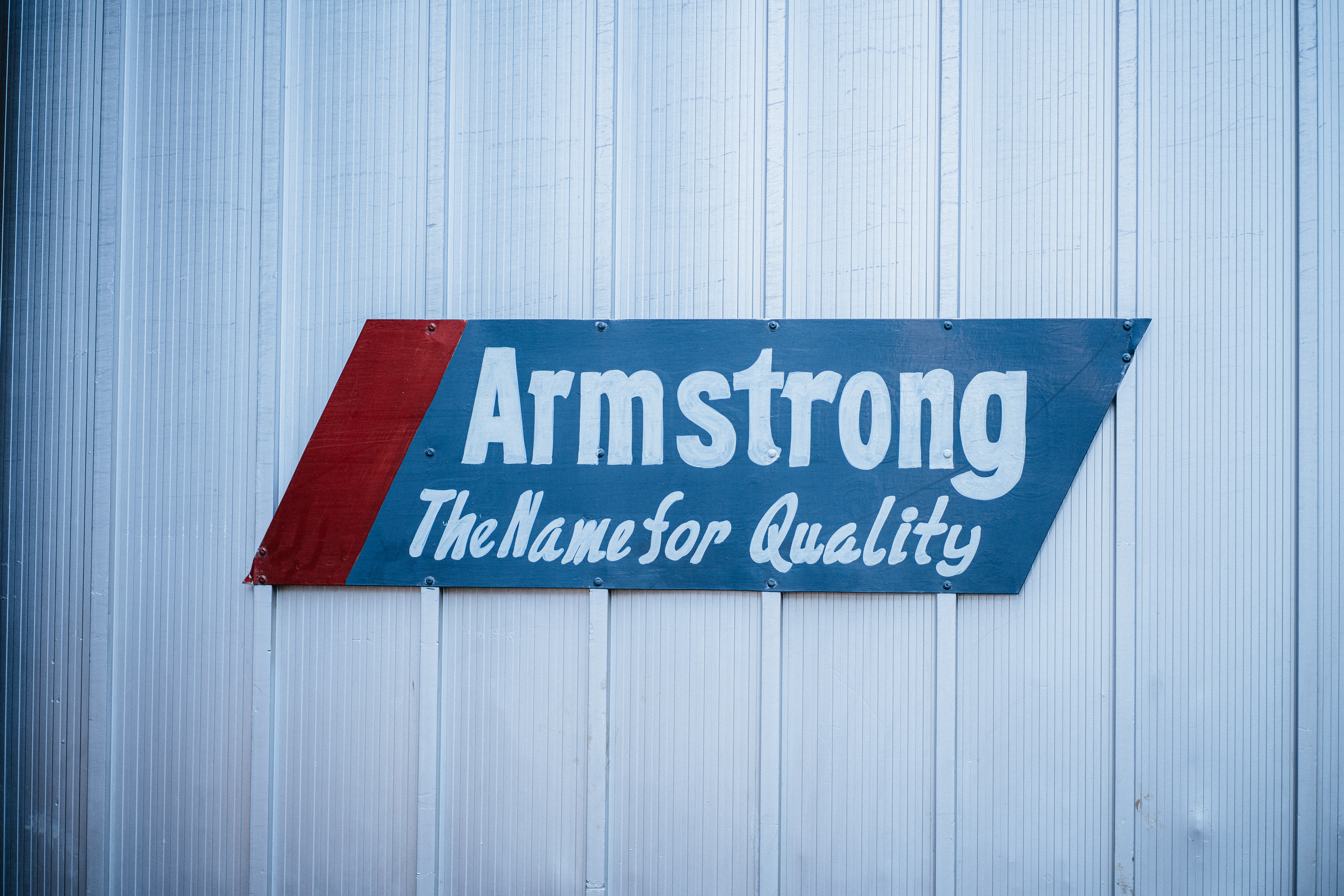
From Farm to Fashion
From Farm to Fashion
Armstrong Group boasts a vertical setup that encompasses the entire textile production process, from sourcing quality cotton to creating impeccable garments. Sustainability is the cornerstone of their operations, and it is evident in multiple aspects of their business, including:
Armstrong has invested substantially in renewable energy sources, harnessing wind and solar power. They generate over 18.5 megawatts from windmills and 9.234 megawatts from solar energy annually, which is enough to ensure that their operations are powered entirely by green energy. This not only makes Armstrong a net-zero carbon emission factory but also reduces 25 million kilograms of CO2 emissions annually.
Recognising the threat of plastic waste, Armstrong has embraced sustainability by using post-consumer recycled PET polyester throughout operations. In the past ten years, this effort has saved 60 million plastic bottles from ending up in landfills.
Green Planet
Armstrong's commitment to making the planet greener is evident in its extensive tree-planting initiatives, which have seen over 5,200 trees planted in its region over the last five years. It also collects and stores millions of litres of rainwater for various purposes.
Fair Trade Premium:
Armstrong supports local farmers with fair-trade premiums, totalling around $1.6 million over a decade. These premiums contribute to improving the living standards of farmers through a number of programs.
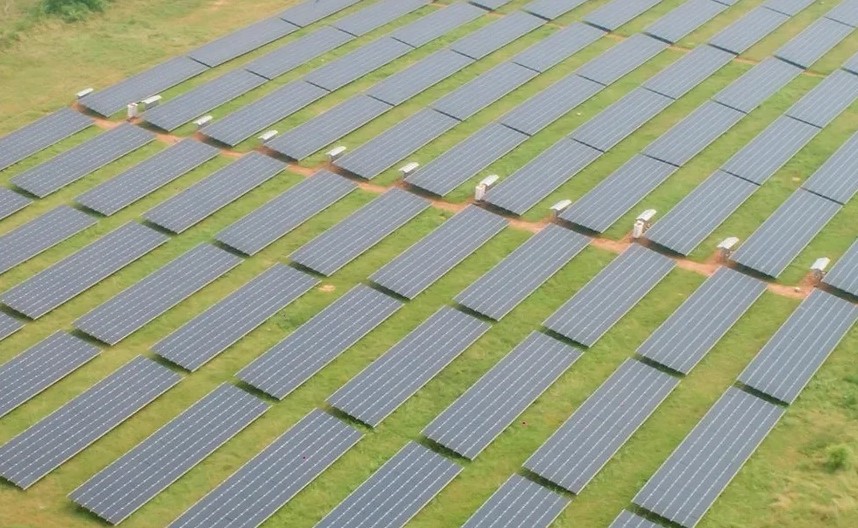
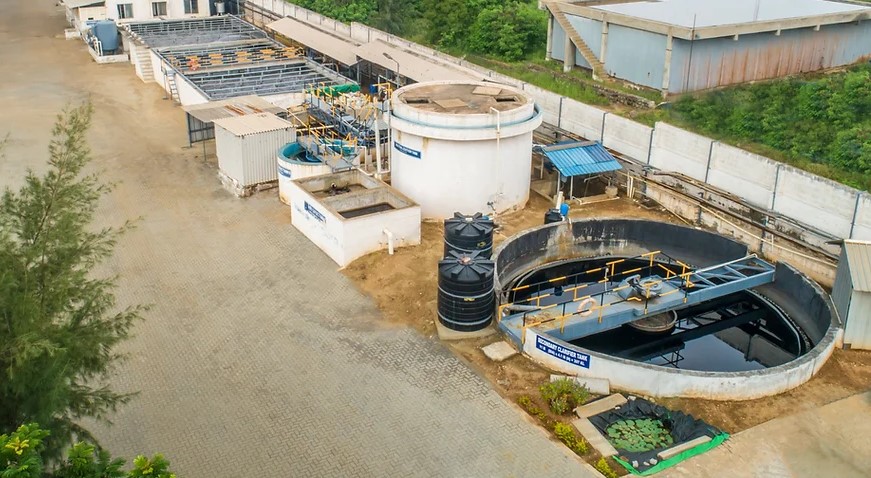
Employee Benefits
Employees are at the heart of Armstrong's success, and the company tries to provide as many opportunities for the well-being of its workers as possible. That includes a safe and hygienic work environment, competitive pay, free transport, healthcare, and an on-site childcare facility.
Armstrong extends its impact beyond its operations by offering free training programs to those interested in the garment industry. These training opportunities, guided by experts, aim to develop a skilled and knowledgeable workforce, benefiting not only Armstrong but also other manufacturers in the region.
GOTS certification underscores Armstrong's adherence to eco-friendly manufacturing practices. It assures consumers that the textiles are produced using natural resources thoughtfully and responsibly, aligning with Armstrong's goal of safeguarding the environment.
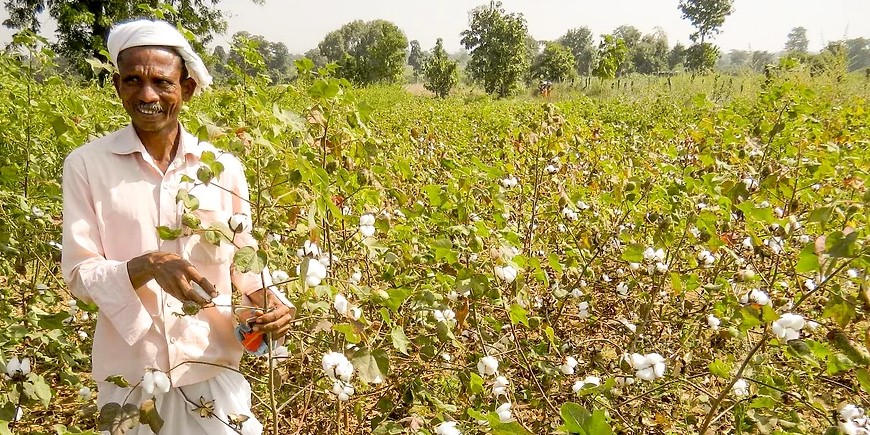
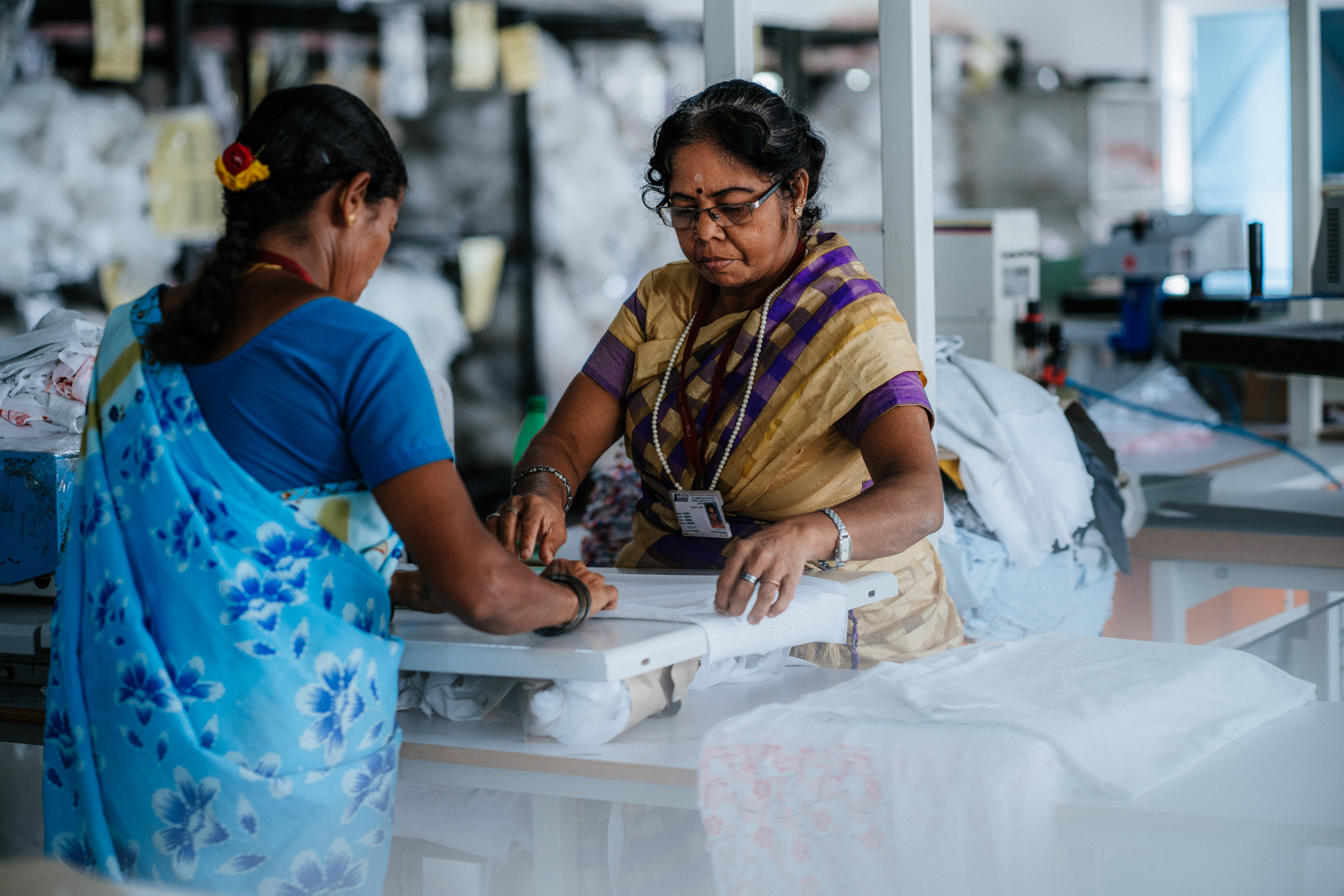
Case Study: DM Drogerie Markt
GOTS Case Study:
DM Drogerie Markt
Founded in 1973 by Prof. Götz W. Werner in Karlsruhe, dm-drogerie markt has evolved into Germany's most profitable drugstore chain, boasting a workforce of over 46,000 employees. With a network of 2,000+ stores across Germany, the company welcomes up to two million customers daily, offering a wide array of products. Its online shop offers over 18,000 items.

Core Commitment to Sustainability
Sustainability lies at the heart of dm’s ethos, ensuring not only economic but ecological, societal, and cultural sustainability. Christoph Werner, Chairman of the dm Management Board, encapsulates the company’s vision: "Our vision at dm is to help make our world, our society, and our lives a little better through our actions." Kerstin Erbe, dm Managing Director for Product Management, adds, "Acting sustainably means, for us, acting in harmony with nature, for the benefit of each other, as well as for innovation and progress."
GOTS Certification
dm’s early adoption of GOTS-certified products made from organic cotton in their children's clothing section, resulting in 96% of ALANA children's textiles being GOTS certified today, exemplifies its commitment to sustainable practices. GOTS certification seamlessly aligns with the company's comprehensive sustainability perspective, emphasising social and ecological dimensions, reinforced by its rigorous inspection processes, solidifying its status as a reputable and sustainable standard.
Tangible Sustainability: Recycled Hangers
GOTS requirements motivated dm to adopt recycled hangers for ALANA textiles. These hangers, crafted from grass fibre plastic, operate within a circular economy model, experiencing multiple use cycles. At the end of their life, damaged hangers are entirely recycled into new ones, reinforcing the sustainability loop.
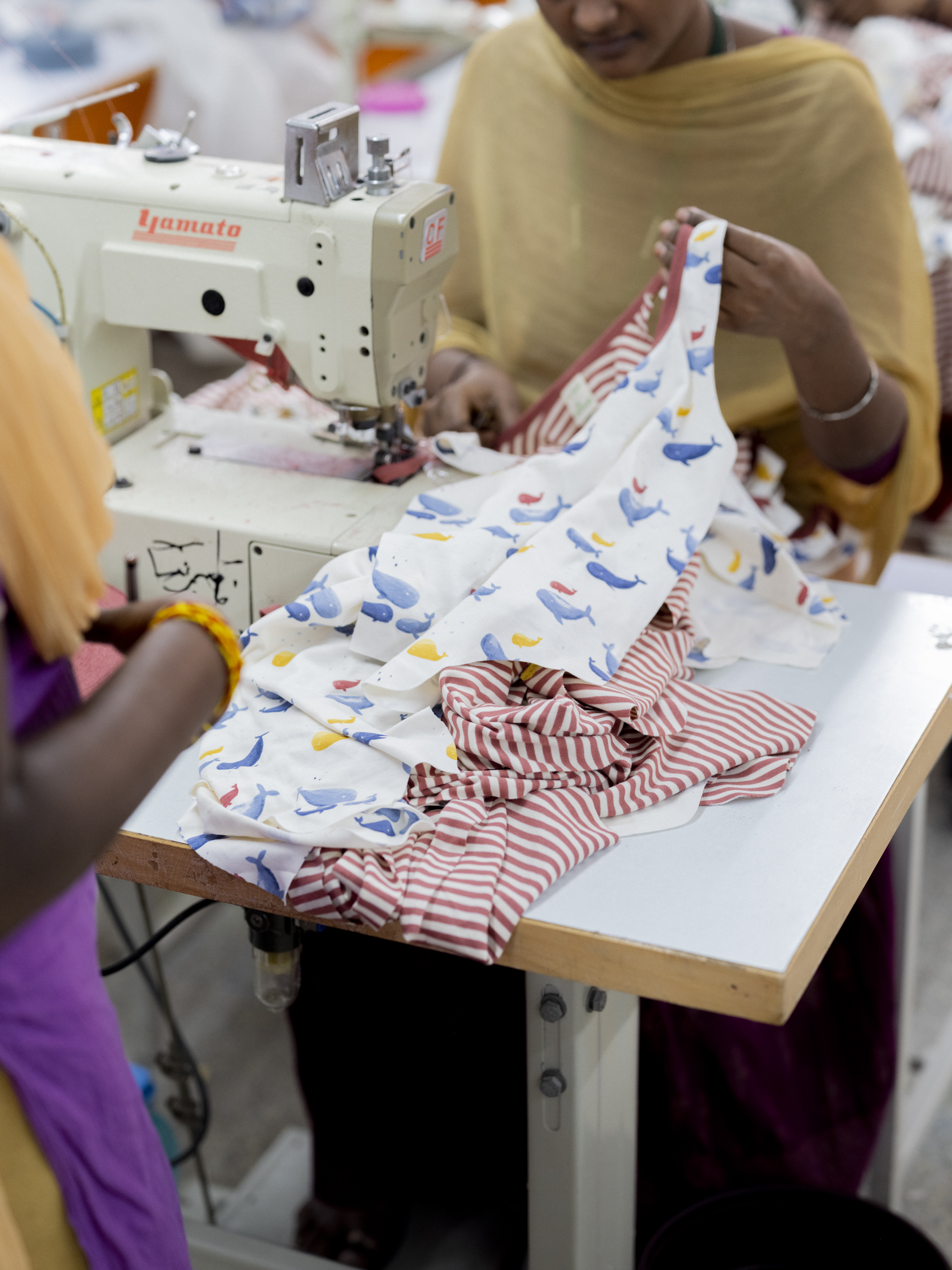
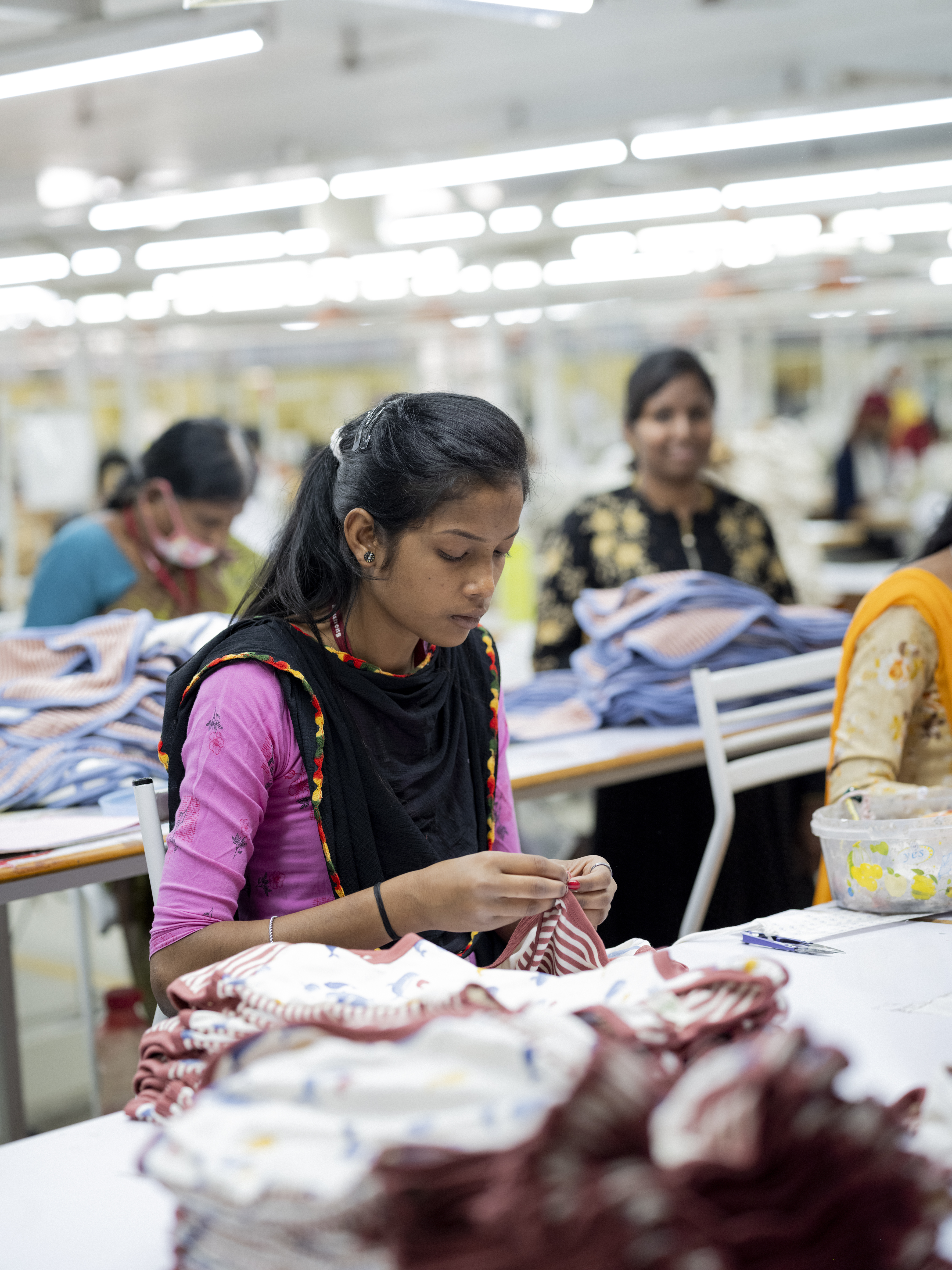
Expanding for the Future
dm’s commitment to GOTS certification extends beyond ALANA children's textiles, encompassing various product categories such as Fascino hosiery, ebelin towels, Jessa tampons, and Profissimo dishcloths, further demonstrating its dedication to sustainable and responsible practices.
dm’s unwavering sustainability commitment, epitomised by GOTS certification, shapes a narrative of eco-consciousness and social responsibility. Its expansion into diverse sustainable product offerings and the practice of a circular economy underpins the company’s role as a pioneering force in fostering a more sustainable future.
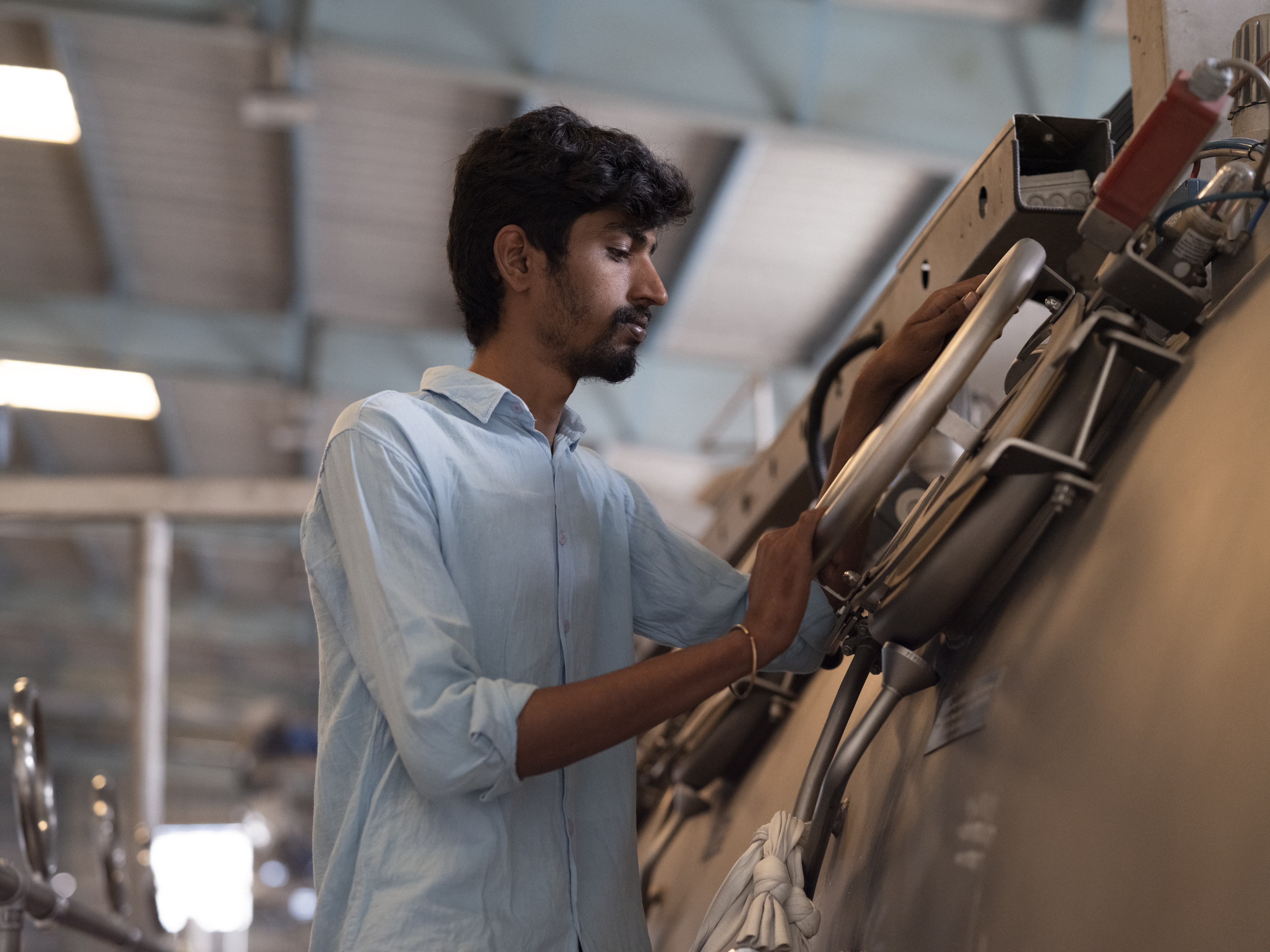
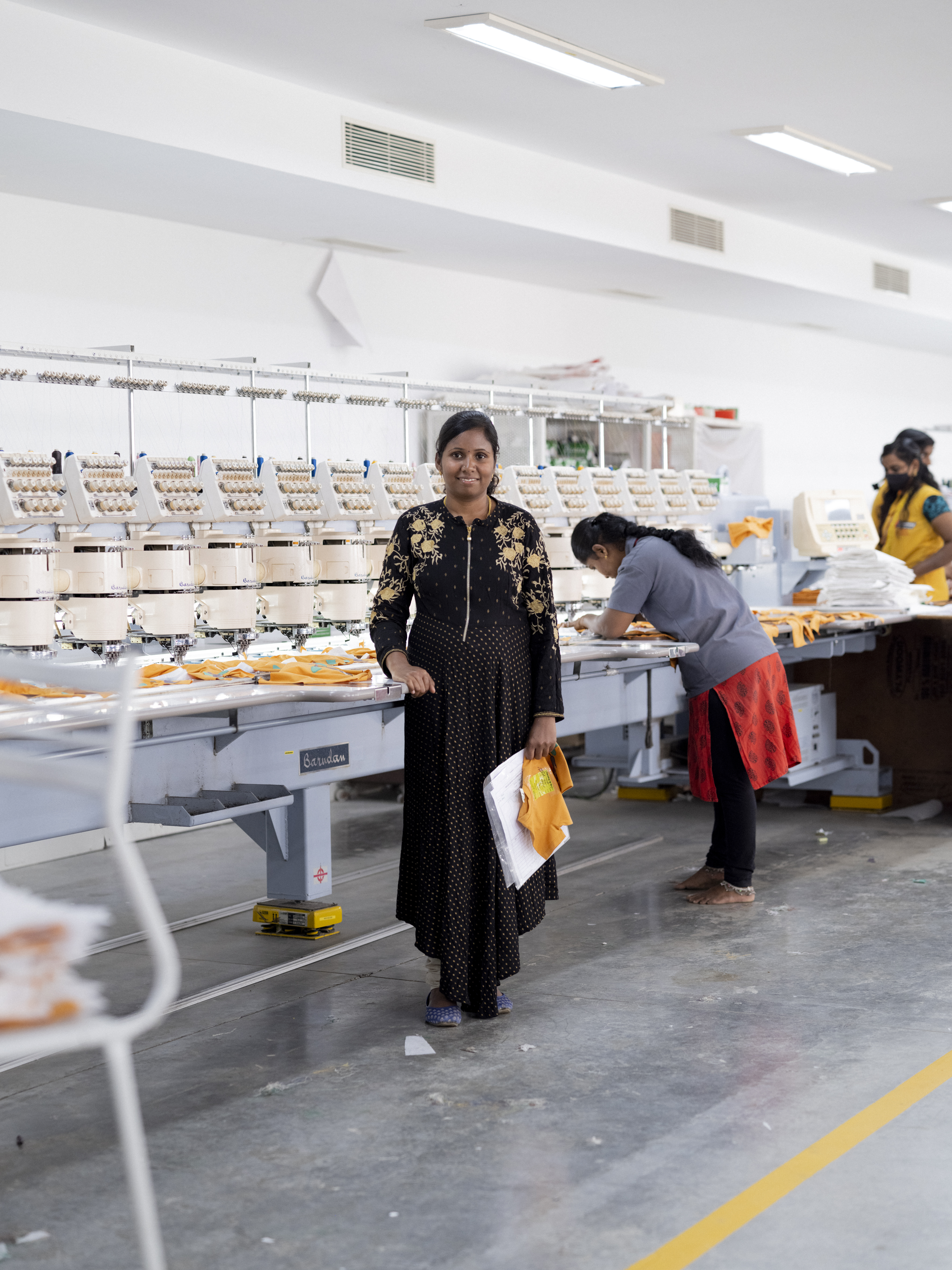
Case Study: FC St Pauli
GOTS Case Study:
FC St. Pauli
FAIR PLAY ON AND OFF THE FOOTBALL FIELD!
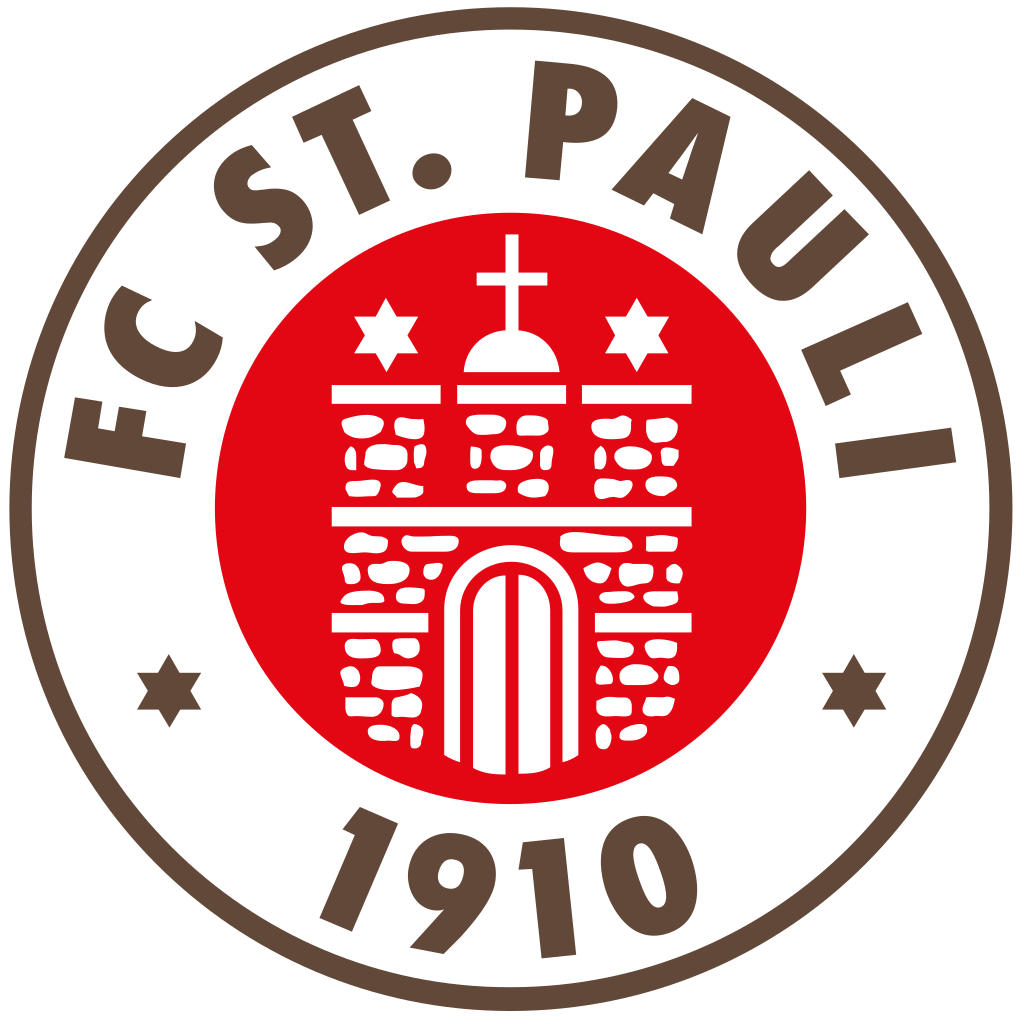
Introduction
In the heart of the vibrant St. Pauli district in Hamburg, there is a football club that defies outdated conventions - the Football Club St. Pauli 1910 e.V., affectionately known as FC St. Pauli. But this is no ordinary football club; it is a source of social culture and a champion of sustainability, proudly holding its GOTS certification.
A History of Perseverance
Since its founding in 1910, FC St. Pauli has experienced it all - promotions and relegations on the football field. But its impact goes far beyond sports. In the 80s, it underwent a transformation and became a cultural phenomenon, shaped by left-wing politics, social activism, and its iconic skull emblem.
Confronted with the global challenges that concern us all, such as climate change, FC St. Pauli leads by example and lives sustainability! It's not just about being environmentally friendly, but also about reducing energy consumption, minimising resource use, and upholding human rights for the benefit of all.
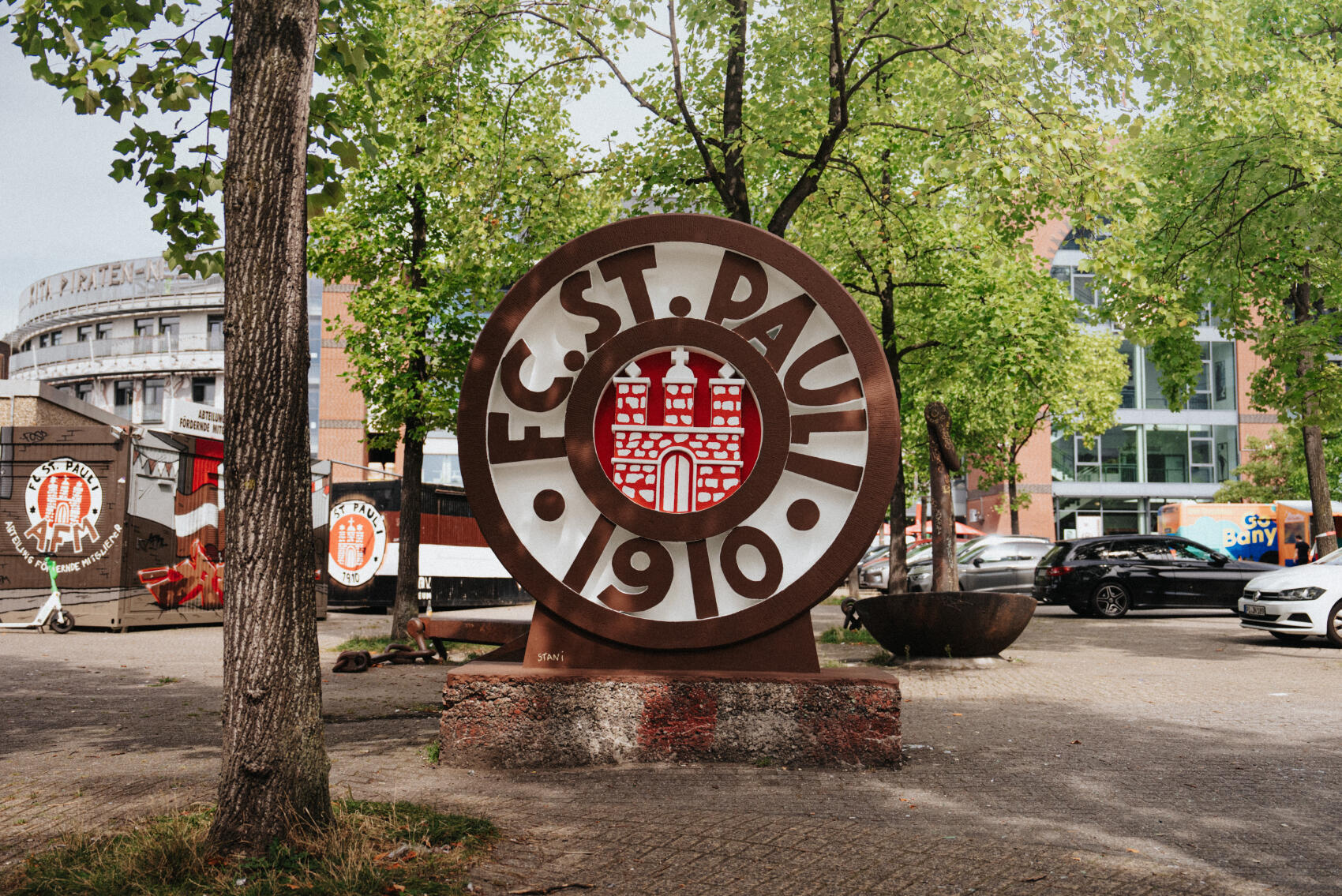

For FC St. Pauli, sustainability is more than just a word - it's a way of life. This creed is built upon five central principles deeply embedded in the club:
Fairness: Throughout the production and supply chain, FC St. Pauli guarantees fairness. This means appropriate wages, dignified working conditions, and a strict “Never!“ to child labour.
Ecology: Environmental responsibility is paramount. The club emblem is proudly printed on organic cotton, recycled materials, and organic fabrics in functional clothing.
Economic sustainability: Striking a balance between sustainability and financial stability is crucial. The revenue from merchandise directly supports sports and social activities without driving up prices.
Local ties: FC St. Pauli passionately supports local initiatives, whether through fan projects or aid to the Hamburg club scene in difficult times. The club is deeply rooted in its neighbourhood and demonstrates teamwork off the football field as well.
Diversity: Diversity is a must-have! FC St. Pauli's products are increasingly gender-neutral and offer a variety of fits and styles to ensure everyone feels welcome. FC St. Pauli is not just a football club; it is a movement for a better and more sustainable world.
The Sustainable Football Experience – Not an Offside Situation Anymore:
The Sustainable Football Experience – Not an Offside Situation Anymore:
What set the ball rolling? A 17-year-old member's proposal to implement sustainability in merchandise production during the general assembly led to prompt action. FC St. Pauli responded by introducing a line of GOTS-certified merchandise products and is still applying these principles to more and more products, including its jerseys. Now, a significant portion of cotton textiles is GOTS-certified – and FC St. Pauli is the only football club in the world to be a member of the Fair Wear Foundation.
Starting from the 2021/22 season, FC St. Pauli, in collaboration with DIIY, designed the jerseys and team sport collection of the professional team. This has led to special designs that pay tribute to the club's values. For example, the third jersey of the 2022/23 season is inspired by local graffiti artist OZ, honours his art, and contributes to the upkeep of his grave through donations from parts of the sales proceeds, in line with FC St. Pauli's focus on counterculture and community.
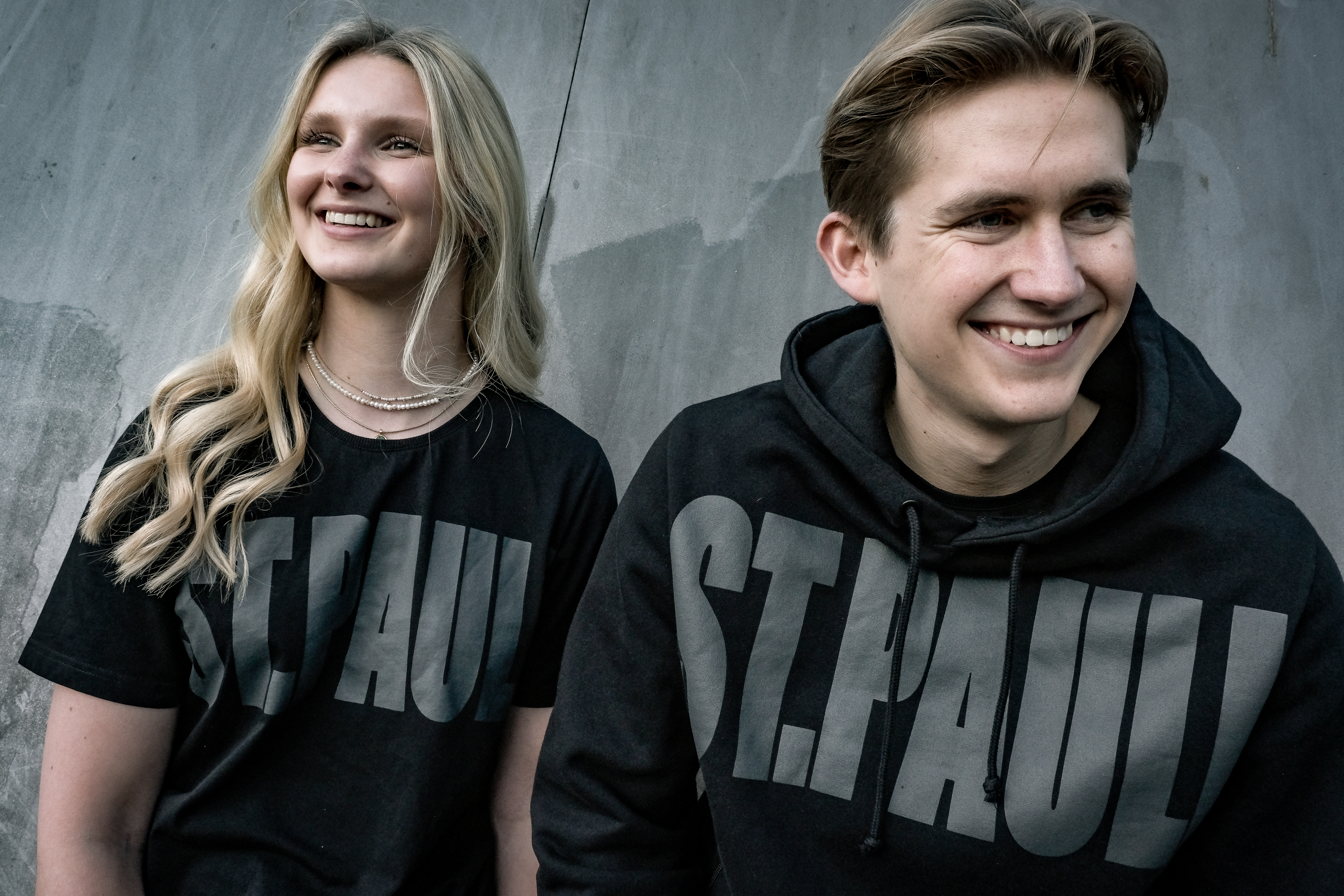
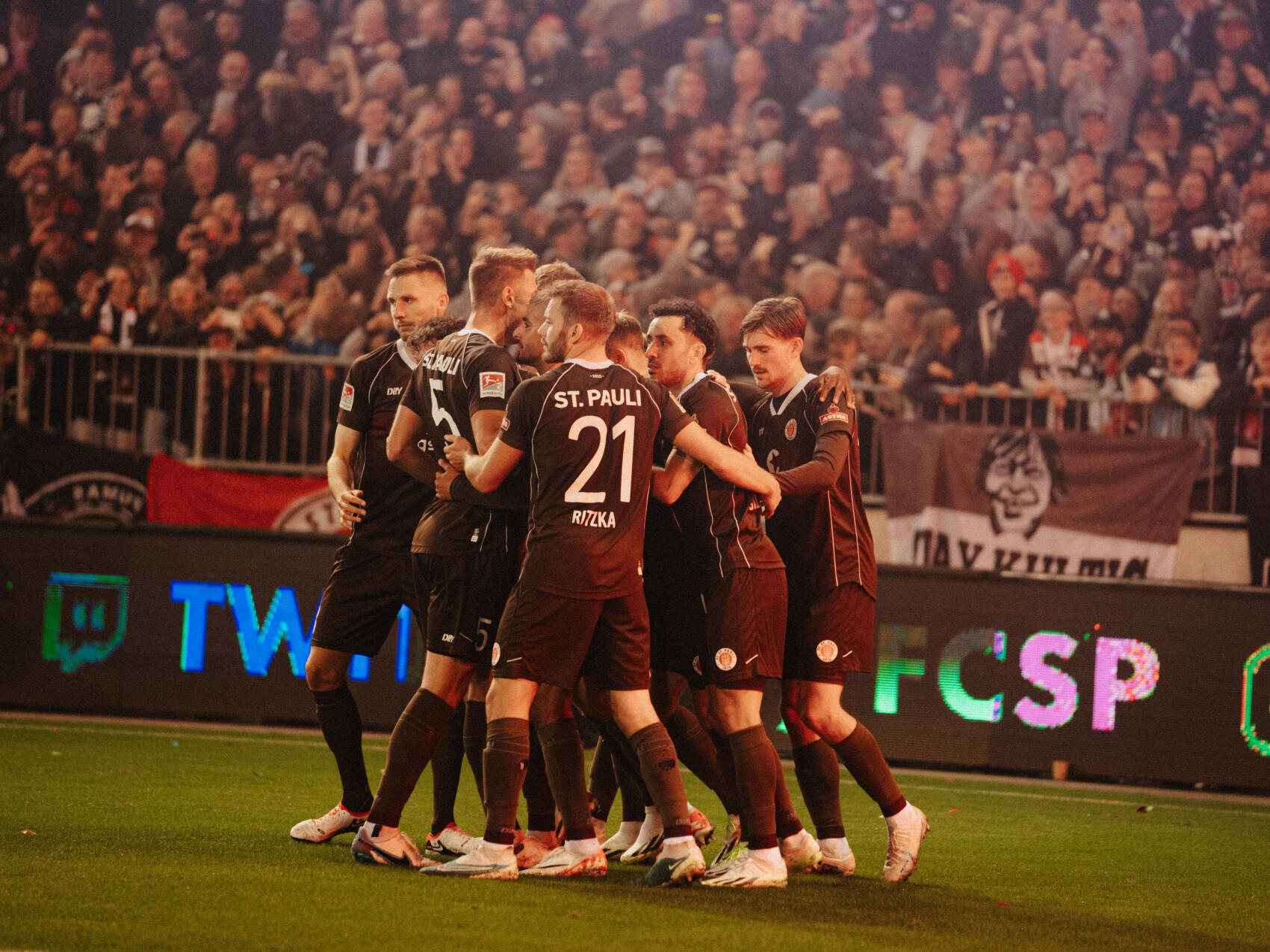
FC St. Pauli's dedication to sustainability and GOTS certification extends far beyond the football field. The club recognises the immense social significance of football and uses it as a platform to promote sustainability and inspire others to follow their example. This journey is a shining example for the football community, showing that fair treatment on and off the field deserves green thumbs up! FC St. Pauli is not just a football club; it is a movement for a better, more inclusive, and sustainable world.
Case Study: Frugi
GOTS Case Study:
Frugi
Founded by new parents in 2004, Frugi, previously known as Cut4Cloth, has grown to be the UK's premier ethical and organic children's clothing brand. With a presence in over 550 retailers across 30 countries, the company is dedicated to showcasing that superior design, strong ethics, and passionate individuals can be transformative. Its journey involves the use of organic cotton from trusted farmers, recycled plastic bottles for outerwear, and a relentless pursuit of innovation, all aimed at leaving a positive mark on the world.
Case Study: Givachoice
GOTS Case Study:
GIVEACHOICE
Givachoice, a manufacturer of the world’s most renowned brands, remains unwavering in its commitment to shaping a more eco-conscious future.
By prioritising the reduction of environmental impact and championing ethical values and sound management practices in the fashion industry, the company's sustainability policy strives to safeguard both the environment and the well-being of future generations.
For Givachoice, sustainability is life!
Case Study: Hayleys Fabric
GOTS Case Study:
Hayleys Fabric
Pioneering Sustainable Textiles in Sri Lanka
Since its inception in 1992, Hayleys Fabric has emerged as a trailblazer in the textile industry, renowned for its unwavering commitment to sustainability. With GOTS certification earned in 2014, this Sri Lankan manufacturing powerhouse has become a beacon of responsible textile practices, setting a new standard for environmental stewardship, fair labour practices, and innovation.
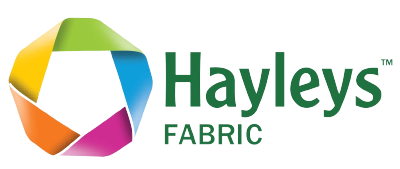
Company Snapshot
Hayleys Fabric: Neboda, Sri Lanka
In operation: since 1992
GOTS-certified: since 2014
Employees: 3088
Output: 3 million-plus metres of fabric per month
Annual turnover: 72 Million USD
Leading the Sustainable Charge
Hayleys Fabric's path to sustainability lies at the company’s core. Sustainability and eco-friendly production, along with a commitment to innovation, form the fundamental principles that underpin every aspect of operations. From water and energy conservation to the creative transformation of waste into value-added products, Hayleys Fabric leaves no stone unturned in its quest to minimise its environmental footprint.
A testament to this commitment is Sri Lanka's largest single solar roof adorning its facility, generating 20 percent of the company's energy and reducing its carbon footprint by 15 percent. Its comprehensive textile processes span knitting, dyeing, printing, brushing, sueding, and finishing, offering a diverse portfolio of fabrics. Notably, the company has developed its own brand of fabric through its Innovation Centre, showcasing its prowess in sustainable textile solutions.
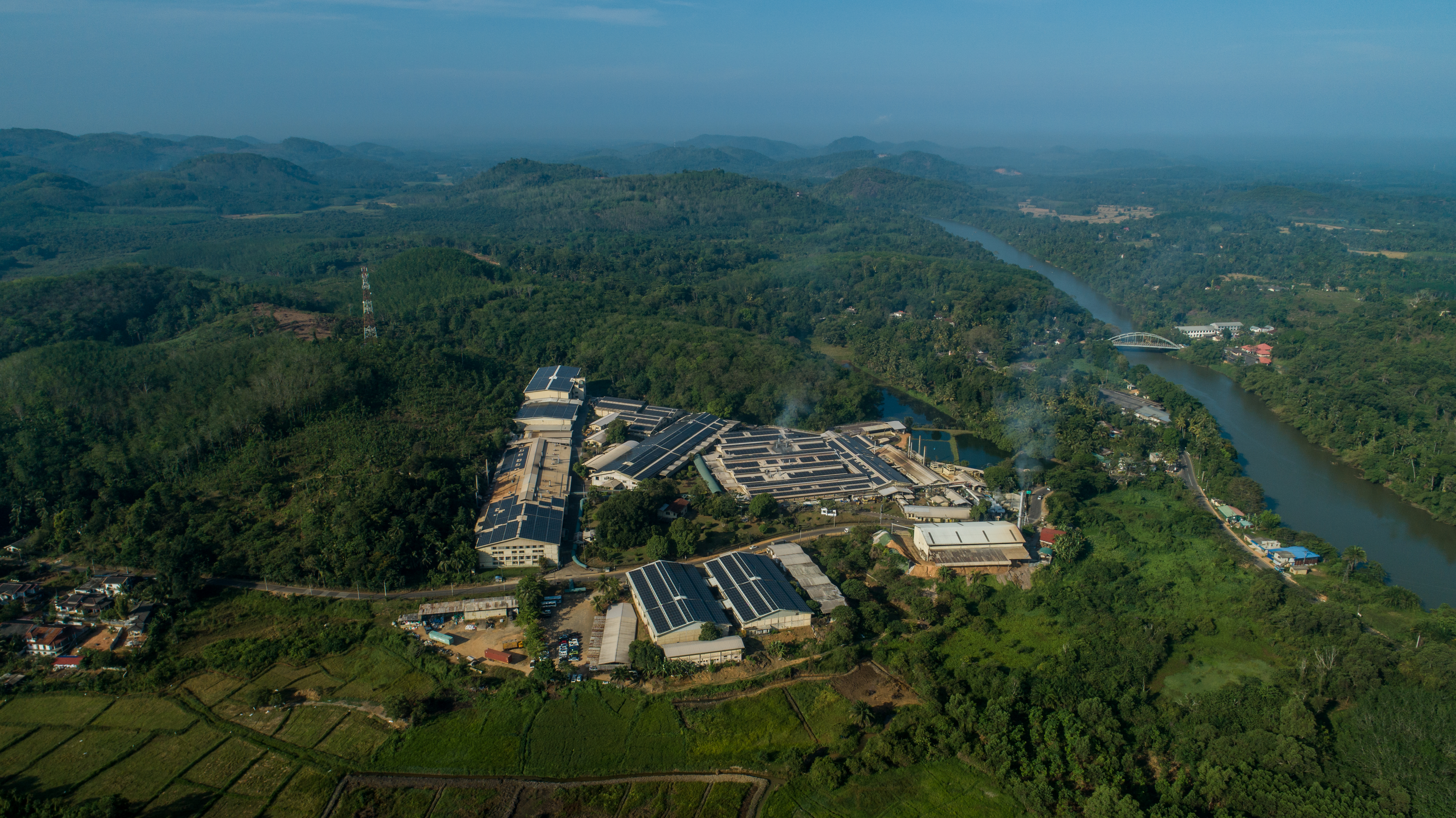
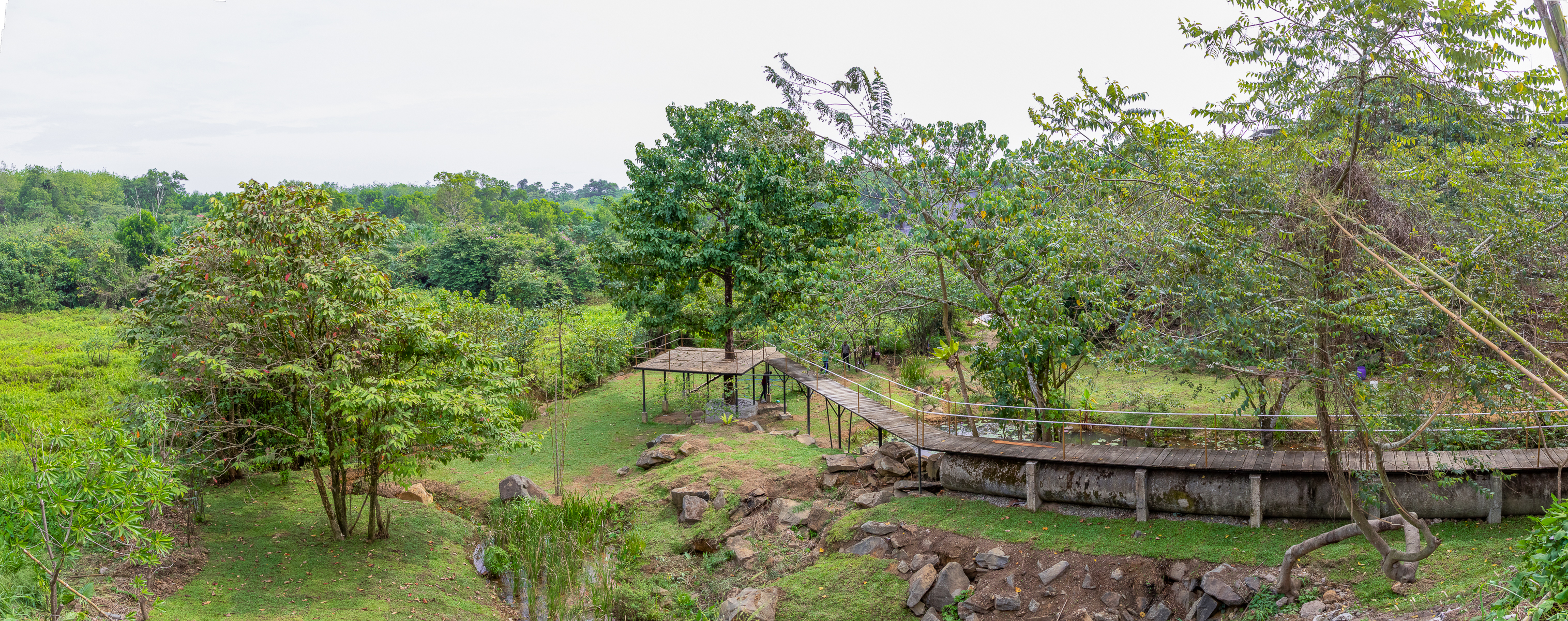
GOTS Certification: A Symbol of Dedication
For Hayleys Fabric, GOTS certification is more than a badge; it's a declaration of values. MD/CEO Rohan Goonetilleke passionately states, ‘GOTS reflects our unwavering commitment to responsible textile practices, ensuring our products meet the highest environmental and social standards’. GOTS certification has also unlocked enhanced market access, ushering in a culture of continuous improvement and innovation while showcasing adherence to regulatory standards. Like all GOTS Certified Entities, Hayleys Fabric has optimised its processes to reduce waste and increase energy efficiency, along with meeting the robust guidelines for social responsibility. GOTS certification helps Hayleys Fabric show its customers that the company takes sustainability seriously, Mr. Goonetilleke says: ‘This certification resonates with our dedication to sustainable sourcing, organic materials, and ethical production. It assures our customers that our fabrics are not only of superior quality but also crafted with utmost care for the planet and its people. GOTS certification serves as a testament to our unwavering dedication to responsible practices, fostering trust and transparency in our industry’.
But it's not just about compliance; Hayleys Fabric goes beyond. A green belt and biodiversity wetland park adjacent to the facility illustrate the company’s dedication to environmental stewardship. This sanctuary is home to nearly 300 species of flora and fauna, serving as an educational and research hub for local schools and universities. Its support for the restoration of endangered Sri Lankan forest plants and an in-house organic farm further exemplifies its commitment to the planet.
Transforming the Industry
Hayleys Fabric's GOTS certification has catalysed a transformation towards environmental stewardship, fair labour practices, and transparency across the value chain. The rigorous third-party certification process assures consumers that the strict GOTS requirements are met, empowering them to make informed choices that contribute to the growth of the global organic textile market.
Yearly audits and continuous improvement efforts drive creative problem-solving throughout the business. Notably, Hayleys Fabric has harnessed its innovation to develop sustainable products, including a mahogany dye from furniture waste and a black dye from its biomass waste.
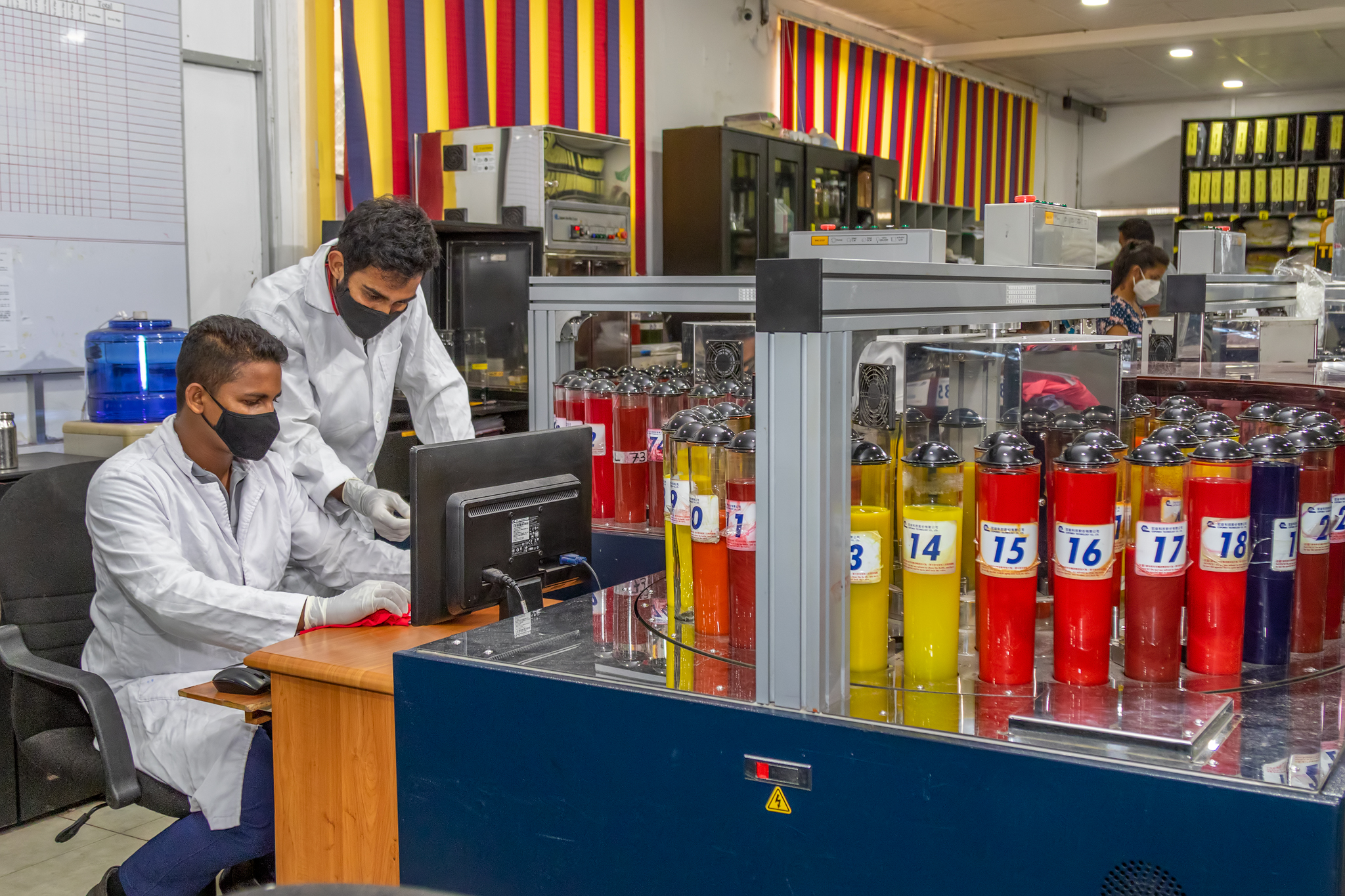
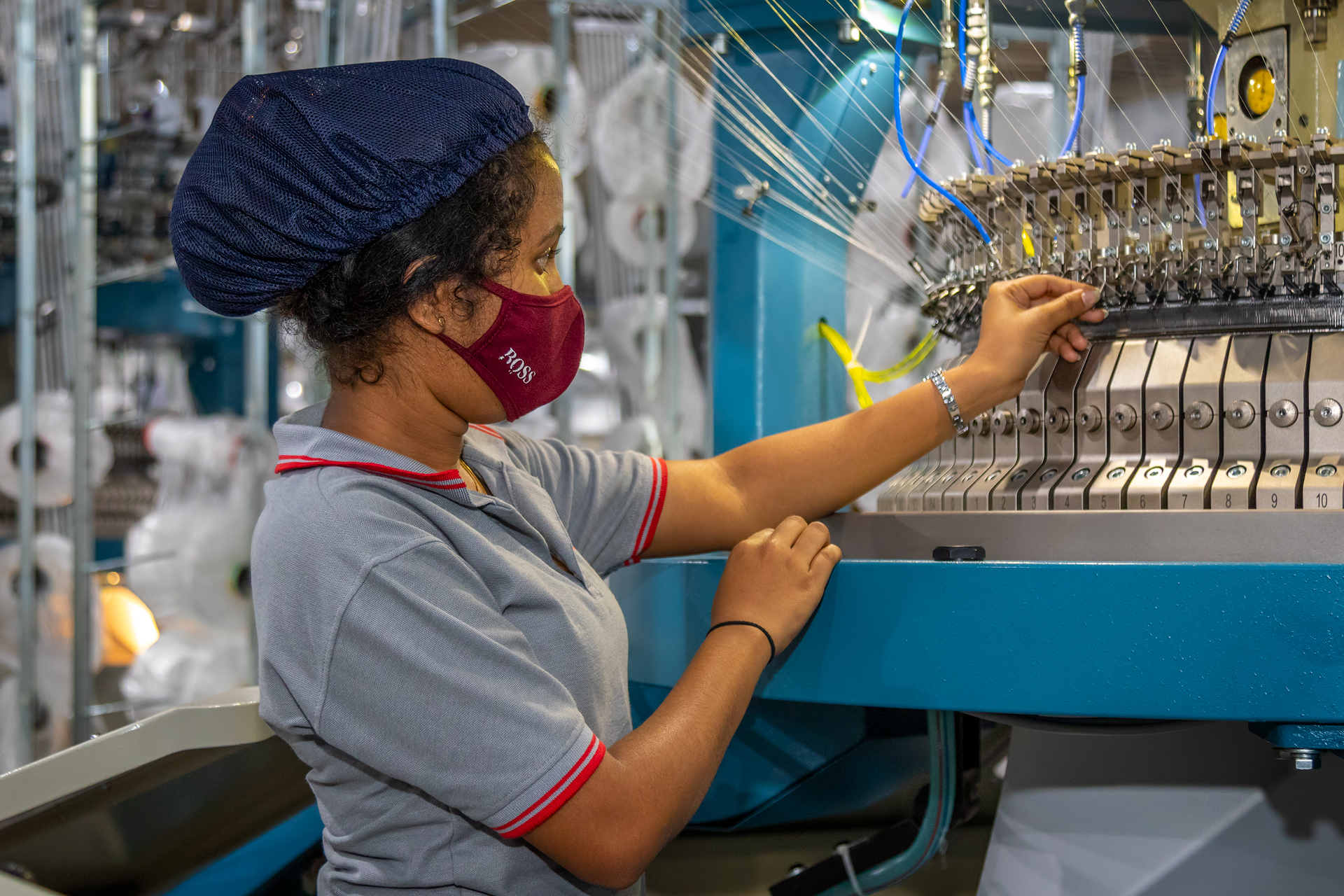
A Future Aligned with Sustainability
GOTS certification has solidified Hayleys Fabric’s commitment to sustainability, attracted environmentally conscious clientele and reinforced the company’s strong ethos of ecological and socially responsible operations. As Head of Sustainability & Sustainable Innovations, Leonie Vaas aptly summarises, ‘This recognition has elevated our standing, drawn in environmentally conscious clientele, and emphasised our dedication to an eco-friendlier and more responsible textile sector’.
With its rich history, innovative spirit, and steadfast commitment to sustainability, Hayleys Fabric is not just a GOTS-certified company; it's a pioneering force reshaping the future of textiles for the better.
Case Study: JAN 'N JUNE
GOTS Case Study:
JAN 'N JUNE
Founded in 2014 by German designers Anna and Jula, JAN 'N JUNE is a Hamburg-based fashion company that embodies the fusion of fashion and sustainability. The company was born out of the necessity for sustainable fashion, and its ethos intertwines sustainability into every facet of its operations. This shift in societal awareness has not only fueled JAN 'N JUNE's growth but also cemented its status as a prominent sustainable fashion brand. The company's mission is clear: to demonstrate that fashion can be both stylish and sustainable.

GOTS Certification
The decision to obtain GOTS organic certification was a significant milestone for JAN 'N JUNE. It was a testament to the company’s unwavering commitment to ethical production and eco-conscious materials. JAN 'N JUNE recognised the importance of GOTS certification in fostering transparency and credibility in the fashion industry.
Holistic Sustainability
JAN 'N JUNE's commitment to sustainability extends throughout the business. The brand's ethos centres around the belief that fashion and sustainability can seamlessly coexist. The company takes pride in producing garments fairly in Portugal and Poland, using sustainable materials like organic cotton, recycled polyester, and lyocell. These choices reflect JAN 'N JUNE's unwavering dedication to ethical practices and eco-conscious fashion, encompassing a circular economy, waste reduction, responsible consumption, and creative approaches to repurposing fabric offcuts.



Resilience and the Road Ahead
The journey of JAN 'N JUNE has been marked by ups and downs, with the COVID-19 pandemic adding its own set of challenges. However, what the company takes the most pride in is its unwavering commitment to sustainability, its ability to adapt, and its solution-driven approach in the face of adversity. This resilience would not have been possible without a dedicated and hardworking team.

Case Study: LangerChen
GOTS Case Study:
LangerChen
A Sustainable Journey from China to Europe
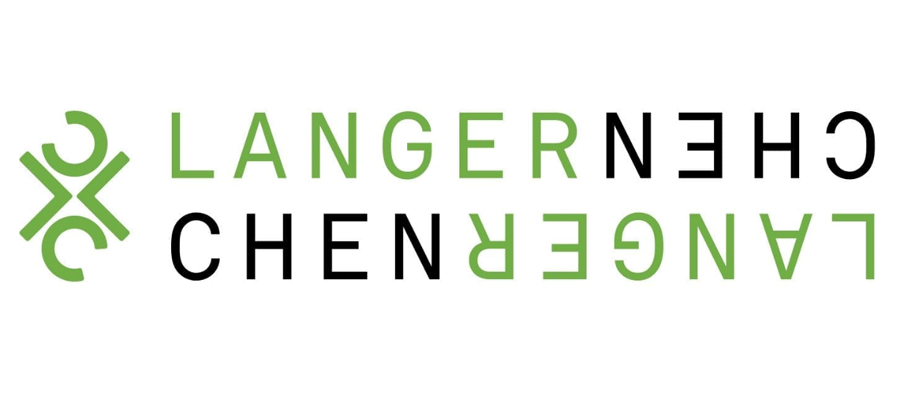
Company Snapshot
Location: Tutzing, near Munich
Year founded: 2008, first LangerChen collection in 2013
Year of GOTS certification: 2014 and 2021
Number of employees: 110 employees in China and 10 in Tutzing
Types of products: Eco Outerwear Coats, Jackets and Accessories
Number or quantity of material or products produced: Every year we produce a spring/summer and an autumn/winter collection according to customer orders. We have around 250 customers in central to northern Europe and Canada.
How much of it (material/products) is GOTS certified: In the actual spring/summer collection, 3 out of 34 models are GOTS certified, in the fall/winter collection it is 11 out of 45 models
Where can consumers find your products? www.langerchen.com
and in numerous shops that sell our products:
https://www.avocadostore.de
https://loveco-shop.de
https://rrrevolve.ch/stores,
and from spring 2024
https://www.manufactum.de
A Commitment to Fairness and Eco-Fashion
LangerChen, founded by Miranda Chen and Philipp Langer in 2008, has redefined "Made in China" in the fashion industry. Its story began with the establishment of Jiecco, a textile manufacturer in China. The vision was clear: to create environmentally friendly and ethically produced textiles in a region often associated with mass production and subpar working conditions.
That passion for fashion and an expertise in fabric development were the foundation for LangerChen's eponymous fashion label emerged in 2013. Since then, it has become synonymous with fairness, quality, and timeless style.
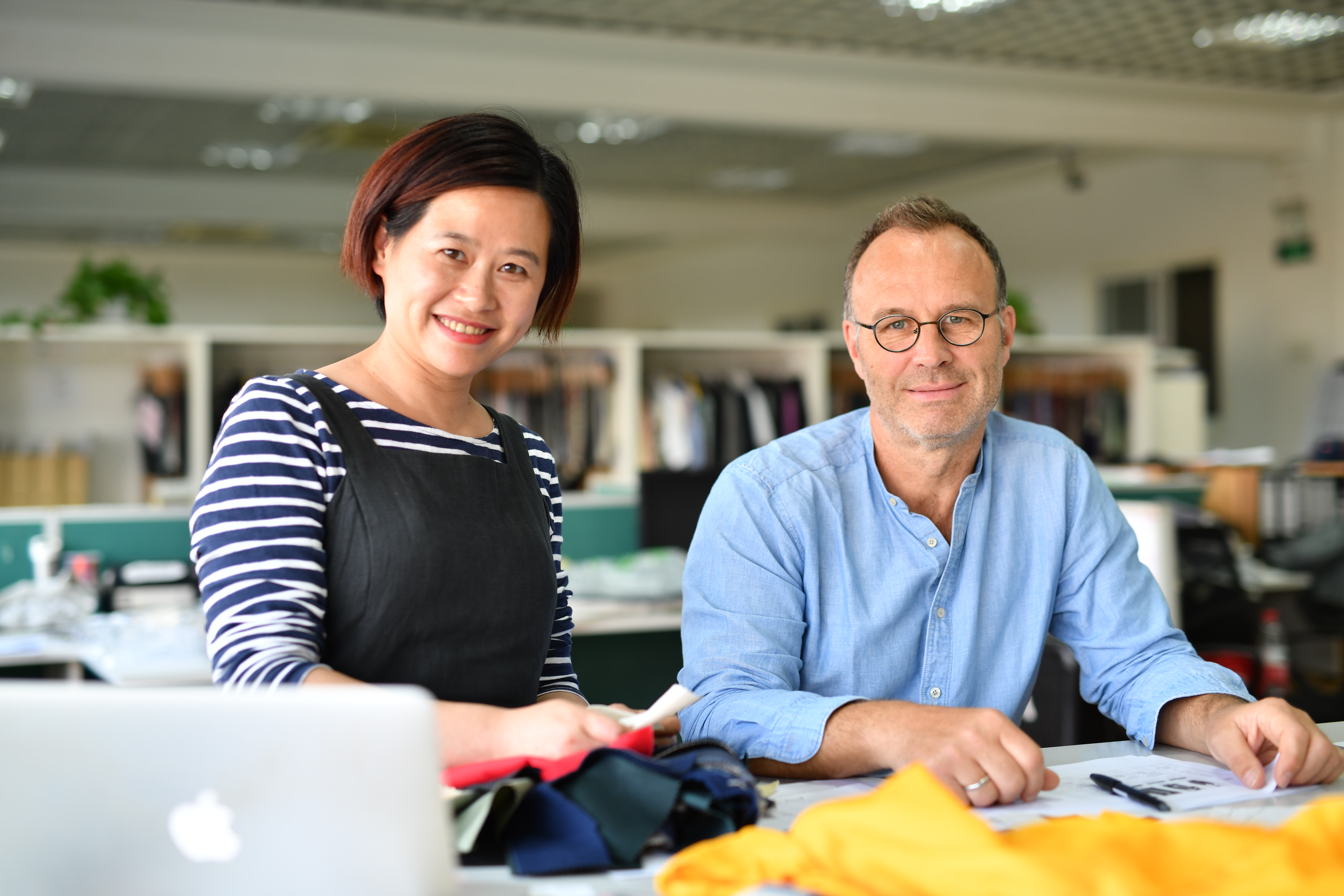

Eco-Fashion: Where Style Meets Ethical Production
Combining organically certified natural fibres with technical membranes LangerChen creates weather resistant eco-outerwear that blends fashion with function. Its commitment to social responsibility, sustainable practices, and the environment is evident in every aspect of operation. LangerChen manages the entire production process, from fabric to finished jacket, in its own GOTS-certified facility, located just an hour from Shanghai.
In the LangerChen factory in China, the company has established not only a transparent supply chain but a close-knit team. With a strong focus on employee welfare, company owners and managers know each of their 110 long-term employees personally. LangerChen pays fair wages, ensuring that good working conditions are maintained. Going a step further, it organises daily transportation for the team, fostering an inclusive and sustainable working environment.
GOTS: Elevating Sustainability Standards
In 2014, LangerChen’s production site achieved GOTS certification, marking a significant milestone in its journey. The choice of GOTS reflects its commitment to the highest standards for environmental and social practices. In 2021, European distribution completed the certification of the supply chain in order to provide customers with the security of a fair and sustainable product with the GOTS seal.
Aligning with the strict criteria of GOTS has had an influence throughout the company’s operations. Not only has it enforced measures to maximise resource conservation and minimise its carbon footprint, its entire production process revolves around the GOTS principles. That means ensuring that it produces only what is needed, reduces excess quantities, providing an in-house repair service for garment longevity, and decreasing plastic packaging. Even transportation is optimised for minimal CO2 emissions.
In the fashion industry, where change is often slow, LangerChen's commitment to responsible production sets the bar high, demonstrating that 'Made in China' can signify ethical practices, quality, and timeless fashion.
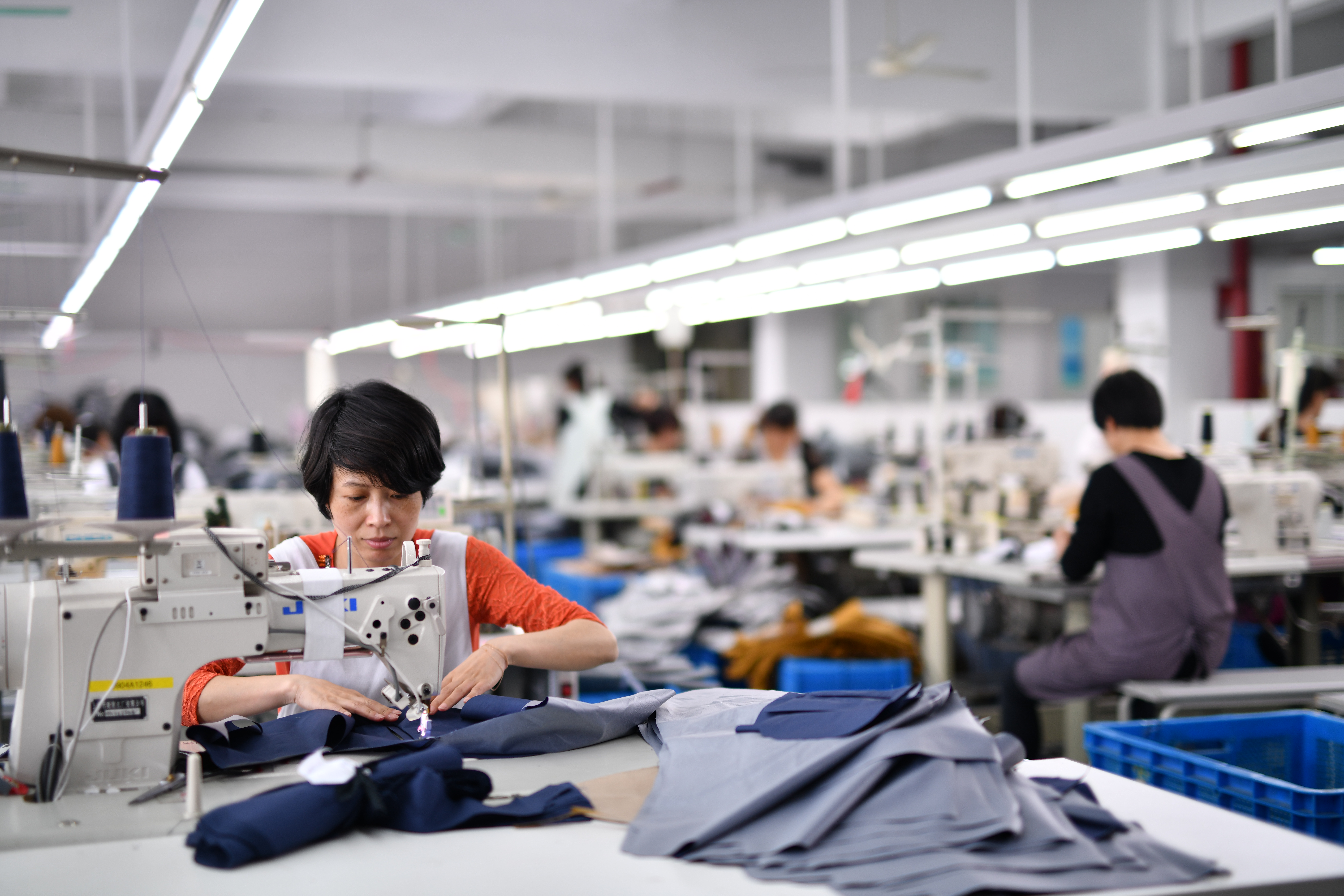
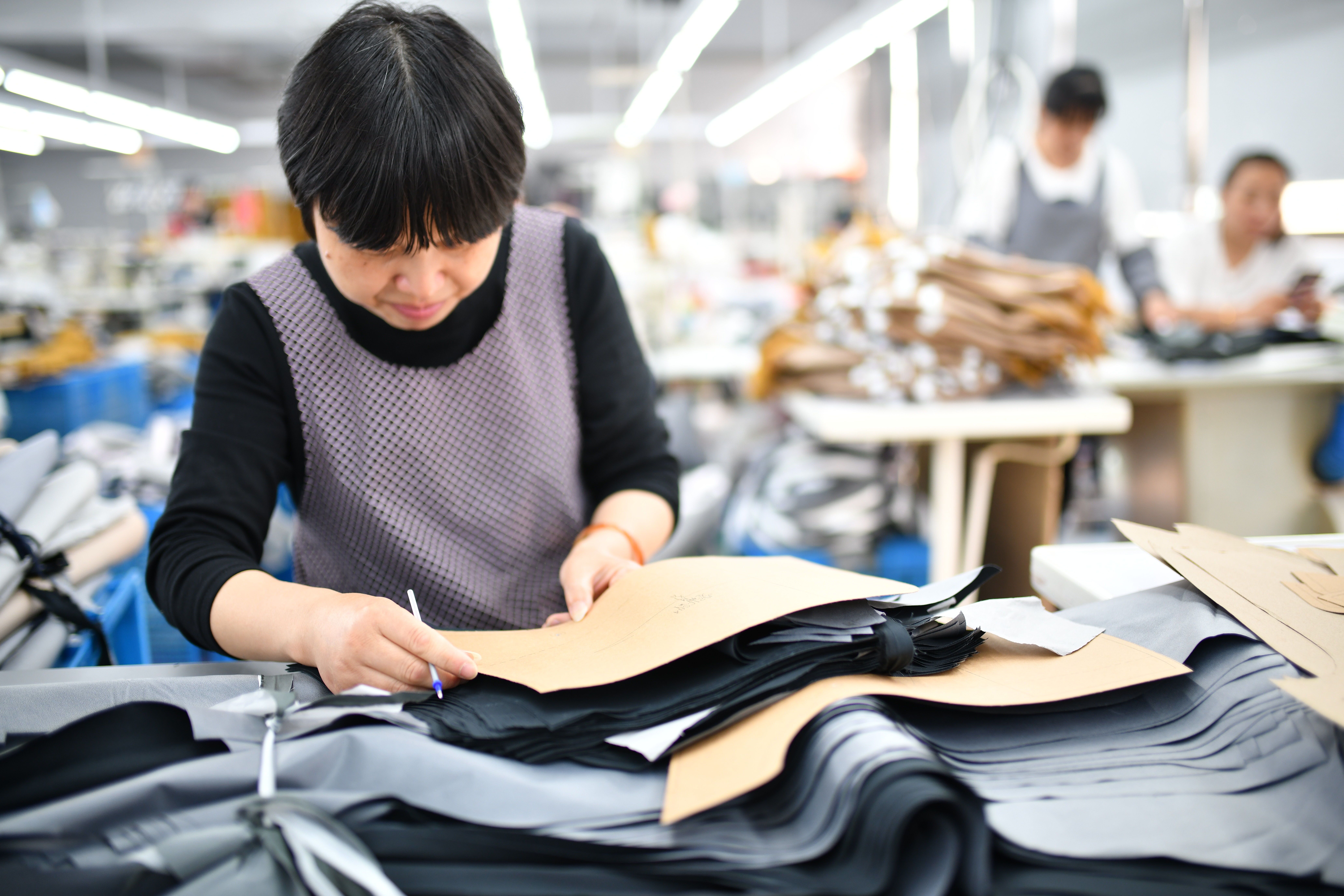
Case Study: Living Crafts
GOTS Case Study:
LIVING CRAFTS
Pioneering Sustainable Fashion
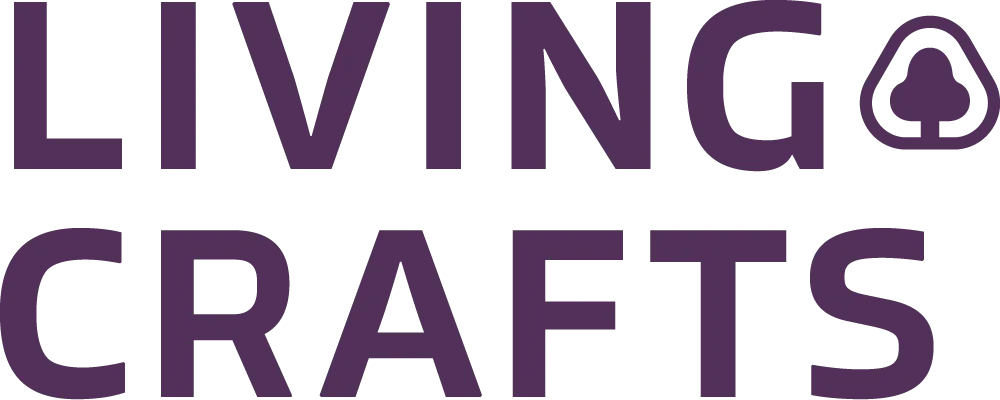
Living Crafts
Since its founding in 1985, Living Crafts has been at the forefront of sustainable fashion, playing a pivotal role in shaping the industry. With a humble beginning in a garage producing organic socks, the company has evolved into one of the most prominent suppliers of environmentally friendly textiles. Living Crafts is dedicated to providing high-quality, durable, and sustainable clothing and home textiles that resonate with the values of consumers who care about their environmental impact.
Local to Global Reach
Living Crafts is based in the Bavarian town of Selbitz, where product development, administration, and warehousing take place. Its products, however, are sourced from around the world, including countries such as Lithuania, Turkey, India and Germany. In a world where fashion is often seen as disposable, Living Crafts stands out by emphasising quality and durability. The company's philosophy centres around offering high-quality clothing that endures beyond a single season.
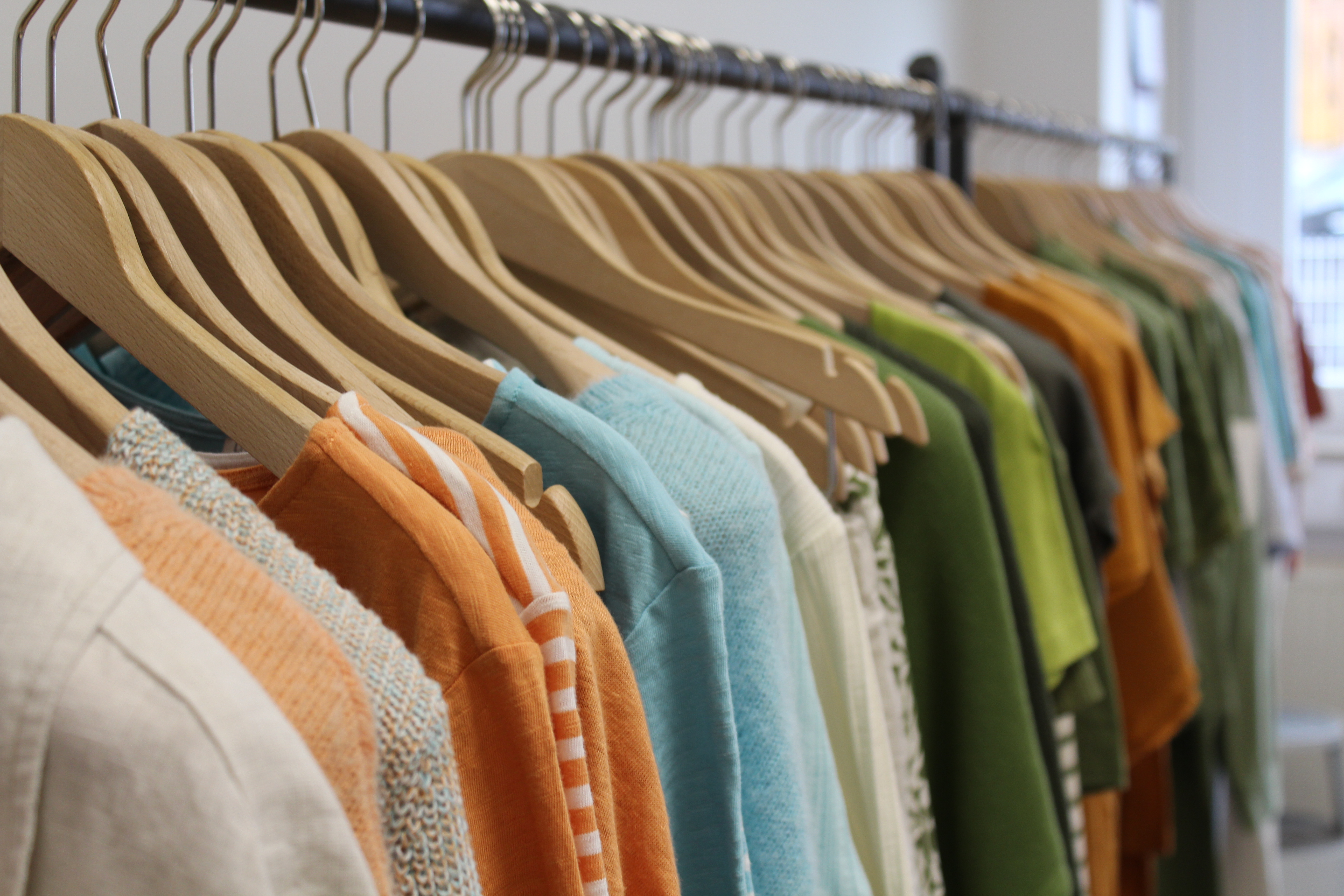
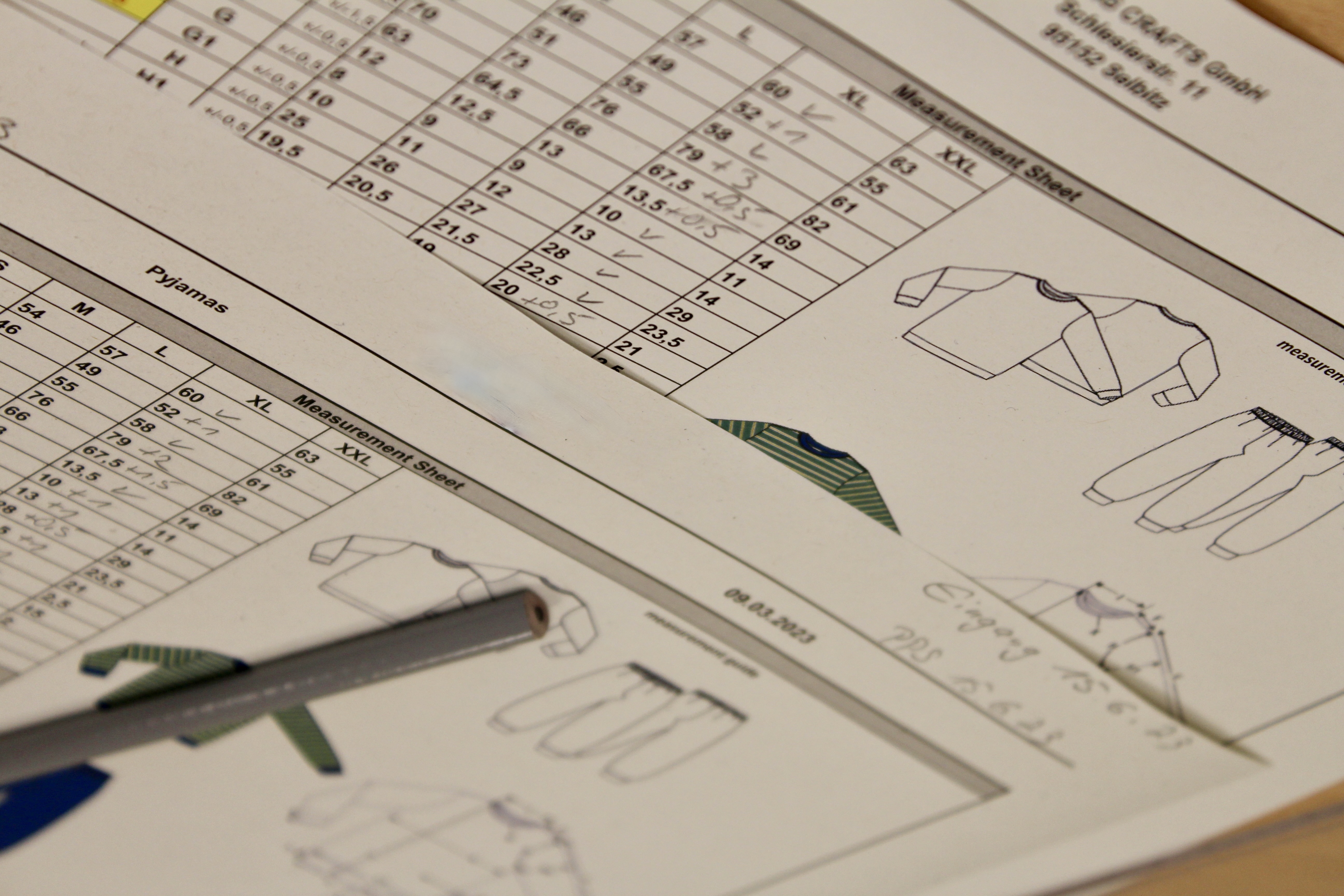
Ecological Commitment
Living Crafts is committed to offering alternatives that customers can trust. The company prioritises sustainability through its GOTS-certified products, membership in the Fair Wear Foundation, and CO2 compensation partnerships with renowned organisations. These efforts ensure that the environmental and social aspects of the supply chain align with the company's core values.
Making Every Day Special
Living Crafts aims to make every day special for its customers. The company focuses on fashion trends that meet the demands of daily life, offering versatile designs that can be combined into various outfits. Additionally, the company's home textiles are designed to create a sense of well-being in one's living space, making customers feel good every day, whether at work, leisure, or special occasions.
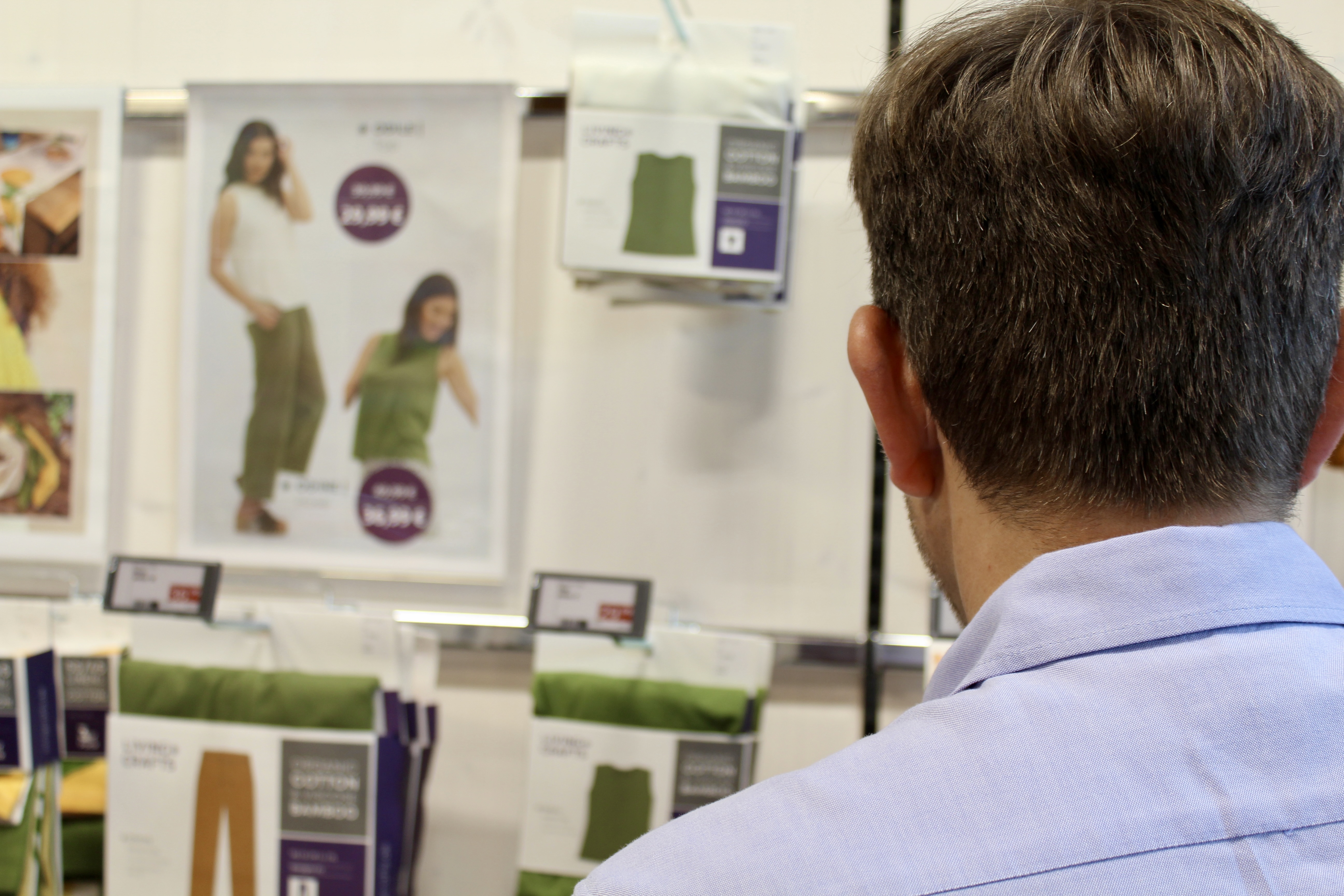
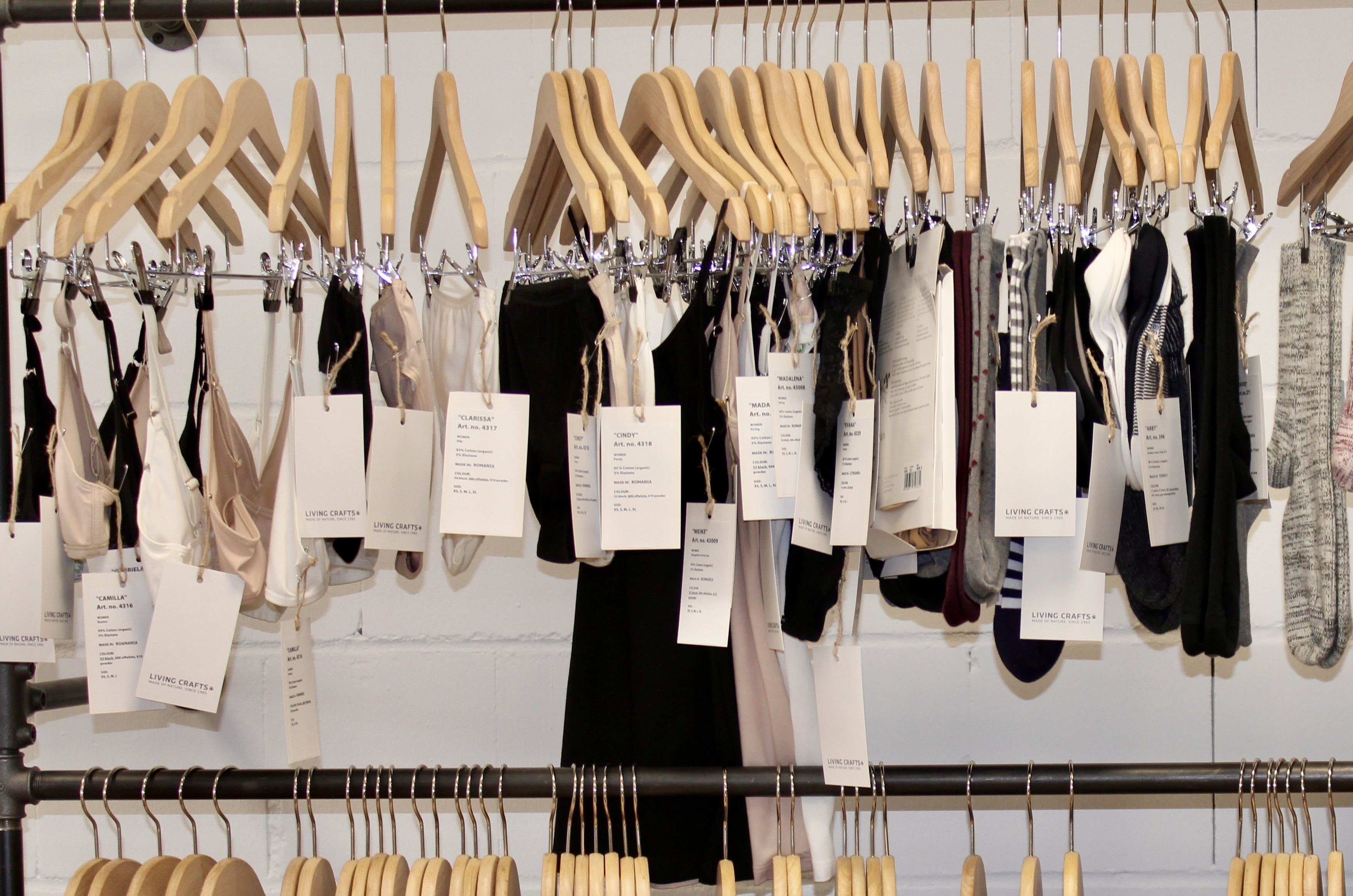
Affordable Sustainability
Living Crafts adheres to the principle of offering high-quality products at affordable prices. The company believes that sustainable clothing should be accessible for everyday wear, and this affordability plays a crucial role in driving change from the exception to the rule in the fashion industry.
GOTS Certification and Sustainability
With sustainability as the guiding principle of operations for Living Crafts, GOTS certification not only reinforces the company’s own commitment to responsible production, but it also has enhanced the credibility of Living Crafts with consumers. It reinforces the alignment of GOTS and the company's values, serving as a testament to its commitment to responsible sourcing.
During the certification process, Living Crafts encountered the challenge of formalising practices that were already ingrained in its sustainable operations. The company needed to put these practices in writing to facilitate internal and external communication. For example, it introduced a Code of Conduct that all suppliers must sign, as well as meticulously documenting various aspects of the operation.
Case Study: Naturepedic
Case Study
Naturepedic
Naturepedic

Company Snapshot
Location: Headquartered at 16925 Park Cir Dr, Chagrin Falls, OH 44023 with 20+ organic mattress galleries from coast to coast
Years in operation: 20 (founded in 2003)
Year you received GOTS certification: 2009
Number of employees: 100+
Types of products you make: GOTS certified organic mattresses and bedding for babies, kids, adults and pets
Units produced monthly: More than 10,000 GOTS-certified items produced monthly
Where can consumers find your products: Online at Naturepedic.com , as well as through our many retail partners and affiliates
How it all began...
In 2003, Board Certified Environmental Engineer Barry A. Cik set out to find a crib mattress for his first grandchild. To his surprise, he couldn't find a single option that met his standards: made without questionable chemicals, harmful waterproofing agents, potential allergens, and hazardous flame retardants. Determined to provide a safer sleep environment for his family and others, Barry, joined by his sons, Jeff and Jason, laid the foundation for Naturepedic, pioneering the organic mattress movement. Today the company offers certified organic sleep solutions for individuals of all ages, including babies, kids, adults, and even pets.
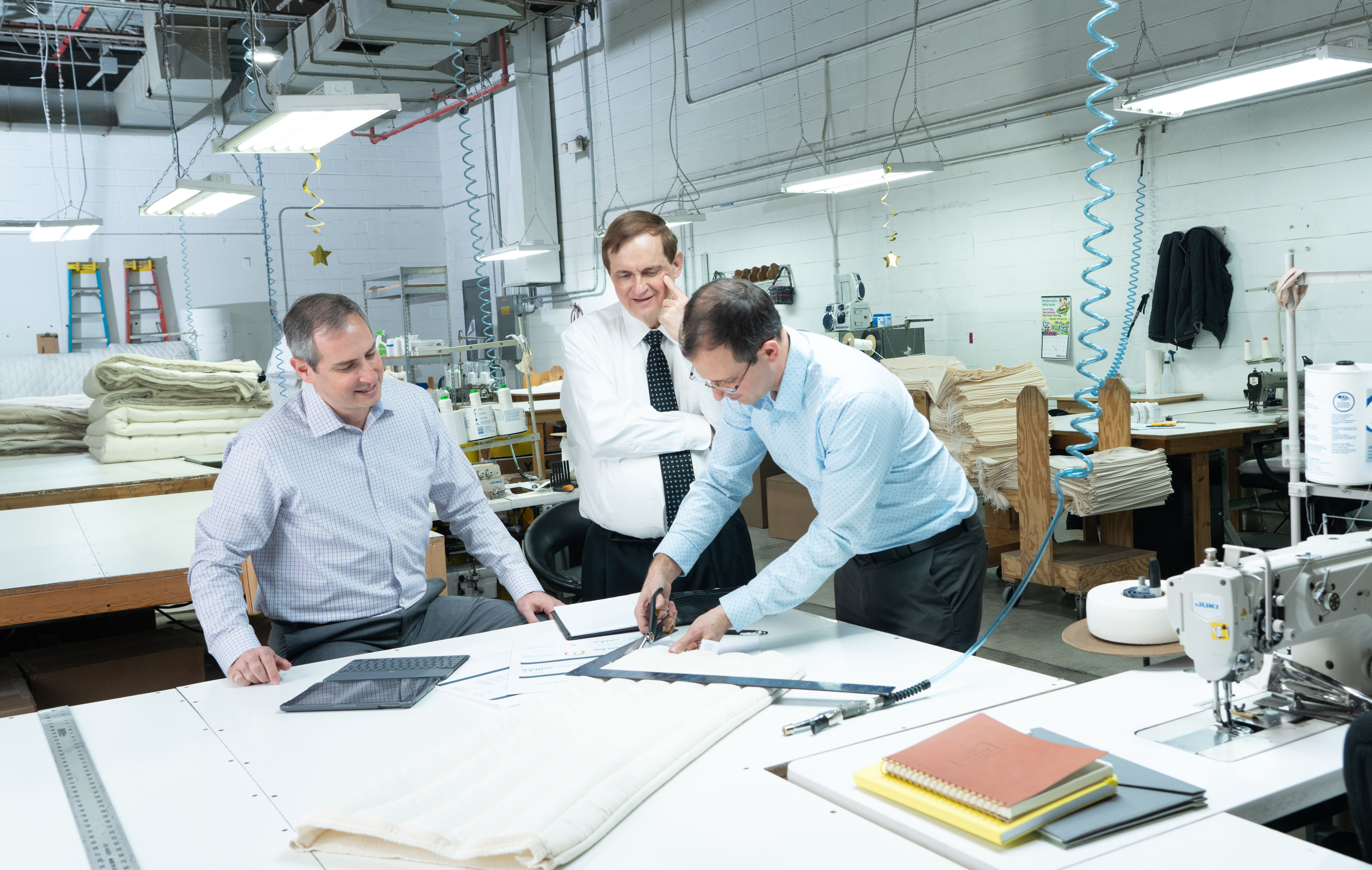

Pioneering Organic Sleep
Naturepedic has always been more than just a mattress company. It has dedicated itself to the pursuit of a healthier, restorative, and organic sleep. Since its founding, the company has specialised in creating handcrafted GOTS-certified organic mattresses that do not contain the harmful materials found in conventional mattresses, such as polyurethane foam, vinyl/PVC, PFAS, pesticides, GMOs, toxic VOCs, or other harmful substances. Instead, it sources and creates its products using healthier alternatives like GOTS-certified organic cotton, GOTS-approved (GOLS- or FSC®-certified) latex, FSC®-controlled wood, PLA batting derived from non-GMO sugarcane, and in-house manufactured encased coils without any glues or adhesives.
Trailblazers in Organic Mattresses
Naturepedic stands at the forefront of the organic mattress movement. It is renowned as the most certified and awarded organic mattress brand in the industry, testifying to its unwavering commitment to quality. When Naturepedic started in 2003, however, the term "organic mattress" lacked a clear definition for most people. Globally, GOTS has played a pivotal role in defining what an organic mattress truly is, differentiating it from conventional, non-organic options. Naturepedic's commitment to GOTS standards has not only legitimised the brand but has also positively influenced the mattress and bedding industry, establishing GOTS as the worldwide standard for organic mattresses.
For Naturepedic, the GOTS certification is a testament to the exceptional standard its products adhere to, setting them a cut above the rest in the market. As founder, Barry Cik says, “There is no way to trust organic claims unless those claims are validated by the GOTS certification program.”
It's more than just a badge – it's a seal of trust and quality that transcends marketing claims, providing concrete assurance to customers. With every Naturepedic mattress, one is not just investing in superior comfort but in a product with a verified higher standard of organic integrity and craftsmanship. GOTS certification narrates a story of value, trust, and uncompromised quality.
What sets Naturepedic apart is not just its products but two important guiding principles:
• It’s not organic unless it’s GOTS certified organic.
• Chemicals are guilty until proven innocent.
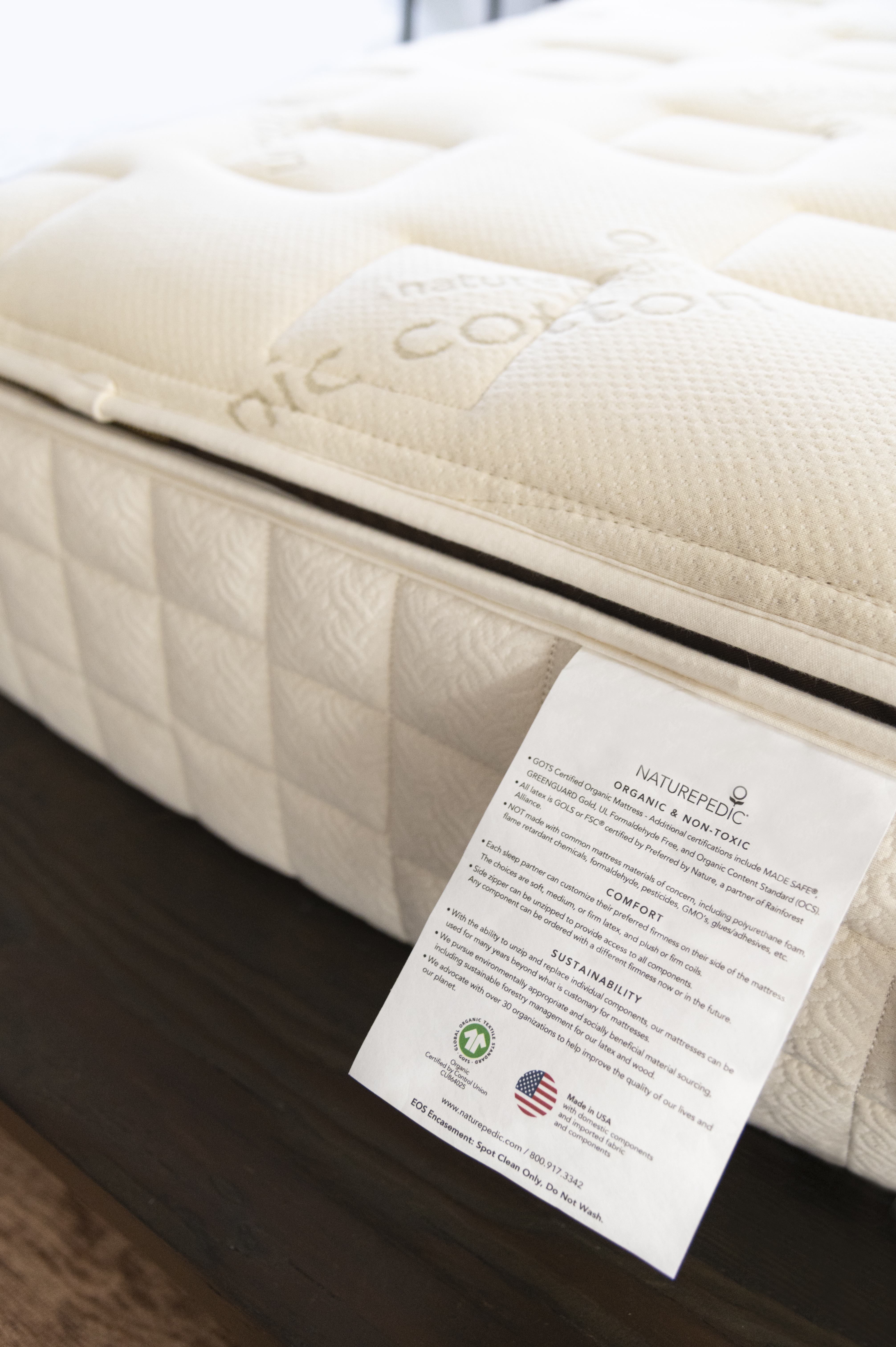
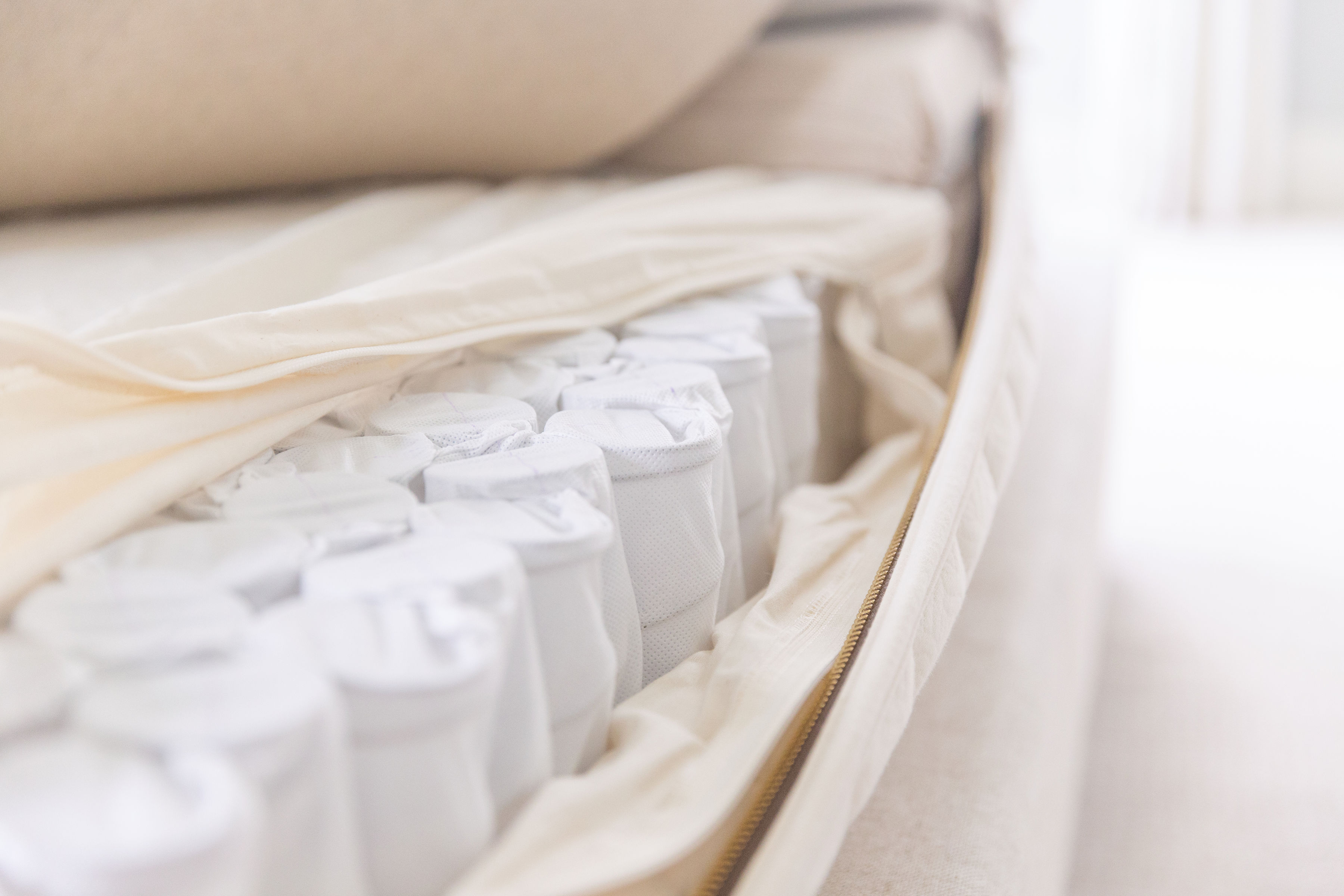
A Commitment to Sustainability
The company isn't just in the business of selling organic mattresses; it's comprised of dedicated environmentalists. Recently, it adopted a new kraft paper roll-packing system, ensuring that all its mattresses, comfort layers, and toppers are wrapped in fully recyclable kraft paper. This switch is a testament to the company's commitment to sustainability, keeping over 55,000 pounds of plastic out of landfills annually.
With over two decades of expertise in crafting organic mattresses and sleep accessories, Naturepedic is now poised for expansion into a broader range of organic home and lifestyle products, including duvets, throw blankets, bathrobes, towels, furniture, and more. Throughout this forward-looking journey, Naturepedic's commitment to the GOTS standard remains unwavering, defining what it means to be "organic" and providing customers with peace of mind.
Case Study: Original Favorites
GOTS Case Study:
Original Favorites

Company Snapshot
Location: Denver
Years in operation: 8
Year you received GOTS certification: 2023
Number of employees: 6
Types of products: Wholesale T-shirts and Fleece Knitwear
Where can consumers find your products: https://originalfavorites.com/
Original Favorites specialises in crafting luxury wholesale blank garments tailored for various businesses seeking premium blanks for customising and decorating. The company's product line encompasses an array of high-quality blanks, including sweats, t-shirts, and knit beanies. These garments are exclusively made from the finest materials such as Supima® cotton, Cashmere Merino Wool, and organic cotton fibres.


Sustainability Initiatives
Established in 2016, Original Favorites embarked on a mission to create luxury wholesale blank garments that combine an unwavering commitment to quality with a profound dedication to environmentally sustainable and ethically sound manufacturing. The journey commenced with a meticulous evaluation of raw materials, prioritising the utilisation of the world's finest natural fibres. An essential aspect of the company’s commitment to environmental stewardship includes considering both the land and the people involved in the cultivation process. This emphasis on ethical practices and sustainability spans the entire production process, ultimately guiding every decision.
Why GOTS Certification?
GOTS certification impeccably aligns with the company's core values and its enduring commitment to responsible and sustainable practices. Certification also assures the company and its clients that the strict and rigorous requirements of the Standard have been successfully undertaken. GOTS certification and label on final products acts as a significant value addition, attracting clients due to the authenticity, transparency, and credibility it offers.

Looking Ahead
Original Favorites aims to concentrate on educating and encouraging clients to demand proof from their suppliers, emphasising the importance of responsible and sustainable practices within the industry. Its recent GOTS certification serves as a testament to the company's unwavering commitment to quality, sustainability, and transparency, firmly establishing a high standard within the luxury wholesale blank garment sector.
Case Study: Saitex
GOTS Case Study:
Saitex
A Sustainable Vision for Denim Manufacturing
Saitex, headquartered in Vietnam, has emerged as a pivotal force in the global denim industry since its establishment in 2012. With the capacity to produce an impressive 20,000 pairs of jeans per day, the company's true distinction lies in its innovative approaches to denim manufacturing and a profound commitment to social equity. Amidst the fashion industry's often contentious sustainability and environmental concerns, Saitex's narrative takes centre stage, focusing on groundbreaking strategies and unwavering dedication to its employees and the local community.
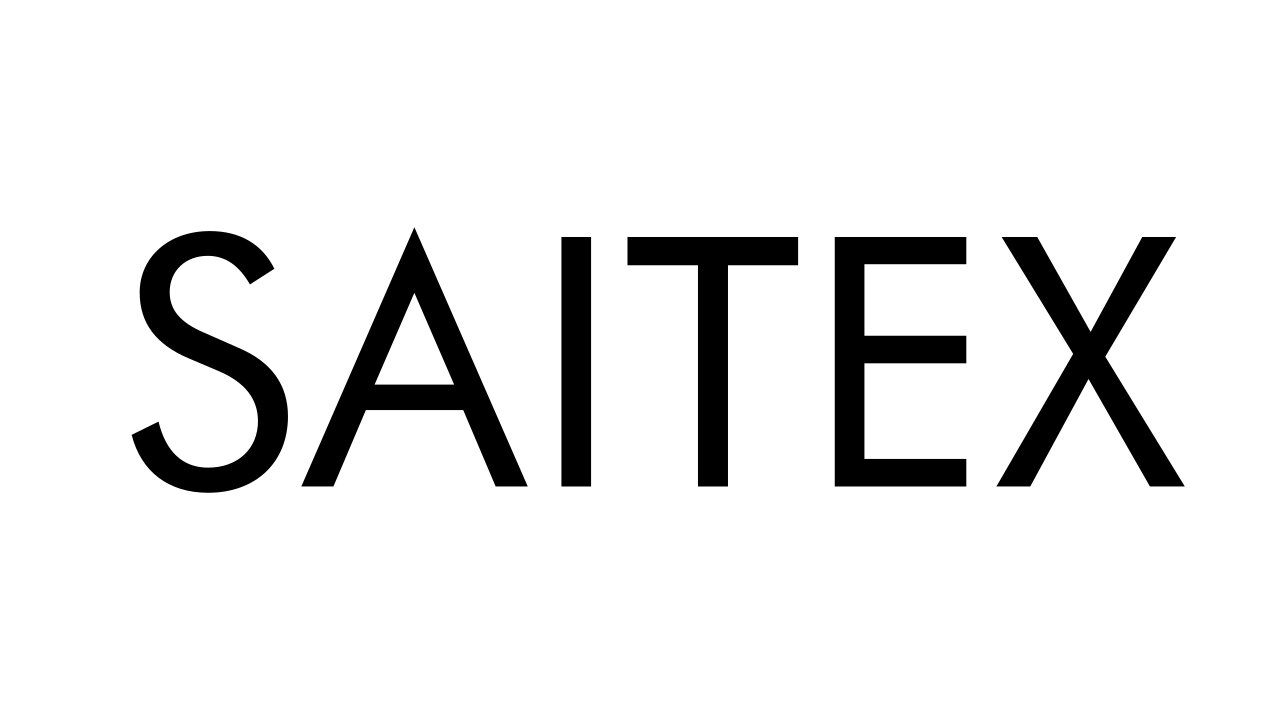
A Green Beacon in Denim Manufacturing
Saitex's LEED-certified facility redefines the standard for clean water practices. They recycle an astounding 98% of the water used, a remarkable feat in an industry notorious for water wastage. Traditional denim manufacturers waste up to 1,500 litres of water per pair of jeans with inefficient practices and outdated technology. In contrast, Saitex employs efficient jet washing machines, losing just 0.4 litres of water to evaporation. Additionally, on-site rainwater collection pools minimise water consumption impact. Saitex's five-step filtration process purifies water, rendering it so clean that it's drinkable.
Green Energy
Saitex is committed to renewable energy resources, particularly solar power, a dedication that has reduced annual energy usage by 5.3 million kilowatt-hours and cut CO2 emissions by nearly 80 percent. They've taken a page from the past, air drying jeans with recycled factory machinery air, a sustainable alternative to the inefficient traditional dryers that used excessive electricity. To offset remaining emissions, they plant trees, contributing to a greener world.
Clean Waste: All wastewater treatment plants create a toxic byproduct called sludge. But at SAITEX, the sludge is extracted and shipped to a nearby brick factory. Mixed with concrete, the toxic material can no longer leech on the environment, and the resulting bricks are used to build affordable homes for the people in need.
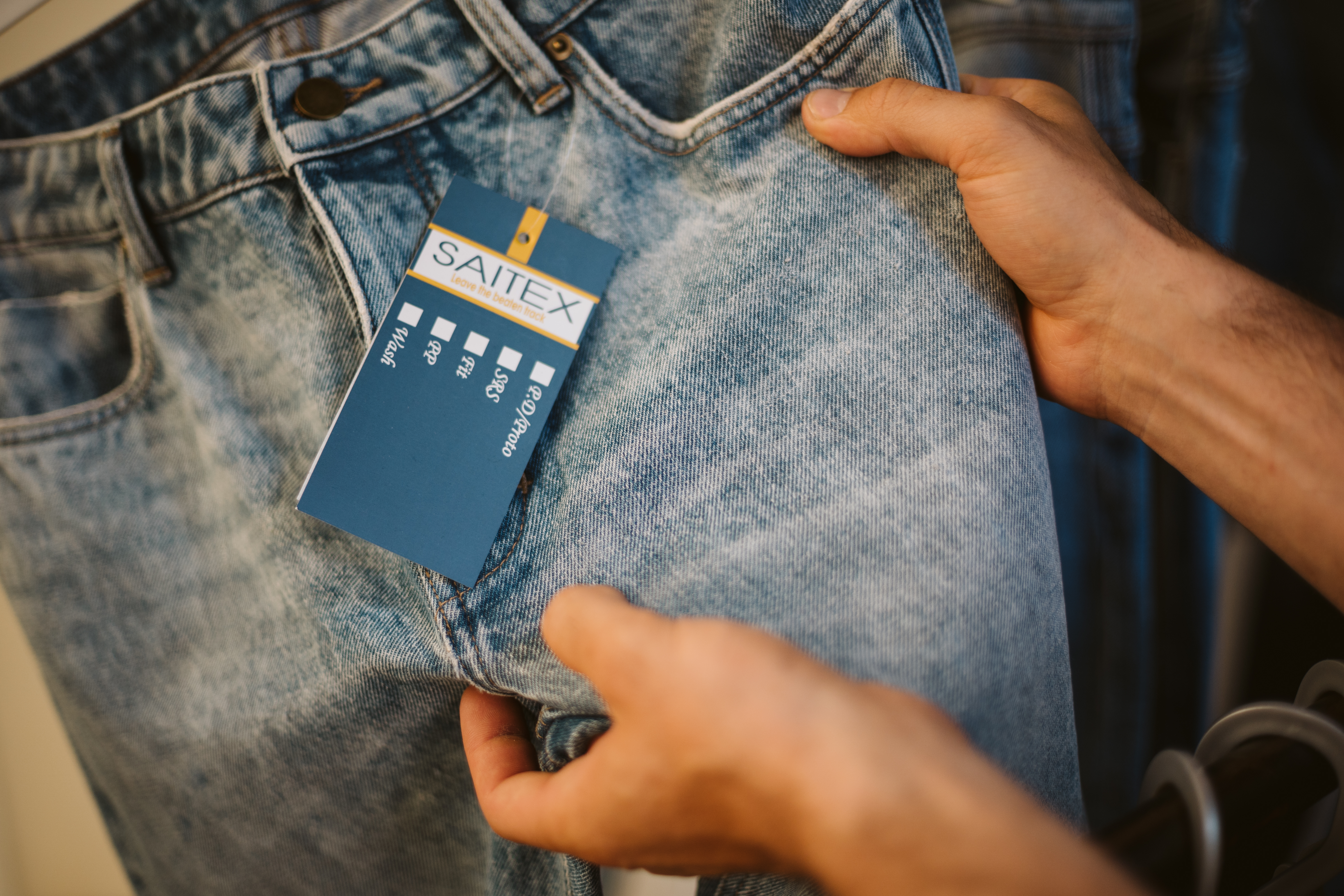
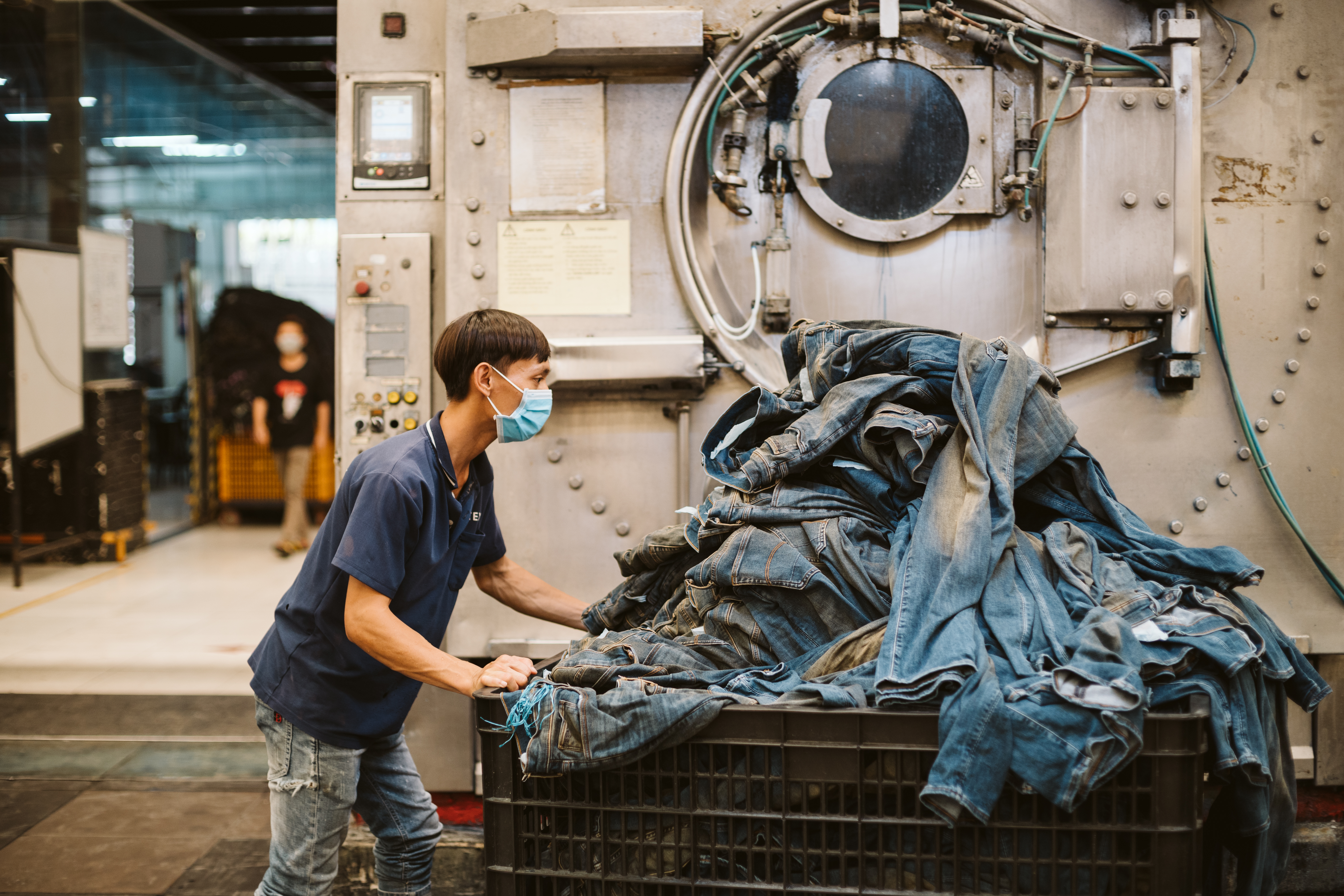
Empowering Communities Through Responsible Business Practises
Saitex firmly believes in harnessing the power of business as a force for good, aiming to create a healthier, more equitable world. Their endeavours include:
Empowering the Next Generation: Saitex supports three orphanages housing 800 children. These children are offered training and employment opportunities at Saitex when they turn 18.
Food for Good
In collaboration with Everlane, Saitex has implemented hydroponic and clean farming systems, providing healthy food for the community while generating jobs that promote social interaction and employment with equal pay for vulnerable groups.
Supporting Gender Equality: With 58% of their workforce comprising women, Saitex actively promotes gender equality, with many women holding key positions within the company.
One-of-a-Kind Production Line: The Rekut production line is a platform for differently-abled individuals to receive training and support for sustainable employment, with an ambitious goal of creating 1,000 jobs and avoiding 1,000,000 kg of landfill waste by 2025.
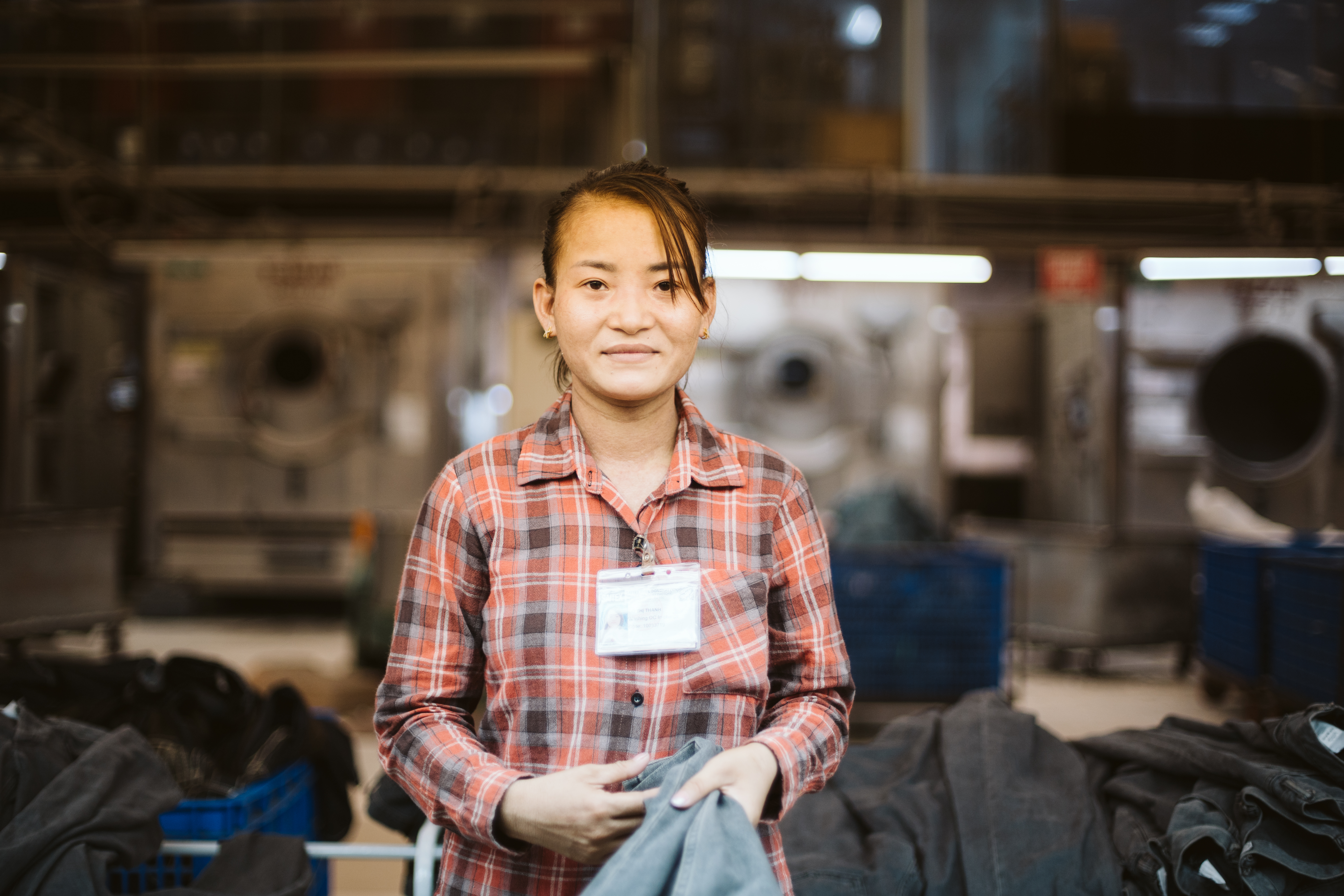
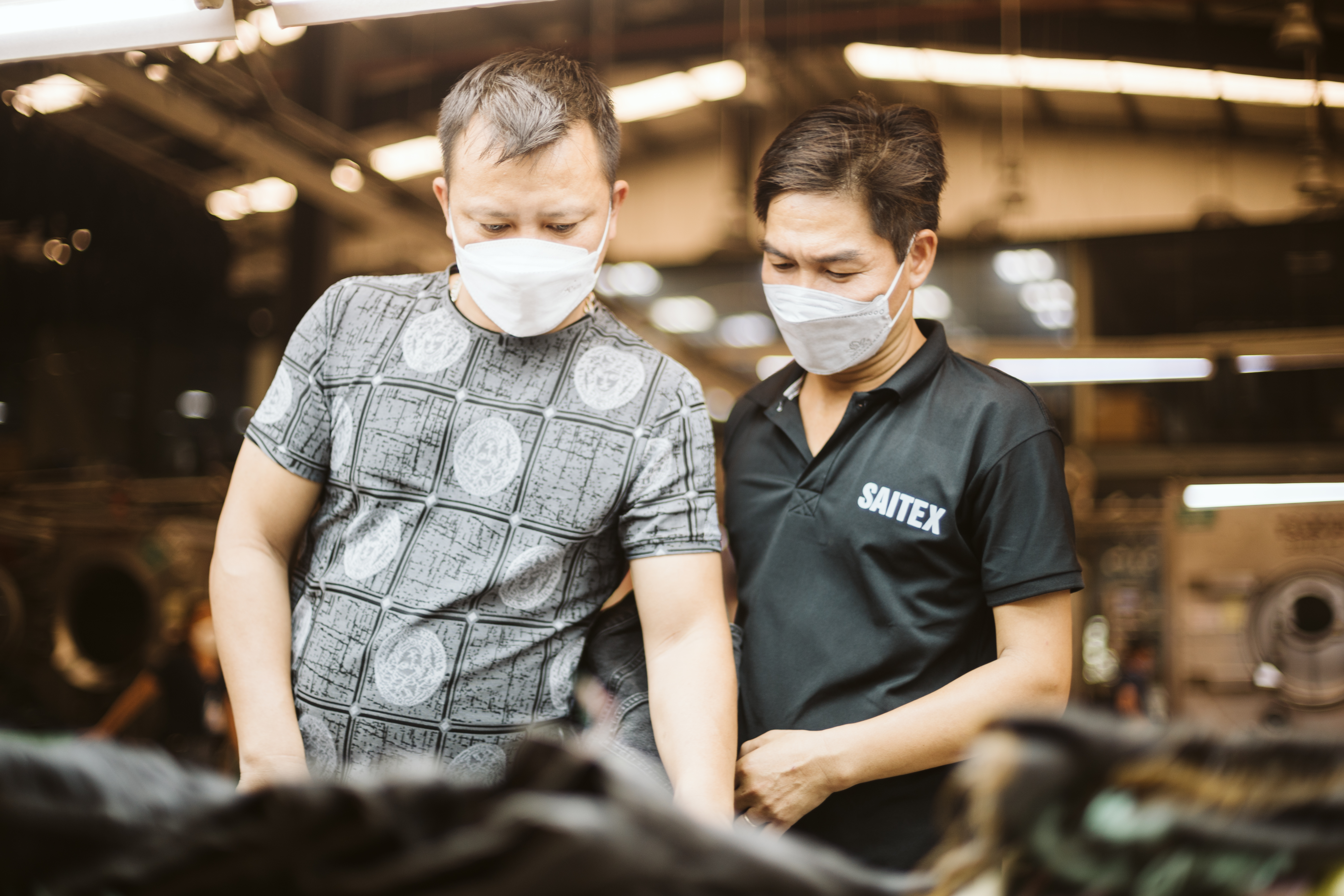
Saitex's vision for sustainability and social equity is about more than just denim; it's about shaping a future where business serves as a force for good. Their innovations in water and energy conservation, waste management, and commitment to supporting communities demonstrate that it's possible to transform even the most polluting industries into champions of sustainability and social equity. Saitex invites us to see abilities, not disabilities, and to believe in a world where affordable, clean food is a basic human right, all while leaving a greener, cleaner footprint on the planet.
Case Study: Schoeller Spinning Group
GOTS Case Study:
Shoeller Spinning Group
Crafting Sustainability and Excellence in Yarn Production
The Schoeller Spinning Group, a global leader in yarn production with a strong focus on worsted yarn, understands that true innovation is born from collaboration. By working closely with its customers, the company creates superior solutions.
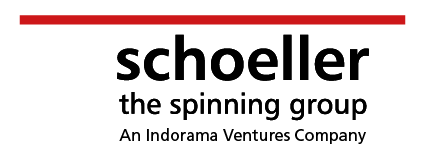
Yarn that Transcends Quality
The key to impeccable textiles in the realms of fashion, sports, and technical applications lies in the primary material - yarn. Schoeller's product strategy revolves around high-value, functional yarns. Its commitment to innovation keeps it at the forefront of industry trends.
Eco-Conscious Evolution
The shifting landscape of climate change has sparked a transformation in environmental consciousness. Consumer behaviour is evolving, placing a premium on sustainability and collections tailored to specific audiences. Schoeller acknowledges this shift and adheres to stringent ecological guidelines throughout its production and procurement processes.
Schoeller’s laboratories are hubs of continuous development and optimisation, focusing on greener processes and products. One of the company’s newest achievements, the EXP wool treatment process sets a sustainability benchmark. The chlorine-free process uses less resources than conventional processes and is carried out reliably at the company’s European manufacturing site, meaning that it is a truly holistic sustainable innovation.
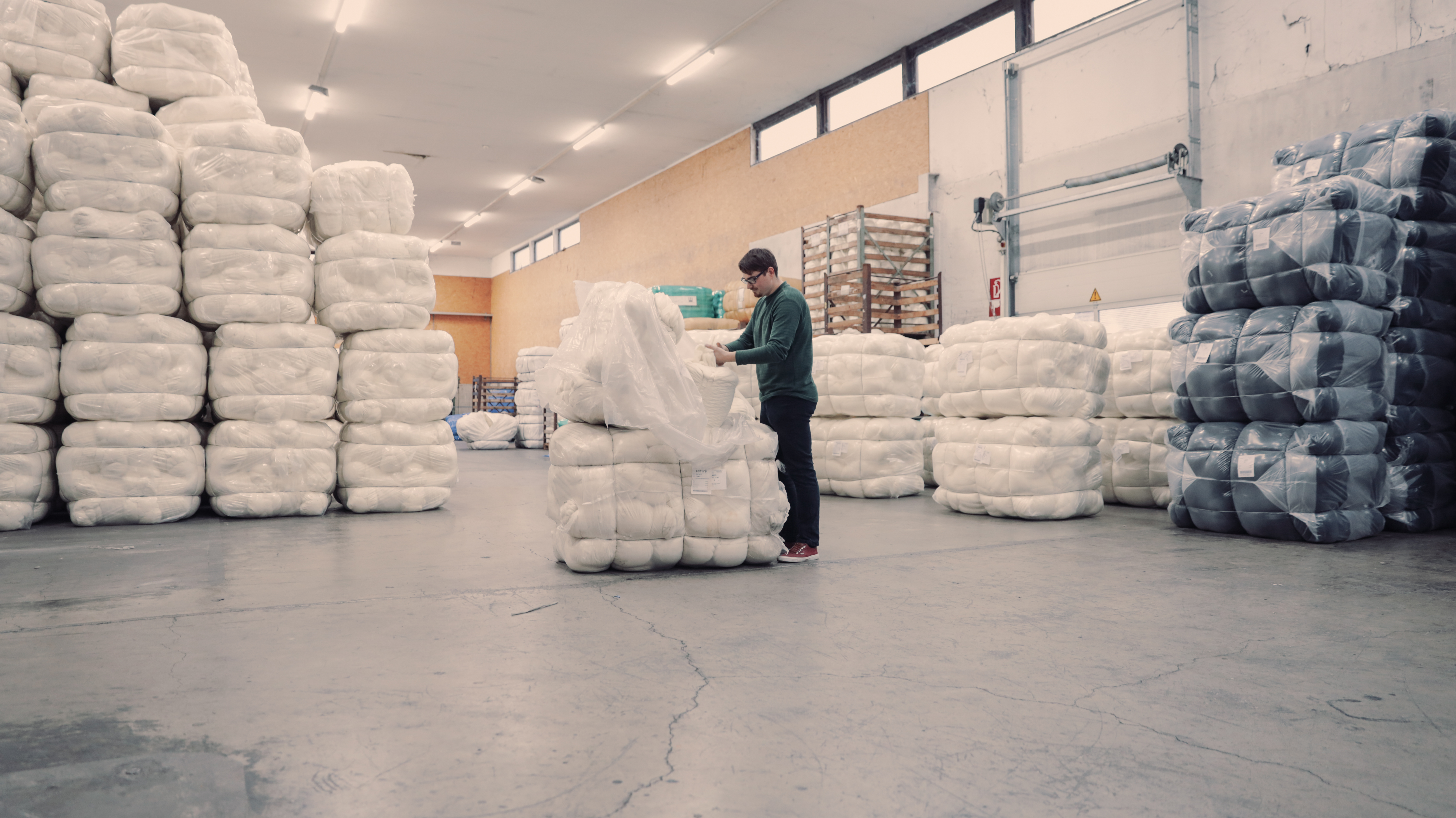
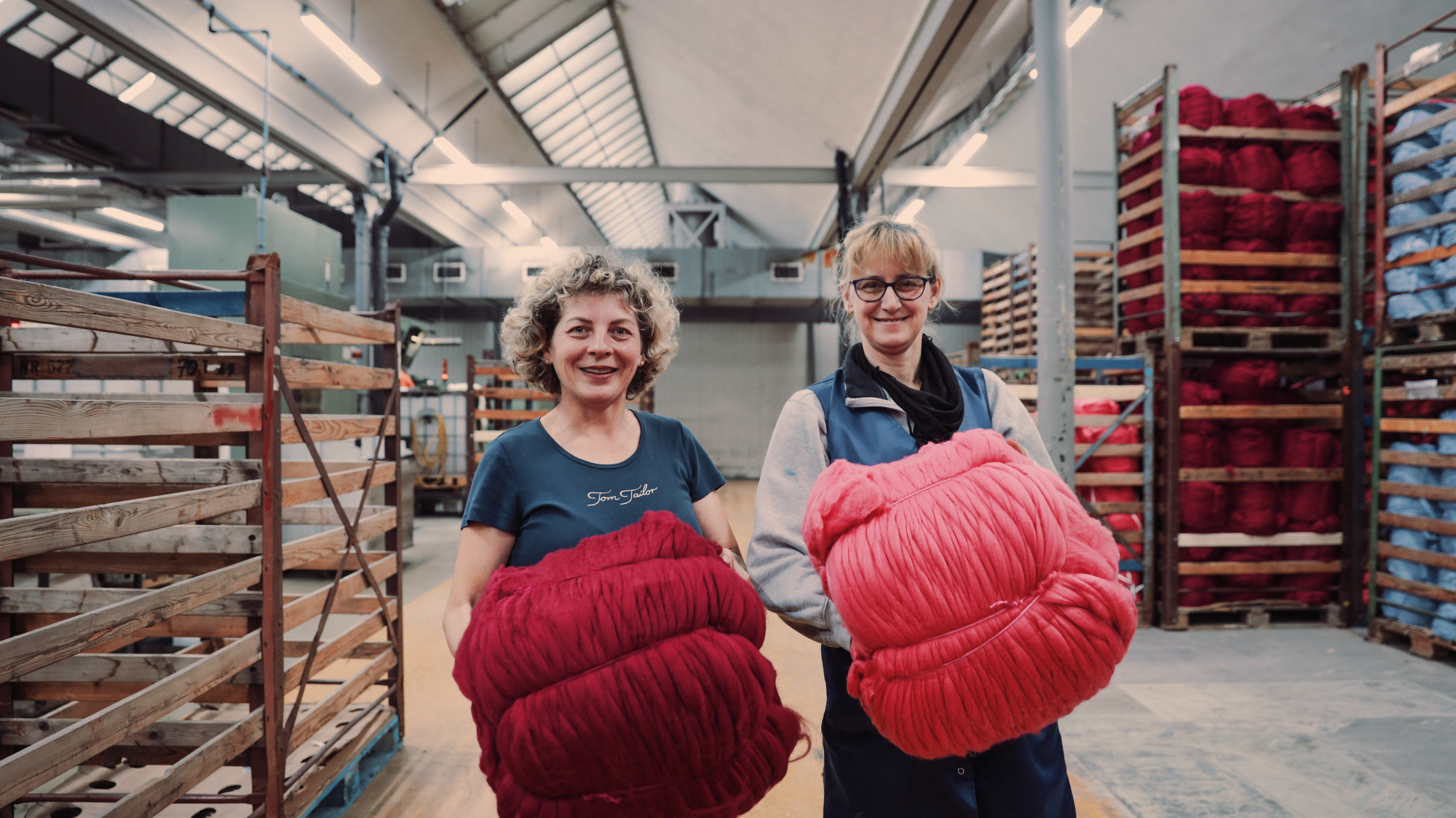
Satisfaction Beyond Expectations
Schoeller prides itself on satisfying customer needs and more. Its commitment extends to providing a reliable supply service, maintaining a readily available stock, and offering a wide range of innovative yarns. It stands ready to support the realisation of ideas and the achievement of objectives.
This shared success, underpinned by sustainability and excellence, safeguards not only the future of the company but also the livelihoods it supports. Schoeller Spinning Group is weaving a tapestry of sustainability, innovation, and customer satisfaction, benefitting all involved.
Eco-Conscious Evolution
...
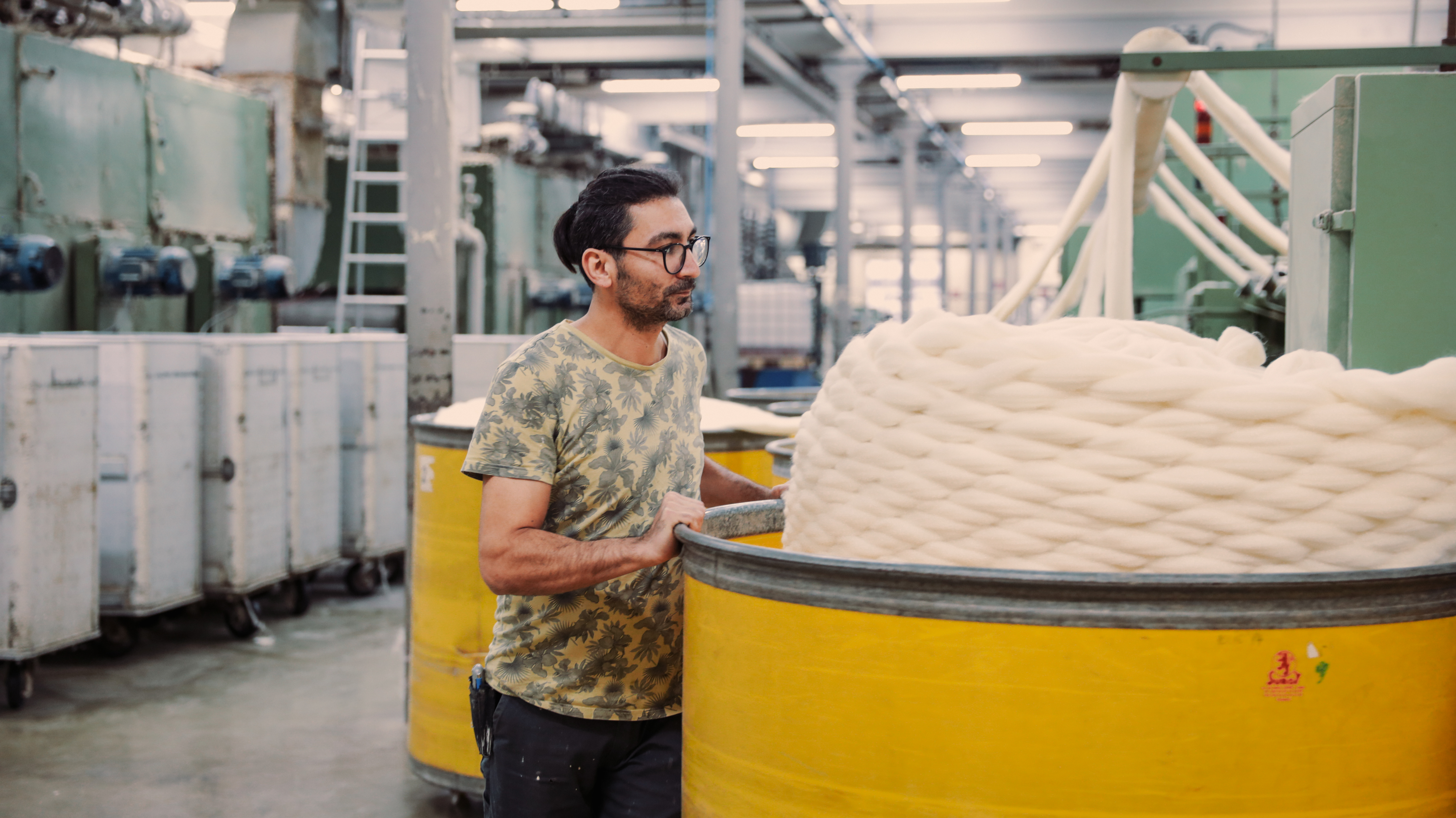
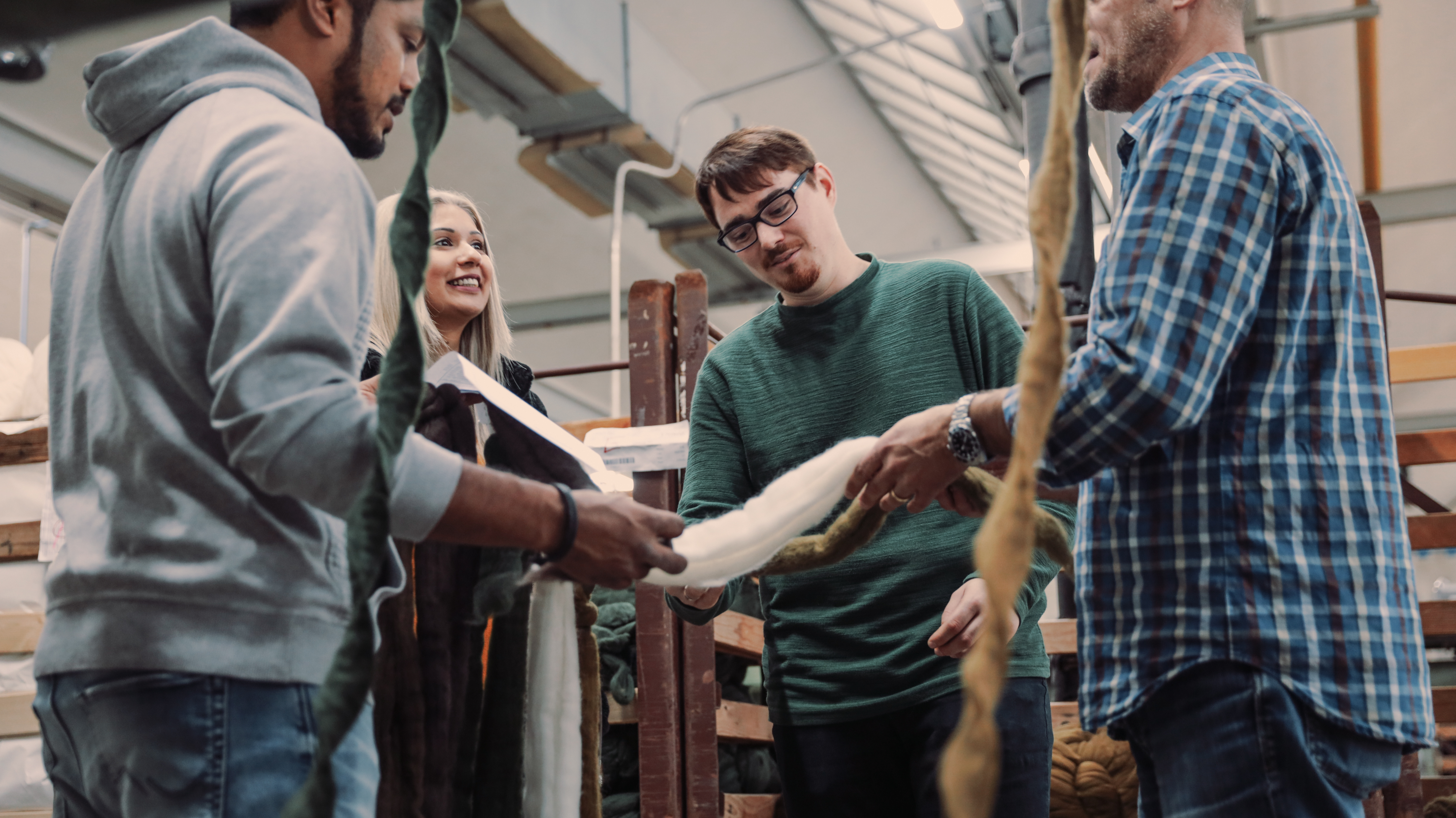
Case Study: SNOCKS
GOTS Case Study:
SNOCKS
CRAFTING A SUSTAINABLE FUTURE
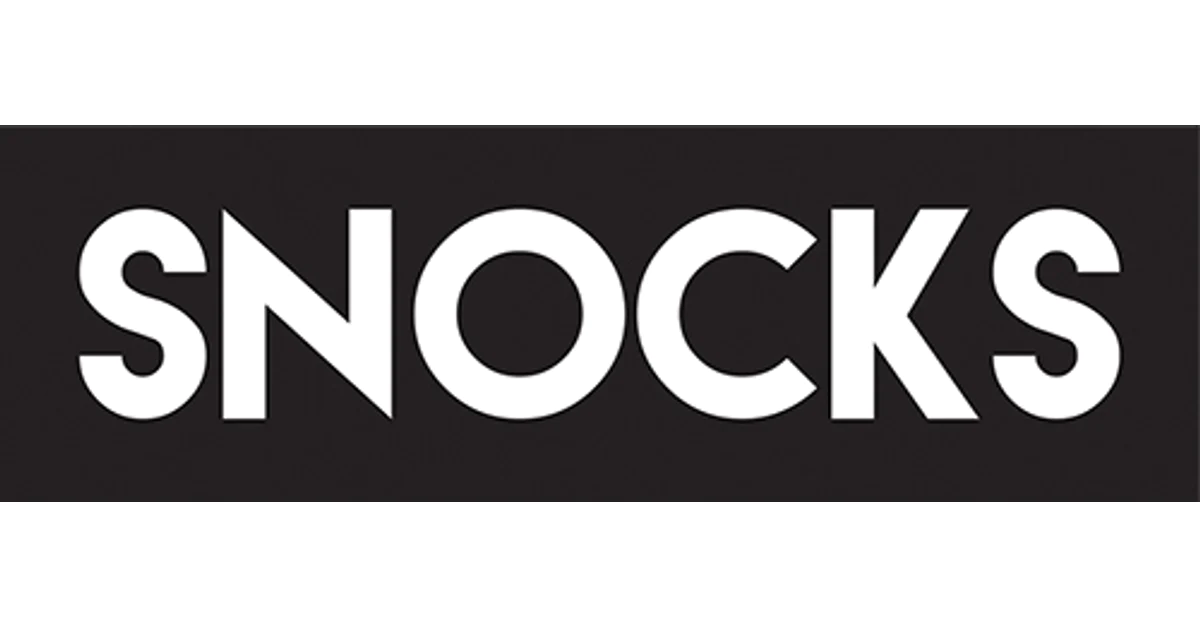
GOTS and SNOCKS - A Synergy of Values
Family business or big player? Socks or underwear? Stylish or simple? At SNOCKS, the answer is: definitely everything! This e-commerce company started with socks on Amazon and has since made a name for itself with basic and sportswear. The most important pillars have never changed: quality, comfort, and responsibility.
Transparency and Integrity as Cornerstones
SNOCKS is aware of the challenges in the production industry and understands that every manufacturing process leaves an ecological footprint. The company does not hastily label itself as 'sustainable', but instead chooses the path of transparency and honesty. It is constantly looking for ways to reduce ecological impacts and improve working conditions along the supply chain. And SNOCKS takes its customers along on this journey.

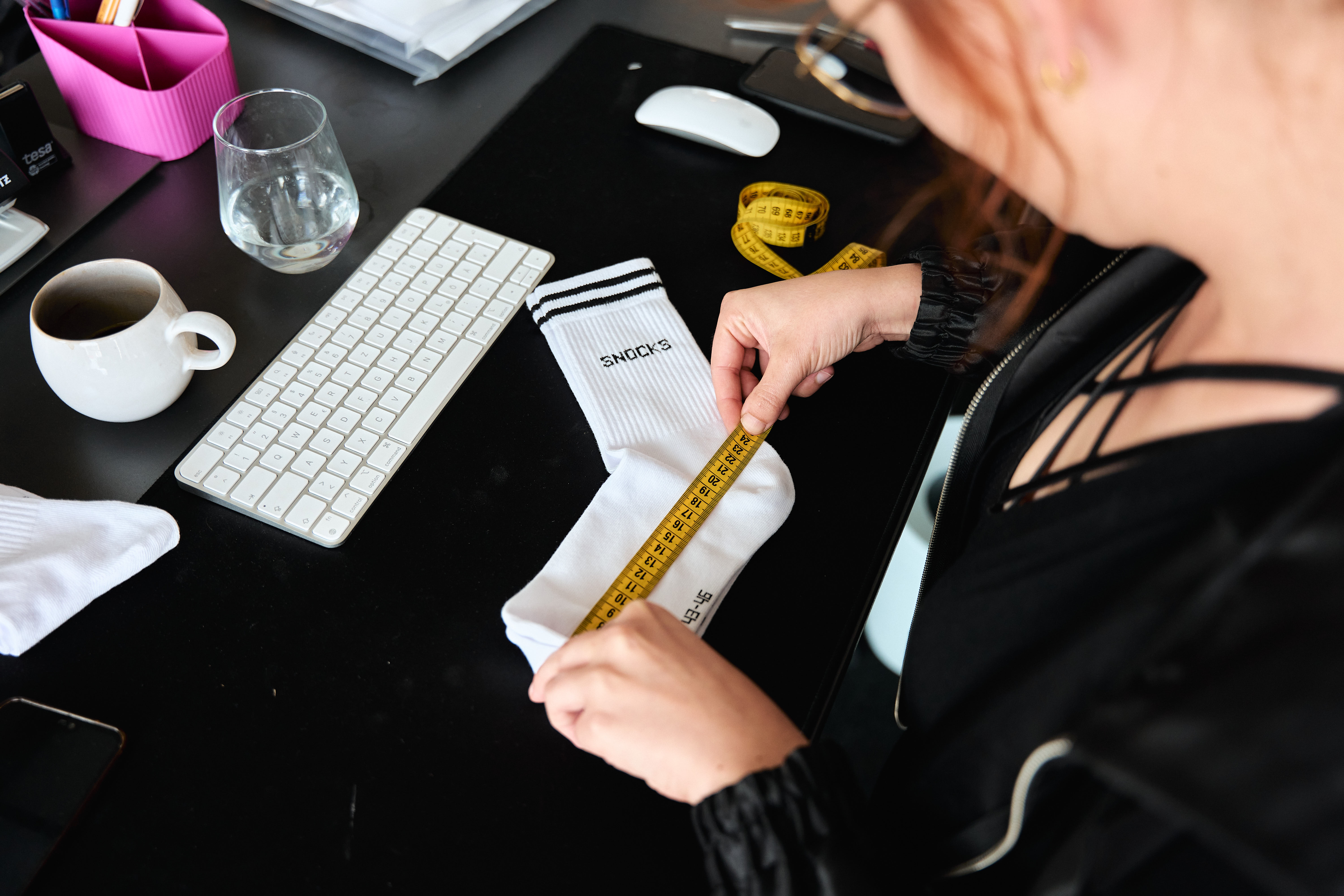
The Alliance between SNOCKS and GOTS
Through its partnership with GOTS, SNOCKS ensures that the processing of organic cotton meets the highest ecological and social standards. SNOCKS commits to improving working conditions for everyone involved in the supply chain. And the customers are informed about it. Because SNOCKS communicates its efforts, progress, and also challenges in a transparent and easily understandable way.
SNOCKS' Objectives: ambitious and clear
- Manufacturing timeless basics to reduce overproduction.
- Promoting fair working conditions.
- Using more environmentally friendly materials.
- Committing to transparent and clear communication.
SNOCKS and GOTS work hand in hand. Not just to show how things can be done differently, but to demonstrate how they can be done better. Together, they stand for a change that goes beyond mere concepts – it's about actions and about truly embodying values like quality, comfort, and honesty.

Case Study: Sunflag Tanzania
GOTS Case Study:
Sunflag Tanzania
A Commitment to Sustainability and Social Equity
Sunflag Tanzania Ltd, a leading knitwear manufacturer, produces a diverse range of garments, including men's, women's, kids', and baby wear. With a monthly capacity of 600,000 units, Sunflag combines convenience with conscientiousness by offering in-house printing and embroidery services. But what truly sets Sunflag apart is its dedication to sustainability and social equity.
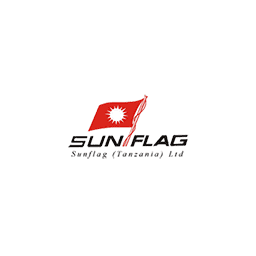
A Legacy of Excellence
Established in 1965, Sunflag has been a pioneer in the textile and clothing industry. It operates as a fully integrated company in Arusha, Tanzania, employing over 2700 individuals and serving international markets.
Rooted in a history of vision and innovation, Sunflag's founder, Mr. Satya Dev Bhardwaj, established the first knitting factory in Kenya in the 1930s. Sunflag stands as a testament to unwavering commitment to the best raw materials, cutting-edge machinery, skilled manpower, and top-tier customer service. Over the past seven decades, the Sunflag Group has expanded its operations globally, with manufacturing facilities and offices in various countries.
A Vertical Factory
Sunflag operates as a vertical factory, consolidating all production processes within one location. This approach minimises the environmental impact of its garments. To ensure that its manufacturing is as eco-friendly as possible, all water used in the production process is meticulously treated by an effluent treatment plant. This ensures the water is free from dyes or harmful chemicals that could damage the ecosystem.
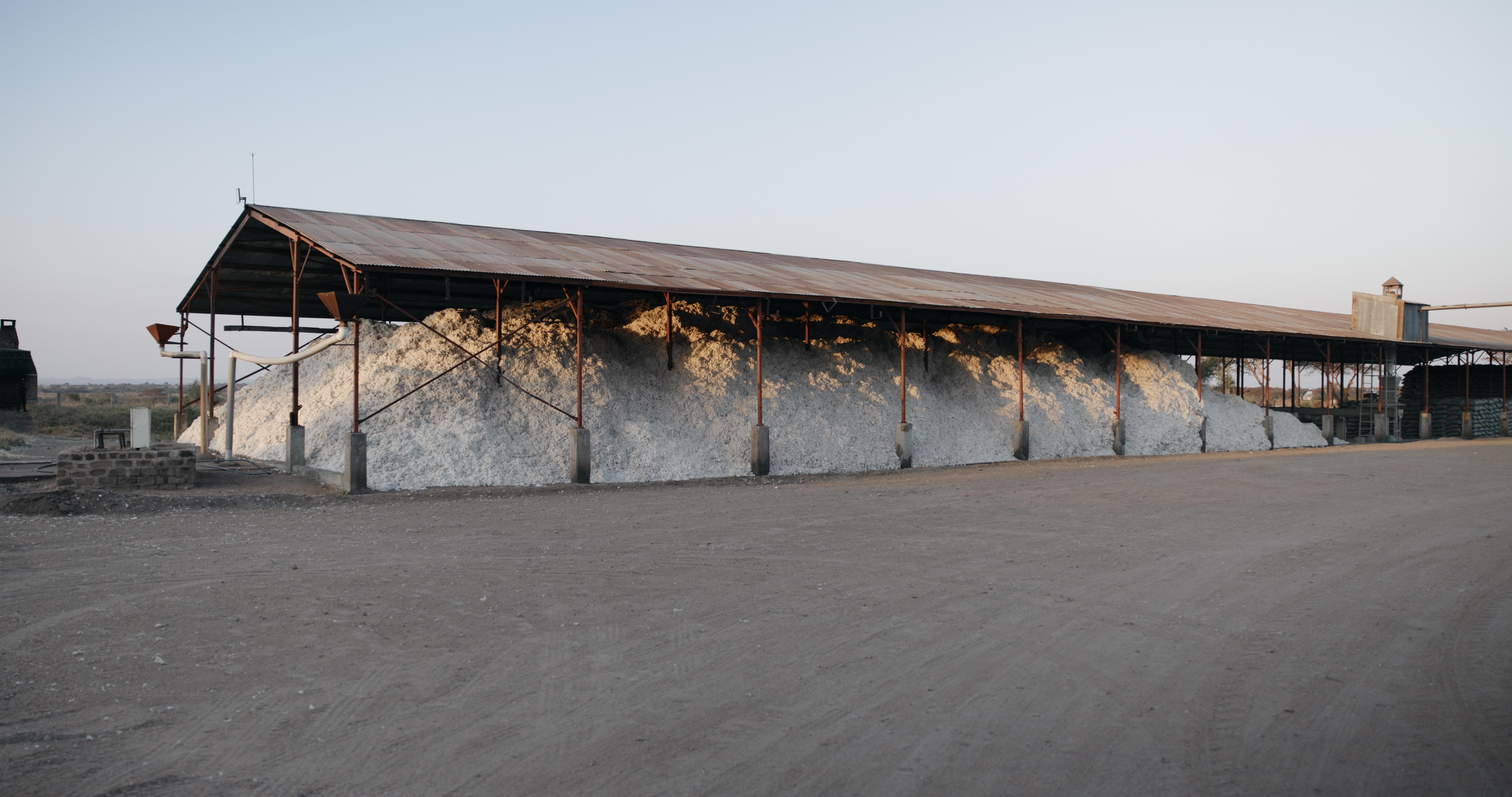
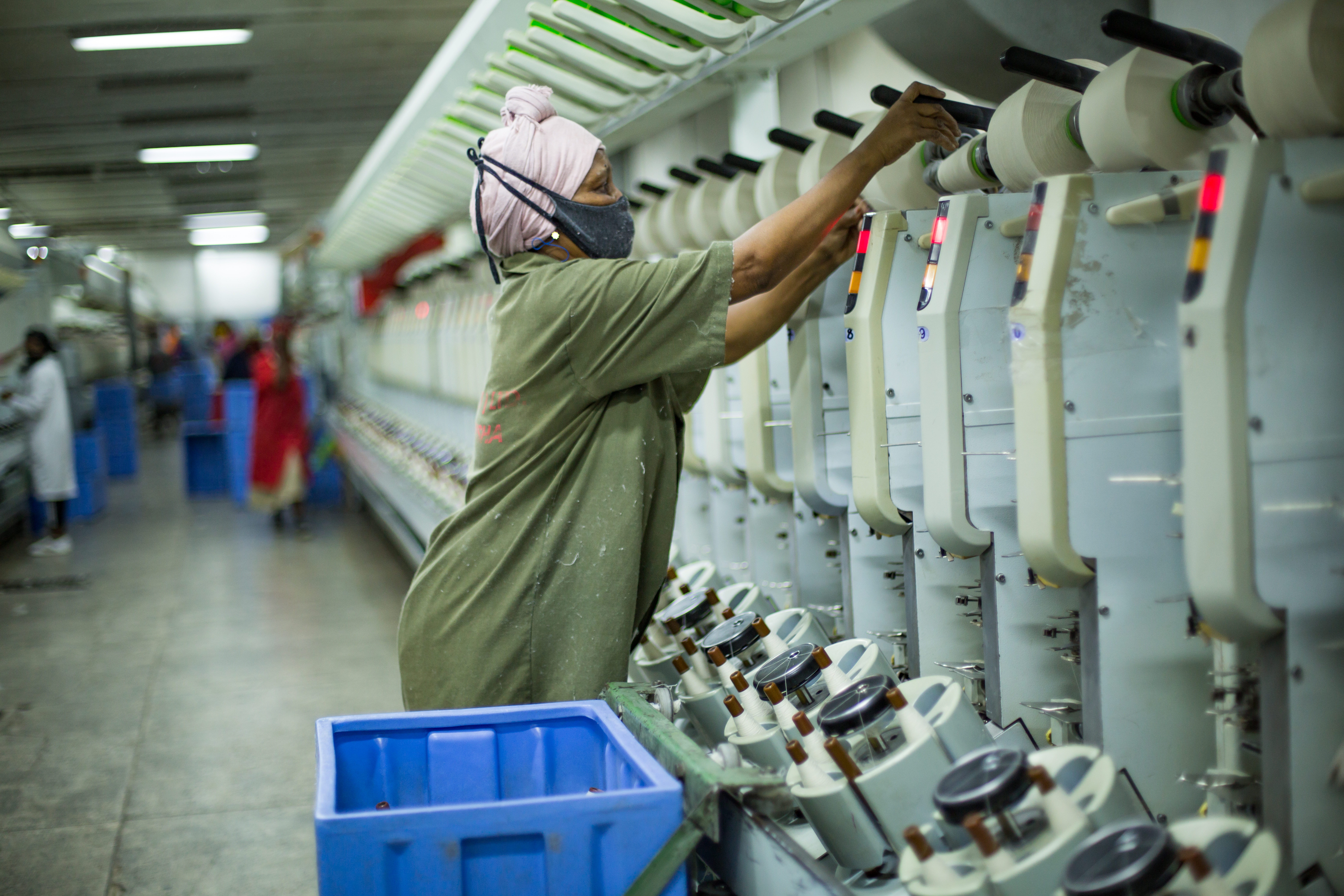
The Source of Organic Cotton
Sustainability and equality are central to Sunflag's operations in Africa. The company partners with organisations committed to supporting local farmers and businesses. All of Sunflag's cotton is rain-fed, reducing water consumption compared to irrigation-dependent regions. To transport the cotton from the farm to the ginnery, ox and cart are used, further lowering carbon emissions compared to traditional truck transportation in other countries.
Promoting Sustainable and Fair Farming
By championing sustainable and equitable farming practices, Sunflag ensures the highest quality of organic African cotton while investing in the future of communities across the Singida, Simiyu, and Tabora regions of Tanzania. The company’s support enables these regions to flourish.
Social Accountability
Sunflag Tanzania is deeply committed to social accountability, ensuring that all operations uphold national and international laws, and respect collective bargaining agreements. Its dedication extends to all parties involved in Its business, ensuring open and comprehensive communication. Through continuous monitoring, training, and improvement, Sunflag maintains and improves its Social Accountability Management System.
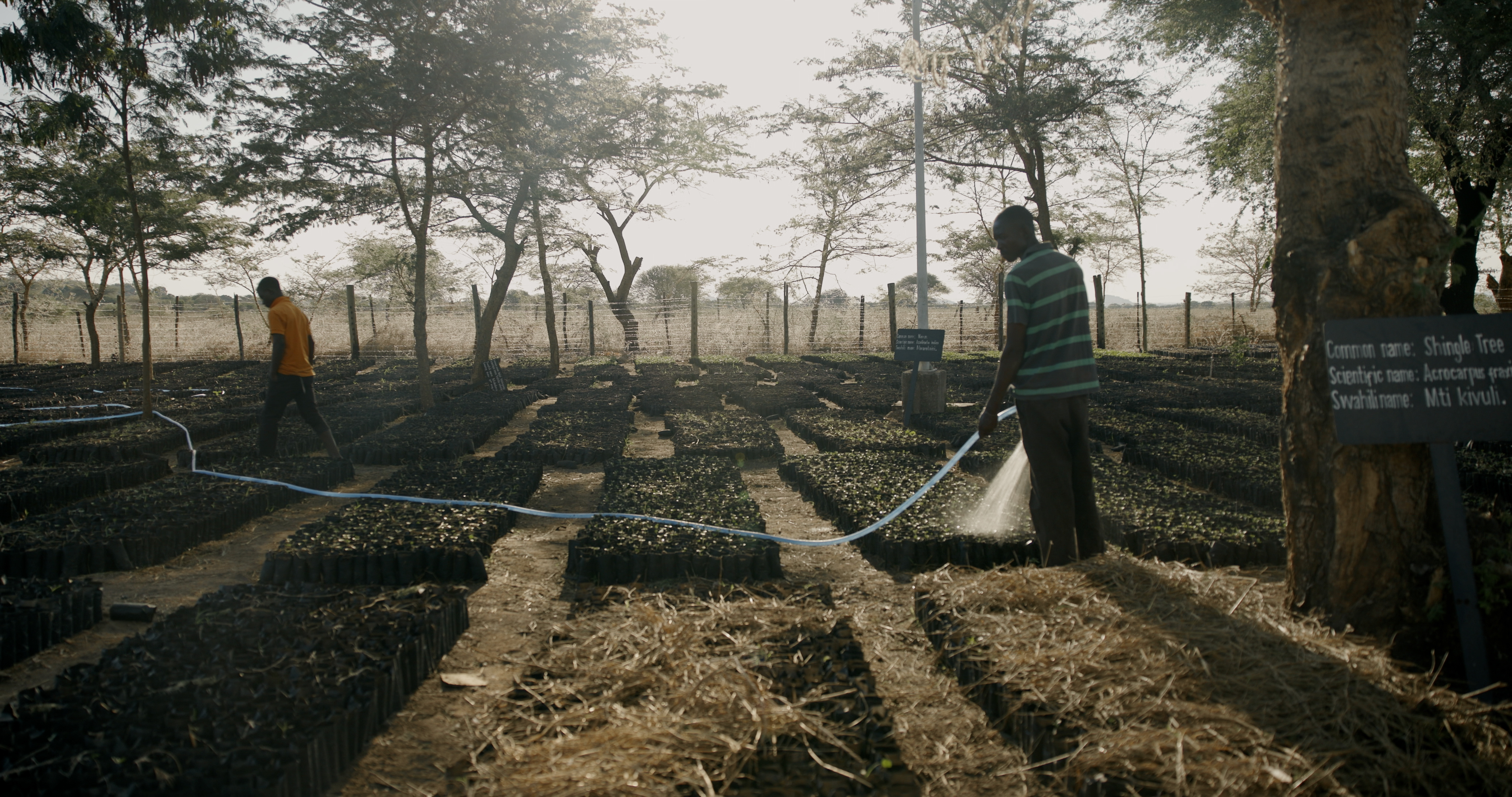
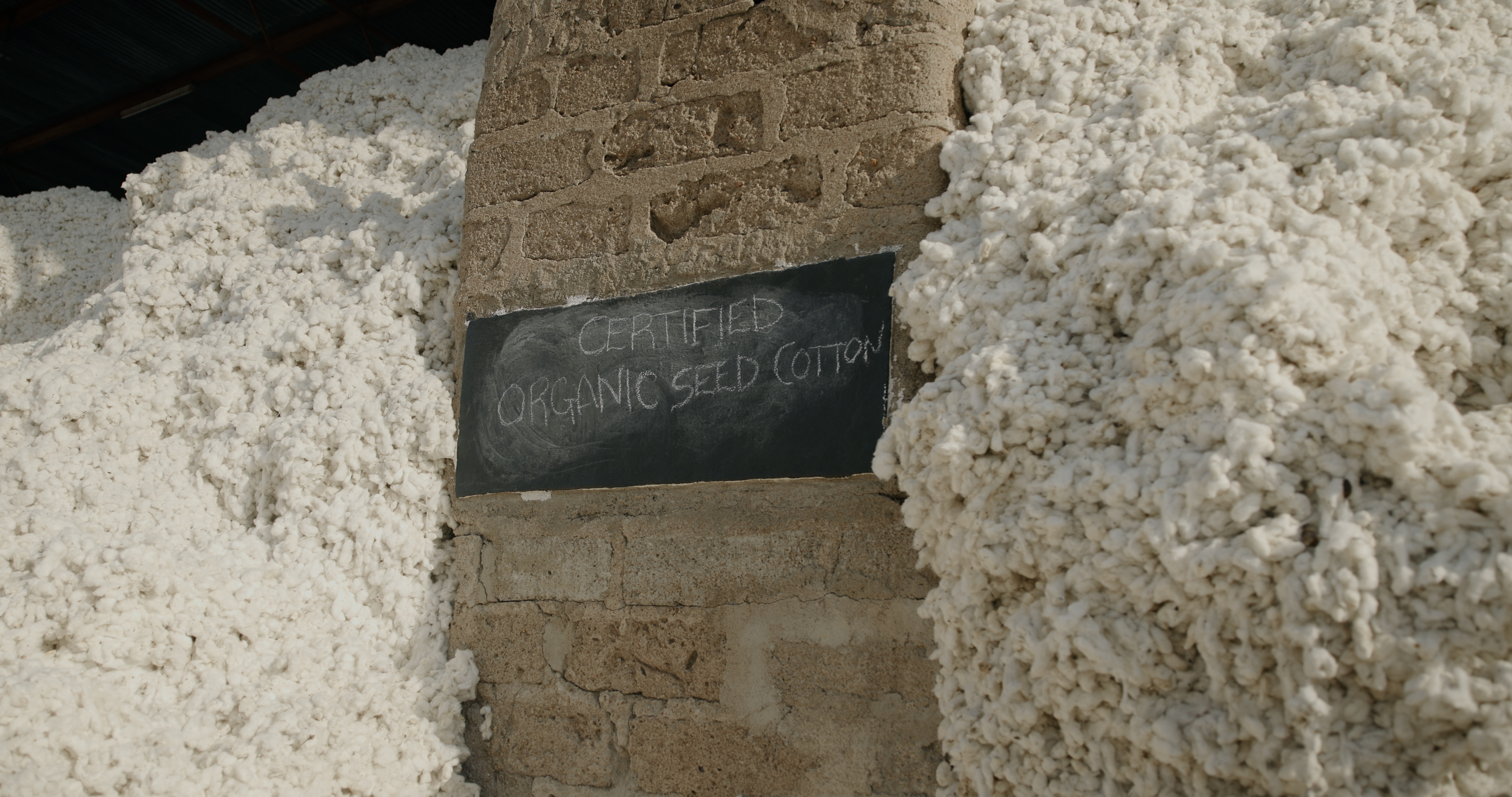
Step 5:
Prepare for the on-site audit
Prepare for the on-site audit
The Certification Body will inform you about the implementation and schedule an audit. It is important to prepare all necessary documentation and records for review, about which you will be informed by your Certification Body ahead of time. In case any non-compliances with the Standard are detected, these will be assessed and a timeline for correction will be provided to you.
Step 6:
Receive your GOTS Scope Certificate
Receive your GOTS Scope Certificate
Once you receive your GOTS Scope Certificate, you can leverage it to showcase your commitment to sustainable and ethical textile production. Your company will be found in the GOTS public database.
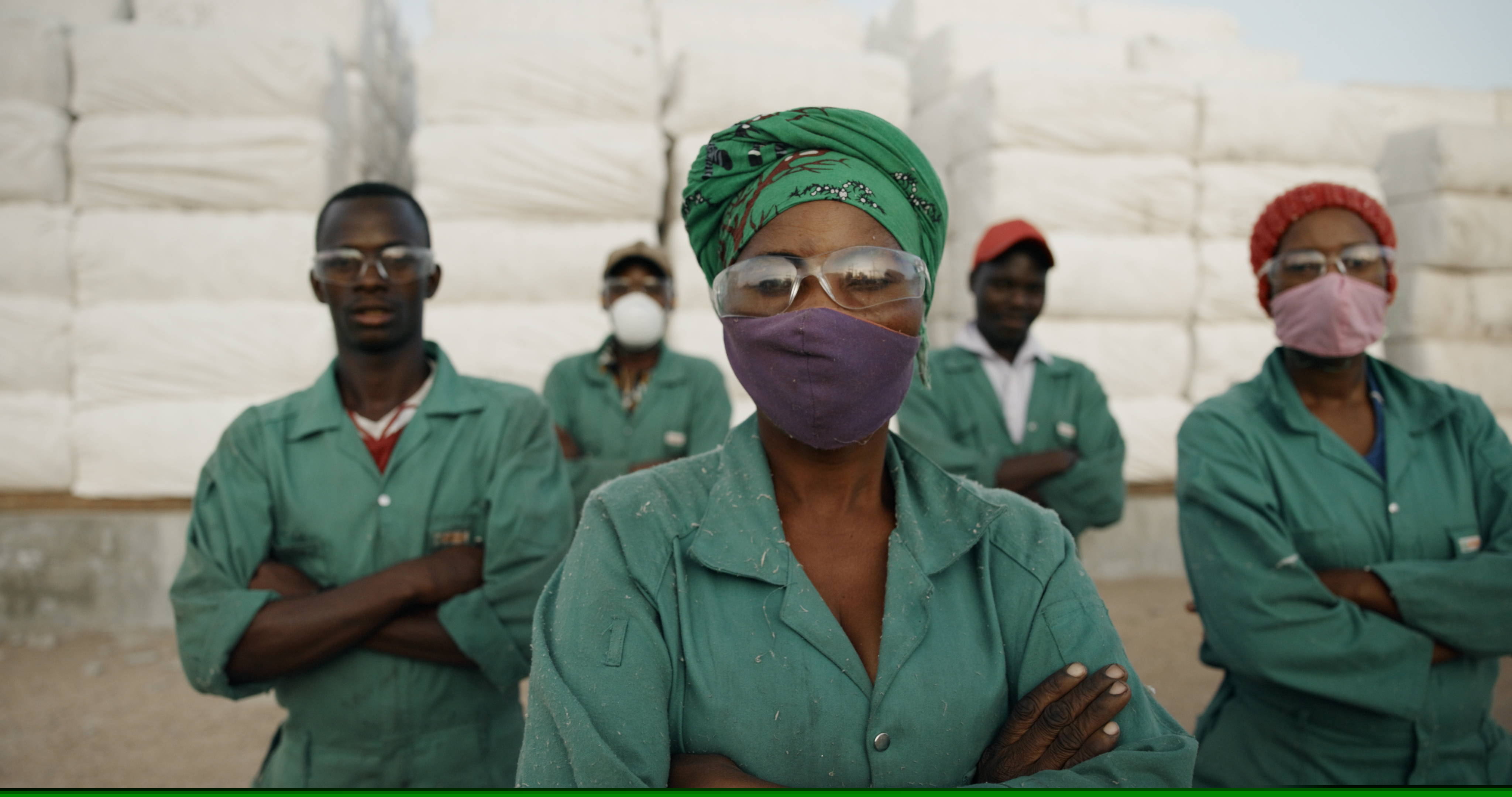
Contact
Please use the form below to contact us.
You may also email a GOTS Representative directly from the country nearest you here.
For any information about abuses of the GOTS logo or quality assurance system, please fill out the complaint form.
Write a message
*mandatory
Downloads
-
English
- Standard and Manual
- GRTS Draft 1.0 for Public Consultation-July 2025
- GRTS Manual Draft 1.0 for Public Consultation - Clean - July 2025
- GOTS Due Diligence Handbook for Auditors_ v1.0
- Manual for the Implementation of GOTS Version 7.2
- Change Log Manual for the Implementation of GOTS 7.2
- Change Log_ GOTS Due Diligence Handbook for Certified Entities v1.0 to 1.1
- GOTS Due Diligence Handbook for Certified Entities 1.1
- Q&A Guideline for the Transition to a New GOTS Version v. 2.0
- GOTS Version 7.0 (March 2023)
- Guidelines for the new structure of GOTS 7.0
Previous Versions:
- Manual for the Implementation of GOTS Version 7.1
- Change Log Manual for the Implementation of GOTS 7.1
- Change log GOTS 6.0 to GOTS 7.0
- GOTS Due Diligence Handbook for Certified Entities 1.0.pdf
- Change log manual for the implementation GOTS 6.0 to GOTS 7.0
- Manual for Implementation Version 7.0 (March 2023)
- GOTS Version 6.0 (March 2020)
- GOTS Version 5.0 (2017)
- Manual for Implementation Version 6.0 (March 2020)
- Manual for Implementation Version 5.0 (2017)
- Summary of relevant Changes from GOTS 5.0 to 6.0
- Guidance Note for Implementation of GOTS Version 6.0
- GOTS Version 4.0 (2014)
- Manual for Implementation Version 4.0 (2014)
- GOTS Version 3.0 (2011)
- Manual for Implementation Version 3.0 (2011)
- GRTS Draft 1.0 for Public Consultation-July 2025
- Licensing and Labelling
- Retailer Declaration for the use of GOTS Signs v 3.0 Aug 2025
- Revision of GOTS fees March 2024
- Conditions for the Use of GOTS Signs Vers. 3.1 (18 Oct 2021)
- Change Log Conditions Use GOTS Signs Vers. 3.1 (18 Oct 2021)
- Labelling Release for GOTS Goods
- Labelling Release for GOTS Additives
- Labelling Release GOTS Goods (word document)
- Labelling Release GOTS Additives (word document)
Previous Versions:
- Retailer Declaration for the use of GOTS Signs v 3.0 Aug 2025
- GOTS Annual Reports
Previous Versions:
- GOTS Annual Report 2023
- GOTS Annual Report 2022
- GOTS Annual Report 2021
- GOTS Annual Report 2020
- GOTS Annual Report 2019
- GOTS Annual Report 2018
- GOTS Annual Report 2017
- GOTS Annual Report 2016
- GOTS Annual Report 2015
- GOTS Annual Report 2014
- GOTS Annual Report 2013
- GOTS Annual Report 2012
- GOTS Annual Report 2011
- GOTS Annual Report 2023
- Certificate Policies and Templates
- Certification and Operating Parameters for GOTS Certified Gins V 2.1 - Dec 2025
- Procedure For Certification of CSCS v 1.0
- GOTS Geographic Classification Version 1.1
- Materials, Processes & Products Classification Vers. 1.1 (Sept. 2024)
- GOTS Advisory on Accessory Approval under GOTS
- Provision for issuance of GOTS transcation certificates for retail goods (4 Sept 2023)
- GOTS measures for the regions affected in the Southeast Turkey and surrounding regions (8 Feb 2023)
- Advisory on Policy for the Issuance of Transaction Certificates v. 3.0 (5 Sept 2022)
- List of laboratories that can carry out qualitative GMO testing (14 July 2023)
- Guidelines to Virtual Audits Related to COVID-19 v. 5.0 (5 Jan 2022)
- Policy for the Issuance of Scope Certificates v. 3.0 (6 Oct 2021)
- Policy for the Issuance of Transaction Certificates v. 3.0 (6 Oct 2021)
- Scope Certificate Template v. 3.0 (6 Oct 2021)
- Transaction Certificate Template v. 3.0 (6 Oct 2021)
- Changelog for VA guidelines v. 2.0 to 3.0 (5 March 2021)
- Guidance Note LETIS Termination Effects V. 1.1 (Dec 2020)
- Policy for Change or Migration of Certification Body V. 1.1 (Nov 2020)
- Policy for Issuing Letters of Approval for GOTS Additives (Sep. 2020)
- Template for Issuing Letters of Approval for Colourants/Textile Auxiliaries (Sep. 2020)
- Template for Issuing Letters of Approval for Accessories (Sep. 2020)
Previous Versions:
- Certification and Operating Parameters for GOTS Gins v2.0 - Sep 2025
- Certification and Operation Parameters for GOTS Certified Gins v. 1.1 (4 Nov 2022)
- Certification and Operation Parameters for GOTS Certified Gins v. 1.0 (4 Oct 2022)
- Materials, Processes & Products Classification Vers. 1.0 (May 2021)
- GOTS Geographic Classification Vers. 1.0 (6 October 2021)
- GOTS Measures COVID-19 v. 4.0 (27 April 2021)
- Virtual Audits v 3.0 (5 March 2021)
- Virtual Audits v 2.0 (23 June 2020)
- Scope Certificate Policy V. 2.1 (Dec. 2019)
- Scope Certificate Template V. 2.1 (Dec. 2019)
- Annex 2 to Scope Certificate Policy (Sep. 2019)
- Transaction Certificate Policy V. 2.1 (Dec. 2019)
- Transaction Certificate Template V. 2.1 (Dec. 2019)
- Policy for Issuing Transaction Certificates (2017)
- Transaction Certificate Template (2017)
- Virtual Audits v 1.0 (7 April 2020)
- GOTS Measures COVID19 Update
- Changelog to VA guidelines v.1.0 to 2.0
- GOTS Measures On COVID 19
- Policy for Issuing Scope Certificates (2016)
- Scope Certificate Template
- Policy for Approval Letters (2014)
- Template for Issuing Letters of Approval (2014)
- Certification and Operating Parameters for GOTS Certified Gins V 2.1 - Dec 2025
- Revision Process
- GOTS V 8.0 2nd Revision Draft
- Manual for the Implementation of GOTS V 8.0 2nd Revision Draft
- 1st Public Consultation Inputs - SRC Decisions - GOTS 8.0
- Template for comments - 2nd revision drafts
- Consolidated list of inputs received during the first consultation period with decisions by the GOTS SRC
- Changelog for 2nd revision draft (from 1st revision draft) - Manual
- Changelog for 2nd revision draft (from 1st revision draft) - Standard
- Implementation Manual v 7.0 - 2nd revision draft
- GOTS v 7.0 - 2nd revision draft
- GOTS 7.0 Revision Draft v. 1.0
- Change Log Revision Draft v.1.0 GOTS 7.0
- Implementation Manual 7.0 Draft v. 1.0
- Change Log Revision Draft v.1.0 Implementation Manual 7.0
- Template for proposing changes Revision 7
- GOTS Stakeholder Identification v-1.0 Nov 2021
- Standard Setting Procedure v-1.0 Nov 2021
- ToR Standard Revision Committee v-1.0 Nov 2021
- GOTS V 8.0 2nd Revision Draft
- Governance
- Advisory on Certification
- Position Papers
- Requirements for Certification Bodies
- Approval Procedure and Requirements for Certification Bodies Version 4.0
- Change Log - Approval Procedure and Requirements for Certification Bodies 4.0
- Approval Procedure and Requirements for Certification Bodies v. 3.0
- Change Log APRCB v. 2.0 to v. 3.0
- Moratorium on new Certification Bodies (pdf)
- GOTS Accreditation System for Certifiers
- Application Form for GOTS Accreditation
- Approval Procedure and Requirements for Certification Bodies Version 4.0
- Change or Migration of Certification Body
- Complaint Procedure
- GOTS Flyers
- GOTS Fact Sheets
- Why GOTS - Your Key to Achieving Compliance
- Why GOTS - Control of Chemicals in GOTS Goods
- Why GOTS - How Official Bodies, Organisations and Institutions support the Global Organic Textile Standard
- Why GOTS - How Companies Benefit with GOTS Certification
- Why GOTS - How Consumers Benefit from GOTS
- Why GOTS - How GOTS Meets Legal Requirements and Demands of NGOs
- Why GOTS - Your Key to Achieving Compliance
- Simple Show Clip
- Info poster on Organic Wool
- Security Advice Adverts
- Security Advice Adverts for Retailers: 210x99 GOTS
- Security Advice Adverts for Retailers: 105x297 GOTS
- Security Advice Adverts for Retailers: 105x148 GOTS
- Security Advice Adverts for Consumers: 210x148 GOTS
- Security Advice Adverts for Consumers: 210x99 GOTS
- Security Advice Adverts for Consumers: 105x297 GOTS
- Security Advice Adverts for Consumers: 105x148 GOTS
- Security Advice Adverts for Retailers: 210x99 GOTS
- Approved Consultants
- Derogations
- Standard and Manual
-
German / Deutsch
- GOTS Dokumente Deutsch
- Nutzungsbedingungen für die GOTS Zeichen v. 3.1 (Okt 2021)
- Liste der Änderungen - Nutzungsbedingungen GOTS Zeichen v. 3.1
Vorherige Versionen:
- Manual for the Implementation of GOTS Version 7.1 _DE
- GOTS Version 6.0 - Deutsch (2020)
- Manual for Implementation Version 6.0 / Manual für die Umsetzung (2020)
- Summary of relevant Changes from GOTS 5.0 to 6.0 / Liste der relevanten Änderungen 5.0 auf 6.0
- GOTS Version 5.0 - Deutsch (2017)
- GOTS Version 4.0 - Deutsch (2014)
- Manual for Implementation Version 4.0 (2014) / Manual für die Umsetzung 4.0 (2014)
- GOTS Version 3.0 - Deutsch (2011)
- Manual for Implementation Version 3.0 (2011) / Manual für die Umsetzung 3.0 (2011)
- Nutzungsbedingungen für die GOTS Zeichen v. 3.0 (Juli 2021)
- Liste der Änderungen v 2.0 - Nutzungsbedingungen GOTS Zeichen v. 3.0
- GOTS Licensing and Labelling Guide (2017; updated 2018) / Lizensierung- und Labelling Leitfaden (2017, aktualisiert 2018)
- GOTS Licensing and Labelling Guide (2016) / Lizensierung- und Labelling Leitfaden (2016)
- GOTS Licensing and Labelling Guide (2015) / Lizensierung- und Labelling Leitfaden (2015)
- Nutzungsbedingungen für die GOTS Zeichen v. 3.1 (Okt 2021)
- GOTS Flyers
- Anzeigen Sicherheitshinweise
- Sicherheitshinweis für Einzelhändler: 210x148 GOTS
- Sicherheitshinweis für Einzelhändler: 210x99 GOTS
- Sicherheitshinweis für Einzelhändler: 105x297 GOTS
- Sicherheitshinweis für Einzelhändler: 105x148 GOTS
- Sicherheitshinweis für Verbraucher: 210x148 GOTS
- Sicherheitshinweis für Verbraucher: 210x99 GOTS
- Sicherheitshinweis für Verbraucher: 105x297 GOTS
- Sicherheitshinweis für Verbraucher: 105x148 GOTS
- Sicherheitshinweis für Einzelhändler: 210x148 GOTS
- Simple Show Clip
- GOTS Dokumente Deutsch
-
French / Français
- Documentes en Français
Previous Versions:
- Manual for Implementation 4.0 (2014) / Manuel de Mise en Oeuvre 4.0 (2014)
- GOTS Version 4.0 - French (2014)
- Manual for Implementation 5.0 (2017) / Manuel de Mise en Oeuvre 5.0 (2017)
- GOTS Version 5.0 - French (2017)
- Manual for Implementation 6.0 (2020) / Manuel de Mise en Oeuvre 6.0 (2020)
- GOTS Version 6.0 - French (2020)
- Manual for Implementation 4.0 (2014) / Manuel de Mise en Oeuvre 4.0 (2014)
- Plus de Documents
- Simple Show Clip
- Documentes en Français
-
Italian / Italiano
-
Spanish / Español
- Documentos en Español
- Guidelines new structure GOTS 7.0_ES
- Change Log Manual for the Implementation of GOTS V7.0_ES
- Manual for the Implementation of GOTS V7.0 _ES
- GOTS 7.0 _ES
Previous Versions:
- Manual for Implementation (2011) / Manual para Implementacion (2011)
- GOTS Version 3.0 - Spanish (2011)
- Manual for Implementation (2014) / Manual para Implementacion (2014)
- GOTS Version 4.0 - Spanish (2014)
- Manual for Implementation (2017) / Manual para Implementacion (2017)
- GOTS Version 5.0 - Spanish (2017)
- Manual for Implementation 6.0 (2020) / Manual para Implementacion 6.0 (2020)
- GOTS Version 6.0 - Spanish (March 2020)
- Change Log GOTS 6.0 to 7.0_ES
- Guidelines new structure GOTS 7.0_ES
- Más Documentos
- Simple Show Clip
- Documentos en Español
-
Chinese / 中文
- 在中國的文件
- 认证机构变更或迁移政策V1.0_中文翻译
- GOTS Implementation Manual Version 7.0-Chinese/English GOTS7.0 实施手册英中双语版
- GOTS Version 7.0 - Chinese/English GOTS7.0 标准英中双语版
- Conditions for the Use of GOTS Signs Vers. 3.0 (23 July 2021)_Chinese
- Change Log Conditions Use GOTS Signs Vers. 3.0_Chinese
Previous Versions:
- Manual, Issue 1st March 2011-Chinese/English 全球有机纺织品标准实施手册(中文/英文)
- GOTS Version 3.0-Chinese/English 全球有机纺织品标准GOTS 3.0版本(中文/英文)
- Manual, Issue 1st March 2014-Chinese/English 全球有机纺织品标准实施手册(中文/英文)
- GOTS Version 4.0-Chinese/English 全球有机纺织品标准GOTS 4.0版本(中文/英文)
- Manual Version 5.0, Issue 1st March 2017-Chinese/English 全球有机纺织品标准实施手册(中文/英文)
- GOTS Version 5.0-Chinese/English 全球有机纺织品标准GOTS 5.0版本(中文/英文)
- List of Relevant Changes 6.0 -Chinese/English GOTS 6.0 版本变更列表
- GOTS Implementation Manual Version 6.0-Chinese/English 全球有机纺织品标准GOTS 6.0版本实施手册(中文/英文)
- GOTS Version 6.0 - Chinese/English 全球有机纺织品标准GOTS 6.0版本(中文/英文)
- 认证机构变更或迁移政策V1.0_中文翻译
- 宣传单格式仅供下载,请勿印刷。
- GOTS标签使用要求
- Simple Show Clip
- 在中國的文件
-
Japanese / 日本語
- 日本語ドキュメント
- > Change Log Conditions Use GOTS Signs Vers. 3.1_EN/JP
- > Conditions for the Use of GOTS Signs Vers. 3.1 (18 Oct 2021)_EN/JP
Previous Versions:
- > (Manual for Implementation) GOTS 3.0 実施マニュアル (2011)
- > GOTS バージョン3.0 (2011)
- > GOTS 3.0からGOTS 4.0への変更された事項のリスト (Relevant Changes from Veersion 3.0 to 4.0)
- > (Manual for Implementation) GOTS 4.0 実施マニュアル (2014)
- > GOTS バージョン4.0 (2014)
- > GOTS 4.0からGOTS 5.0への変更された事項のリスト(Relevant Changes from Version 4.0 to 5.0)
- > (Manual for Implementation) GOTS 5.0 実施マニュアル (2017)
- > GOTS バージョン5.0 (2017)
- > Relevant Changes GOTS 5.0からGOTS 6.0への変更された事項のリスト
- > (Manual for Implementation) GOTS 6.0 実施マニュアル
- > GOTS バージョン6.0
- > Licensing and Labelling Guide 2009 ライセンスとラベリングの手引き(2009版)
- > Licensing and Labelling Guide 2015 ライセンスとラベリングの手引き(2015版)
- > Licensing and Labelling Guide 2017 ライセンスとラベリングの手引き(2017版)
- > Change Log Conditions Use GOTS Signs Vers. 3.0_EN/JP
- > Conditions for the Use of GOTS Signs Vers. 3.0 (23 July 2021)_EN/JP
- > Change Log Conditions Use GOTS Signs Vers. 3.1_EN/JP
- インフォメーションフライヤー
- 認証書(SCとTC)について
- よくあるご質問
- GOTS 製品に関する注意事項
- Simple Show Clip
- 日本語ドキュメント
-
Danish / Dansk
-
Korean / 한국어
-
Turkish / Türkçe
- Türkçe Dokümanlar
- GOTS Broşürleri
- GOTS KULLANIM ŞARTLARI
- LOGO KULLANIM ŞARTLARI TÜKETİCİLER İÇİN 210x148
- LOGO KULLANIM ŞARTLARI TÜKETİCİLER İÇİN 210x99
- LOGO KULLANIM ŞARTLARI TÜKETİCİLER İÇİN 105x297
- LOGO KULLANIM ŞARTLARI TÜKETİCİLER İÇİN 105x148
- LOGO KULLANIM ŞARTLARI PERAKENDECİLER İÇİN 210x148
- LOGO KULLANIM ŞARTLARI PERAKENDECİLER İÇİN 210x99
- LOGO KULLANIM ŞARTLARI PERAKENDECİLER İÇİN 105x297
- LOGO KULLANIM ŞARTLARI PERAKENDECİLER İÇİN 105x148
- LOGO KULLANIM ŞARTLARI TÜKETİCİLER İÇİN 210x148
- Simple Show Clip
econews
Reach out to the GOTS Representative in your region
GOTS has appointed several representatives who operate in a global network to promote GOTS in their respective regions and around the world.
Find the Representative in your region
Featured on the GOTS Youtube Channel:
Faces From Field to Fashion is a behind-the-scenes journey to the heart of the Global Organic Textile Standard (GOTS), and an introduction to the sights, sounds, and faces behind every GOTS product. Representing more than 4 million employees working in GOTS certified facilities around the world, eight individuals give us a glimpse into their lives and tell us how they have been impacted by GOTS in unscripted and candid video portraits. Visit global-standard.org/faces for more information. Your choice matters: Say no to Greenwashing. Say yes to GOTS.
Follow Us on LinkedIn & Instagram
Feedback for Reclaim Trust - GOTS UK Roundtable
Thank you for attendance at the GOTS & Sustainable Fashion Week Reclaim Trust Conference and Roundtable.
We hope you enjoyed the day!
Please submit your feedback using this brief form:
General Terms and Conditions (GTC) for GOTS Shop-Finder
-
Definitions
- „Global Standard“ shall mean the Global Standard gemeinnützige GmbH, Rotebühlstr. 102, 70178 Stuttgart, Germany.
- “GOTS” refers to the Global Organic Textile Standard. A worldwide textile processing standard for organic fibres, including ecological and social criteria. The full text of the GOTS can be found at https://global-standard.org/downloads.
- “GOTS Marks” are the trademarks owned worldwide by Global Standard.
- “GOTS Products” are products that are properly certified and labelled in accordance with the Global Organic Textile Standard and corresponding regulations for the use of GOTS Marks, which can be found at https://global-standard.org/downloads.
- “GOTS Shop-Finder” is a publicly accessible database published by Global Standard on their website, which provides information about retailers that offer GOTS Products to consumers and the general public.
- “Retailer for GOTS Products” is a retailer that offers GOTS Products in accordance with these GTC.
- “Contractor” is an entrepreneur entering into a contract about a listing in the GOTS Shop-Finder with Global Standard.
-
Scope of GTC
- These GTC for the GOTS Shop-Finder apply exclusively between Global Standard and the Contractor; opposing or from these GTC deviating conditions of the Contractor are not recognized by Global Standard, unless Global Standard has expressly agreed to their validity.
- These GTC only apply in regard to a listing of the Contractor in the GOTS Shop-Finder.
- Global Standard is entitled to make reasonable adjustments to these GTC from time to time in case of a legitimate interest on our part. Such a legitimate interest may be changes in the law, changes in case law or changes in economic conditions. Global Standard will inform the Contractor at least 30 calendar days before the planned changes to the GTC shall come into force via E-Mail, about the specific changes and when they shall come into force. The Contractor may object within a period of 30 days to the changes via E-Mail. If the Contractor does not object to the changes these will come into force to the date Contractor was informed about. Should the Contractor object to the changes in the GTC, the contract shall be continued under the previous conditions unless a continuation under the previous conditions is not deemed reasonable for us. In this case we are entitled to terminate the contract with the Contractor.
-
Subject of the contract
- The subject of the contract is a listing of the Contractor as a Retailer of GOTS Products in the GOTS Shop-Finder for the duration of the contract for a fee to be paid by Contractor.
- The listing contains the name and the address of the Contractor. Any additional information the Contractor can and may provide for the GOTS Shop-Finder is only voluntary and not subject of the contractual obligations of Global Standard. Such options for additional information may be changed by Global Standard at any time.
-
Conclusion of Contract
- The listing in the GOTS Shoop-Finder is only offered to Retailers of GOTS Products.
- The offer of Global Standard to be listed does not constitute any binding offer, but an invitation to submit an offer by the Contractor.
- The Contractor's order for a listing is a binding offer to conclude a contract. Global Standard is entitled to accept this offer within two weeks. The acceptance will be under the condition that Contractor meets the requirements and obligations in para. 5. The Acceptance may be done by e-mail or other notification in writing or by issuing of an invoice.
-
Requirements and Obligations of the Contractor
- To be listed as a Retailer of GOTS Products in the GOTS Shop-Finder the Contractor guarantees that he meets the following requirements during the time of the contract:
- Contractor fulfills all applicable requirements of the GOTS and the conditions of use of GOTS Marks in the version applicable at the time.
- Contractor continuously offer GOTS Products for sale in the categories he is listed in the GOTS Shop-Finder.
- Contractor does not offer any products that infringe GOTS Marks or other intellectual property rights of Global Standard or use GOTS Marks for advertising purposes in an infringing way.
- Contractor does not use any reference to Global Standard or GOTS or GOTS Marks in a misleading or otherwise unlawful way.
- Contractor is obliged to provide correct information for the listing and keep his data in the GOTS Shop-Finder up to date for the duration of the contract.
- Contractor is obliged to pay the fee for the GOTS Shop-Finder listing.
- To be listed as a Retailer of GOTS Products in the GOTS Shop-Finder the Contractor guarantees that he meets the following requirements during the time of the contract:
-
Control and breach of obligations
- Global Standard may request documents from the Contractor to verify that the Contractor meets the requirements in para. 1.1., 5.1.2., 5.1.3. and 5.1.4. and to verify the information in the listing as provided by the Contractor. Upon such request Contractor will provide such documents (e.g. transaction certificates of the GOTS products, pictures of Contractor’s store or order forms that clearly show GOTS products are being offered) without undue delay.
- If Global Standard is informed about or becomes otherwise aware of a possible violation of the Contractor’s obligations under these GTC, Global Standard will investigate such possible violation. Unless violation claims against the Contractor are obviously baseless, Global Standard may block the listing of the Contractor in the GOTS Shop-Finder, until such investigations are concluded. The Contractor can accelerate such investigations by providing Global Standard with any requested information to resolve the allegations.
-
Warranty
- We warrant an availability of the GOTS Shop-Finder of 24 hours per day within our responsibility.
- Necessary scheduled maintenance shall be excluded from the availability of the GOTS Shop-Finder pursuant to para. 1.. Scheduled maintenance is work that is carried out for the purpose of technical adaptation, guarantee of function and interoperability, technical development and other changes to the GOTS Shop-Finder and the IT-Systems the GOTS Shop-Finder requires.
- Beside the scheduled maintenance according to para. 2 the availability of the GOTS Shop-Finder according to para. 7.1 can be limited by unplanned and unforeseen downtimes. These are times, in which by unplanned and unforeseen events, which Global Standard does not have to represent, like such force majeure, interruption of the power supply, hardware and software errors, technical problems in the data lines which impair the further operation of the GOTS Shop-Finder, the GOTS Shop-Finder is not available.
- In the event that the GOTS Shop-Finder is not available for more than one hour at a time due to scheduled maintenance, Global Standard shall inform the Contractor about the duration of the unavailability. Information about scheduled maintenance may also just be displayed on the website of the GOTS Shop-Finder. The same applies if the GOTS Shop-Finder is unavailable for more than one hour at a time due to unplanned and unforeseen downtime.
-
Intellectual Property
- These GTC and a listing in the GOTS Shop-Finder does not grant the Contractor any rights to use GOTS Marks or other intellectual property including copyrights of Global Standard.
- The Contractor may therefore not use the GOTS Marks or other intellectual property including copyrights of Global Standard unless expressly otherwise entitled to by Global Standard in accordance with the GOTS and the corresponding regulations.
- The Contractor warrants that the information provided by the Contractor does not infringe any third-party rights (e.g. trademarks, copyrights). The contractual partner indemnifies Global Standard against any claims of third parties which are asserted against Global Standard on the basis of the information provided by the Contractor on first demand.
-
Prices, payment, due date and default (as of July 2023, the GOTS Shop-Finder is free)
- The annual fee for the GOTS Shop-Finder is to be paid in full without deductions in advance for the respective term.
- The annual fee does not include Value Added Tax (VAT), which will be added to the fee if applicable.
- Payment is due upon receipt of the invoice or statement of account.
- Global Standard is entitled to send invoices exclusively by electronic means, provided that they comply with the requirements of German tax law.
- As a matter of principle Global Standard accept only the methods of payment that are listed in the order procedure or otherwise stated on the website or the invoice.
-
Term and Termination
- The term of the contract is 1 year.
- If neither Global Standard nor the Contractor don’t terminate the contract up to 2 weeks before the end of the respective contract term, the contract shall be extended by another year.
- The right to extraordinary termination shall remain unaffected.
- Global Standard shall in particular be entitled to extraordinary termination without notice if:
- the Contractor is more than 14 days in arrears with a due payment and has been reminded by Global Standard at least once.
- the Contractor violates his obligations or no longer meets the requirements in para. 5.
-
Limitation of liability
- We are liable without limitation for intent and gross negligence. In the case of non-intentional acts, liability is limited to the damage typically foreseeable at the time of conclusion of the contract. In the event of slight negligence, we shall only be liable in the event of a breach of material contractual obligations and limited to the damage typically foreseeable at the time of conclusion of the contract. This limitation shall not apply in the event of injury to life, limb or health.
- Insofar as liability for damages against us is excluded or limited, this shall also apply with regard to the personal liability for damages of our employees, representatives and vicarious agents.
- Except in the aforementioned cases, liability on our part is excluded.
-
Applicable Law; Place of Jurisdiction; Final Provisions
- The law of the Federal Republic of Germany shall apply.
- Legally relevant declarations and notifications by the Contractor with regard to the contract (e.g. setting of deadlines, termination) must be made in writing, i.e. in written or text form (e.g. letter, e-mail, fax). Legal formal requirements and further proof, in particular in case of doubts about the legitimacy of the declaring party, shall remain unaffected.
- If the Contractor is a merchant, a legal entity under public law or a special fund under public law, the place of performance and jurisdiction for all disputes shall be our registered office in Stuttgart. We are also entitled to take legal action at the Contractor’s general place of jurisdiction.
- Should individual provisions of these GTC be invalid, this shall not affect the validity of the remainder of the contract.
Read more …General Terms and Conditions (GTC) for GOTS Shop-Finder
GOTS Images
DOWNLOAD SINGLE IMAGES
GOTS Project: Controlled Supply Chain Scheme (CSCS)
GOTS Project:
Controlled Supply Chain Scheme (CSCS)
Unlocking Opportunities for Small-Scale Excellence in Organic Textiles
In the world of organic textiles, obtaining GOTS certification is a prestigious achievement, and one that can open the door to new business opportunities. But for small operators, the complexity and cost of this certification can be a barrier.
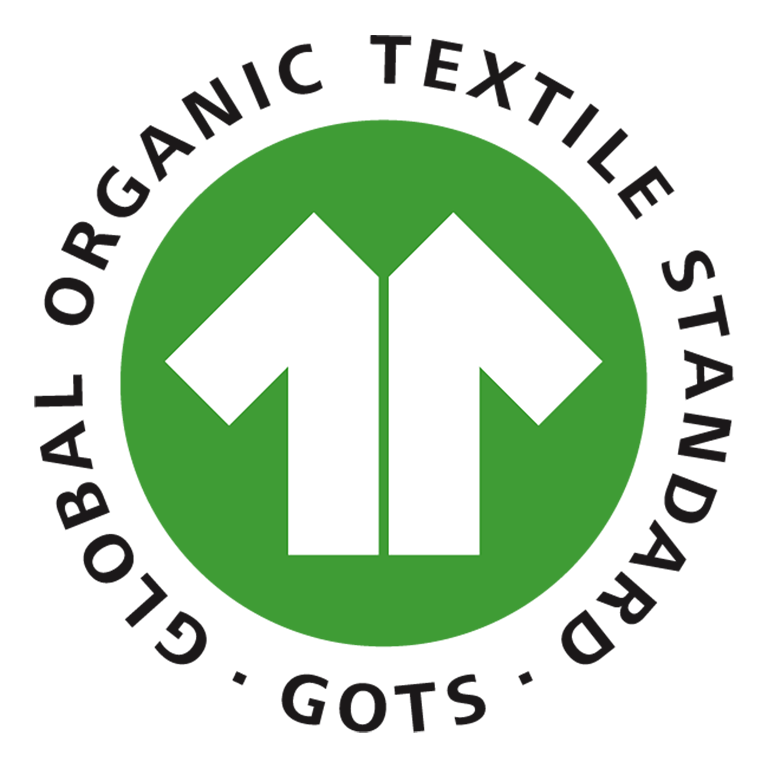
Empowering Small Operators
Recognising that administrative complexities and financial burdens can impede these operators, GOTS introduced the ongoing Controlled Supply Chain Scheme (CSCS) Pilot Project in 2022. This pioneering endeavour simplifies and streamlines the certification process for groups of small-scale facilities. Under CSCS, a supply chain with a minimum of eight and a maximum of 30 small-scale facilities, each with 20 or fewer workers, can achieve GOTS certification as a single Certified Entity after a comprehensive risk assessment.
SANKEI MERIYASU's Milestone
SANKEI MERIYASU, a 97-year-old Japanese artisan knitwear company with deep roots in tradition and community, recently achieved the first GOTS certification through the CSCS system. Project Coordinator Yuko Nishino praises the company’s commitment, saying, ‘SANKEI MERIYASU is a pivotal participant in the groundbreaking GOTS CSCS initiative, exemplifying pioneering dedication. This achievement resonates profoundly in Japan's textile industry, where cherished traditions, techniques, and community connections are of importance’.
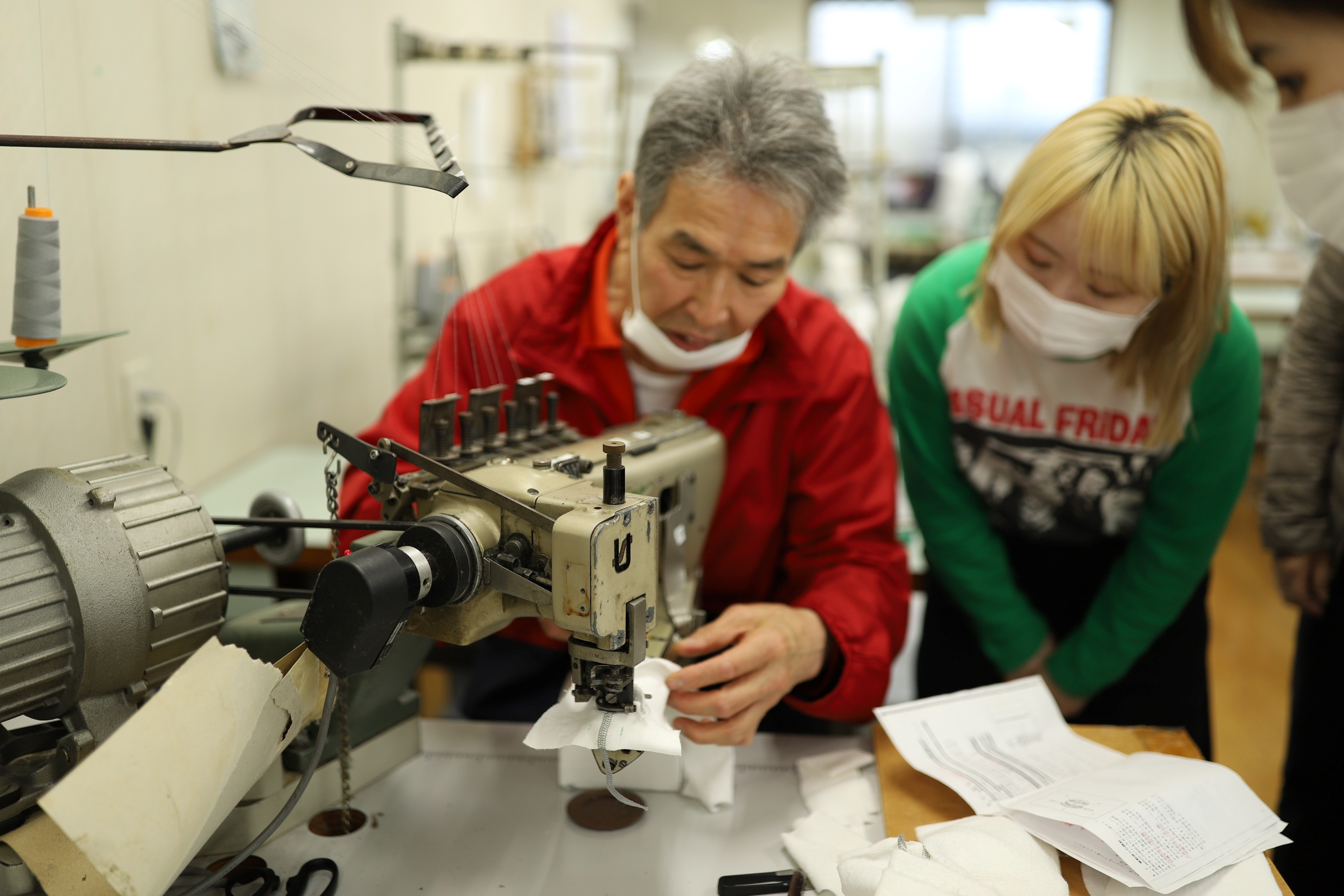
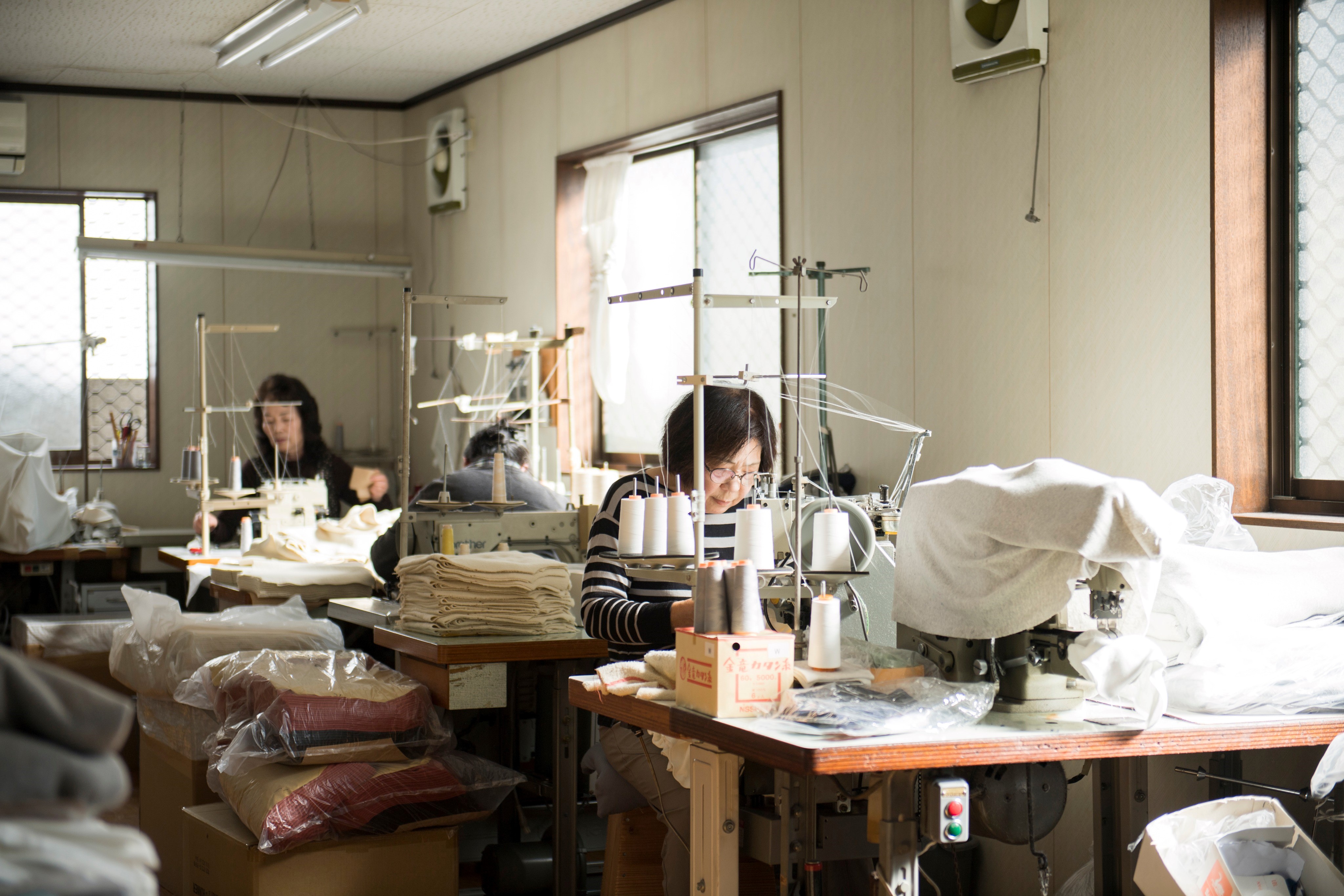
Small Group, Global Impact
Ken Miki, Executive Director at SANKEI MERIYASU, shared his pride in SANKEI MERIYASU's trailblazing accomplishment, stating, ‘As the very first group to receive GOTS CSCS certification in the world, we will continue our efforts to make products that we are proud of, and communicate to the world about the products made by this local small group in Japan’.
Shaping the Future
As the pilot project undergoes review and evaluation, GOTS will refine and validate the CSCS requirements, with the goal of implementing it fully for all markets. GOTS remains steadfast in its commitment to expanding the organic textile market, ensuring sustainability, and creating opportunities that empower operators of all sizes to participate.
Read more …GOTS Project: Controlled Supply Chain Scheme (CSCS)
GOTS Project: Creating Job Opportunities in India
GOTS Project:
Creating Job Opportunities in India
Promoting Inclusion and Equality
Creating Opportunities for Disadvantaged Individuals
In partnership with the UK-based charity Leonard Cheshire, GOTS has played a vital role in a transformative project aimed at fostering social inclusion and economic opportunities in the Ready Made Garment (RMG) sector in Tiruppur, Tamil Nadu, India.

Promoting Inclusion and Equality
According to the World Bank, over one billion people, approximately 15 percent of the global population, experience some form of disability. Persons with disabilities are more likely to face challenges in education, healthcare, employment, and poverty rates, especially in developing countries. Recognising the importance of social inclusion, GOTS, and Leonard Cheshire collaborated with GIZ, IVN, and Indian NGO Love and Acceptance, to undertake a project that would provide training and opportunities to ultimately integrate persons with disabilities into the RMG sector.
Breaking Barriers in the Garment Industry
The project was launched in March 2022, with the aim of reducing barriers such as inaccessible workplaces, limited training, and a lack of awareness among employers. The objectives included sensitising employers, professionals, and organisations of persons with disabilities (OPDs), adapting training institutions' curricula to ensure accessibility, and fostering collaboration between stakeholders.
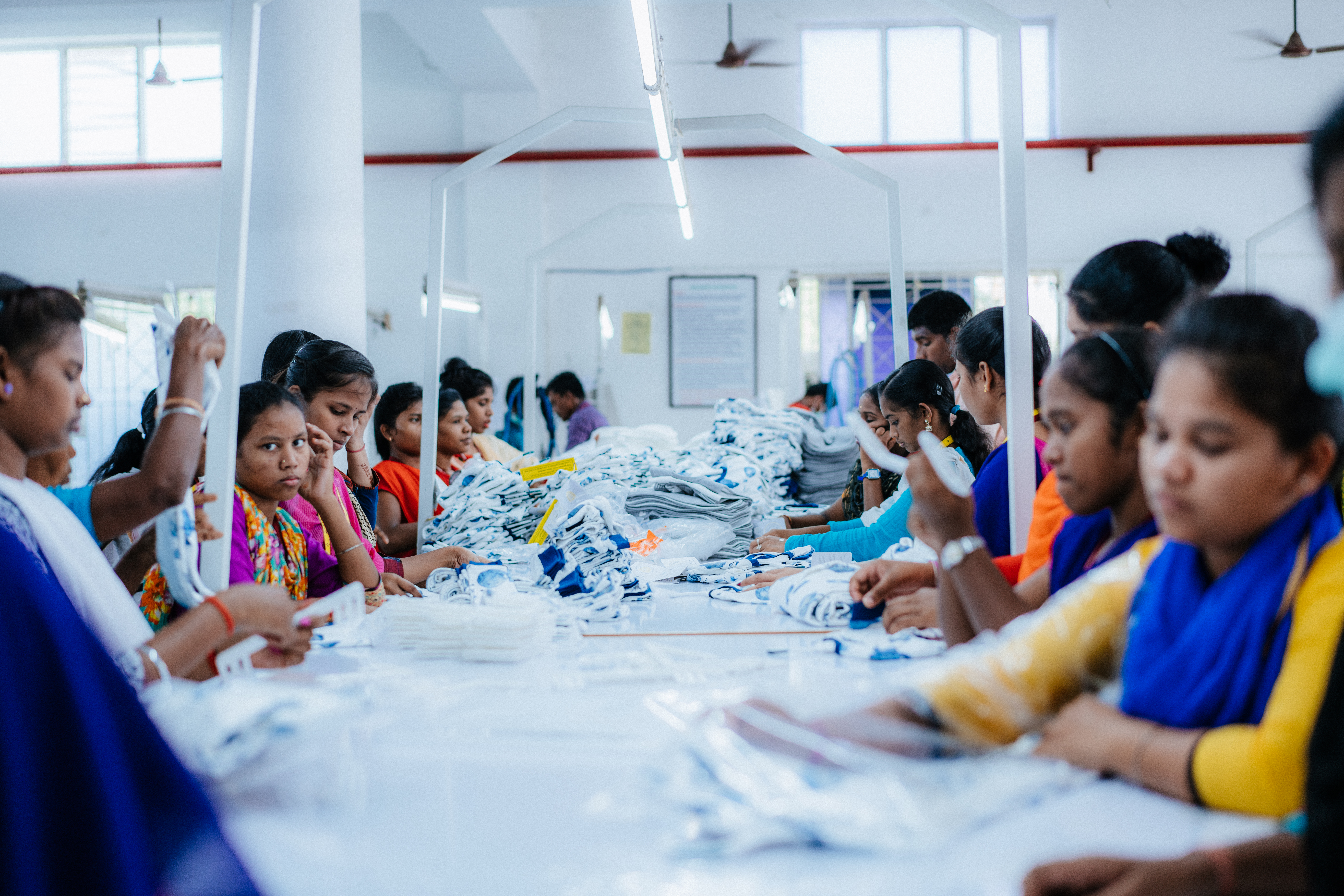

Transforming Lives Through Collaboration
To achieve its goals, the project facilitated training and support for persons with disabilities. It worked closely with training institutions to adapt their curricula to provide relevant skills for the RMG sector. Consultative workshops and sessions on accessibility, workplace adaptations, safeguarding, and occupational health were conducted to educate and empower stakeholders. The project also linked with GOTS certified entities, successfully involving them in the effort.
GOTS Involvement: Paving the Way for Inclusion
GOTS was actively engaged from the project's inception, reaching out to certified entities in the Tiruppur region. The response from these entities was overwhelmingly positive, with several of them participating in the project. Their commitment and collaboration played a vital role in driving the initiative's success.
Thanks to the collective efforts of all involved, the project witnessed tremendous success. This project wasn't just about generating jobs; it was about creating opportunities, promoting inclusivity, and upholding the principles of sustainability.
Ganesh Kasekar, GOTS Representative in South Asia, shares his perspective: ‘This undertaking exemplifies the power of collaboration and the positive impact working together can have on our industry. It's a testament to the GOTS community's commitment to making a difference in people's lives and championing equality’.
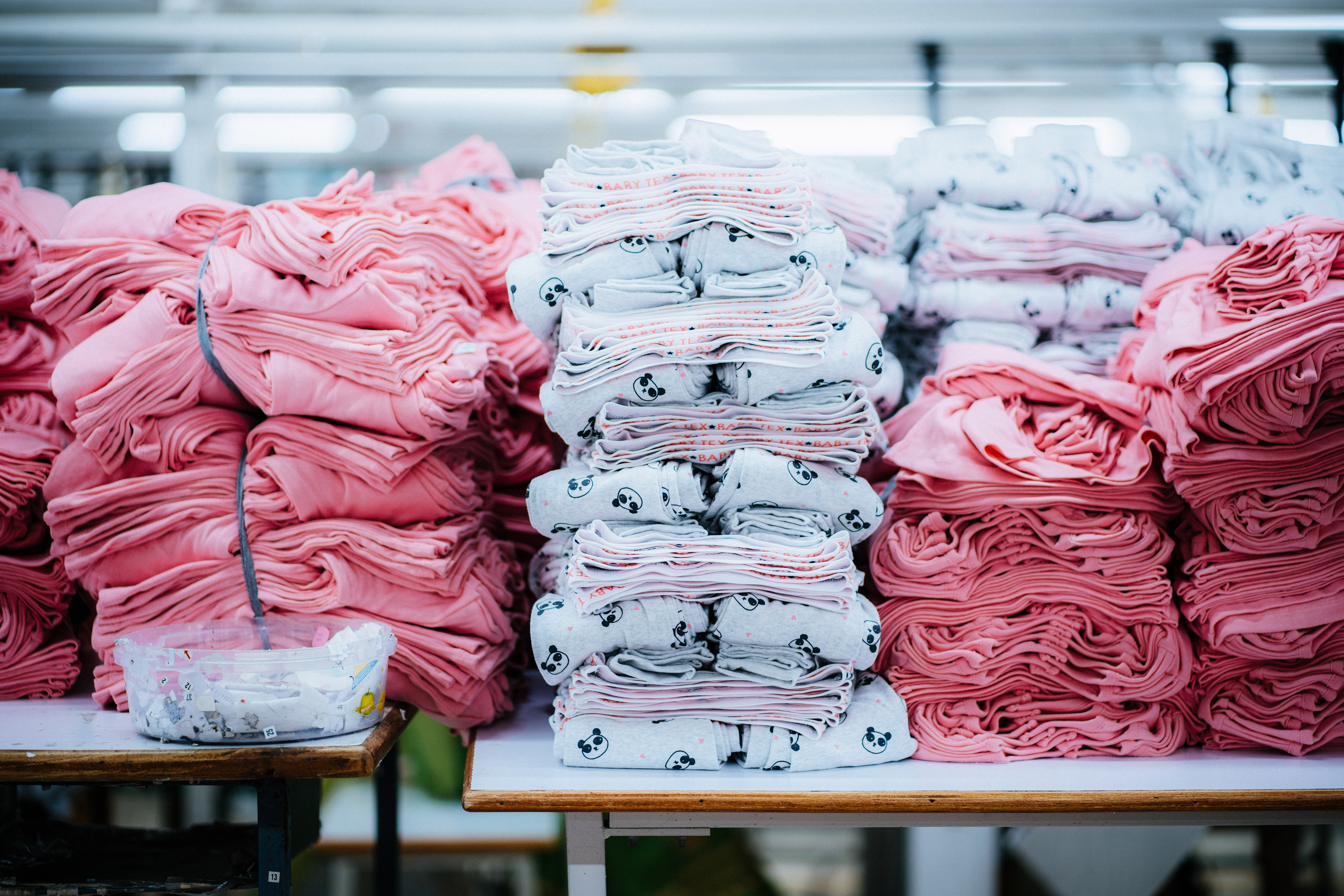
Read more …GOTS Project: Creating Job Opportunities in India
GOTS Project: GOTS and European Space Agency Collaborate for Integrity in Organic Cotton
GOTS Project:
GOTS and European Space Agency Collaborate for Integrity in Organic Cotton
Revolutionising Organic Cotton: A Game-Changing Collaboration
In 2022, GOTS embarked on an innovative collaboration poised to redefine the organic cotton industry. This groundbreaking project is a joint effort between GOTS, the European Space Agency (ESA), and Marple GmbH, a German software development firm. Marple had previously conducted a feasibility project, Cotton Cultivation Remote Assessment (CoCuRA), in Uzbekistan which demonstrated the potential of remote satellite monitoring to accurately distinguish cotton fields and, notably, to determine whether these fields were managed organically. That project piqued GOTS's interest, aligning with their mission to advance cutting-edge technologies that enhance the integrity of the organic textile sector.

Project Goals
The primary objective of this collaborative project is to train artificial intelligence (AI) to use satellite data for the remote detection of cotton fields while classifying them according to their cultivation standard. This includes identifying whether cotton fields are organic, in-conversion, natural (low-input), hybrid (high-input), or GMO. By enabling remote monitoring of cotton cultivation, this initiative serves as a potent deterrent against potential fraudulent practices. Moreover, it equips GOTS with the means to identify risks to organic cotton cultivation, such as the proximity of genetically modified (GM) fields that could lead to contamination. The integration of farm data will further facilitate the generation of realistic projections for yield and, consequently, estimates of available organic cotton.
Data Collection
The project encompasses a broad spectrum of data, including GPS polygons (field area), cultivation standard (conventional, in-conversion, organic), crop type (cotton, wheat, maize, etc.), and irrigation method (e.g., rain-fed, flooding, sprinkler, drip). This comprehensive data will be instrumental in training the AI to remotely assess fields outside of the selection area and classify them based on their cultivation standard.

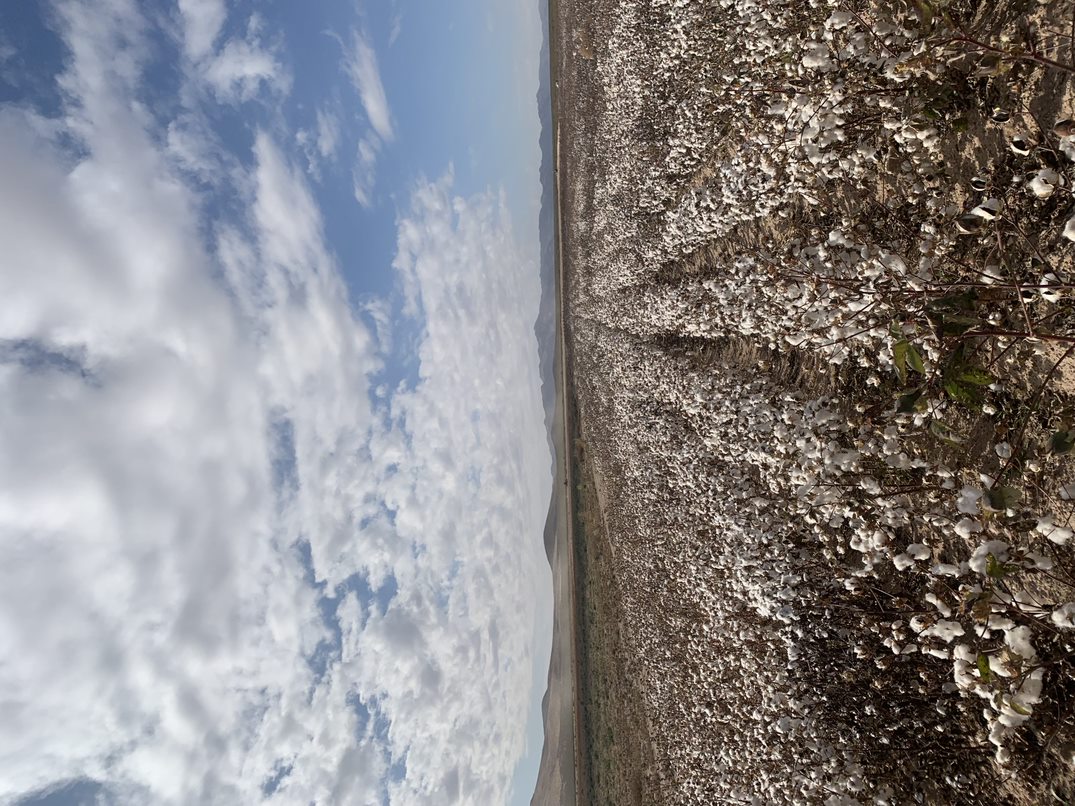
Promising Results
Marple's prior pilot study in Uzbekistan yielded remarkable results, with their AI achieving a 98% accuracy rate in distinguishing between organic and conventional cotton fields. Building on this success, the collaboration between GOTS and Marple, with the support of ESA, aims to enhance the AI's capabilities. This advancement has the potential to significantly bolster the integrity and traceability of organic cotton.
Impact Beyond Certification
The impact of this project extends beyond the identification of certified organic cotton fields. It is expected to accurately identify fields that, while not yet certified, exhibit the potential for a seamless transition to organic cultivation due to their adherence to traditional and ecologically friendly farming practices. Identifying these areas could lead to new economic opportunities for small-scale farmers and their communities, and help grow the industry, which is already unable to meet the growing consumer demand for organic cotton.
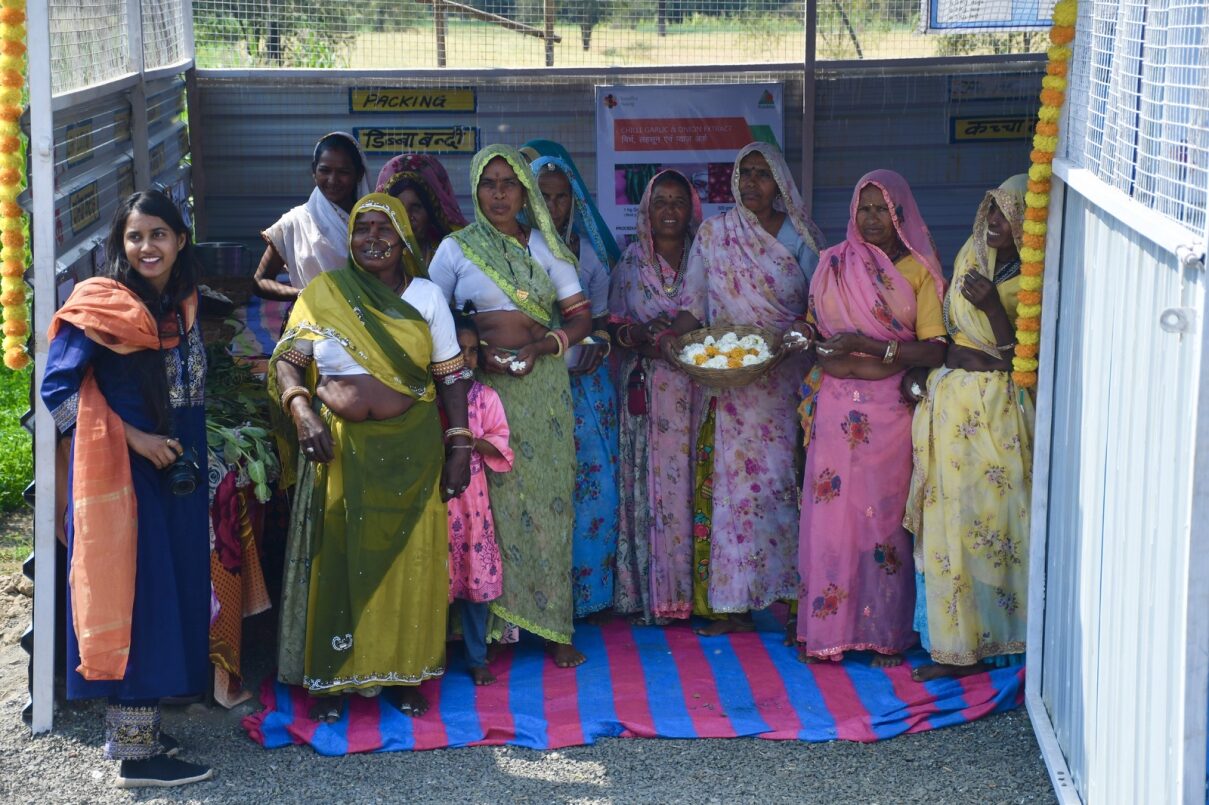
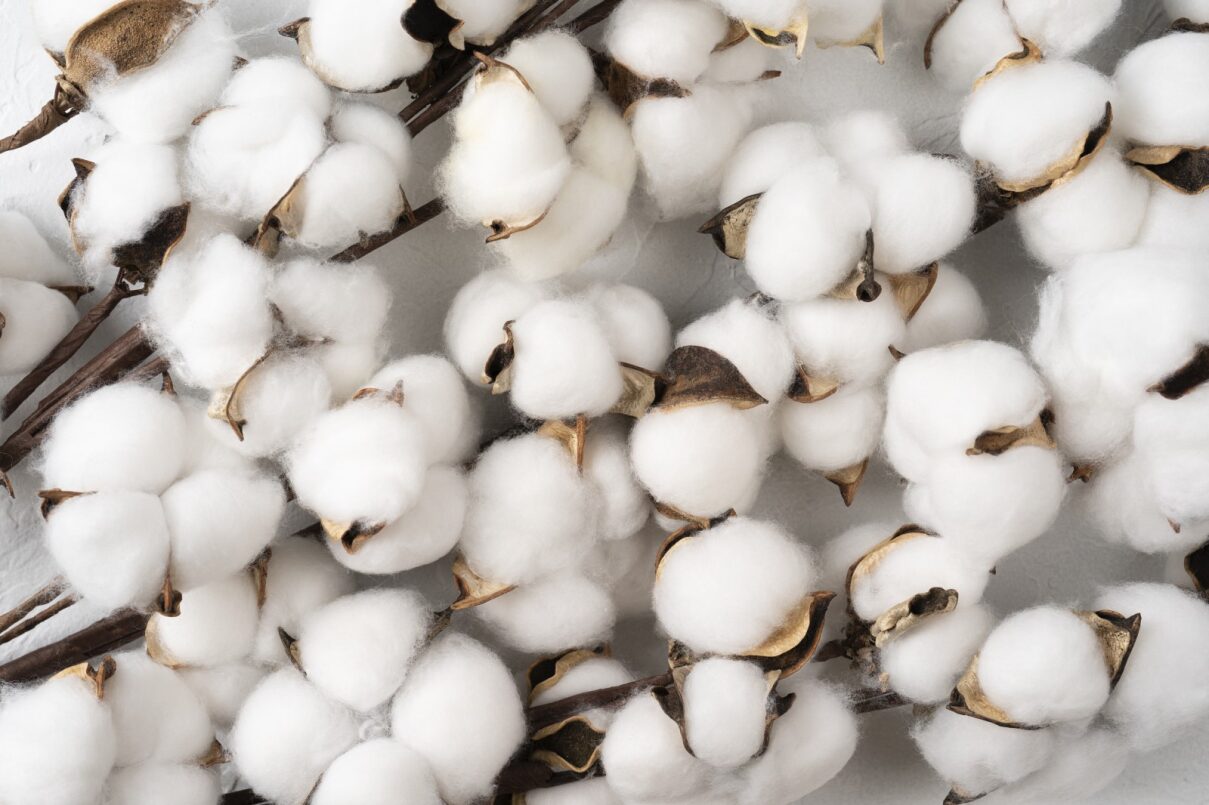
The collaboration between GOTS, ESA, and Marple represents a pivotal moment in the organic cotton industry. By harnessing the potential of remote satellite monitoring and artificial intelligence, this project is set to elevate the integrity and development of organic cotton cultivation. It embodies GOTS' commitment to continuous improvement and innovation in serving the sustainable textile sector. As Jeffrey Thimm from GOTS succinctly puts it, "Technologies like this will be a game changer regarding the integrity and promotion opportunities of organic cotton."
Read more …GOTS Project: GOTS and European Space Agency Collaborate for Integrity in Organic Cotton
GOTS Project: Organic Cotton in Mexico
GOTS Project:
Organic Cotton in Mexico
Transforming Cotton Production in Mexico with GOTS Certification
Cotton in Mexico
Cotton has played an integral role in Mexico's history for thousands of years. The country boasts a rich diversity of cotton species, including wild relatives of the most commonly grown variety, known as ‘Upland Cotton’ (Gossypium Hirsutum). However, the introduction of genetically modified (GMO) cotton in the 1990s, along with environmental and health concerns, raised questions about the sustainability of cotton production. In 2019, Mexico banned the cultivation of GM cotton, providing a fresh opportunity to explore new approaches to cotton farming.

Introducing Organic in Chihuahua
In Chihuahua, where GMO seeds dominated cotton production, a collaborative effort unfolded. A small local organisation, Materia Consumo Sostenible, partnered with GOTS to demonstrate that alternative cotton production methods were not just viable but essential. The challenge was to empower local farmers with the knowledge and resources needed to cultivate organic cotton while ensuring the environmental and economic sustainability of the industry.
Cultivating New Solutions
The project's goals were ambitious. It aimed to enable farmers to grow organic cotton, embracing eco-friendly practices while supporting the local community. The pilot project spanned approximately 2.5 hectares and anticipated yields of 11 to 14 bales of organically certified seed cotton. The initiative also sought to establish robust supply chains, enabling farmers to access fair prices and cultivate long-lasting commercial relationships.
Navigating the challenges posed by the dominance of conventional cotton production in the region was no small feat. One significant hurdle was finding a ginning facility willing to process organic cotton. Additionally, adapting transportation and cropping equipment to the project's scale required creative solutions.
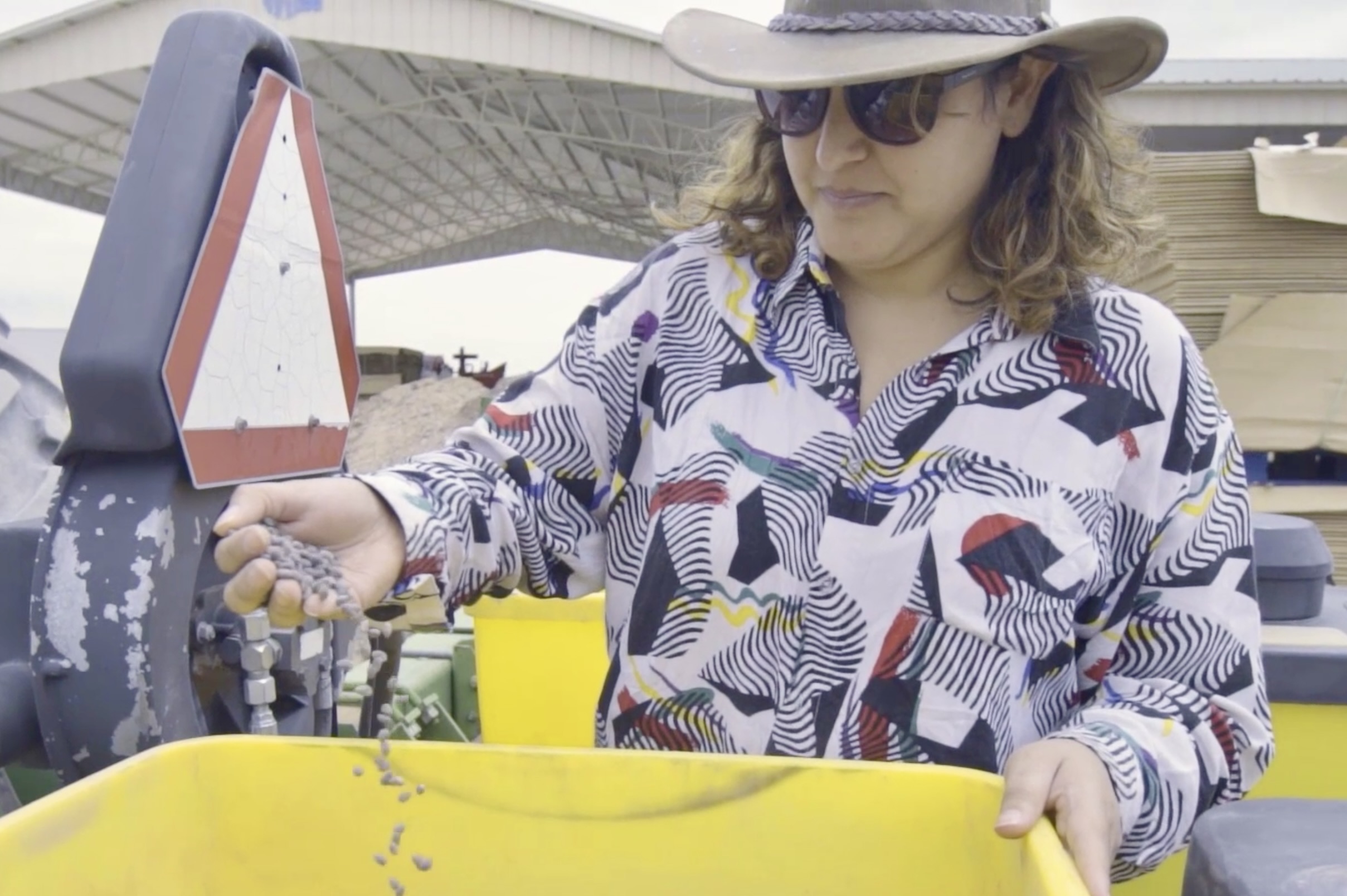
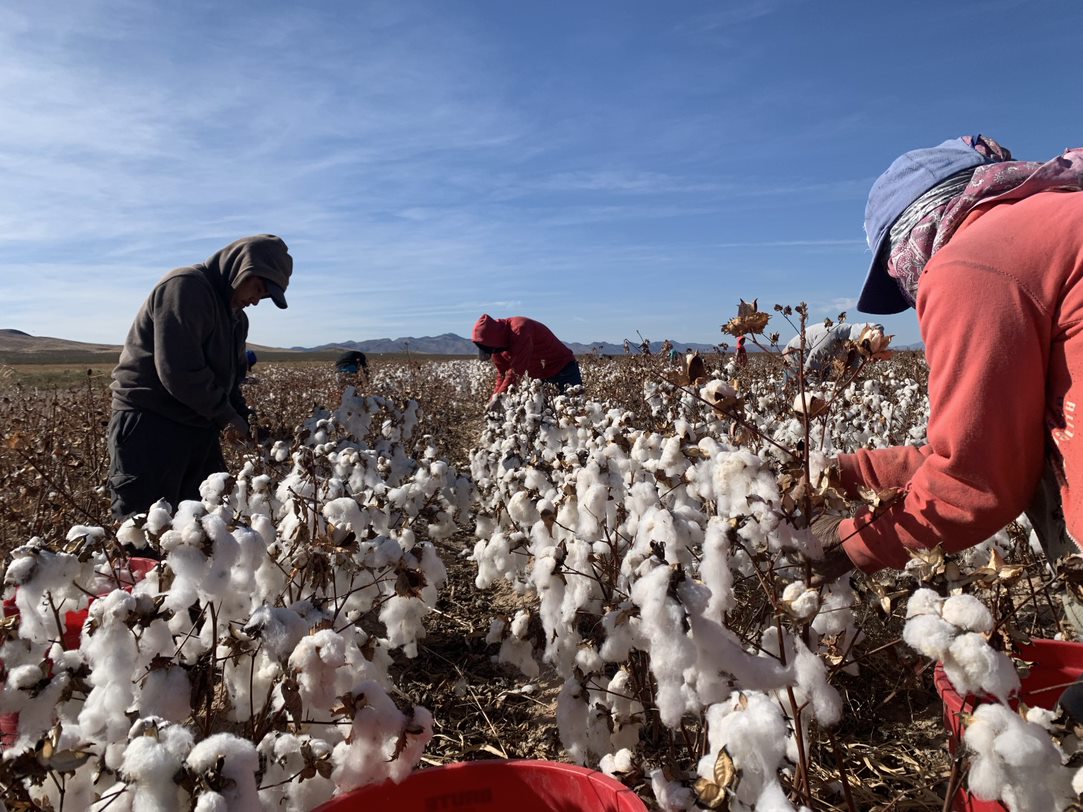
Inspiring Results
The results of this endeavour are nothing short of inspiring. Jesus Aguerre Chavez, GOTS Monitoring and Evaluation Specialist, summed it up: "This transcends mere cultivation; it represents a commitment to safeguard our environment, the health of our workers, and our cultural heritage. We are sowing the seeds of a more sustainable future".
The project demonstrates that organic cotton production can flourish, promoting both ecological and community well-being. As the government's restrictions on GM cotton cultivation create opportunities for transformation, the partnership between GOTS and local organisations represents a path to a more sustainable cotton industry in Mexico.
The knowledge gained in this project will be synthesised into an educational manual. This guide will empower others to embark on a similar path, contributing to the growth of organic cotton production and, ultimately, the creation of a more environmentally friendly and equitable cotton industry in Mexico.
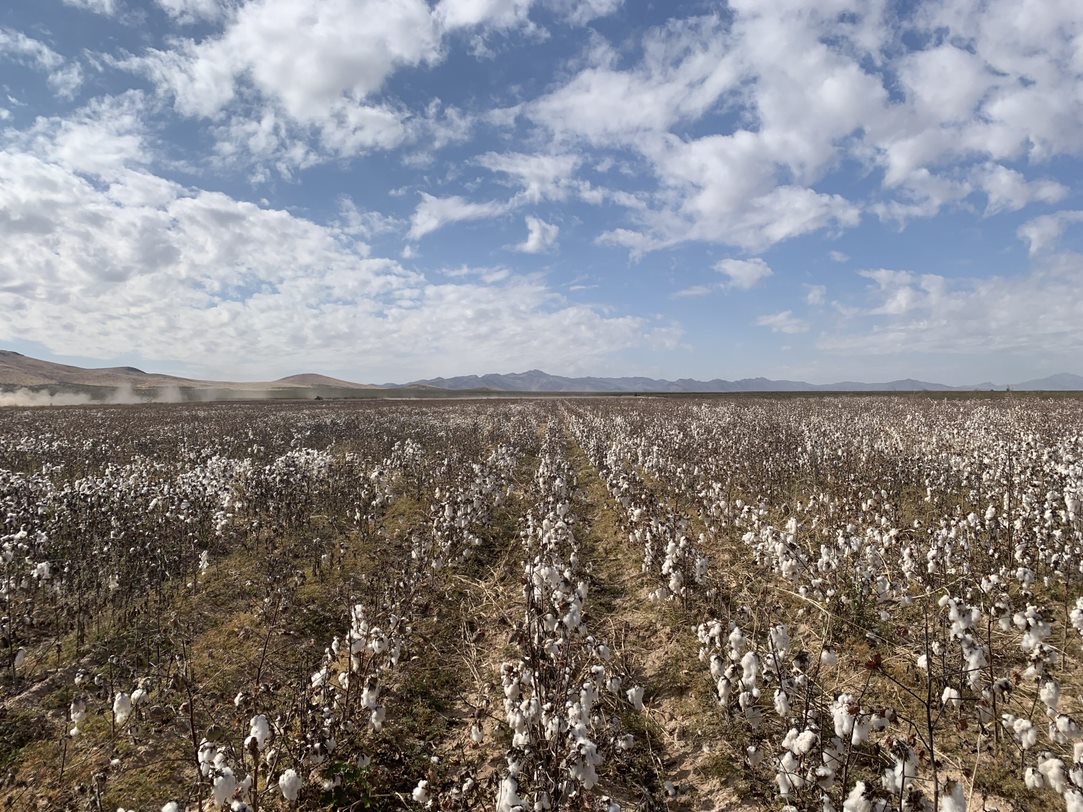
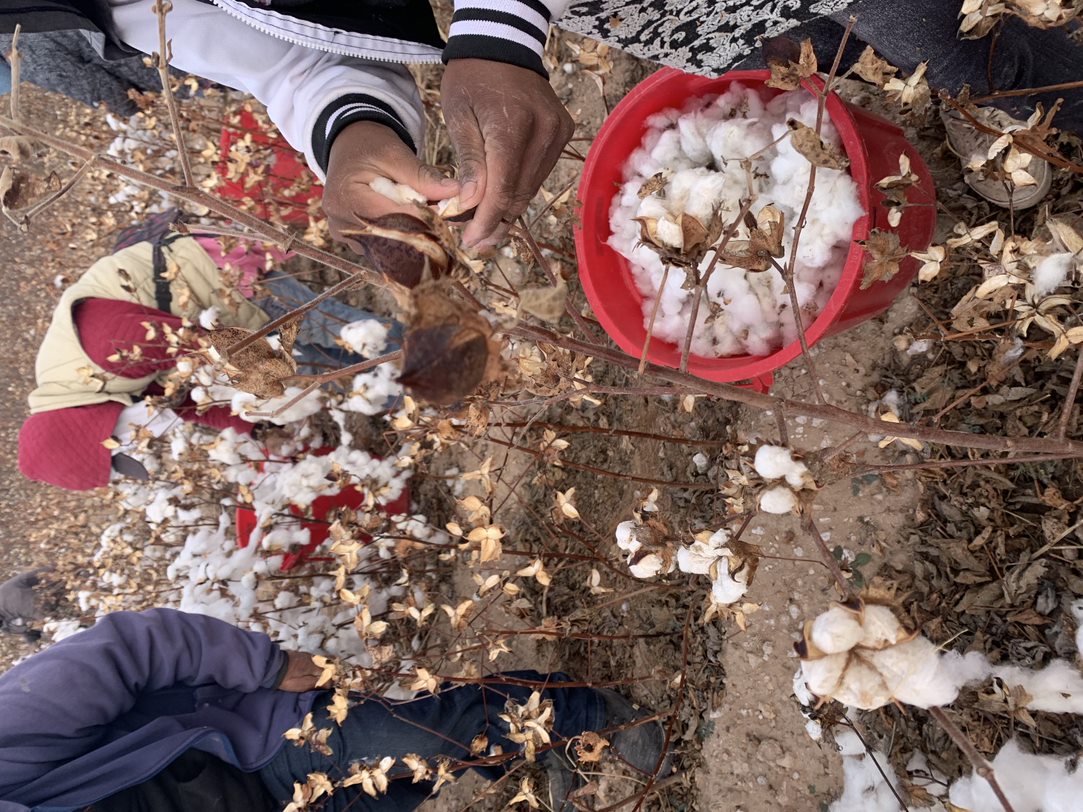
GOTS Revision
GOTS Revision
GOTS is a dynamic standard, we foster constant progress towards the development of better textile processing methods. Every three years a revision process takes place in which GOTS collaborates with international stakeholders. Find out more about our comprehensive and transparent revision process below.
-
Revision Process
Principles of the Revision Process - Stakeholder Input
GOTS is backed up by stakeholder-based decision bodies/technical committees, which ensure that the views of relevant stakeholders are considered. The GOTS-approved certification bodies are also actively involved in the GOTS revision process through representation on the Standards Revision Committee, as are other industry stakeholders.
Revised Process for Standard Revisions
The revision process followed the Standard Setting Procedure (SSP) which provides for the constitution of an (ad hoc) Standard Revision Committee (SRC) for each revision. The SRC consists of experts from different stakeholder groups, works on the basis of respective terms of reference and decides on the revised standard. The selection of members is based on the “GOTS Stakeholder Identification Document”.
The GOTS Standards Revision Committee 2025 was constituted in November 2024.
Public Consultation Process for GOTS revision to version 8.0
The Global Organic Textile Standard is undergoing a periodic revision, to version 8.0, commencing 2025. The timeline for the process is as follows
1. Constitution of GOTS SRCCompleted2. Release of the first revision draft for public consultationReleased on 2nd January 2025 3. First public consultation periodCompleted on 7th March 2025 4. Deliberations of the SRC on inputs receivedCompleted April - June 20256. Second public consultation periodCompleted 15th August 20257. Deliberations by the SRC on inputs received in 2nd consultation periodCompleted 8. Finalisation of GOTS version 8.0November through January 20269. Release of GOTS version 8.0March 2026Reference documents :
- Standard Setting Procedure v 1.0
- Terms of Reference for GOTS Standard Revision Committee v 1.0
- GOTS Stakeholder Identification v 1.0
For more information, contact ()
-
Public Consultation on GOTS Revision 2025
The 2nd phase of public consultation for the revision to GOTS version 8.0 is now complete.
The list of all inputs received, considered and ruled on by the Standards Revision Committee may be reviewed at this link.
GOTS version 8.0 and Implementation Manual shall be released publicly in March 2026
* * * * *
Second revision draft documents can be accessed here :
- GOTS version 8.0 2nd revision draft
- Implementation Manual for GOTS v 8.0 2nd revision draft
- List of all inputs received in the 1st revision period and decisions of the Standards Revision Committee : Link
The Standard documents above are with tracked changes retained. Should you require reading clean versions with all changes accepted, they may be accessed here :
1st revision drafts and changelogs from version 7.0 may still be accessed using the following links -
- GOTS v 8.0 Draft 1.0
- Manual for the Implementation of GOTS v 8.0 Draft 1.0
- Changelog GOTS v 8.0 Draft 1.0 from v 7.0
- Changelog Manual for the Implementation of GOTS v 8.0 Draft 1.0 from v 7.2
-
Standard Revision Committee for revision to version 8.0 - 2025
The Standard Revision Committee (SRC) for the revision to GOTS version 8.0 has been constituted after applications were solicited from interested stakeholders.
The SRC members are listed below: (some names have been withheld on request)
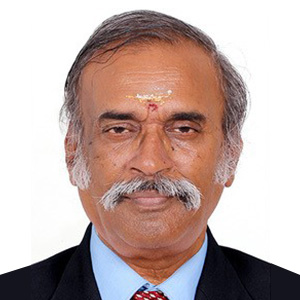
Narayanasamy Arunachalam
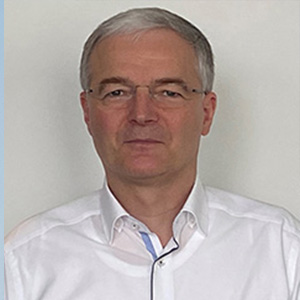
Andreas Bayer
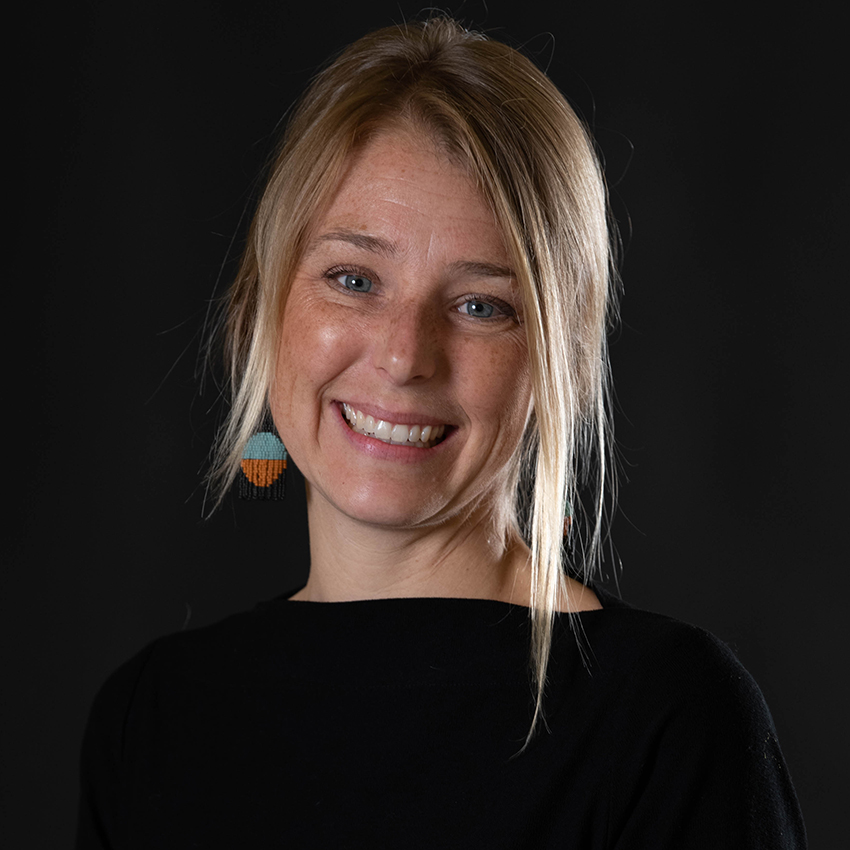
Elizabeth Bennett

Rahul Bhajekar
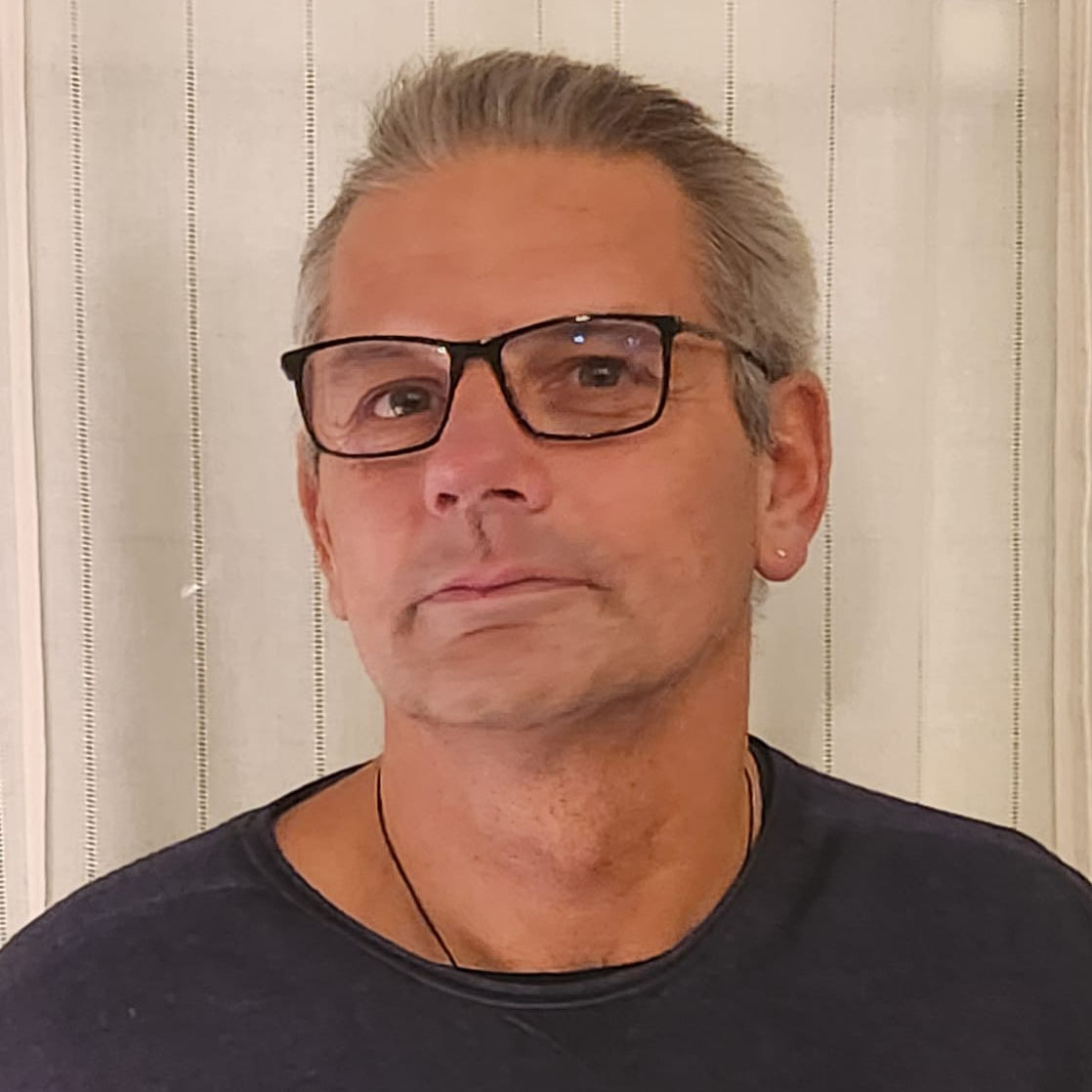
Sergio Chichiarelli
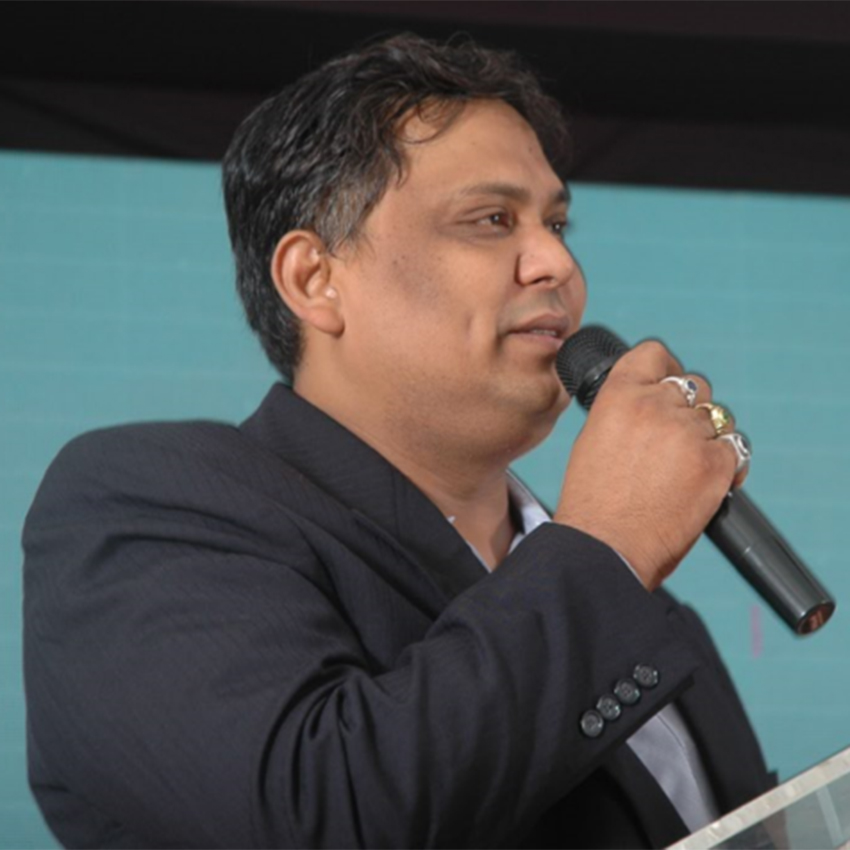
Dr. Binay Kumar Choudhury

Hanna Cody
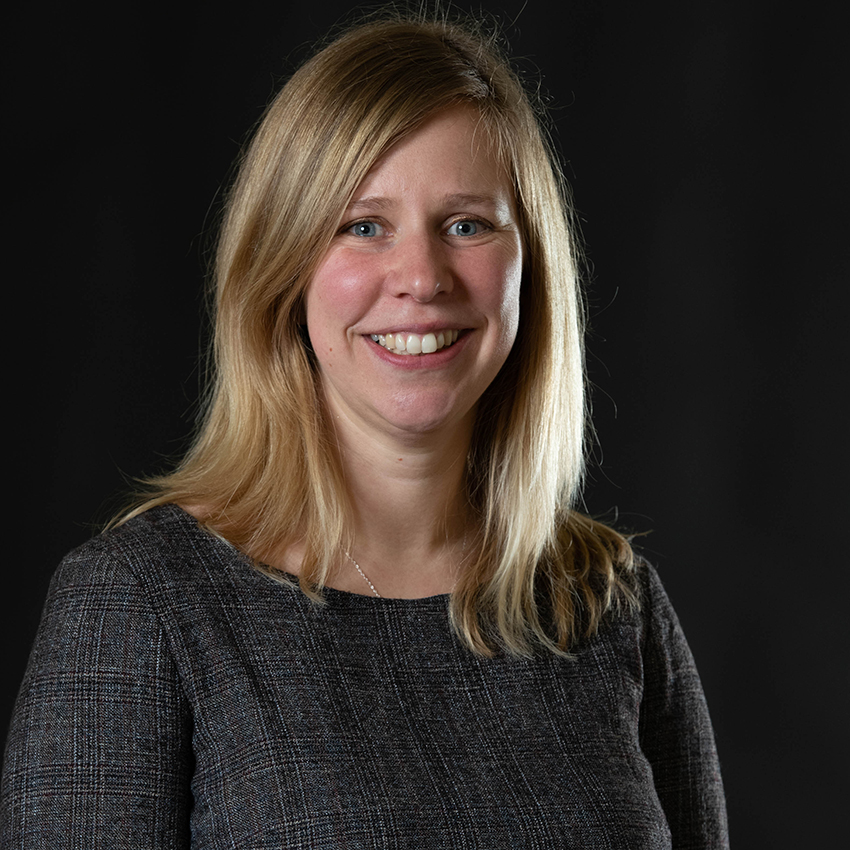
Sarah Compson
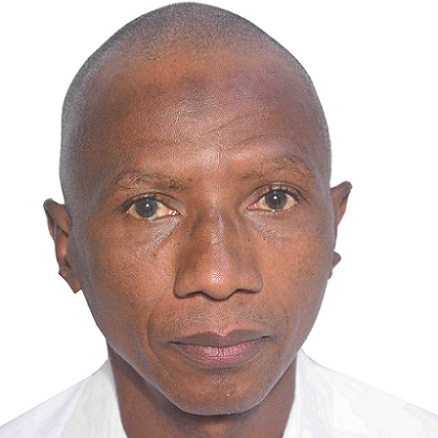
Ado Ali Danbatta
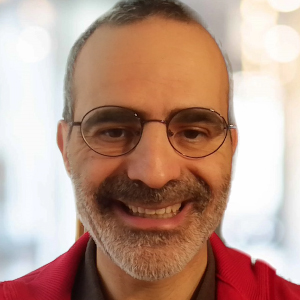
Dr. Pierfrancesco Fois

Michi Fried
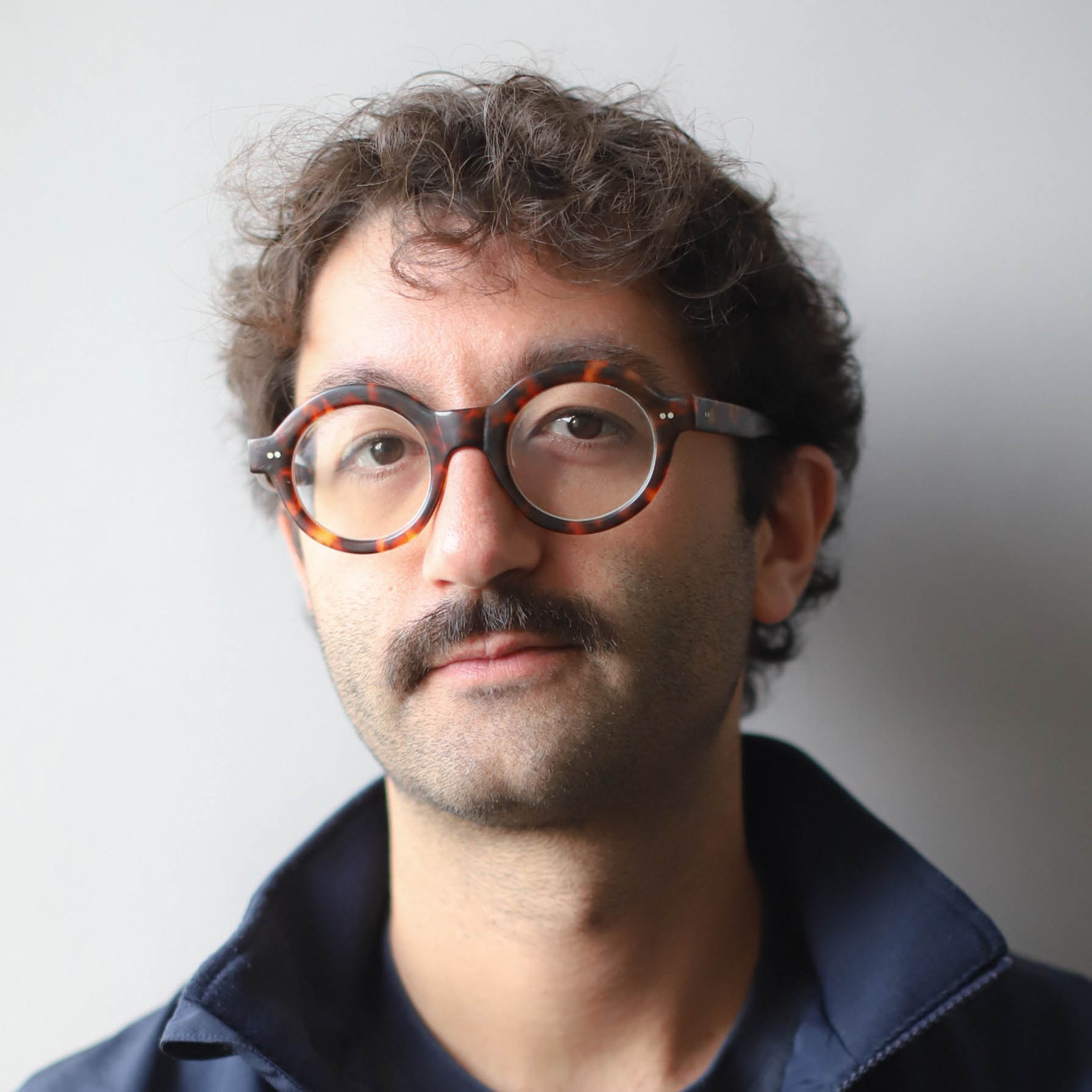
Mattias Ganem
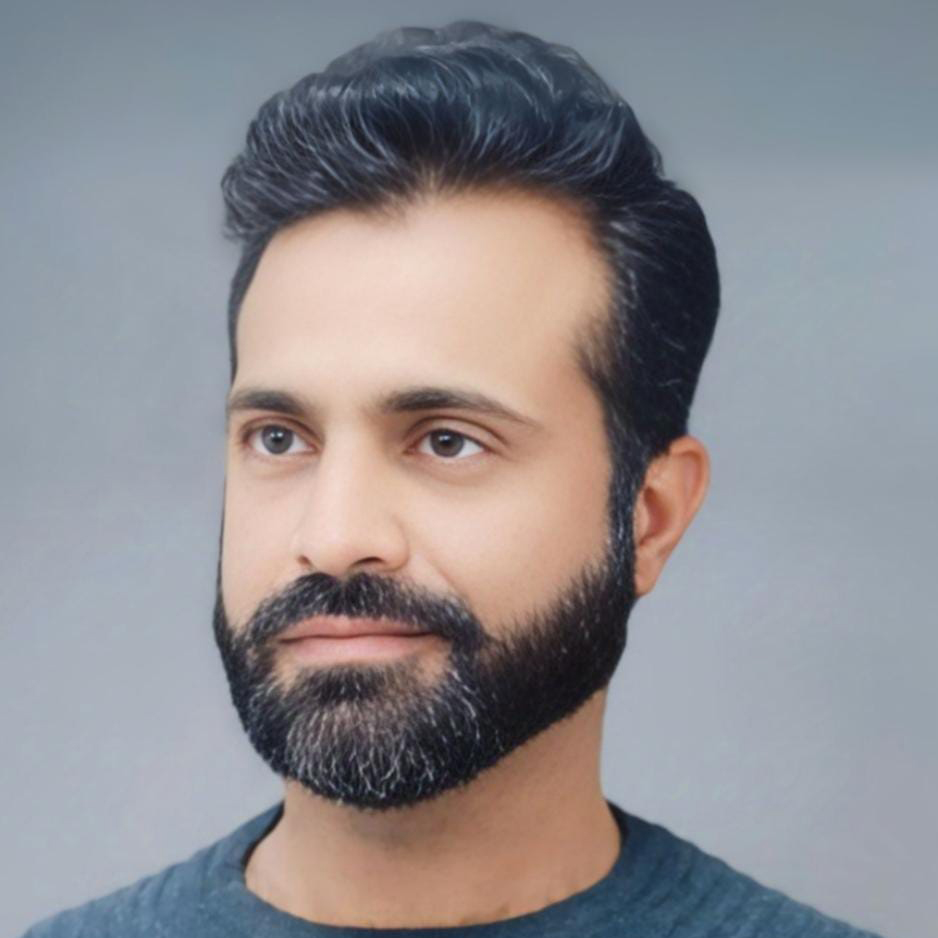
Waseem Ahmad Irshad
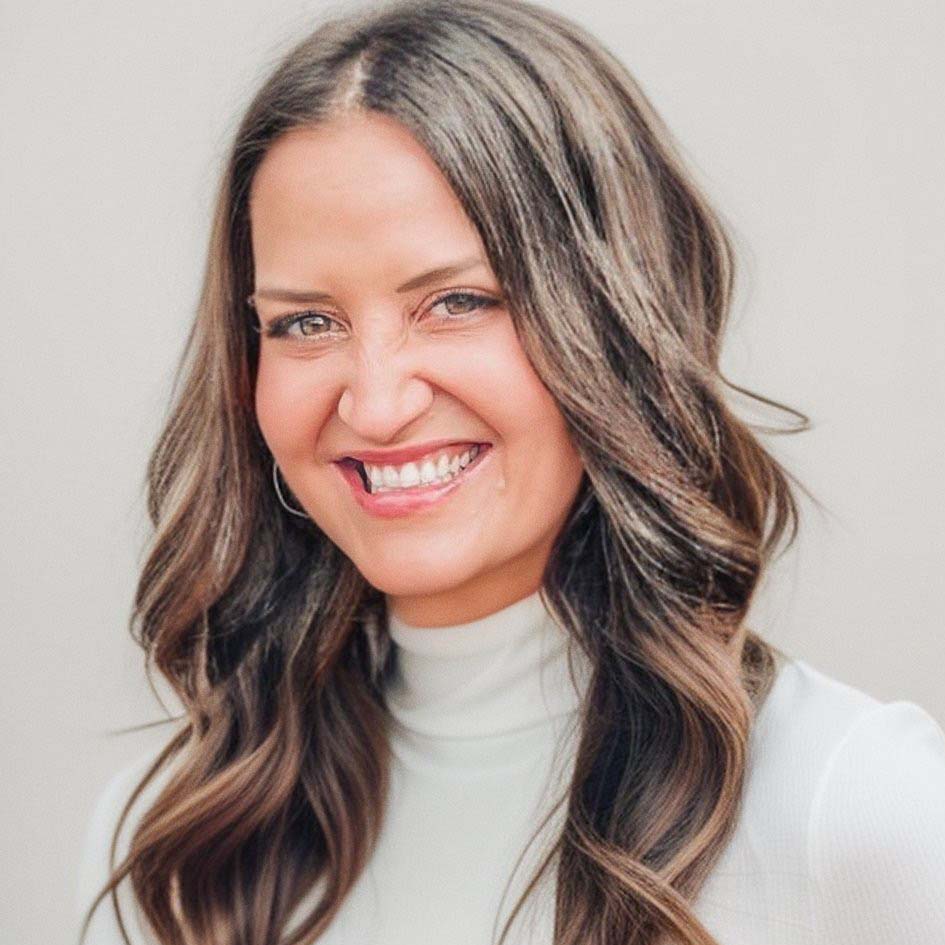
Kimberly Jones

Oswaldo Cardenas Krenz
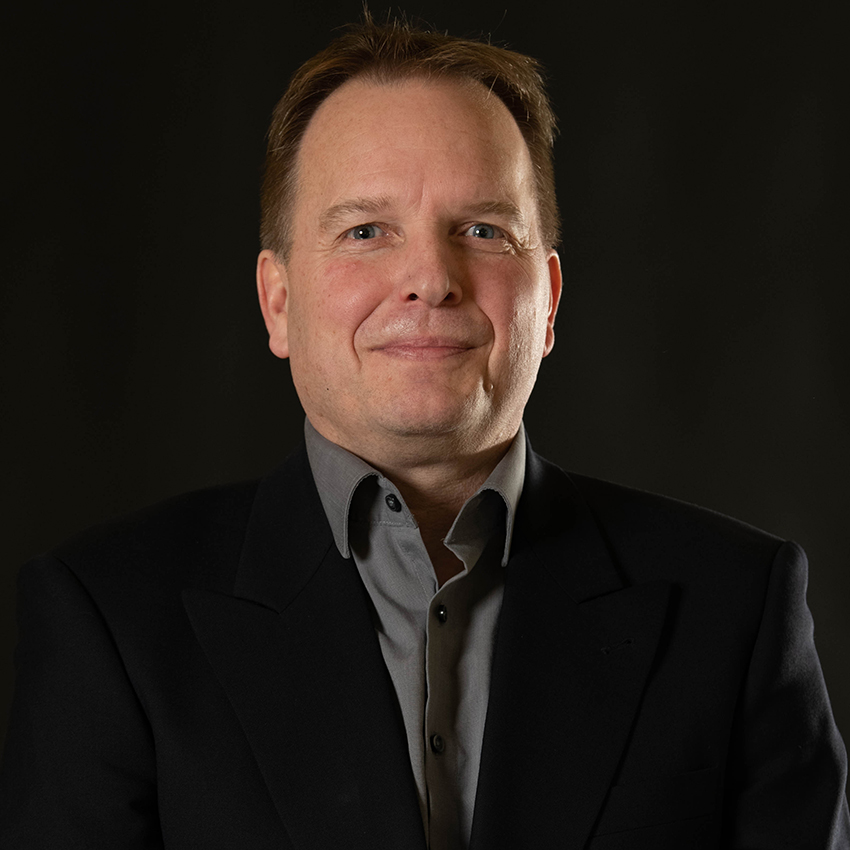
Markus Krüger

Sandra Marquardt
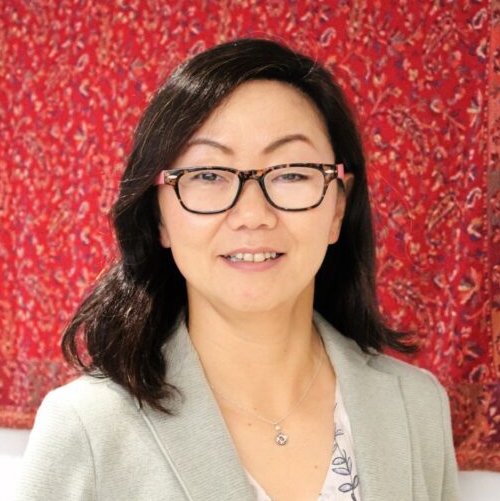
Hong Mei (梅红)
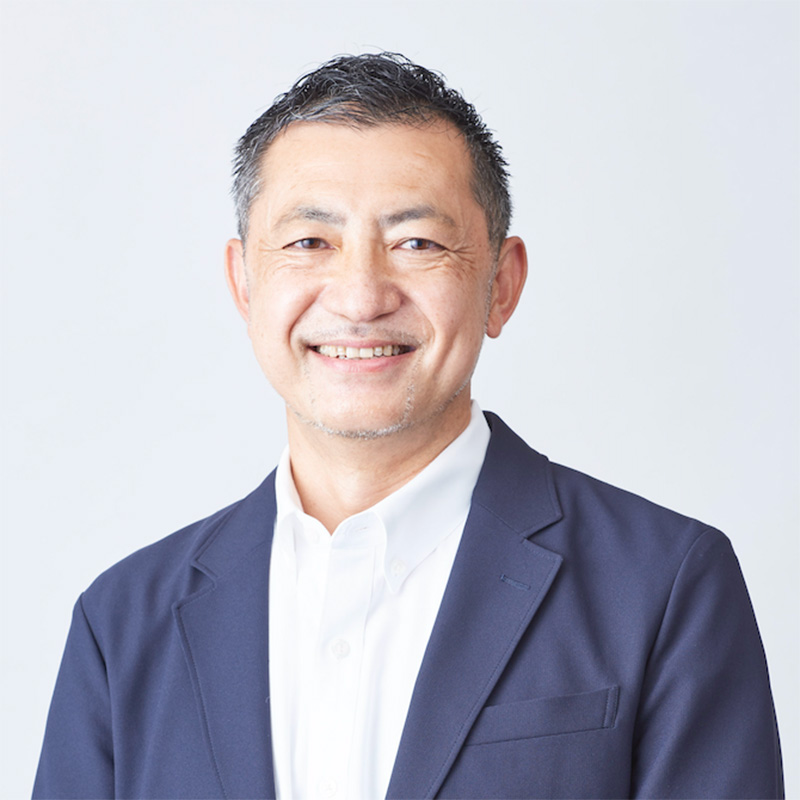
Yoshinobu Noguchi
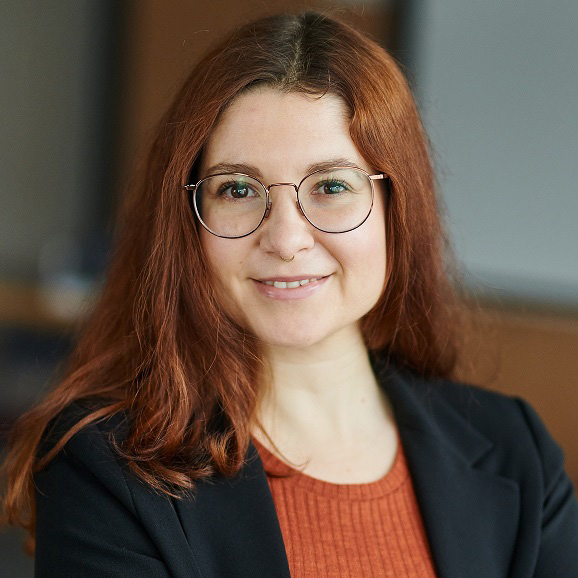
Marta Roche
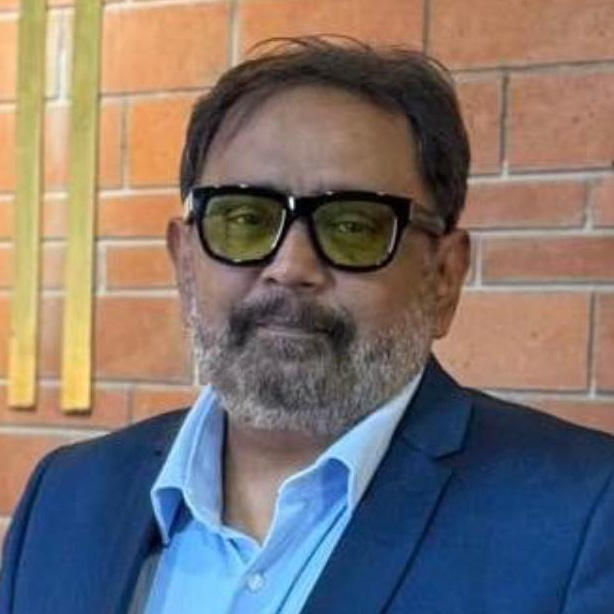
Amitabh Singh
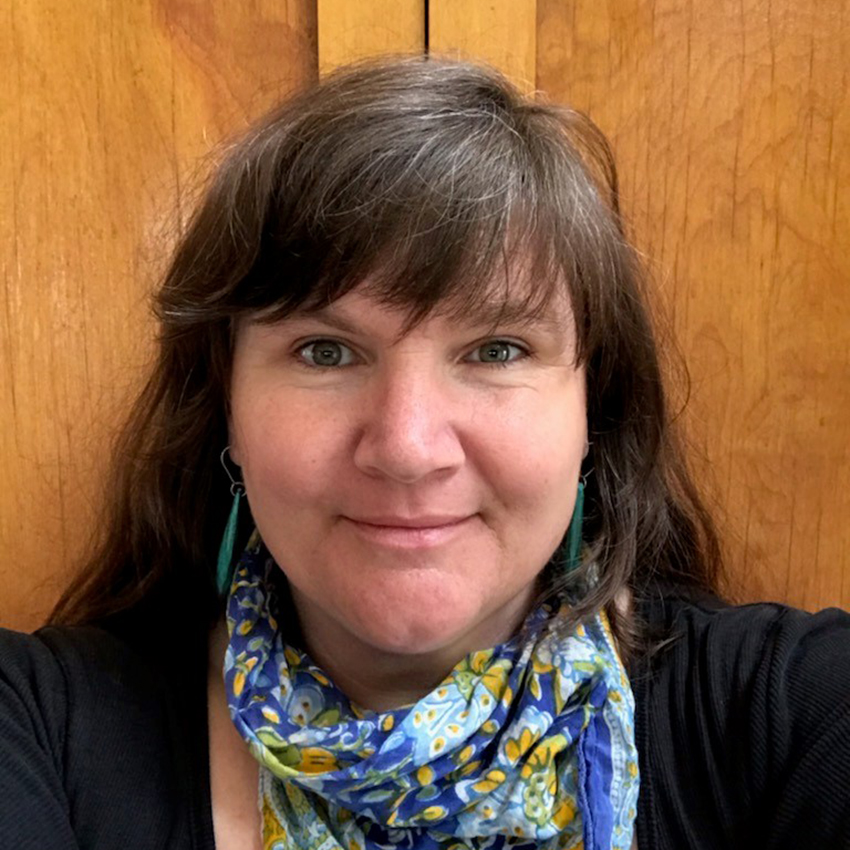
Elizabeth Tigan
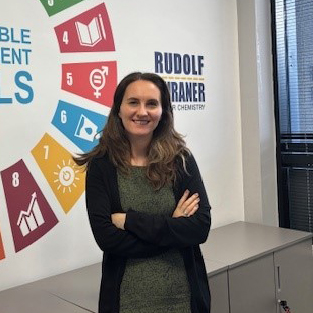
Muazzez Ersoy Üstünel
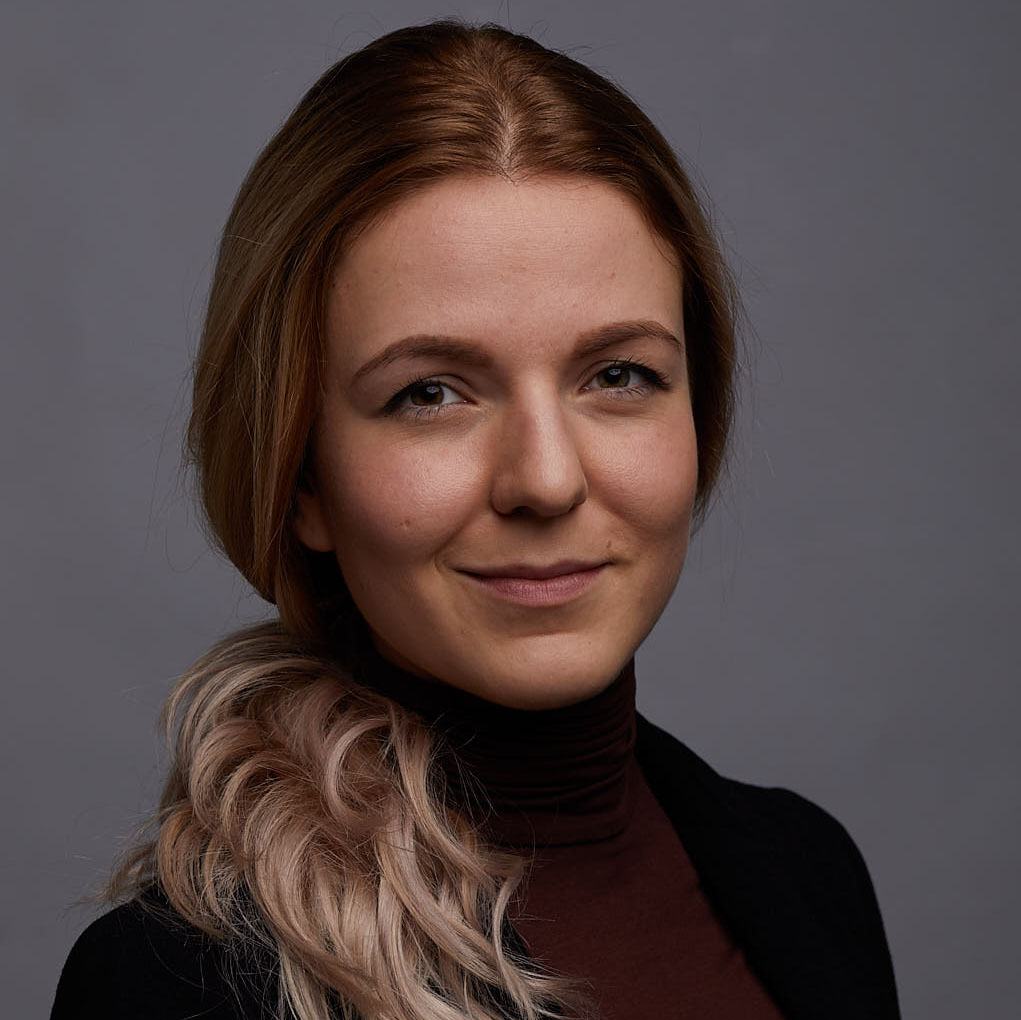
Veronika Vilhelmová
Home
-
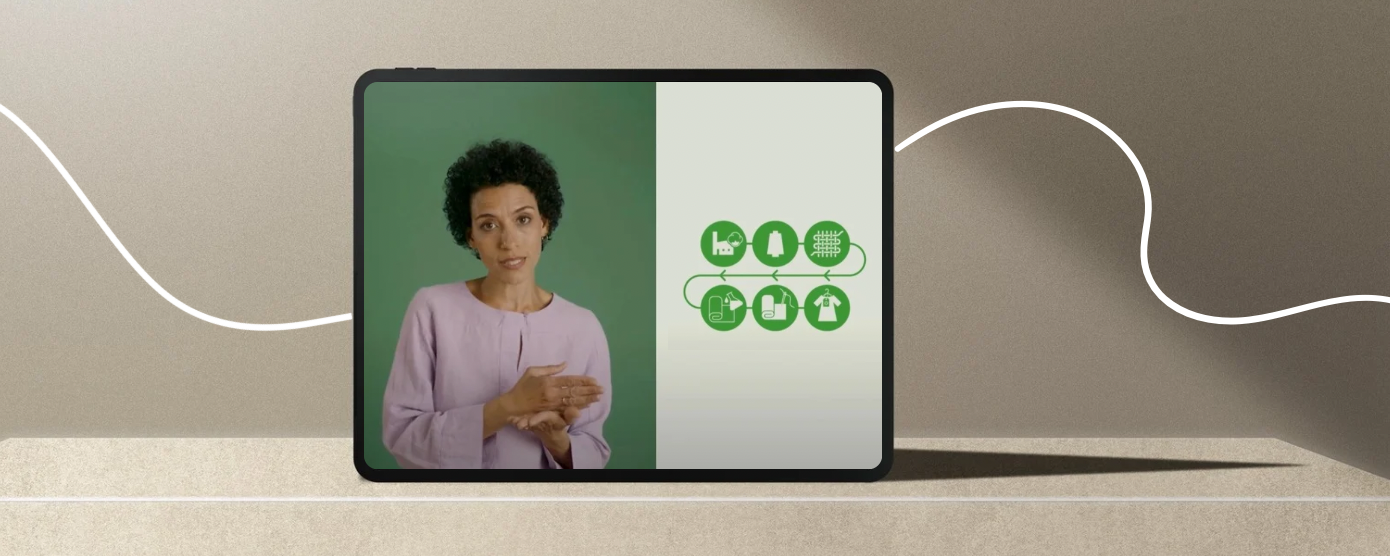
Start learning with Global Standard Academy
Explore the Global Standard Academy, a new online hub offering free, easy-to-understand training on key Global Standard topics. The platform features educational videos and self-paced modules, with additional content to be released regularly.
-
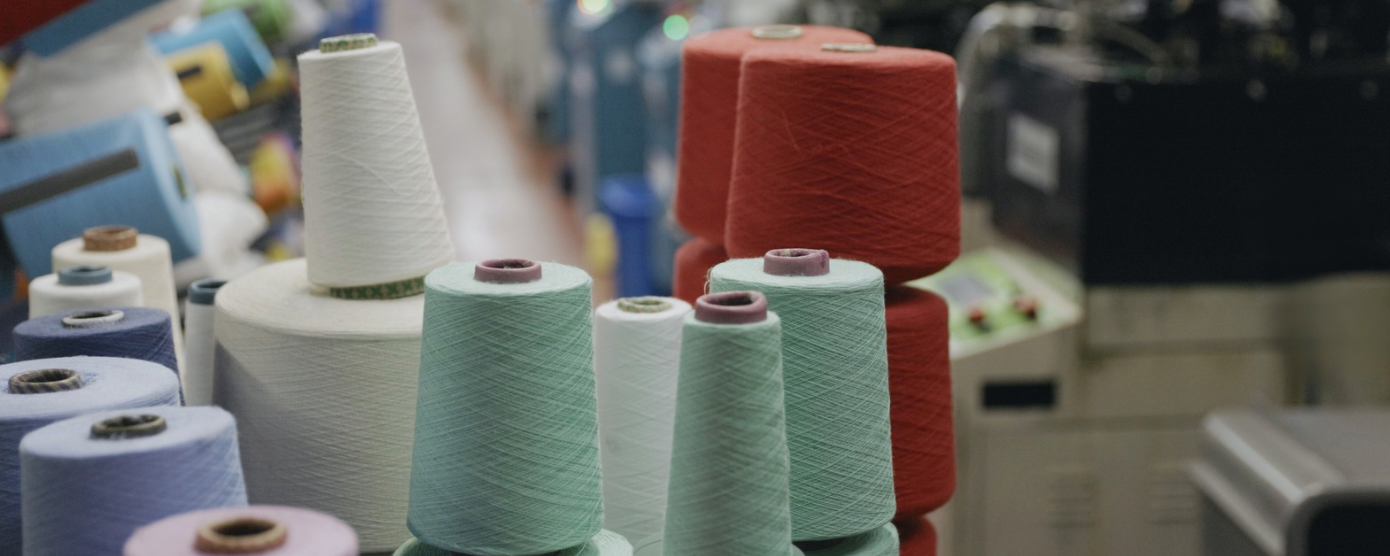
The new Global Responsible Textile Standard (GRTS) is in development.
Global Standard thanks all stakeholders that contributed their insights and perspectives in the GRTS public consultation that closed 14 September 2025.
-
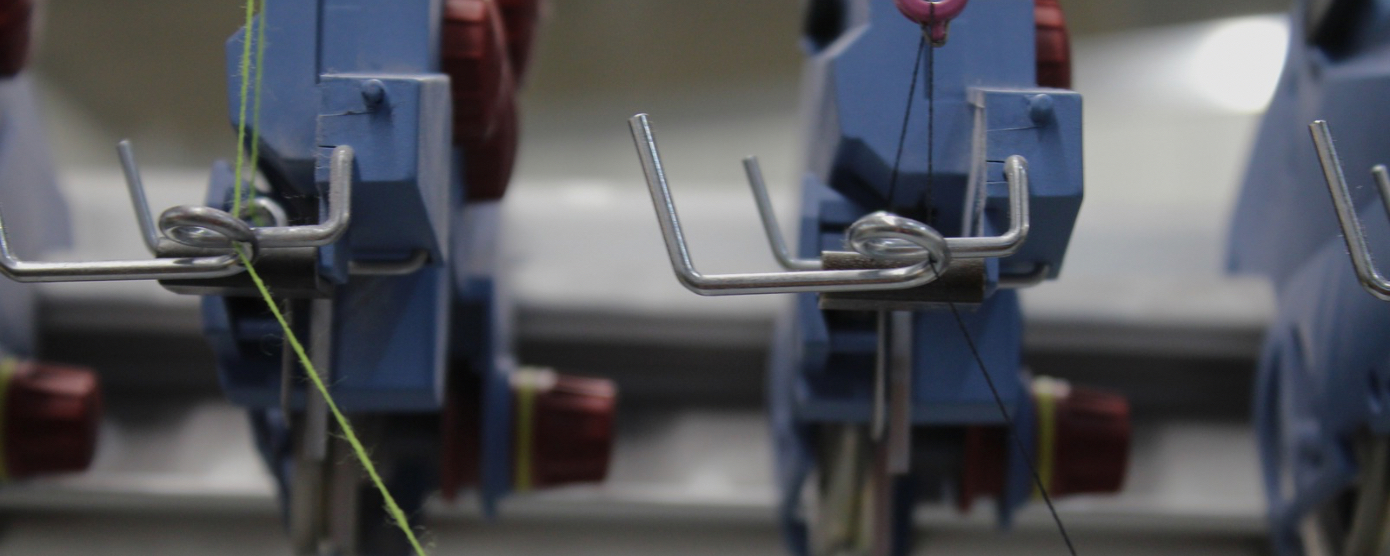
The Second Round of Public Consultation for GOTS Version 8.0
Your feedback from the second consultation period for GOTS version 8.0 is now being assessed and integrated.
-
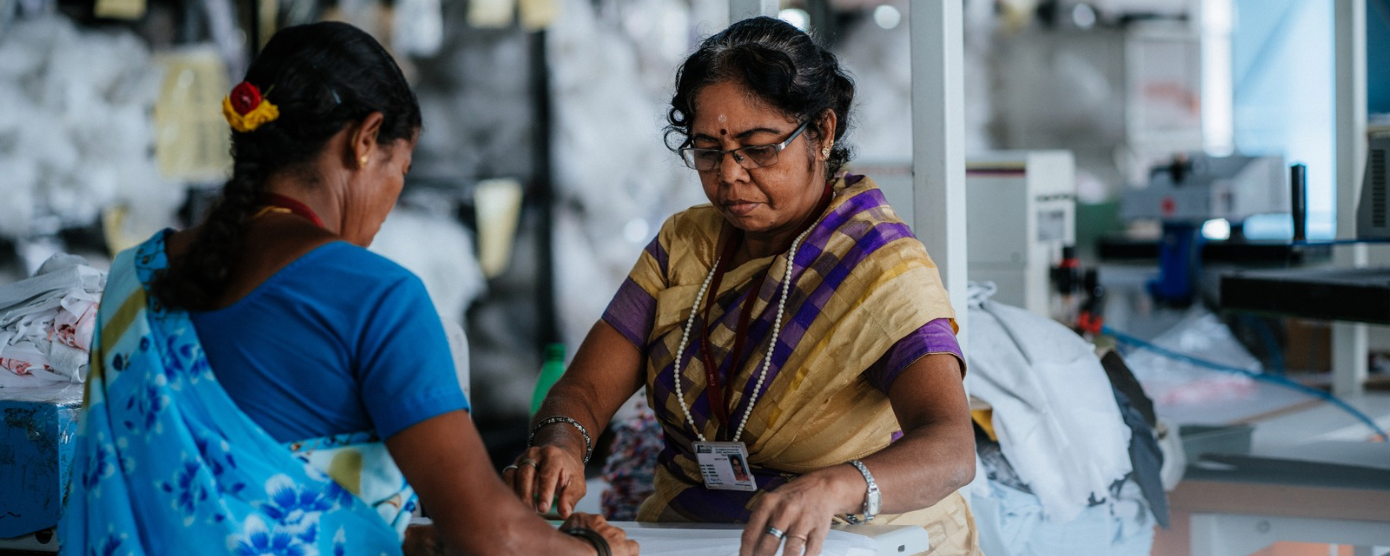
OECD Alignment Assessment Results
GOTS Version 7.0 was found to demonstrate close alignment with the OECD Due Diligence Guidance for Responsible Supply Chains in the Garment and Footwear Sector.
-
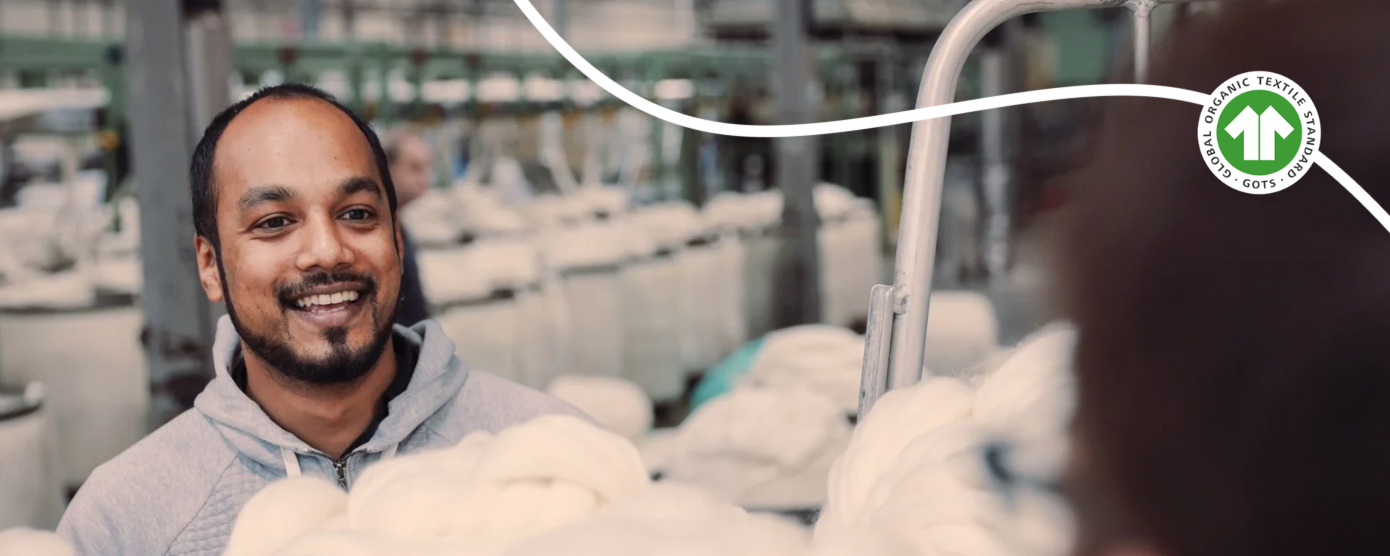
2024 Annual Report reveals key achievements and strategic shifts
Global Standard expands scope, leverages AI innovation, and amplifies global engagement.
-

Global Standard receives ISEAL Innovations Fund grant
The grant from the ISEAL Innovations Fund will support new due diligence training for GOTS auditors.
-
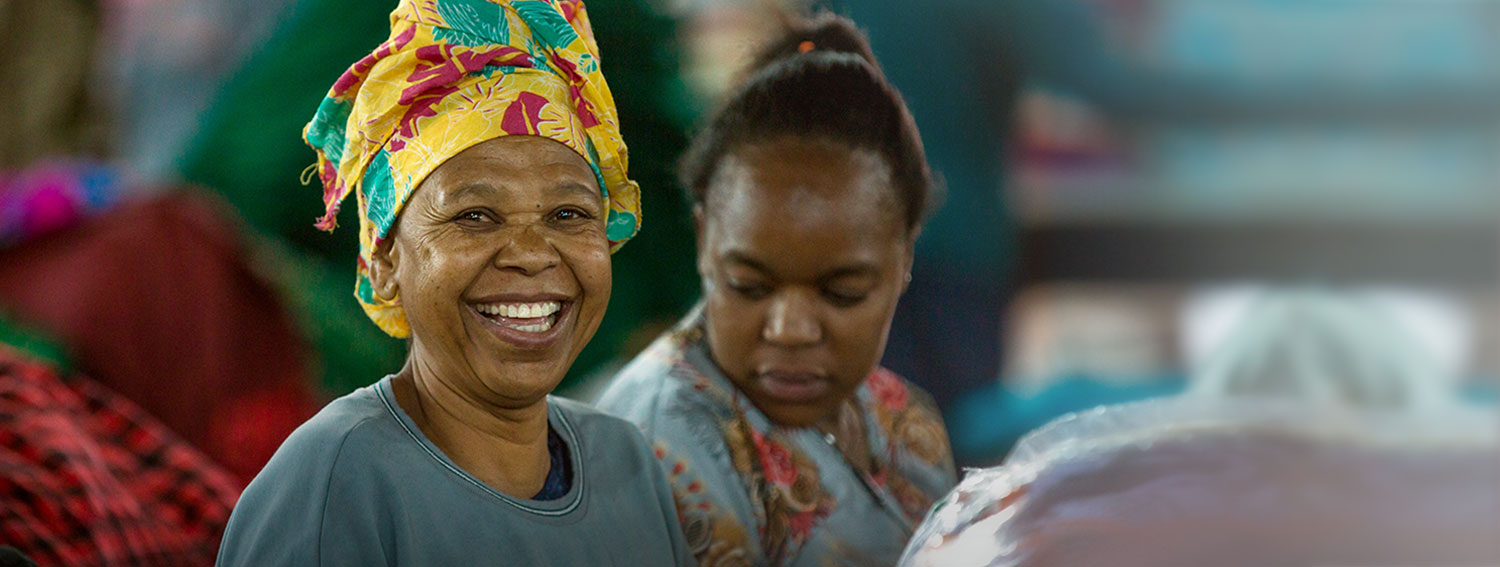
GOTS Due Diligence Handbook 1.1
Version 1.1 of the GOTS Due Diligence Handbook has been released.
-
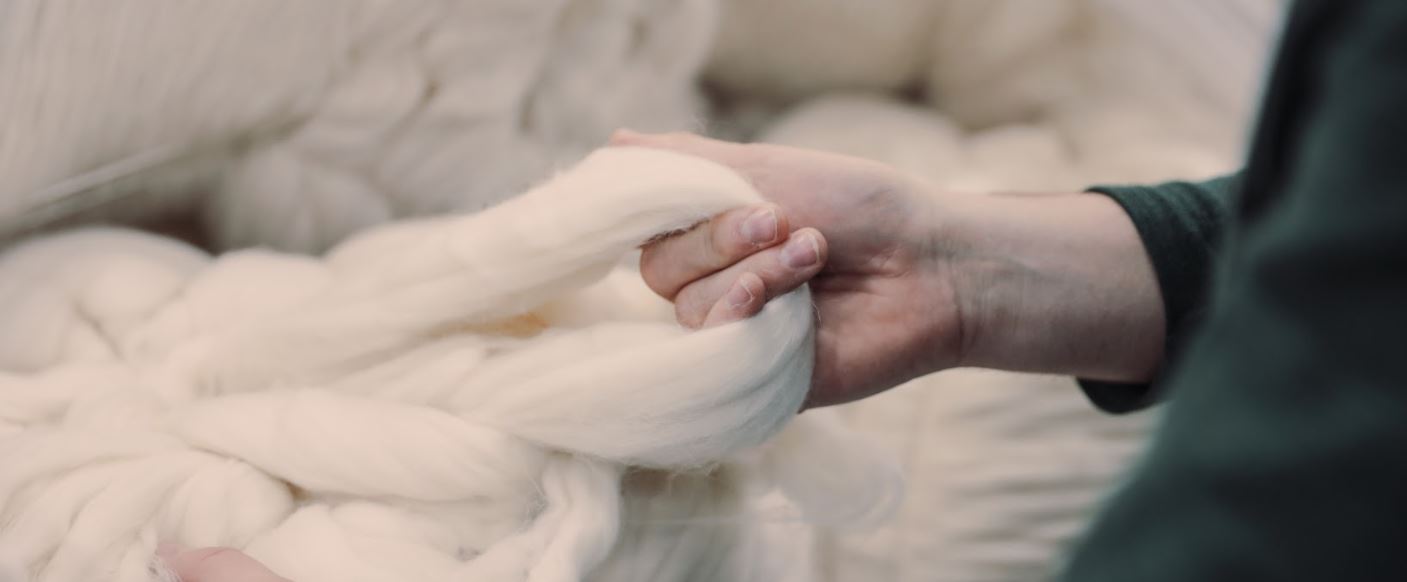
Manual for the Implementation of GOTS Version 7.2
Version 7.2 of the Manual for the Implementation of GOTS is now available for download.
-

Support Farmers Transitioning to Organic Cotton: GOTS and OCA Call to Action
Join OCA's Farm Program to secure organic cotton by backing farmers during the critical in-conversion phase
Quick links for Consumers
[g-certification]Quick links for Companies
Virtual Audits: COVID-19
Certified Suppliers Database
Who needs to be certified
Find Approved Certification Bodies
Find Approved Consultants
Permitted Use of GOTS label
Downloads
Protection
Quick links for Press
[fontawesome-solid--comment-dots]GOTS COMPLAINTS PROCEDURE
Any individual or organisation is able to register a complaint about perceived violations of
GOTS requirements.
This procedure is based on the core criteria of legitimacy, accessibility, predictability, equitability and transparency, and is
dialogue-based.

The Global Organic Textile Standard (GOTS) was developed by leading standard setters to define world-wide recognised requirements for organic textiles. From the harvesting of the raw materials, environmentally and socially responsible manufacturing to labelling, textiles certified to GOTS provide a credible assurance to the consumer.
Find Suppliers and Products
Use our free databases to find Find Suppliers and Products.
CERTIFIED SUPPLIERS DATABASE
This database contains the GOTS certified entities, their location, field of operation and product groups.
Find out how to use it
GOTS SHOP-FINDER
For the search you have the possibility to search specifically in your area. Enter the country, the postcode, or city and the area in the search mask and select one or more product categories.
GOTS News
Faces from Field to Fashion
Faces From Field to Fashion is a behind-the-scenes journey to the heart of the Global Organic Textile Standard (GOTS), and an introduction to the sights, sounds, and faces behind every GOTS product. Representing more than 4 million employees working in GOTS certified facilities around the world, eight individuals give us a glimpse into their lives and tell us how they have been impacted by GOTS in unscripted and candid video portraits.
Click here to meet the people from field to fashion.
Imprint
Global Standard gemeinnützige GmbH
Rotebühlstr. 102
70178 Stuttgart
Germany
Commercial Register / Handelsregister Stuttgart HRB 726970,
VAT No/ UST IdentNr DE 260 483 014,
Managing Directors / Geschäftsführer: Claudia Kersten, Vidyadhar Ashok Bhajekar
global-standard.org
Responsible according to / Verantwortlich nach §18 MStV:
Holger Stripf
Global Standard gGmbH
Rotebühlstr. 102
70178 Stuttgart
farmregistry.org
Responsible according to / Verantwortlich nach §18 MStV:
Katrin Khoza
Limitation of liability for external links
Our website contains links to the websites of third parties („external links“). As the content of these websites is not under our control, we cannot assume any liability for such external content. In all cases, the provider of information of the linked websites is liable for the content and accuracy of the information provided. At the point in time when the links were placed, no infringements of the law were recognisable to us. As soon as an infringement of the law becomes known to us, we will immediately remove the link in question.
Picture credits
The copyright of images and graphics not listed here lies with Global Organic Textile Standard.
Page: News – E-Meet GOTS at Texworld USA, Advertisement Image Textworld USA © Messefrankfurt
Page: News – GOTS Pressemitteilung Erste GOTS zertifizierte Gesichtsmasken aus From Field to Fashion wird From Field to Face, Advertisement Image Face Masks © Schweikardt Moden
Website Implementation
global-standard.org: Die Seitenwerkstatt, Cologne
farmregistry.org: Global Standard gGmbH
Japan

GOTS (Global Organic Textile Standard) とは
GOTSは、 繊維製品のサプライチェーン全体を対象とし、
独立した第三者認証に裏打ちされた、
環境的・社会的要件を含む
オーガニック繊維のための加工基準です。
オーガニックテキスタイルに関する世界的に認められる要求事項を定義するために、主要な基準設定者によって開発された基準です。
原料の収穫から、環境と社会に配慮した製造、ラベル表示まで、GOTSの認証を受けたテキスタイルは、消費者に信頼性の高い保証を提供します。
-
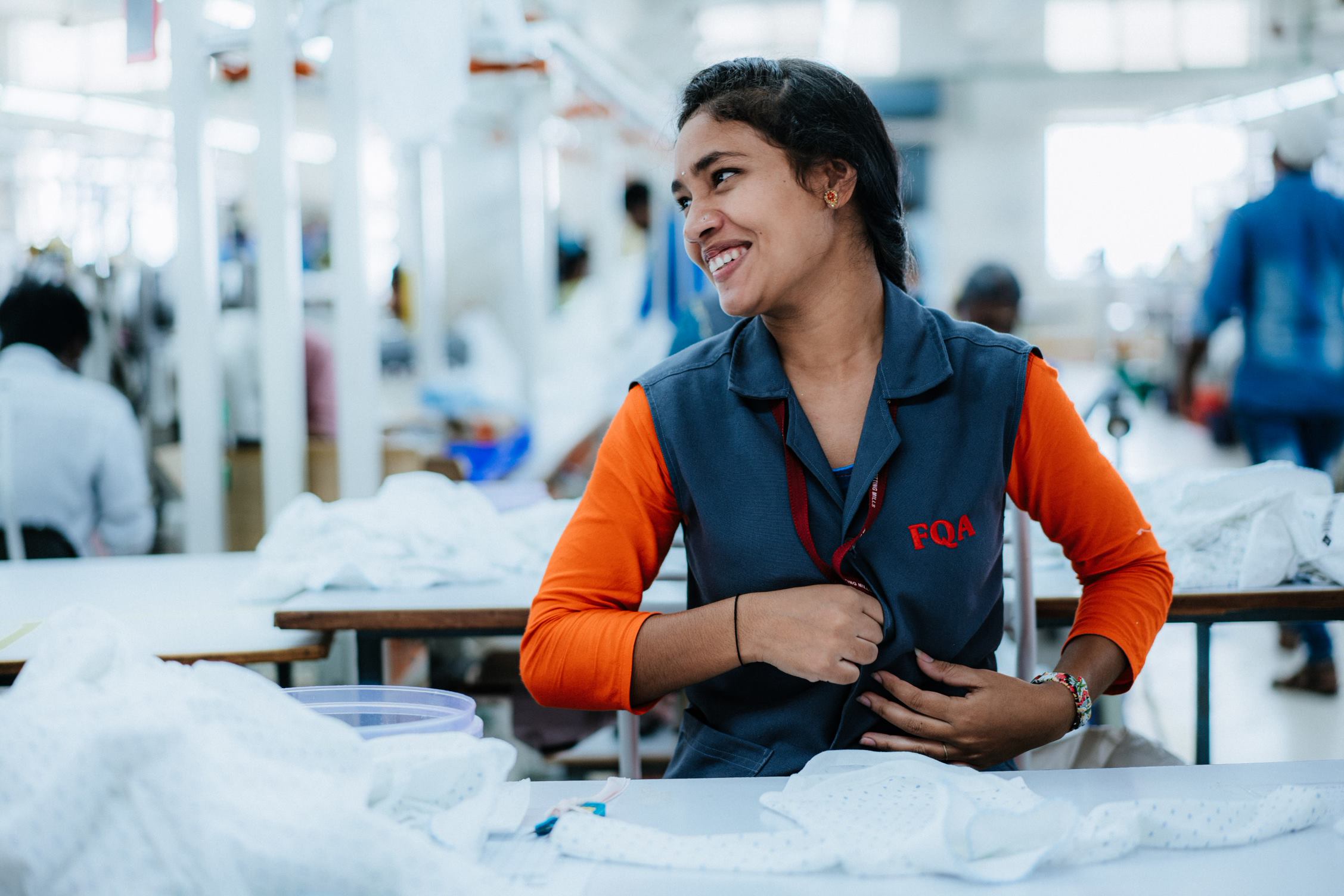
GOTSについて
GOTSの特徴やスコープに関してはこちら
-
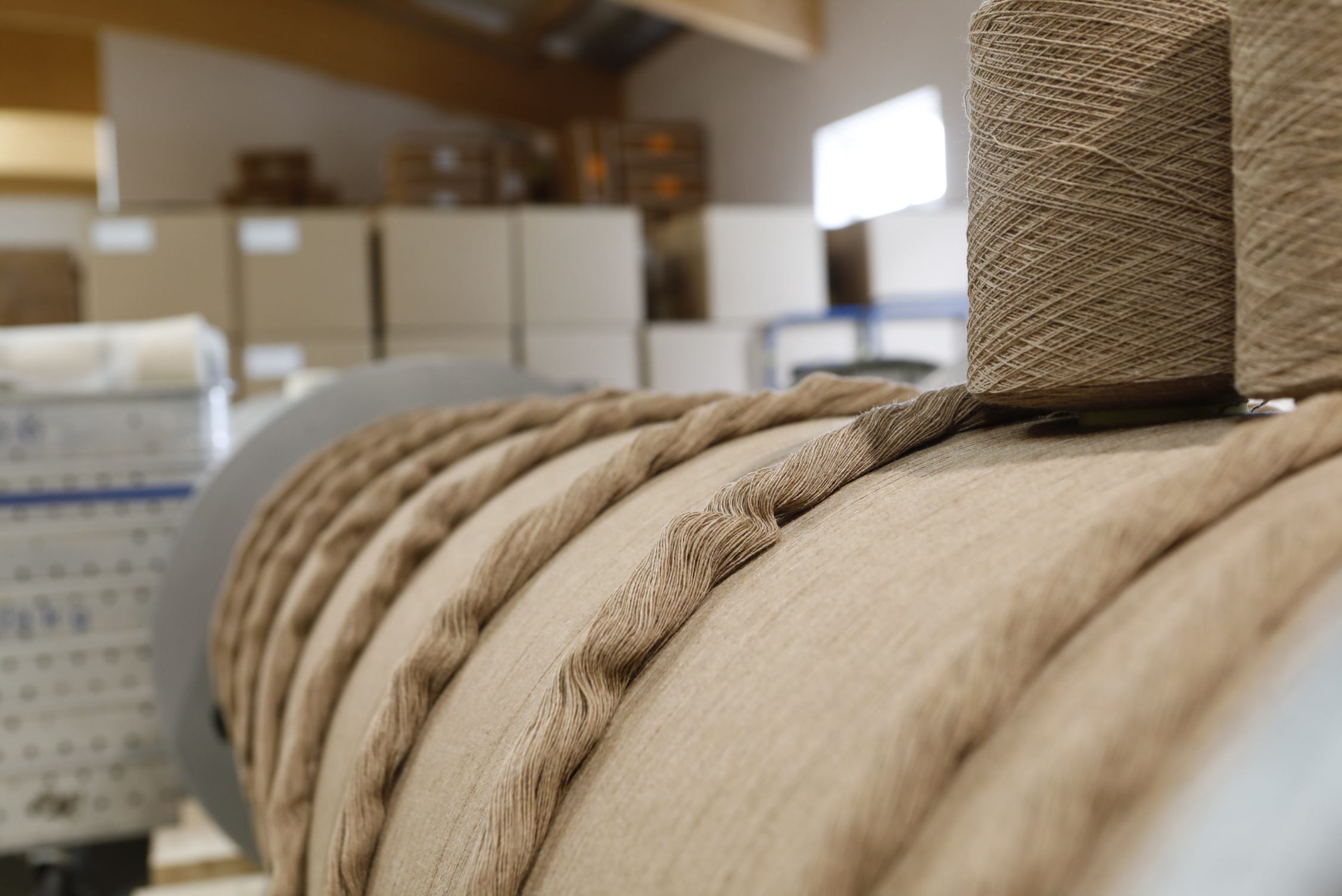
GOTS認証を取得するには
認証取得のステップや認証機関のリストはこちら
-
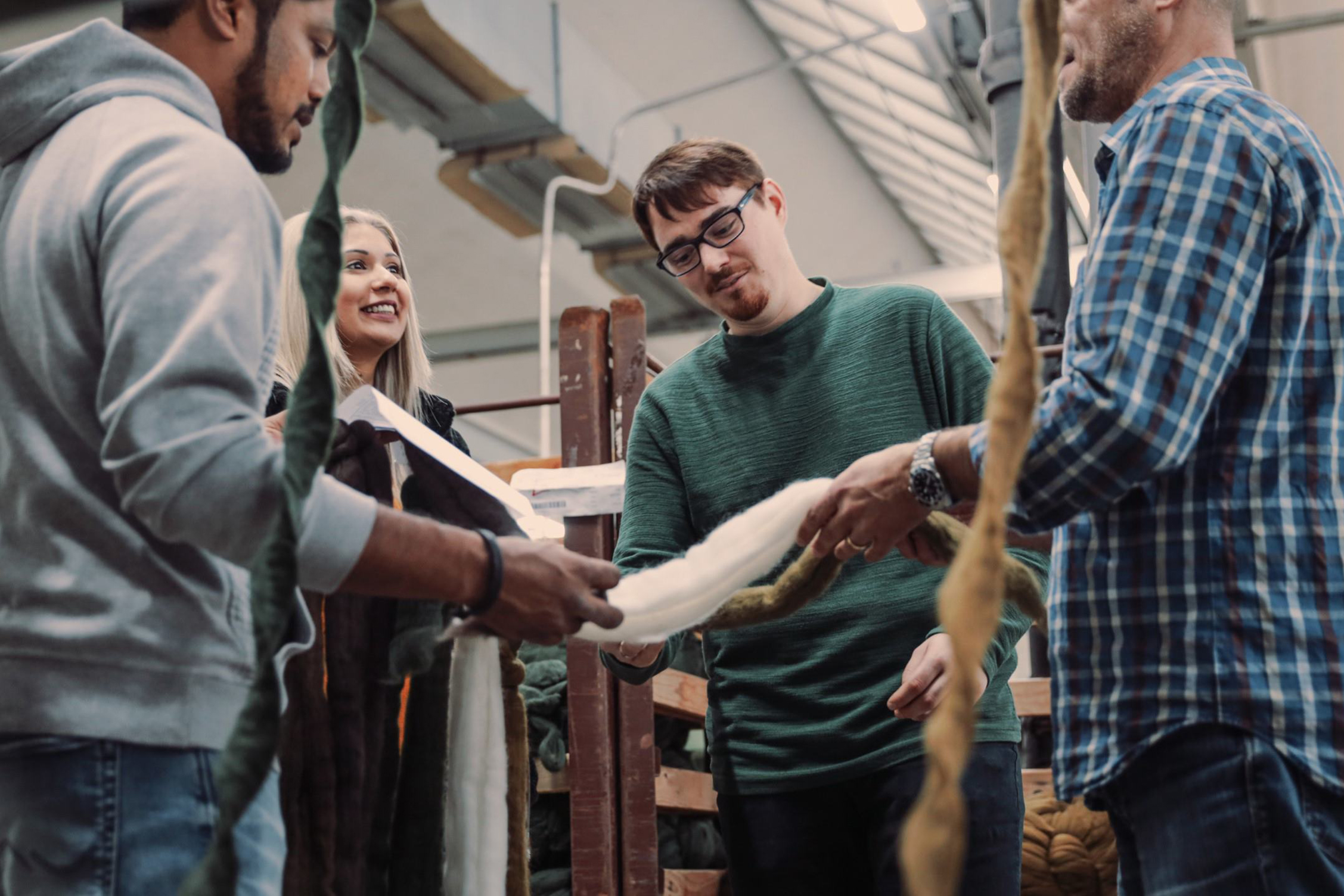
認証企業データベース
GOTS認証取得企業の検索はこちら
-
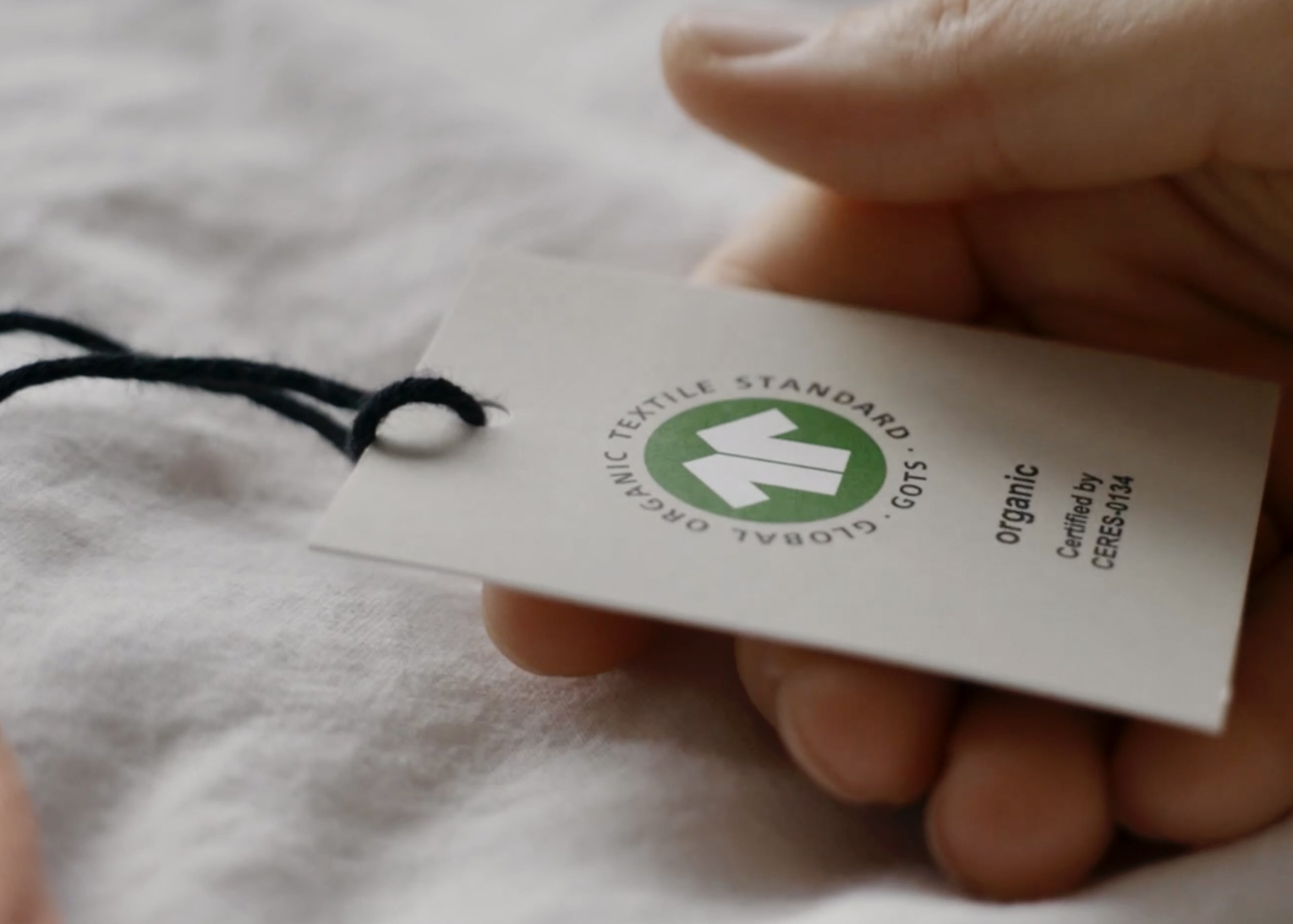
GOTSの正しい表示方法
GOTSラベルや文字の使用に関してはこちら
-
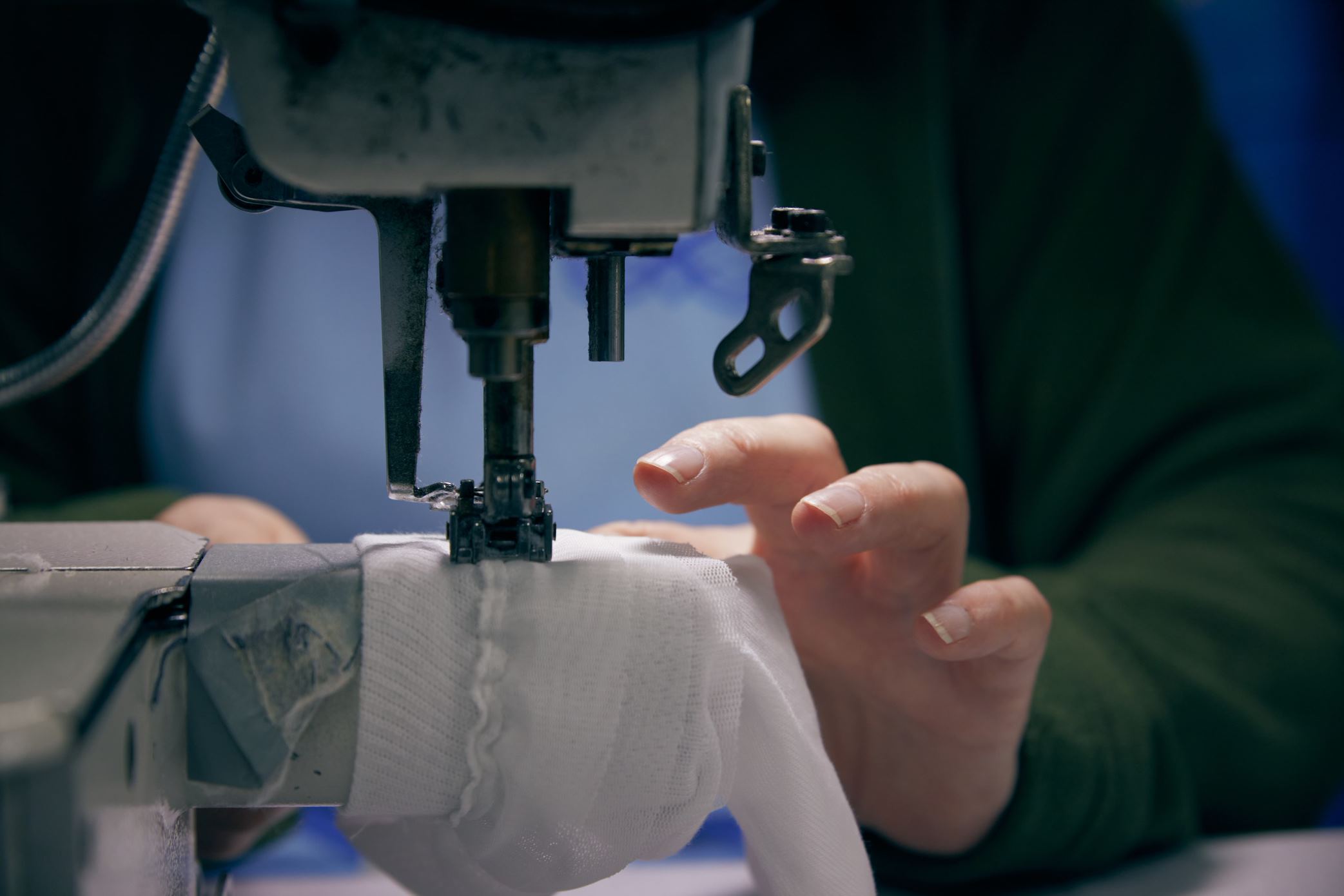
ドキュメント
基準やポリシー等の資料はこちら
右側のメニューからJAPANESE / 日本語を選択ください -
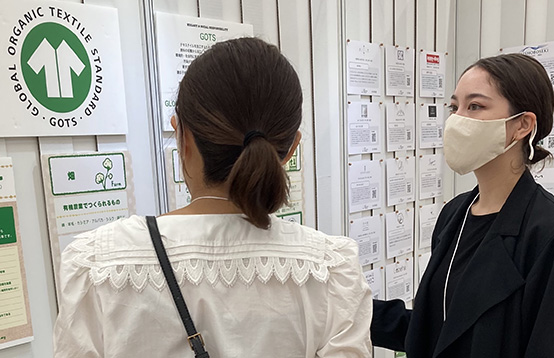
よくあるご質問
よくあるご質問(日本語版)はこちら
GOTS製品の正しい見分け方は?
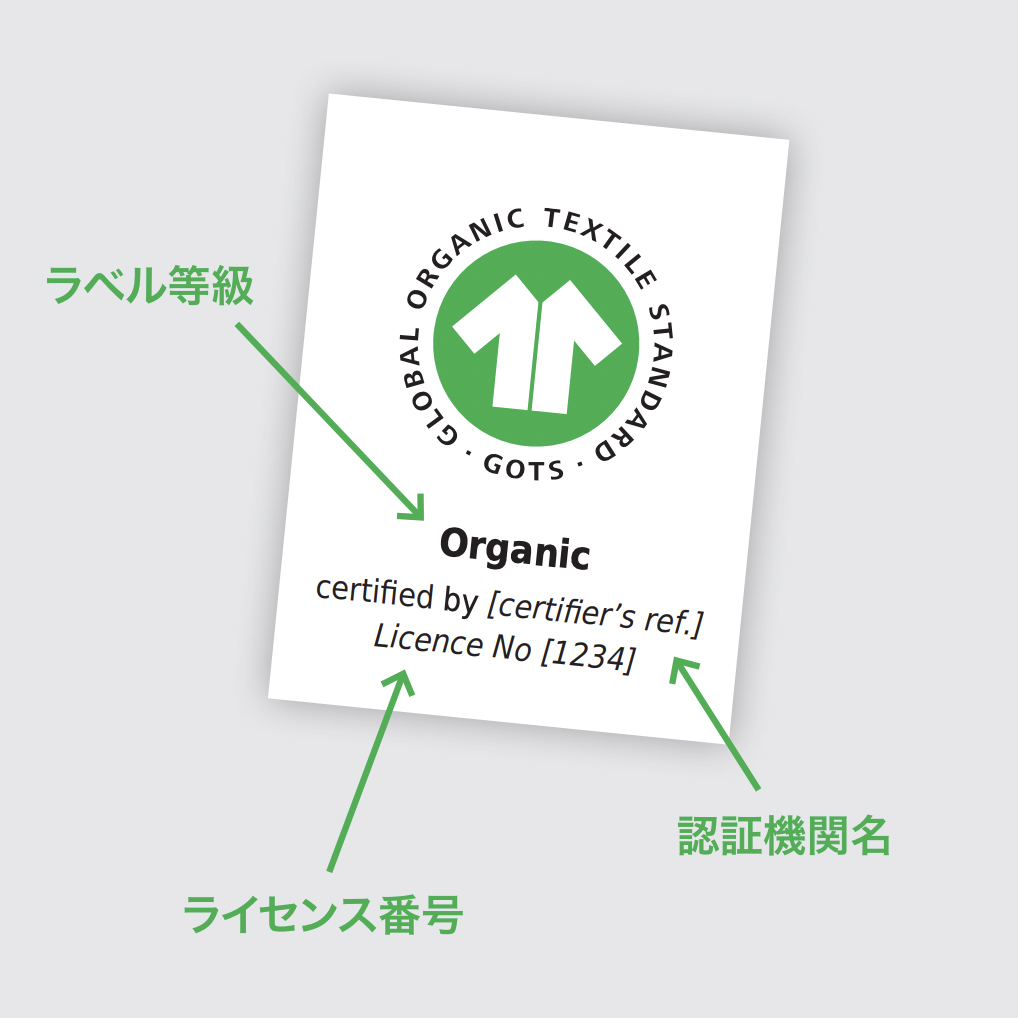
商品に付けられたラベルが目印になります。 パッケージやタグに、購入者に見やすいようにGOTSラベルがつけられています。
正しいGOTSラベルには以下の項目が表示されます。
- GOTS ラベル等級「Organic」/「Organic-in conversion」または「made with Organic」 /「made with Organic-in conversion」
- 認証機関名(または略称)
- ライセンス番号(または認証された企業の名前)
お知らせ
準備中
メディアへのGOTSロゴ使用について
メディア・教材でGOTSロゴの使用やGOTSの紹介をご希望の方は、
以下の項目をメールにてお送りください。
①GOTSロゴの使用目的
②使用者/ 連絡先メール、電話番号
③掲載場所または使用媒体名と発行日(予定時期)
④媒体のURL(あれば)
⑤GOTSの説明内容(ロゴの説明文)ー必要があれば修正させていただきます
お問い合わせ
Join the Movement – Become a Part of #BehindTheSeams 2024
By submitting this form, you express your interest in joining the "Behind the Seams" campaign organised by GOTS. Our marketing unit will contact you soon.
Last year's success:
- Over 250 participating GOTS-certified brands, companies and retailers. Join a community committed to sustainability and ethical practices.
- Award-winning new consumer-targeted campaign website: www.behindtheseams.eco. Explore our engaging website designed to connect conscious consumers with responsible businesses.
- Over 40 million impressions: Benefit from extensive exposure to a wide audience passionate about sustainability.
- Over 21 million unique consumers reached: Tap into a vast network of potential customers who prioritise eco-friendly products and practices.
It's absolutely FREE to participate!
Zero cost, maximum exposure. Participating in #BehindTheSeams gives your company invaluable awareness at no financial expense. Seize this opportunity to showcase your commitment to sustainability.
Join the movement today!
Fill out the form above to become a part of #BehindTheSeams and amplify your company's impact on sustainability. Connect with a community dedicated to making a difference.
Media Centre
Thank you for your interest in GOTS! We are happy to provide information for your reporting on GOTS.
If you need an individual interview, a short statement, or any additional materials from us, please contact Holger Stripf. You will find her contact details at the bottom of the page.
Media Assets
-

Photos
Here you will find various photos opening up a great insight into the work of the GOTS.
-

Videos
Find a selection of GOTS films showing and containig more interesting impressions and information about the GOTS.
-

Press KITS
Media FAQ
-
What is GOTS in a nutshell?
- GOTS is the worldwide leading textile processing standard for organic fibres.
- GOTS includes both ecological and social criteria.
- GOTS is backed up by independent certification.
- Every single step – from field to fashion - must be certified in order for the final product to carry the GOTS label.
- GOTS is an independent, self-funded, non-profit organisation.
- In this way, the GOTS puts an end to greenwashing.
-
How is GOTS different to other standards/labels in the market?
GOTS is a comprehensive standard that makes a ‘full product claim’. It sets detailed environmental and social criteria throughout the entire textile supply chain - from field to fashion.
Many other standards/certifications only trace the organic fibre flow throughout the textile supply chain. This allows an organic ‘fibre claim’ in the final textile product but without any requirement to meet environmental or social criteria in processing.
GOTS sets the benchmark for an international common understanding of environmentally friendly production systems and social accountability in the organic textile sector.
Find out more on how GOTS compares to others certifications/labels.
-
How many companies are GOTS certified?
Over 12,000 certified facilities (+19% to 2020) were reported in 2021, despite the continuing limitations of the COVID-19 pandemic.
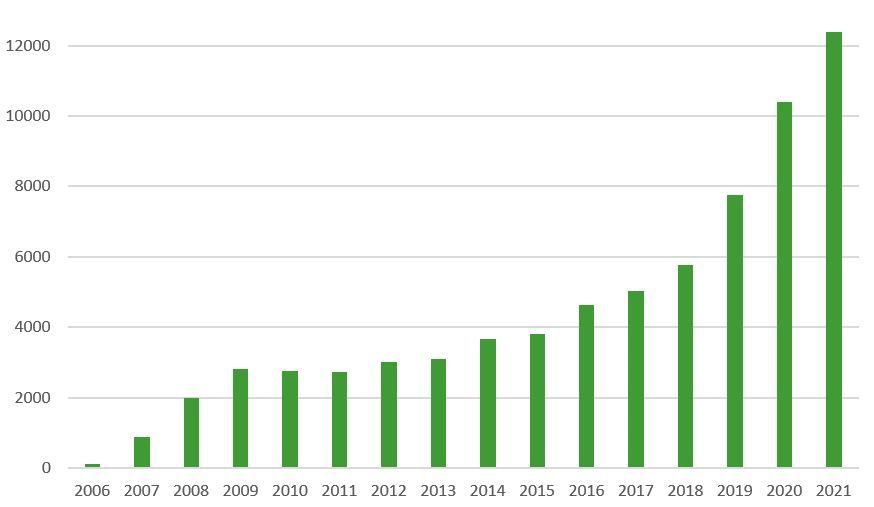
-
In how many countries is GOTS active?
GOTS is a global standard with certified facilities in 79 countries. GOTS Representatives are located in all major markets across the globe.
-
When was GOTS developed?
The development of the Global Organic Textile Standard (GOTS) started in 2002 when representatives of organic cotton producers, the textile industry, consumers, standard organisations and certifiers discussed the need for a harmonised organic textile standard that would be globally recognised. If you would like to find out more about our history, please click here.
-
What is GOTS’s business model? How does GOTS finance itself?
-
Does GOTS certify raw material such as organic cotton or wool?
Organic fibre production is not directly covered by the GOTS certification system, as GOTS itself does not set standards for organic fibre cultivation. Instead, the cultivation of organic fibres is under the scope of organic farming standards, many of them defined by national governments.
For organic fibre production, a certification to the IFOAM Family of Standards for the relevant scope of production is required. IFOAM has its own accreditation system. The standards approved under the IFOAM family of standards are officially endorsed as organic and include both private and government regulations.
A textile product carrying the GOTS label must contain a minimum of 70% certified organic fibres, a product with the label grade grade 'organic' must contain a minimum of 95% certified organic fibres.
Latest Press Releases
Press Contact
Musterseite
Our vision is that organic textiles will become a significant part of everyday life, enhancing people’s lives and the environment.
Our mission is the development, implementation, verification, protection and promotion of the Global Organic Textile Standard (GOTS). This standard stipulates requirements throughout the supply chain for both ecology and labour conditions in textile and apparel manufacturing using organically produced raw materials. Organic production is based on a system of farming that maintains and replenishes soil fertility without the use of toxic, persistent pesticides and fertilizers. In addition, organic production relies on adequate animal husbandry and excludes genetic modification.
We see ourselves as contributing to sustainable development and actively cooperate with all relevant stakeholders.
In developing GOTS we set strict – and binding – requirements regarding ecological and social parameters. In so doing, we take into consideration the need for a standard that is practicable for industrial production and appropriate to a wide range of products. Taking both aspects into account, we define organic textiles as being processed with the least possible impact and residual natural and synthetic chemical inputs.
GOTS is a dynamic standard: we foster constant progress towards development of better textile processing methods. In this continuous improvement process we collaborate with international stakeholders, including the textile and apparel industry, chemical suppliers, organic farming and environmental organisations, workers’ rights groups, and labour unions. We believe that a voluntary global standard, set in partnership with international stakeholder communities, ensures widespread global acceptance. In contrast to mere national standards, it also helps to remove barriers to international trade.
Implementation of GOTS reconciles the need of the textile industry for one global standard with consumers’ need for transparency. The increasing recognition and acceptance of GOTS worldwide confirms that these needs are being met. Our initial objective was to harmonise several different standards into one coherent label; this has become a reality. We continue to work to ensure that this common global standard satisfies the expectations of all stakeholders.
A standard is only as effective as it is credible. In addition to trust, verification is crucial to building credibility. We entrust verification only to selected professional and independent certification bodies. The certification bodies regularly audit all parties involved in the manufacturing of GOTS-certified textiles through comprehensive on-site inspections in order to verify that all GOTS environmental and social requirements are met. In order to further protect GOTS’ credibility, we investigate and impose sanctions wherever there is evidence of misleading use of the GOTS label or reference to GOTS certification.
Our organisation maintains a flat structure and aims to minimise administrative costs. The GOTS programme is self-financed. All income is used to reach our objectives.
As a global network we have representatives working to promote GOTS around the world. For us, team spirit means more than mutual respect, understanding and trust; it means working together to achieve solutions.
Respect for both people and the environment drives us.
Press
-
GOTS Images
Find selected GOTS images available for download here.
-
Security Advice Adverts
Click below to view and download our Security Advice Adverts for retailers and consumers in different formats.
Press Releases
Privacy Policy
PRIVACY NOTICE
As the data controller we have prepared this privacy notice to inform you in accordance with the requirements of the EU General Data Protection Regulation 2016/679 (GDPR) about the nature, scope and purpose of the processing of personal data in relation to the services we offer on our web site.
I. Definitions
„Personal data“ means any information relating to an identified or identifiable natural person (‘data subject’); an identifiable natural person is one who can be identified, directly or indirectly, in particular by reference to an identifier such as a name, an identification number, location data, an online identifier or to one or more factors specific to the physical, physiological, genetic, mental, economic, cultural or social identity of that natural person;
„Processing“ means any operation or set of operations which is performed on personal data or on sets of personal data, whether or not by automated means, such as collection, recording, organisation, structuring, storage, adaptation or alteration, retrieval, consultation, use, disclosure by transmission, dissemination or otherwise making available, alignment or combination, restriction, erasure or destruction;
„Controller“ means the natural or legal person, public authority, agency or other body which, alone or jointly with others, determines the purposes and means of the processing of personal data; where the purposes and means of such processing are determined by Union or Member State law, the controller or the specific criteria for its nomination may be provided for by Union or Member State law;
„Recipient“ means a natural or legal person, public authority, agency or another body, to which the personal data are disclosed, whether a third party or not. However, public authorities which may receive personal data in the framework of a particular inquiry in accordance with Union or Member State law shall not be regarded as recipients; the processing of those data by those public authorities shall be in compliance with the applicable data protection rules according to the purposes of the processing;
II. General information
1. The data controller
Global Standard gemeinnützige GmbH
Rothebühlstr. 102
70178 Stuttgart
Germany
E-Mail:
2. Contact details of the data protection officer
Herr Gerhard Deiters
BHO Consulting GmbH
Vorgebirgstraße 132, 50969 Köln
Email:
Website: www.bho-consulting.com
3. Legal bases
We process personal data based on at least one of the following legal bases:
- The data subject has given consent to the processing of his or her personal data for one or more specific purposes (Art. 6 (1) lit. a GDPR);
- Processing is necessary for the performance of a contract to which the data subject is party or in order to take steps at the request of the data subject prior to entering into a contract (Art. 6 (1) lit. b GDPR);
- Processing is necessary for compliance with a legal obligation to which we are subject (Art. 6 (1) lit. c GDPR);
- Processing is necessary in order to protect the vital interests of the data subject or of another natural person (Art. 6 (1) lit. d GDPR);
- Processing is necessary for the purposes of the legitimate interests pursued by us or by a third party (Art. 6 (1) lit. f GDPR)
In this privacy policy we refer to the respective legal basis of the individual data processing operations.
4. Onward transfer of personal data
We forward personal data to recipients (data processors or other third parties) only to the extent required and only if one of the subsequent conditions are met:
- the data subject has consented to the data transfer;
- the onward transfer is required to fulfil a contractual obligation or pre-contractual measure on the request of the data subject;
- we are obliged by law to make such a transfer;
- The onward transfer is made on the basis of our legitimate interest or on those of a third party.
5. Third countries
The transfer of personal data to a third country or an international organisation outside the European Union (EU) or the European Economic Area (EEA) is subject to legal or contractual permission only in accordance with the provisions under Art. 44 et seq. GDPR. It means that pursuant to Art. 45 GDPR an adequacy decision of the EU commission must be present for the respective country, appropriate safeguards for data privacy under Art. 46 GDPR, or Binding Corporate Rules under Art. 47 GDPR do exist. In individual cases, a data transfer may be permitted on the basis of an exception under Art. 49 GDPR.
On our web site we may use external services provided by organisations based in the USA. If these services are active, personal data is collected in connection with the provision of the relevant service and may be transferred to and stored on servers in the USA. The European Court of Justice considers the USA a country with an inadequate level of data protection. When data is transferred to the US, there is a fundamental risk that the US authorities may access and use the data for surveillance and monitoring purposes without notification and without the possibility of a legal remedy.
6. Rights of data subjects
As a data subject you have the following right:
- Pursuant to Art. 15 GDPR to request information about your personal data processed by us. You may also request information regarding the purposes of the processing; the categories of personal data concerned; the recipients or categories of recipients to whom the personal data have been or will be disclosed; the envisaged period for which the personal data will be stored, or the criteria used to determine that period; where the personal data are not collected from you, the data source; the existence of automated decision-making, including profiling, and meaningful information about the logic involved, as well as the significance and the envisaged consequences of such processing; the existence of the right to request rectification or erasure of data concerning you, the right to restrict processing or to object to such processing, the right to lodge a complaint with a supervisory authority. Finally, you have a right to know whether personal data has been transferred to a third country or to an international organisation, and, if so, the appropriate safeguards relating to this transfer;
- Pursuant to Art. 16 GDPR to demand the immediate rectification of inaccurate personal data and to have incomplete personal data that are stored by us to be completed;
- Pursuant to Art. 17 GDPR to demand the erasure of your personal data stored by us, unless the processing is necessary for exercising the right of freedom of expression and information, for compliance with a legal obligation, for reasons of public interest, or for the establishment, exercise or defence of a legal claim;
- Pursuant to Art. 18 GDPR to request the restriction of the processing of your personal data if the accuracy of the personal data is contested by you; the processing is unlawful but you oppose the erasure of the personal data and request the restriction of their use instead; we no longer need the personal data for the purposes of the processing, but they are required by you for the establishment, exercise or defence of legal claims; you have objected to processing pursuant to Art. 21(1) GDPR pending the verification whether our legitimate grounds override your interests;
- Pursuant to Art. 20 GDPR to receive your personal data, which you have provided to us, in a structured, commonly used and machine-readable format and have the right to transmit those data to another controller;
- Pursuant to Art. 21 GDPR to object to the processing of your personal data on grounds relating to your particular situation, or if you object to processing for direct marketing purposes and the legal basis for the processing are our legitimate interests pursuant to Art. 6 (1) lit. f GDPR;
- Pursuant to Art. 7 (3) GDPR to withdraw your consent given to us at any time. As a result, we are no longer allowed to continue to process the data that was based on this consent in the future;
- Pursuant to Art. 77 GDPR to lodge a complaint with a supervisory authority, in particular in the Member State of your habitual residence, place of work or place of the alleged infringement. A list of contact details of the data protection officers and supervisory authorities can be found on this web site: https://www.bfdi.bund.de/DE/Infothek/Anschriften_Links/anschriften_links-node.html.
If you wish to assert the data subject rights mentioned above, you can contact us or our data protection officer at any time using the contact details above.
7. Erasure and restriction of personal data
Unless otherwise provided for in this privacy notice, personal data will be deleted, if these data are no longer necessary in relation to the purposes for which they were collected or otherwise processed and the deletion does not conflict with statutory retention requirements. In addition, we will erase the personal data processed by us in accordance with Art. 17 GDPR on your request, if the conditions provided therein are met. If personal data are required for other lawful purposes, they will not be erased, but their processing will be restricted in accordance with Art. 18 GDPR.
In case of restriction, the data will not be processed for other purposes. This applies, for example, to personal data that must be retained by us for commercial or tax law reasons. For example, data must be kept for 6 years pursuant to Section 257 (1) Nos. 2 and 3 German Commercial Code (HGB) and Section 147 (1) Nos. 2, 3, 5 German Tax Code (AO); data must be kept for 10 years pursuant to Section 257 (1) Nos. 1 and 4 HGB and Section 147 Abs. 1 No. 1, 4, 4a AO.
8. Cookies
Our web site uses cookies. Cookies are small text files that your browser automatically creates and stores on your device (laptop, tablet, smartphone, PC, etc.) when you visit our web site. Cookies do no harm to your device, nor do they contain any viruses or other malicious software. The cookie stores information which is created in relation to the specific device you are using. However, this does not mean that we become immediately aware of your identity. Cookies are mainly used to make the web site more user-friendly, effective and secure. We use the following cookies on our web site.
Necessary cookies:
- Name: Joomla_user_state
- Purpose: Recognizes during your visit if you are a registered user.
- Expires: Until the end of your visit
- Sample content: Logged_in
- Further Information:
- Cookie-Name: 4ee098df19c986f2be779fb4a1495918
- Purpose: Idenfifies your user session and recognizes during your visit of our site that you have already visited individual pages of our website.
- Expires: Until the end of your visit
- Sample content: 7cc8de569099a02c9c5ffdb9cef40a02
- Cookie-Name: NID
- Provider: Google
- Purpose: This cookie is set by Google to identify a recurring user's device
- Expires: 6 Months
- Sample content: 204=HaIFIFqcKmoOUC3hpIHS99w5NQAmQ8FSOSQnwAiK2QH
The data processed by necessary cookies are required for the above-mentioned purposes to safeguard our legitimate interests and those of third parties in the provision and operation of our website in accordance with Art. 6 (1) lit. f GDPR.
Most browsers accept cookies automatically. However, if you do not wish to accept cookies, you can configure your browser so that no cookies are stored on your device or a message is displayed before new cookies are created. A general objection to the use of cookies used for online marketing purposes can be made for a variety of services, such as explained at http://www.youronlinechoices.com/ or the opt-out page of the Network Advertising Initiative http://optout.networkadvertising.org. However, disabling cookies may mean that you may not be able to use all the features of our web site.
III. Individual processing operations
1. Hosting
In order to make available our web site, we use services provided by hosting companies, such as: Provision of web servers, disk space, database services, and security or maintenance services. Here we, or our hosting providers, process personal data of the web site visitors on the basis of our legitimate interests in providing efficient and secure access to our web site in accordance with Art. 6 (1) lit. f GDPR.
2. Access data ad log files
By visiting our web site or its individual pages, your device’s internet browsers automatically sends information to the server of our web site. This information is stored in so-called log files by us or our hosting provider and will be deleted after 6 months at the latest.
The following information is stored:
- IP address of the requesting computer;
- Date and time of access;
- Name and URL of the requested file;
- Web site from which our site was accessed (Referrer-URL);
- The browser used and your computer’s operating system;
- Status codes and the transferred amount of data;
- Name of your access providers.
This data will be used for the following purposes:
- The provision of our web site, including all of its features and contents;
- To ensure a smooth connection to our web site;
- To ensure the comfortable use of our web site;
- To ensure system security and stability;
- For anonymised statistical evaluation of web site access;
- To optimise our web site;
- For disclosure to law enforcement authorities in the event of unlawful interference / attacks on our systems;
- For further administrative purposes.
The legal basis for data processing is Art. 6 (1) lit. f GDPR. Our legitimate interest follows from the data collection purposes mentioned above. Under no circumstance will we use the personal data collected for the purpose of drawing conclusions about a person.
3. Contact form / other modes of contact
If you use the contact form, you will be asked to provide your name and your e-mail address and any other contact details, so that we can get in touch with you. Further information can be provided voluntarily. The data processing for the purpose of contacting us and answering your request takes place in accordance with Art. 6 (1) lit. a GDPR on the basis of your voluntary consent. All personal data collected in connection with the contact form will be deleted after your request has been processed, unless further storage is required for the documentation of other transactions (for example, subsequent conclusion of a contract).
If you contact us using the contact details published in our web site (for example, by e-mail) and in this context provide us with personal data, we will use this data to process your request on the basis of Art. 6 (1) lit. b GDPR, if your request is related to the performance of a contract or is required to perform pre-contractual action. In all other cases, processing is based on your consent in accordance with Art. 6 (1) lit. a GDPR and / or our legitimate interest in the effective processing of requests addressed to us pursuant to Art. 6 (1) lit. f GDPR. We will store your personal data until you ask us for deletion, revoke your consent to the storage, or the data are no longer necessary for the purpose for which they were collected (for example, after completion of your request). Mandatory statutory provisions - especially retention periods - remain thereof unaffected.
4. Newsletter
If you would like to receive our newsletter, we need your e-mail address. The data processing for the purpose of sending the newsletter takes place in accordance with Art. 6 (1) lit. a GDPR on the basis of your voluntary consent by means of the so-called double-opt-in procedure. The e-mail address will be used and stored for this purpose until you withdraw your consent or unsubscribe from receiving the newsletter. You can unsubscribe at any time, for example by using the link at the bottom of each newsletter. You can also send your withdrawal/unsubscribe request at any time to the e-mail address given under Clause II.
We embed a so-called counting pixel into our newsletters. A counting pixel is a miniature graphic embedded in the HTML format of the newsletter to allow us an analysis of the reader's reading behaviour. In this context, we gather information whether and at what time a newsletter was opened by you and which of the links contained in the newsletter were accessed by you. We use this data to generate statistical evaluations of the success or failure of a marketing campaign in order to optimize the distribution of our newsletters and to better tailor the content of future newsletters to your interests. The collected data will not be passed on to third parties and will be deleted after the statistical evaluation.
5. GOTS Monitor
To activate the software license and register for the use of the GOTS Monitor Water / Energy, we will forward your license number, name, telephone number, address, e-mail and website to the manufacturer of the software. The recipient of the data is Systainable Solutions Ltd., Hamilton House, Mabledon Place, Bloomsbury, London, WC1H 9BB, United Kingdom. The data transfer is required for entering into the contract which is to be concluded at your request. Objecting or refusing to the data transfer has the consequence that the license will not be released or will be deleted. The legal basis for the data transfer is ours, and Systainable's legitimate interest under Art. 6(1) lit. f GDPR in the documentation of licensing and license-compliant use of the application. For more information on how Systainable handles your personal data please refer to the privacy policy at: https://systainable.eu/en/
6. GOTS Databases
We will store your first name, last name, telephone number and e-mail address in the GOTS database for the purpose of publishing this information as commercial contact details representing a certified company on this website. The legal basis for processing is your voluntary consent pursuant to Art. 6 (1) lit. a GDPR. Your personal data will be deleted after the company profile has been removed from the database or you withdraw your consent for publishing the information.
If you serach for shop locations, we may use you geolocation to narrow down the search results. The legal basis for processing is your voluntary consent pursuant to Art. 6 (1) lit. a GDPR.
Statistics and Analytics
7. Matomo (formerly Piwik)
Our web site uses the Open-Source software Matomo. Matomo collects data about user visits to our web site. These data are used to ensure that our web site is well designed and continuously optimised to meet the needs of our web site visitors, to measure the success of marketing activities, and to create statistical evaluations. The legal basis is our legitimate interests under Art. 6 (1) lit. f GDPR. The information will not be disclosed to third parties and under no circumstance will the IP address be associated with other user data. IP addresses are anonymized, so that any assignment is impossible.
If you do not want Matomo to process visitor data from you, you can prevent this by setting an opt-out cookie from Matomo. This cookie will prevent Matomo from collecting and storing any future visitor data from your browser when you visit this web site: www.global-standard.org Attention: If you delete your cookies, this will also result in the opt-out cookie being deleted. You must then reactivate the Matomo opt-out cookie. For more information on how Matomo handles your personal information, see Matomo's Privacy Policy on: https://matomo.org/privacy-policy/.
8. SalesViewer
Our website uses SalesViewer® technology from SalesViewer® GmbH on the basis of the website operator’s legitimate interests (Section 6 paragraph 1 lit.f GDPR) in order to collect and save data on marketing, market research and optimisation purposes.
In order to do this, a javascript based code, which serves to capture company-related data and according website usage. The data captured using this technology are encrypted in a non-retrievable one-way function (so-called hashing). The data is immediately pseudonymised and is not used to identify website visitors personally.
The data stored by Salesviewer® will be deleted as soon as they are no longer required for their intended purpose and there are no legal obligations to retain them.
The data recording and storage can be repealed at any time with immediate effect for the future, by clicking on https://www.salesviewer.com/opt-out in order to prevent SalesViewer® from recording your data. In this case, an opt-out cookie for this website is saved on your device. If you delete the cookies in the browser, you will need to click on this link again.
IV. Google Services
Provider of the services below is Google Ireland Limited (Register No: 368047), Gordon House, Barrow Street, Dublin 4, Ireland (hereinafter „Google“).
The information collected by Google in connection with the provision of the respective services may be transferred to and processed by Google servers in the USA.
For more information about how Google deals with your personal data, please refer to Google's Privacy Policy: https://www.google.com/intl/de/policies/privacy/. For information on the use of data for advertising purposes by Google, setting and your right to object please refer to:
https://www.google.de/policies/privacy/partners/
https://www.google.de/policies/technologies/ads/
https://adssettings.google.com/
1. Google services for which your consent is required
The legal basis for the use of the following services is your voluntarily given consent according to Art. 6 (1) lit. a GDPR. The legal basis for data transfer to the USA is also your voluntarily given consent in accordance with Art. 49 (1) lit. a GDPR.
i. YouTube
Our web site uses media content from the YouTube platform. Provider is Google Ireland Limited (Register No: 368047), Gordon House, Barrow Street, Dublin 4, Ireland (hereinafter "Google").
The purpose is to display content of the YouTube platform that relates to the content of our web site. This service collects your IP address and any additional data Google may need to provide the YouTube content. The information gathered about your use of this web site is stored on a server in the USA. This information may also be transferred to third parties if required by law or if third parties process this data on behalf of us or Google. If you are logged in to your YouTube account while you are visiting our web site, Google can link your visit of our web site directly to your YouTube user account. If you do not want Google to be able to associate the data collected on our web site with your respective user account on YouTube, you must first log out of YouTube.
2. Other Google services
The legal basis for the use of the following services are our legitimate interests according to Art. 6 (1) lit. f GDPR. Our legitimate interests are listed below for each service individually.
i. reCAPTCHA
This web site uses Google reCAPTCHA to ensure that the forms provided on our web site are used by an actual person and are not abused by bots or automated procedures. This service collects your IP address and any additional data required by Google for providing the reCAPTCHA service. The collected information about your use of this web site is stored on servers in the USA. This information may also be transferred to third parties if required by law or if third parties process this data on behalf of us or Google.
ii. Google Maps
This web site uses Google Maps to display site maps, maps, terrain data, or geographic maps. This service collects your IP address, which of our web sites you have visited and, if necessary, other data required by Google for the provision of the maps (such as location data). The generated information is stored on servers in the USA. This information may also be transferred to third parties if required by law or if third parties process this data on behalf of us or Google. The Google Maps terms of service can be found at: https://www.google.com/intl/en_uk/help/terms_maps.html.
Public Database
PUBLIC DATABASE
The GOTS public database is a practical tool that enables its users to search for suppliers of GOTS certified products (GOTS certified entities) along the entire supply chain, their location, fields of operation and GOTS certified products, according to individual parameters.
Not all products manufactured or sold by a GOTS certified entity may be GOTS certified. Please check whether the products show the required correct and complete labelling at the time of purchase through our Security Advice Adverts.
This search form is suitable to search through all the data sets contained in the GOTS public database. In order to narrow down the search results, search terms can be entered in several or all search fields at the same time. In order to facilitate understanding the functionality of the database, we suggest that users first read through the provided guide ‘How to use it`.
Search for Producers and Products
Questions & Answers
Becoming Certified
-
Who can apply for GOTS certification?
Textile processing, manufacturing and trading entities can apply for certification according to the Global Organic Textile Standard. Farming projects that want to produce organic fibre cannot apply for GOTS certification, but for certification according to organic farming standards (i.e the USDA NOP or the EEC 834/2007).
-
How to apply for GOTS certification?
The initial request and application for GOTS certification must be addressed to a GOTS Approved Certification Body. Approved certifiers are assigned with implementing the GOTS quality assurance system and will be able to answer individual questions related to the inspection and certification procedure.
Contact information for all GOTS approved certifiers, their local representatives, a list of countries where they currently have certified clients in, as well as their accredited scopes, are listed here. Applicants are free to select any of those according to their preference.
-
What is the basis for the GOTS certification?
The basis for GOTS certification:
- Annual on-site inspection of premises of the processor, manufacturer or trader, performed by an independent and specially accredited certification body.
- Tracing the organic fibre product flow.
- Assessment of all the inputs and accessories used.
- Verification of the wastewater treatment system as part of the environmental management programme.
- Monitoring social criteria and implementing a risk assessment based quality and residue policy are key elements of the inspection protocol.
The certification of traders is mainly based on the verification of their product flow documentation. The inspection protocol includes a reconciliation of purchases and sales volumes of organic textiles (volume reconciliation calculation). It also allows to trace back to check whether all the purchased products with a claim to being GOTS certified were correctly certified.
-
What are the main requirements for the production of GOTS compliant products?
- Comply with the GOTS social criteria based on the key norms of the International Labour Organisation (ILO).
- Provide a written environmental policy. Depending on the processing stages performed, the policy should, for instance, include procedures to monitor and minimise waste and discharges and a programme for reducing these.
- Wet processing units must keep full and comprehensive records of the use of chemicals, energy, water consumption and wastewater treatment, including the disposal of sludge.
- Wastewater from all wet processing sites must be treated in either an internal or external functional wastewater treatment plant before being discharged to surface waters.
-
What is the cost of certification?
The certification costs very much depend on (number of) location(s), size and type of the entity and the range of products that are intended to be processed or traded under the scope of certification. As a rough estimation, entities with one facility can expect an annual certification cost ranging between 1.200 and 3.000 Euro. The Approved Certification Bodies will be pleased to inform applicants about the data they need to provide in order to receive an individual estimate.
In addition to the certification cost payable to the certifier, each certified entity must pay a fee for each calendar year. The annual fee is set at 180 Euro for each facility which is inspected for the certified entity. It will be collected by the approved certifier and transferred to GOTS.
-
What can entities use their GOTS certification for?
Processors and manufacturers that receive a GOTS Certificate of Compliance (=Scope Certificate) are authorised to accept orders for GOTS compliant processing/manufacturing in their certified scope. Certified importers and exporters, as well as other traders, are authorised to trade in GOTS textile products within the scope of their certification. Entities that receive a GOTS Scope Certificate are free to advertise their certified status on the market. They are also listed in the GOTS Certified Suppliers Database.
-
Why do traders that do not modify or add anything to the product need to become certified?
Although traders do not modify goods, they buy and sell certified products and represent a crucial link for safeguarding transparency and traceability in the value chain. The certification of traders is based on verifying their product flow documentation. The inspection protocol includes reconciliation on the purchase and sales volumes of organic textiles (mass balance calculation) and tracing back whether all the purchased products with GOTS certification claim were, indeed, correctly certified. Without certification of trade entities, it would not be possible to account for independent and gapless verification of a traceable, as well as comprehensive certified product flow.
The certification requirement for traders also ensures that they are aware of the documentation required to verify the authenticity of GOTS certified products and, thus, helps to ensure the integrity of GOTS goods.
-
How can I verify someone's claim to be GOTS certified?
- Look for entries in the certified suppliers database, which contains all GOTS certified entities as reported by GOTS approved certifiers.
(While we strive to keep our database up to date, entries to the database cannot be used as a definitive verification. To receive appropriate proof of the certified status of a company e.g. as a potential supplier of GOTS certified products check the copy of the Scope Certificate, available on the company’s database entry.) - Companies claiming to be GOTS certified can also be requested to provide their GOTS Scope Certificates. This certificate must have been issued by a GOTS Approved Certifier and has to show (among other information) the company's contact details, as well as the scope of its GOTS certification.
- In case of doubt of the authenticity of the certificate, one can – in the last instance – seek confirmation of this through the certificate number by the approved certifier who issued the certification.
- Look for entries in the certified suppliers database, which contains all GOTS certified entities as reported by GOTS approved certifiers.
Product Certification
-
How can consumers identify a correctly GOTS certified and labelled product?
Consumers should look for the on-product labelling. GOTS labelling must be applied on the product in such a way that it is visible to the consumer at the time of purchase (e.g. on the packaging and/or hangtag and/or a label).
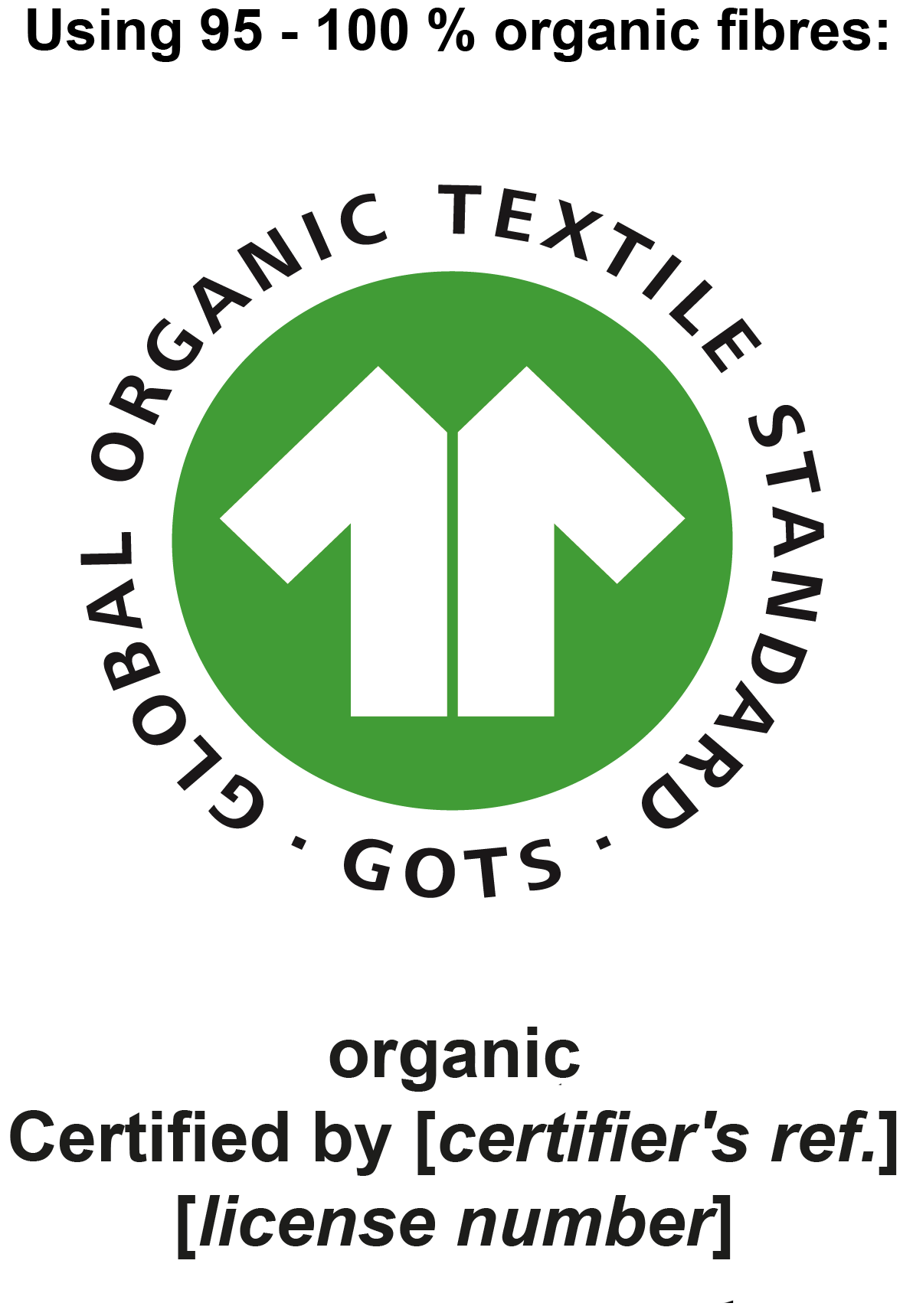
Correct and complete GOTS labelling shows the trademark-registered GOTS logo (or the lettering ‘Global Organic Textile Standard’), the GOTS label grade (‘organic’ or ‘made with organic’), details of the certification body and the licence number and/or name of the certified entity. As retailers are not obliged to be certified themselves, the labelling may show the licence number and/or name of their supplier (trader, manufacturer) of the final product. Consumers can look up the data set of the certified entity by entering the licence number (or name), provided on the GOTS labelling in the ‘free text field’ of our certified suppliers database.
Only correct GOTS labelling provides assurance to consumers that the final product is GOTS certified.
It should be noted that products identified, advertised or offered for sale without this labelling, but with other references to GOTS (certification), may not indicate GOTS certification of the final product. The GOTS labelling conditions do not permit use of the GOTS label (or reference to GOTS certification) on the garment/final textile product, if the GOTS certification is merely valid for intermediate products/steps (such as yarn or fabric) only. It is a precondition for on-product label use that the whole value chain and the final product is certified. Claims on textile products, such as ‘this garment is made from GOTS certified cotton or yarn or fabric’, are claims made by the seller and are not verified or verifiable through the GOTS certification process.
-
Is GOTS a tiered standard?
The Global Organic Textile Standard (GOTS) is not a tiered standard. It does not have levels of compliance. All certified entities are required to meet all requirements of the Standard.
-
How can a commercial buyer ensure that products purchased are actually GOTS certified?
Companies permitted to market their textile products as GOTS certified will have received a GOTS Scope Certificate and can be requested to provide an (electronic) copy of their certification. This certificate will have been issued by a GOTS approved certifier and states that the company is GOTS certified. Hence, it is able to process/market the listed products (or product categories) under GOTS certification. However, this does not prove that all of GOTS certified entities‘ products are GOTS certified. In case of doubt about the authenticity of the Scope Certificate, buyers can check it within the certified suppliers database of certified companies and in last instance, the certification status may be confirmed by contacting the issuing approved certifier.
In order to assure that a specific shipment of products received from a certified supplier is GOTS certified, the supplier can be requested to provide a 'Transaction Certificate' (TC), issued by the GOTS certifier of the supplier. The said file lists the specific products and shipment details, including the buyer`s name, address and caters to confirm the GOTS certification status. Commercial buyers may decide to make the issuance of TCs for each purchase of GOTS certified textile products a contractual condition to each supplier they want to work with in this field. In case of doubt about the authenticity of a TC, the buyer can request that the entity’s certifier verifies its validity.
-
Must GOTS certified products be certified at all stages of the supply chain?
As a principle, all operators of the processing and manufacturing chain, as well as B2B traders, must be GOTS certified as a prerequisite that a final product can be sold, labelled or represented as GOTS certified. Details can be found under Who needs to be certified.
-
What kind of products can become GOTS certified?
In principle, any organic textile product can be GOTS certified. Only complete/finished products can be certified and labelled with one of the two GOTS labels ('organic' or 'made with organic'). Textile fibre components of a consumer product, which is not normally classified as a textile fibre product (such as prams with textile fabrics, bassinets, car seats or furniture with textile fabric upholstery), may also be certified and labelled as a "Combined Product". It is not possible to certify and label a part or component of a product.
-
What are the product requirements with regard to fibre composition?
A minimum of 70% of the fibre material used must be certified organic in order to achieve GOTS certification. The product may not contain any conventional fibres of the same organic raw material contained in the product (i.e., no blending), but may contain other fibres (natural or synthetic) not of organic origin. The GOTS label grade ‘made with organic’ requires a minimum of 70% certified organic fibres. The GOTS label grade ‘organic’ requires a minimum of 95% certified organic fibres.
-
What are the main product requirements with regard to (wet) processing and manufacturing?
All chemical inputs (such as dyes, auxiliaries and process chemicals) are assessed and must meet basic requirements on toxicity and biodegradability/eliminability. The use of toxic heavy metals, formaldehyde, aromatic solvents and genetically modified organisms (GMO) is banned. There are also restrictions on the use of accessories. Raw materials, intermediates, final textile products and accessories must meet stringent limits regarding unwanted residues. Packaging material must not contain PVC.
-
Why does GOTS prohibit the use of auxiliaries that contain genetically modified organisms (GMO) or their enzymes?
The question of whether enzymes derived from GMOs should be accepted under GOTS was addressed and extensively discussed when preparing GOTS Version 4.0. Finally, GOTS decided that the use of genetically modified organisms - including their enzymes - is incompatible with the production of textiles certified as organic or 'made with organic'. While GOTS acknowledges that there are applications based on GM technologies that result in a reduction of energy, as well as water use and replace the chemicals used in some conventional textile processes, this is only one side of the coin.
Many organisations and individuals have severe concerns about the use of genetic engineering, given the problems that have already arisen, the environmental risks and uncertainty surrounding their continued use, as well as ethical reservations and concerns about business principles. 'GMO-free' remains a principle of any credible organic agricultural and food standard, as reflected by all organic regulations worldwide.
There is hardly any popular and worldwide applied textile standard besides GOTS addressing this issue. Many consumers have deep concerns about genetically modified organisms. GOTS acknowledges these concerns and thinks that they should be respected by offering certified organic textiles produced without the use of GM technology. Consumers should be given a choice to decide for themselves whether they wish to purchase a textile product made without using any GM derived inputs.
In this sense, GOTS encourages the enzyme industry to respect these concerns about a controversial and much-discussed technology and to continue to offer natural enzymes for use in the textile industry.
-
Why does GOTS prohibit the use of auxiliaries that are based on functional nano-particles?
Auxiliaries based on nano-particles of an extremely small size are one of several novel materials about which science does not yet have sufficient information about their long term effects. In the textile sector, auxiliaries based on nano silver particles are already applied in finishing (for their anti-microbial properties). Yet basic questions that have not yet been answered are: where do/can nano particles go to and what (long term) effects might they cause (on the human body and the environment)? Similarly, nano particles penetrate organs and tissues in the body that larger particles cannot reach, such as the brain, lungs, and testes. In the case of nano-silver and other finishing applications that are sprayed with pesticides and can have potentially devastating effects, we clearly need to act with caution. Accordingly, we have concluded that a general prohibition is scientifically justifiable within a standard such as GOTS that is committed to promoting environmental sustainability and human health.
Labelling and Logo Use
-
What prerequisites do retailers need to fulfil to be allowed to use the GOTS logo or any reference to GOTS certification on/with regard to certified final textiles?
Before offering for sale and selling GOTS certified and labelled final products to the end consumer, the retailer must ensure that:
- Its supplier holds a valid Scope Certificate, issued by an approved certifier and covering the goods sold:
- If the retailer also has B2B trade activity (e.g. sales to other retailers) and/or (re)packs or (re)labels the GOTS goods, the retailer has to be certified. The same conditions for the certification of traders, as detailed below, apply.
- If the retailer does not have a B2B trade activity and does not (re)pack or (re)label the GOTS goods, the retailer is exempt from the certification obligation.
- The product is properly labelled (GOTS logo), said labelling contains a reference (name and/or reference number) to the manufacturer, as well as to its approved certifier and has been released by this approved certifier. The retailer is strongly advised to (contractually) request a “Transaction Certificate“ issued by the respective GOTS approved certifier, from his supplier for each shipment, as proof that the goods are properly GOTS certified.
- Its supplier holds a valid Scope Certificate, issued by an approved certifier and covering the goods sold:
-
What prerequisites do traders need to fulfil to be allowed to use the GOTS logo or any reference to GOTS certification on/with regard to certified (semi-) finished textiles?
Before selling GOTS certified and labelled (semi-)finished products within the textile supply chain, the trader must ensure that:
- The trader holds a valid Scope Certificate from an approved certifier. This requirement is valid for traders with a B2B trade activity (e.g. for importers, exporters and wholesalers). Only traders, who have an annual turnover of less than 20.000€ in GOTS goods and who do not (re)pack or (re)label them are exempt from the certification obligation. However, they must register with an approved certifier and must inform them immediately if their annual turnover from GOTS goods exceeds 20.000€.
- The intended use of the GOTS logo or other reference has been permitted by the approved certifier.
- Full records are maintained for each client that receives GOTS goods, including lists of all products, their specifications and quantities.
-
What prerequisites do processors and manufacturers need to fulfil to be allowed to use the GOTS logo or any reference to GOTS certification on certified intermediate textiles?
Before selling GOTS certified and labelled (intermediate) textiles within the supply chain, processors and manufacturers must ensure that:
- They hold a valid Scope Certificate from an approved certifier covering such goods.
- The intended use of the GOTS logo, or other reference to GOTS certification, has been permitted by the approved certifier.
- Maintain full records of each client that receives GOTS goods, including lists of all products, their specifications, and quantities.
-
How can brand holders and retailers that are not obliged to participate in the certification system apply the GOTS logo on their textiles?
Brand holders or retailers that are not obliged to participate in the GOTS certification system can ask their certified supplier to apply the GOTS logo in a prescibed manner (art work) provided all GOTS labelling requirements, as stipulated in the GOTS Labelling Guide, are met. In this case the labelling would be under the supervision of the supplier’s GOTS approved certifier and the supplier's reference (e.g. license number) would appear on the labelling. Alternatively, brand holders or retailers that are not obliged to participate in the GOTS certification system may apply for certification on a voluntary basis. In this case, they can apply the logo on their own under supervision of their GOTS certifier. Thus, their own reference (e.g. licence number) will appear on the labelling. Under all circumstances, only a GOTS certified entity may apply GOTS labelling to a product.
-
What do promotional traders have to consider when selling and/or printing on GOTS certified products?
If GOTS certified final products are processed by adding prints, embroidery etc., the trader must be certified in order to be allowed to use GOTS labelling and/or any references to GOTS certification, otherwise the certified value chain would be interrupted. It is irrelevant whether the products are sold B2C or B2B or if some of the certified products are sold without any prints or embroidery. The GOTS organisation takes legal action against non-certified companies that, for example, print on certified textiles and sell the products as GOTS certified.
-
What is the cost for the use of the GOTS logo?
In addition to the certification cost, each certified entity must pay a licence fee for each calendar year. The licence fee is set at 150 Euro for each facility that is inspected for the certified entity. The fee is collected by the approved certifier and, then, transferred to the GOTS organisation. This fee also covers the right to use the GOTS logo on certified textile products in conjunction with the licencing and application criteria, as detailed in the Licensing and Labelling Guide. For the time being, there is no extra (turnover based) fee. Traders, brand holders and/or retailers or traders that are exempt from the GOTS certification requirement do not need to pay a licence fee.
-
Can the GOTS logo be used for the purpose of writing an article?
Stakeholders, NGOs, media and other parties that distribute independent (consumer or industry) information can use the GOTS logo in conjunction with accurate statements about GOTS and its quality assurance system. They can obtain a high resolution logo by sending a request indicating the purpose of the logo use by email to .
Sanctions and Suspensions
-
Why does Global Standard need to sanction Certification Bodies?
The Global Organic Textile Standard (GOTS) is considered a gold standard for the processing of organic textiles. It has earned a reputation of being fair and dependable throughout the value chain. Consumers, retailers, brands and operators all depend on the certification system to have the highest integrity. There are situations where the integrity may be compromised, and that is when, as the operating unit of GOTS, Global Standard gGmbH has the responsibility of protecting the sanctity of the Standard and its certification system. Sanctions are one option in such cases.
Global Standard does not impose Certification Body (CB) sanctions directly in most cases. Instead, these are imposed by the respective Accreditation Bodies (ABs).
In exceptional circumstances, Global Standard may take direct action against CBs. One such action is the suspension of CB activities. The primary objective of suspending a CB is to retain the integrity of the Standard system and the goods certified under it. This remains Global Standard's primary aim so that all organisations that use and rely on GOTS can continue to do so.
A suspension is not a withdrawal, but rather an opportunity for the CB to demonstrate positive intent to address any issues within their systems.
-
Are suspensions conditional and are they temporary?
All suspensions are conditional. The conditions of a suspension are shared with the concerned organisation.
Suspensions are also time-bound and can be withdrawn, subject to demonstration of improvement of performance. Should the sanctioned organisation not show adequate improvement, as determined by their supervisory bodies (Accreditation Bodies supervise Certification Bodies, and Certification Bodies supervise Certified Entities), their approval could be withdrawn.
-
What are the effects of sanctions on the value chain?
Sanctions have a direct effect on the value chain and Supply Chain Operators (SCOs), and SCOs should prepare for increased scrutiny and compliance checks during this period of suspension.
One of the most common sanctions is the suspension of privileges related to the issuance of Transaction Certificates (TCs). Delays in issuing TCs may affect the value chain, but it is important to know that GOTS permits the issuance of TCs up to six months from the date of shipment. Should it be necessary, Global Standard will provide concessions to this policy requirement in order to assist SCOs.
The GOTS Policy for Issuance of Transaction Certificates also requires TCs to be issued within 14 days of applications by SCOs. In the case of a suspension, CB’s cannot issue TCs until the suspension has been lifted by Global Standard.
While any inconvenience caused to the value chain is regrettable, what remains crucial is for Global Standard to ensure that confidence in GOTS is not damaged.
-
How will sanctions affect the sale of GOTS goods with labelling?
The suspension of a CB does not impact ready GOTS Goods that have been labelled properly. GOTS Goods with correct and complete labelling may be sold in B2B and B2C markets.
In cases where the value chain is impacted, buyers should cooperate and coordinate with their respective suppliers to ensure all requirements are fulfilled. Buyers’ due diligence regarding the purchase and receipt of GOTS Goods shall not be waived.
-
Can Supply Chain Operators migrate to another Certification Body if their current Certification Body is sanctioned?
Although a suspension is temporary and includes a deadline for the CB to rectify the situation, Supply Chain Operators may decide to migrate to another GOTS-approved Certification Body to ensure continuity in certification services based on their risk assessment. In these cases, Global Standard has a policy in place that can be downloaded here: Policy for Change or Migration of Certifier.
A CE wishing to move to another CB should also note that this can take some time, and all issues should be discussed with their newly chosen CB. -
If I already paid my GOTS annual fee for the year, do I have to pay again if I change to a new Certification Body in the same calendar year?
No. GOTS annual fees are only paid by a CE once in a calendar year, so a CE does not need to pay the annual fee again if it chooses to migrate to another CB.
-
What should our supply chain do with upcoming shipments (not yet shipped) when their Certification Body has been suspended from issuing Transaction Certificates? Should they stop/postpone them?
While Global Standard does not typically provide commentary on business matters, we believe that operations should continue as usual. However, both buyers and sellers should be aware that TCs may experience delays as a result of this suspension. Each Supply Chain Operator should take decisions based on their own risk assessment.
-
What happens to the orders that are currently in transit (e.g., on cargo ships)? Will our suppliers need a “grace period” for these Transaction Certificates?
It is important to note that suspensions are conditional and the terms of suspension need to be looked at before any general answer can be given to such a question.
However, since Transaction Certificate applications in the GOTS system can be made by sellers to their CBs until six months of shipments, we would typically not anticipate issues arising in this regard - because suspensions are not expected to continue for such a timeline.
Nevertheless, should it be found necessary, GOTS will make concessions in the six-month rule so that TCs may be issued after the CB is reinstated.
-
What will happen to our Scope Certificate issued by suspended Certification Bodies?
Scope Certificates (SCs) issued by the Certification Body remain valid until the date stated on the SC.
The companies that have a valid SC are visible on the public GOTS Certified Suppliers Database.
-
What happens if the Scope Certificate expires while the suspension is in effect? Can the suspended Certification Body extend the validity of existing certification?
Renewals of existing Scope Certificates may be permitted, depending on the conditions of CB suspension. Supply Chain Operators should therefore be aware of the restrictions placed on CBs during the suspension and take decisions based on these.
-
Are Transaction Certificates that were issued by a suspended Certification Body still valid up to the suspension date?
Yes, the Transaction Certificates that were issued up until the date the suspension went into effect (suspension date) remain valid unless they have been specifically withdrawn by the suspended Certification Body.
-
Why can Global Standard not independently issue the pending GOTS Transaction Certificates (TCs) since all are GOTS TCs?
The three pillars of the certification system operate with clear separation of responsibilities among its actors:
- Rules: Standard setters develop rules through multi-stakeholder approaches.
- Independent, third-party Certification Bodies (CB) audit and certify companies and issue Scope Certificates and TCs.
- Independent Accreditation Bodies supervise the operations of CBs, providing an independent review that is ingrained within the GOTS system.
Global Standard, as a standard setter, cannot issue TCs; that responsibility remains the exclusive domain of the CBs.
-
Can my new Certification Body (CB) directly accept previous Transaction Certificate applications from the suspended CB that were submitted before the suspension date?
You will have to reapply for Transaction Certificates (TCs) with your new CB following their procedures. TCs will be issued by the new CB following their own procedures and based on their risk assessment and due diligence.
-
Who will issue Transaction Certificates for the period between the suspension and the time at which a Certified Entity is transferred to a new Certification Body?
Should the Certified Entity choose to move to a new Certification Body (CB), the new CB will issue all the Transaction Certificates, based on its risk assessment and due diligence.
-
I applied for my Transaction Certificates from the suspended Certification Body before the suspension date. What happens to those requests?
Should you continue with the suspended Certification Body (CB) as your CB, your requests will be taken up once the suspension is lifted. If you decide to migrate to another CB, you will have to reapply for Transaction Certificates (TCs) with your newly chosen CB. The new CB is permitted to issue TCs for the mentioned period based on their risk assessment and due diligence.
-
Does Global Standard impose certification bans on Certified Entities?
In cases where gross violations of the GOTS rules or procedures or of the use of GOTS Signs are found, or where there is a serious breach of Global Standard principles, the Global Standard management may decide, on its own findings or based on a recommendation by a CB, to impose a ban on certification for a CE.
Such a certification ban may be instituted for a period of 24 months or less.
The GOTS Complaints Handling Procedure provides details of sanctions against CEs and CBs. Certification bans are listed prominently on the GOTS website here.
Miscellaneous
-
Is it possible to use 'bamboo' in GOTS certified textiles?
Typically, the bamboo fibre used in industrial textile production is not natural bamboo (bast or fibre separated from the stem), but where cellulose from the bamboo plant has been regenerated through a viscose/rayon process and can, therefore, not be considered as a natural or even organic fibre, even if the bamboo plant was originally certified as organic, in the field.
As a consequence, regenerated bamboo fibres can only be used as an allowed additional fibre upto 10% in GOTS certified textiles, so long as the bamboo is non-GMO.
These rules also apply to all regenerated fibres derived from any raw material source (e.g. wood, cotton lints, soybean, milk).
Users of bamboo (and other regenerated) fibres should also be aware of the legal labelling requirements in their sales markets. In the US, the FTC (Federal Trade Commission) has clarified that, if bamboo is produced through a rayon process, these fibres must be labelled as rayon and not as bamboo (see FTC article "How to avoid bamboozling your customers"). Equivalent labelling requirements also apply in the European Union.
It is important to note here that bast bamboo fibre is practically never used in consumer products especially for apparel / close to skin textiles.
-
How does GOTS provide the answer to Greenpeace's 'Detox' campaign challenge?
GOTS already prohibits the "11 hazardous chemicals that should be eliminated", targeted in Greenpeace’s 'Detox' campaign!
The campaign has targeted global apparel manufacturers for their use of 11 hazardous chemicals and heavy metal categories, including alkylphenols, phthalates, brominated and chlorinated flame retardants, azo dyes, organotin compounds, perfluorinated chemicals, chlorobenzenes, chlorinated solvents, chlorophenols, short-chain chlorinated paraffins, as well as heavy metals including cadmium, lead, mercury and chromium.
These compounds are known to be toxic, persistent, bio-accumulative, carcinogenic, mutagenic, reprotoxic, or hormone disruptors and their use poses risks for the environment and human health.
The substances/substance groups highlighted in the campaign have always been prohibited for use in the processing/manufacturing of textile products certified to the Global Organic Textile Standard through the strict general requirements related to hazards and toxicity (GOTS chapter 2.3.2).
In addition, GOTS chapter 2.3.1, "Prohibited and restricted inputs", explicitly lists those hazardous chemical inputs that are permitted for use in conventional textile processing but that are banned or restricted for environmental and/or toxicological reasons in all processing stages of GOTS goods.
Solely for clarity, starting with GOTS Version 4.0, the Greenpeace campaign’s 11 input groups are all explicitly listed as prohibited.
The range of substances banned by GOTS is even more extensive than the Greenpeace list
GOTS quality assurance criteria state that:
- All chemical inputs (dyes and auxiliaries) used in the processing chain of GOTS certified textiles need to be approved by a GOTS approved certifier prior to their usage. The basis for their assessment is the Material Safety Data Sheet (MSDS) which must be compiled according to a recognised norm or directive. The approved certifiers require further sources of information in the assessment - including additional toxicological and environmental data for specific components of the auxiliary agents, test reports and an independent laboratory analysis. Hence, GOTS approved chemical inputs have all been screened in detail before textile processors permit their use. More information about the input review process and the approved certifiers.
- The trade names of all approved dyes and auxiliaries are compiled on "Positive Lists" that are available to all entities participating in the GOTS certification programme. Inputs not included on the Positive List are not allowed to be used.
- As part of the annual on-site inspection that all businesses participating in the GOTS certification programme must undergo, the certifiers verify the use of compliant chemical inputs by examining the textile processors’ input recipes. Related GOTS control measures also include inventory checks of the chemical storage area(s), as well as the review of records and accounts for chemical inputs (invoices, delivery notes) to ensure that the declared and approved chemical inputs have been purchased in sufficient quantity to produce the given amount of GOTS Goods.
- GOTS also requires testing of textile materials, intermediates and finished products in accordance with a risk assessment or, in the case of suspicion, that prohibited substances have been used. Since it is not affordable and reasonable to make testing of any prohibited substance part of the usual test protocol, GOTS (chapter 2.4.15) focuses the test protocol on prohibited substances which may well pose a valid risk for presence in allowed GOTS materials, chemical inputs, processes, finishing methods and storage of GOTS products and that are known to have a harmful effect on humans or the environment.
- While any detection of prohibited substances at any level needs to be investigated for potential (intentional) use of the prohibited substance, (avoidable) contamination, or any other violation of GOTS criteria, the following limit values for intermediates and final products related to the Detox chemicals are outlined in GOTS chapter 2.4.15:
GOTS limit values and test methods relevant to the Greenpeace Detox campaign
-
What is the difference between GOTS and OCS (Organic Content Standard of Textile Exchange) and of the related certification systems?
GOTS is a comprehensive standard that makes a ‘full product claim’ that sets detailed environmental and social criteria throughout the entire textile supply chain.
In contrast, OCS (Organic Content Standard; previously OE 100 and Blended Standards - issued by Textile Exchange) traces the organic fibre flow throughout the entire textile supply chain, allowing an organic ‘fibre claim’ in the final textile product, but without any requirement to meet environmental or social criteria in processing.
Brands and retailers may use OCS as a stepping stone to GOTS (e.g. a certification to cover tracking and handling while supply chains organise themselves to comply with GOTS).
Many companies in the supply chain choose to be certified to both standards - GOTS and OCS -, in order to better meet the needs of their customers. There may be cases in which a specific product cannot meet all demanding processing requirements of GOTS (eg: because not all dyestuffs and auxiliaries used comply with GOTS processing criteria or the minimum percentage of 70% organic fibres is not met). In that case, the product could still be certified to OCS, which allows verification and labelling for the organic fibre content. GOTS and OCS may, therefore, be seen as complementary rather than competing certification systems.
-
What is Shorn Wool?
In GOTS, pesticide residue limits are listed specifically for “shorn wool.”
It has come to our attention that there have been divergent interpretations and translations from the official English version, since the term “shorn wool” is not explicitly defined in the Standard. The German term “Schurwolle” is an accurate translation.
“Shorn wool” in GOTS refers to virgin wool (new, non-recycled wool that has been sheared from living animals) as an input for spinning, thus the expectation is that it has been scoured/washed.
Regenerative is Organic
Regenerative is Organic
Regenerative is Organic
by Jeffrey Thimm, GOTS Organic Production Specialist
As the importance of sustainability comes more into focus for the textile sector – whether for legal compliance or market demand by conscientious consumers – more concerted efforts are commendably being made by actors across the value chain to source fibres that are produced and processed in socially and ecologically responsible ways. Furthermore, the necessity of traceability to validate claims of sustainability has been well established. But with the plethora of voluntary sustainability standards emerging, it’s worth strengthening our conceptual frameworks and taking a closer look at what constitutes the lofty pursuit of “regenerative agriculture”.
REGENERATIVE AGRICULTURE IS NOT A NEW CONCEPT -
IT HAS BEEN A CENTRAL PILLAR OF SUSTAINABLE AGRICULTURE SYSTEMS ACROSS THE GLOBE AND HUMAN HISTORY, FOR WHICH STRATEGIES AND METHODS HAVE BEEN EVOLVING WITH THE DISTINCT AIM OF INCREASING SOIL FERTILITY AND FOOD SECURITY.
The specific practices differ depending on ecological and social context, but regenerative agriculture is united in its purpose – to reverse soil degradation, improve agroecological resilience, and sustainably provide food, fiber and fuel. Aside from repairing and revitalizing degraded landscapes, it is now additionally tasked with halting and reversing greenhouse gas emissions and increasing resilience to climate change.
Fortunately, the rising interest in regenerative agriculture has also been illuminating the central role of the farmer in our global economy, and how our sourcing practices impact the sustainability of the very foundations of society. It’s not just about textiles and fibers, it’s also about our posture towards ethical commerce and our willingness to pay a fair price – more than a living wage – to value the livelihoods and communities at the source of our supply chains.
WE CANNOT AFFORD TO PAY LESS THAN THEIR TRUE WORTH.
AND AFTER CENTURIES OF EXPLOITATION, IT IS NOW REQUIRED TO REINVEST IN REVITALIZING AGRICULTURE IF WE WANT TO BE SUSTAINABLE.
The established, internationally regulated voluntary sustainability standard that already embodies the principles and aims of regenerative agriculture is Organic/Bio/Öko. With origins dating back over a century in the western world (inspired and informed by traditions dating back millennia), the global movement now represented by the International Federation of Organic Agriculture Movements (IFOAM) has built upon shared values and learnings to develop an evolving codification of production, verification and marketing norms. The concept of regenerative is embedded in the philosophy and practice of organic, because organic farm management is designed to protect and nurture the land, animals, and the farmers we all depend upon. Furthermore, the transition phase from conventional to organic, in-conversion, is itself a period of intentional revitalization.
So, are regenerative and organic synonymous terms? Some say yes, but technically, no.
Organic is a legally protected term, with codified and regulated management practices that are designed to uphold ecological and social welfare. Organic agriculture also has a clearly defined set of required practices, as well as permitted non-toxic pesticides and climate-friendly fertilizers that have been scientifically demonstrated to increase yields and resilience over time; regenerative practices like crop rotations, mulching and minimizing soil disturbance are staples in organic farming.
Conversely, regenerative is not a protected term and is therefore vulnerable to greenwashing (read the fine print). Regenerative standards typically have a defined set of measurable outcomes relating to carbon sequestration in soils, and the good ones even require demonstrated progress towards set targets (something that organic regulations do not yet include), but some allow dubious methods with short-term gains but inadvertent long-term losses.
AS LEADERS IN THE TEXTILE SECTOR, A CRUCIAL QUESTION TO ASK YOURSELF IS HOW TO DIFFERENTIATE BETWEEN AUTHENTIC REGENERATIVE AGRICULTURE, AND MERE IMITATION.
I OFFER YOU THIS:
Do the ends justify the means?
If the goal is to regenerate, how can we condone practices that are not themselves socially and ecologically regenerative? Can we in good conscience continue using synthetic herbicides, pesticides, fertilizers and GMOs and call it regenerative when the science has shown that, although they may appear to increase carbon capture in the short-term, they simultaneously erode long-term production capacity and undermine the ability of an ecosystem to abate and adapt to climate change?
Do the means justify the ends?
Can we in good conscience dogmatically adhere to a prescribed set of conventionalized practices and models, even when the consequences are demonstrably toxic to people and planet? Can we continue sourcing and manufacturing using practices that optimize short-term profit but are known to undermine the sustainability of the entire enterprise?
Coherence of principles, actions and targets is paramount.
THE GOAL IS THE WAY - THE WAY IS THE GOAL.
Register attendance details for the GOTS UK Roundtable
Thank you for registering for the GOTS & Sustainable Fashion Week Reclaim Trust Conference and Roundtable on 25th September.
To confirm your place, please could you complete the following details:
Shopfinder Submission
Thank you for your submission! Please check your email acccount to confirm your subscription. After your confirmation an administrator is going to check your account.
We will contact you as soon as possible.
Shopfinder Submission Confirmation
Your email has been verified. Once an administrator approves your account, you will be notified by email, and you can login to the site.
Please visit the following links to inform yourself on the “Conditions for the use of GOTS signs”. The documents will explain the correct use of GOTS signs on products as well as in advertisements, catalogues, webpages, websites or other publications.
Testimonials
Institutional and organisational Recognition for GOTS
GOTS is widely recognised by leading institutions, governments, NGOs, and international policy frameworks for its credibility, transparency, and impact. From public procurement policies to sustainability rankings, this recognition reflects our commitment to upholding the highest standards for environmental and social responsibility across the global textile sector.
Featured Recognition
Organisation for Economic Co-operation and Development (OECD)
2025
The OECD Status Completed Standards Alignment Assessment states, “The Standard includes expectations related to all six steps of the OECD Garment Guidance, with a strong degree of alignment across many important elements of the due diligence process, including key concepts.”
(Source)
Government & Policy Recognition
-
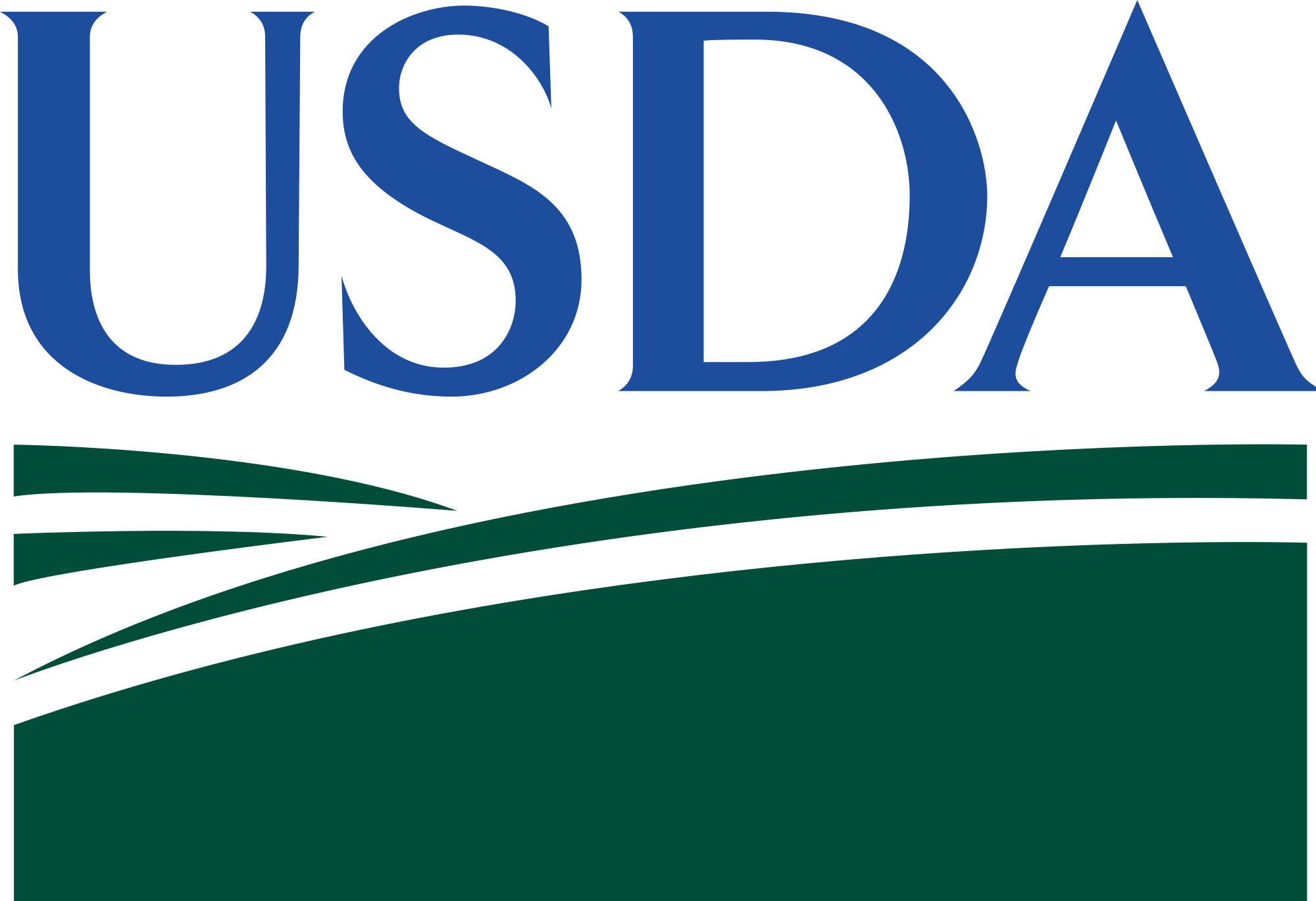
United States Department of Agriculture (USDA)
2011
The USDA National Organic Program's (NOP) "Labeling of Textiles That Contain Organic Ingredients" policy memorandum explicitly recognises GOTS and its label grade 'organic:' "Textile products that are produced in accordance with the Global Organic Textile Standard (GOTS) may be sold as organic in the U.S." USDA clarifies that 'made with organic' is also a codified label grade and can only be used for textiles certified to NOP or GOTS.
-
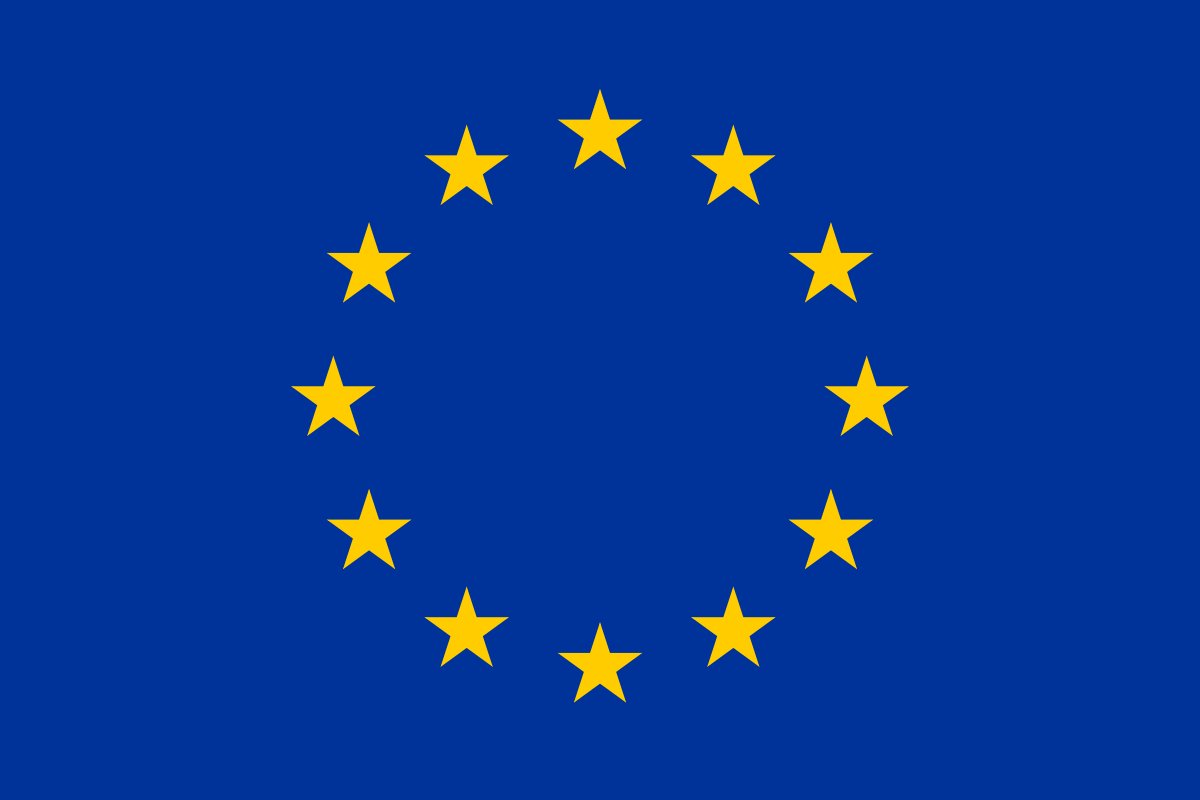
The European Parliament
2013
The European Parliament acknowledged GOTS in the “Resolution on the sustainability of the global cotton value chain” (2012/2841(RSP) as a multi-stakeholder initiative aimed at enhancing sustainability in the textile sector.
-
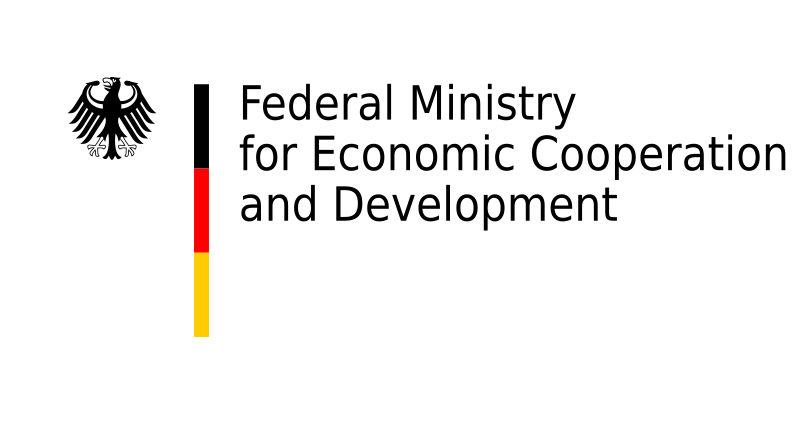
The German Federal Ministry for Economic Cooperation and Development (BMZ)
2015
The “Siegelklarheit” initiative by the German Federal Ministry for Economic Cooperation and Development (BMZ) evaluates sustainability labels. On this official platform, GOTS receives the highest rating in the textiles category—recognized as an “Excellent Choice” in the areas of credibility, environmental performance, and social responsibility.
-

United States Environmental Protection Agency (EPA)
2024
The EPA includes GOTS in its Recommendations of Specifications, Standards, and Ecolabels for Federal Purchasing so that GOTS-certified products are preferred in federal procurement processes.
-
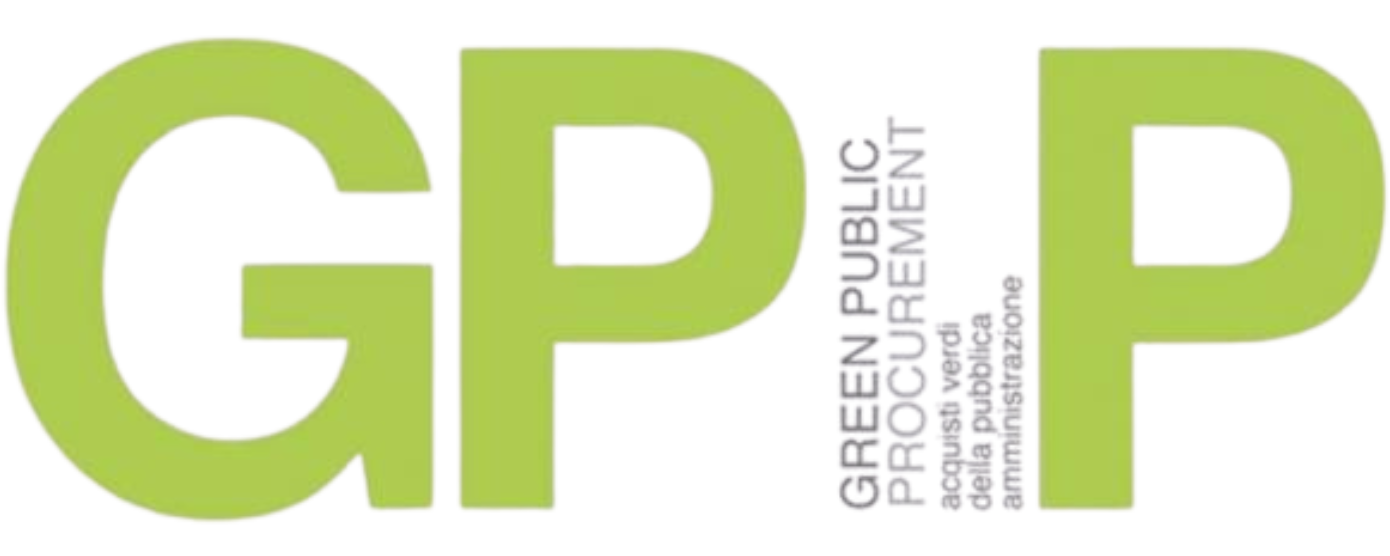
Italy’s Green Public Procurement (GPP)
2014
GOTS is officially recognised in Italy’s Green Public Procurement (GPP) decree as an acceptable certification for textiles made with organic fibres. This development aligns with the European Union’s Directive 2014/24/EU, enabling public procurers to utilize voluntary sustainability standards in their specifications.
-
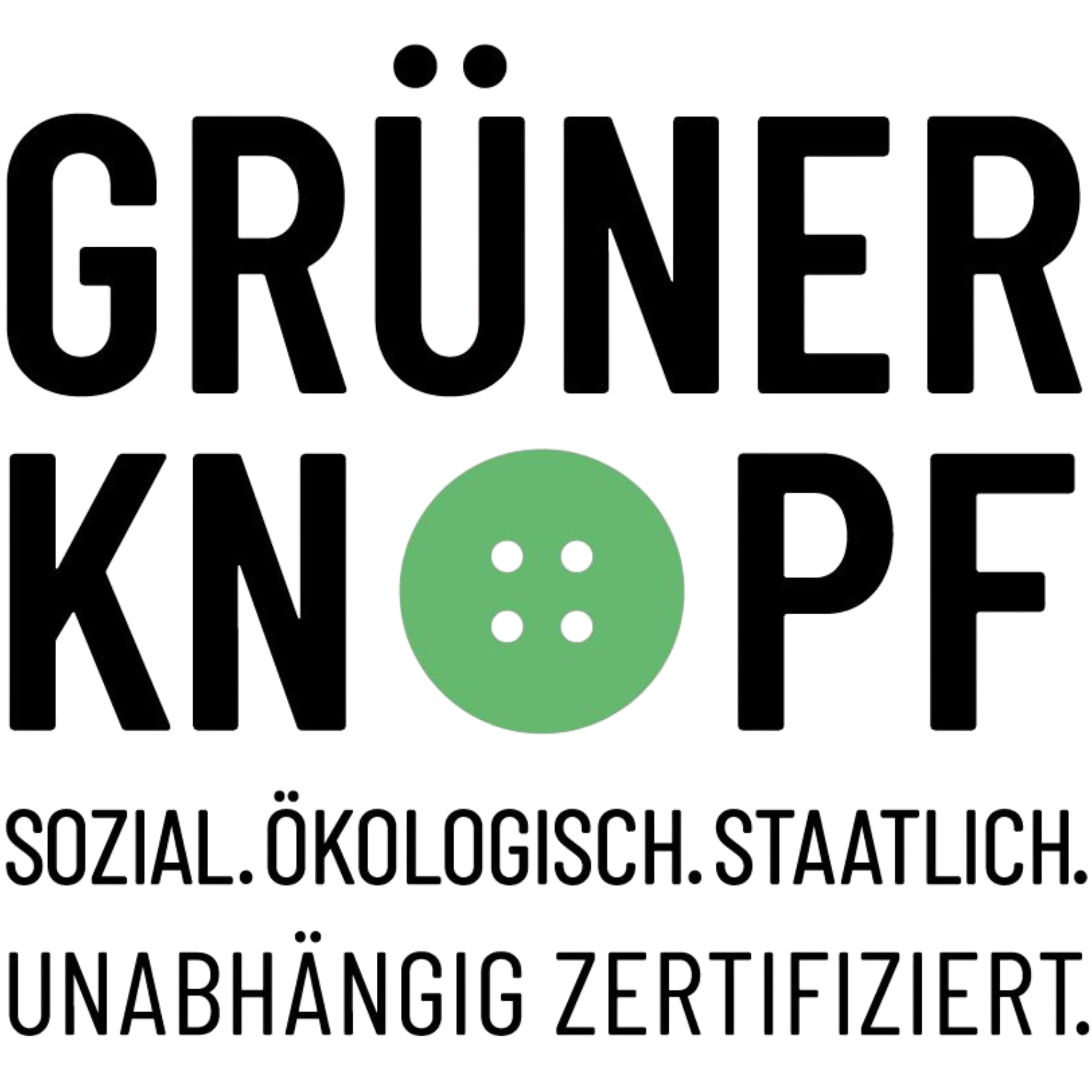
Grüner Knopf (Green Button)
2024
GOTS is recognised in Germany's Grüner Knopf (Green Button), a government-run certification for sustainable textiles, as one of the highest standards for ecological and social production.
Global IGOs & NGOs
-
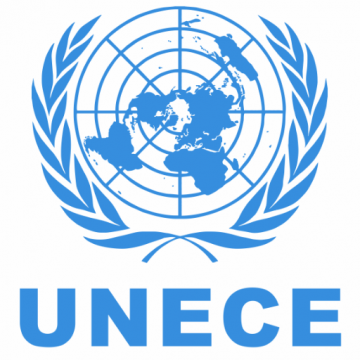
United Nations Economic Commission for Europe (UNECE)
2021
UNECE highlights GOTS as a key certification for sustainability and traceability in textiles by including it as a key certification in its Sustainability Pledgeproject and sustainable textile guidelines.
-

Greenpeace
2012 - 2013
Greenpeace has recognised GOTS as a credible certification in its Global Textile Procurement Standard. Greenpeace Germany published a guidebook in October 2013 titled “Textile Labels under the Magnifying Glass.” This guide compares eco-labels and emphasises GOTS’ high rating.
-
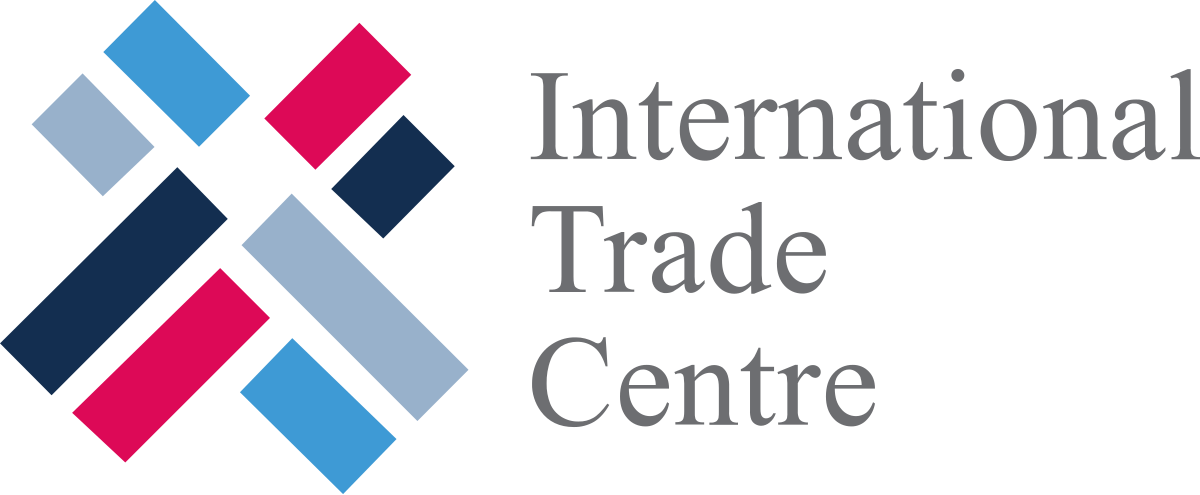
The United Nation's International Trade Centre's (ITC)
2010
The United Nation's International Trade Centre's (ITC) "Standards Map," a valuable tool for the textile industry and those involved in public procurement, has strict rules for inclusion such as public criteria or the existence of an implementation system. GOTS was one of the first voluntary standard organisations and the first textile organization to enter the data base.
Consumer Media & Guides
-
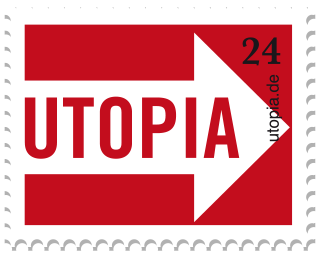
Utopia.de
2020
Utopia Germany recommends GOTS, “By purchasing a GOTS-certified product, you are choosing an independently tested and environmentally friendly textile.”
-

Fashion Revolution
2023
GOTS is listed in Fashion Revolution's consumer education resources as “the worldwide leading textile processing standard for organic fibres, including ecological and social criteria, backed up by independent certification of the entire textile supply chain."
-
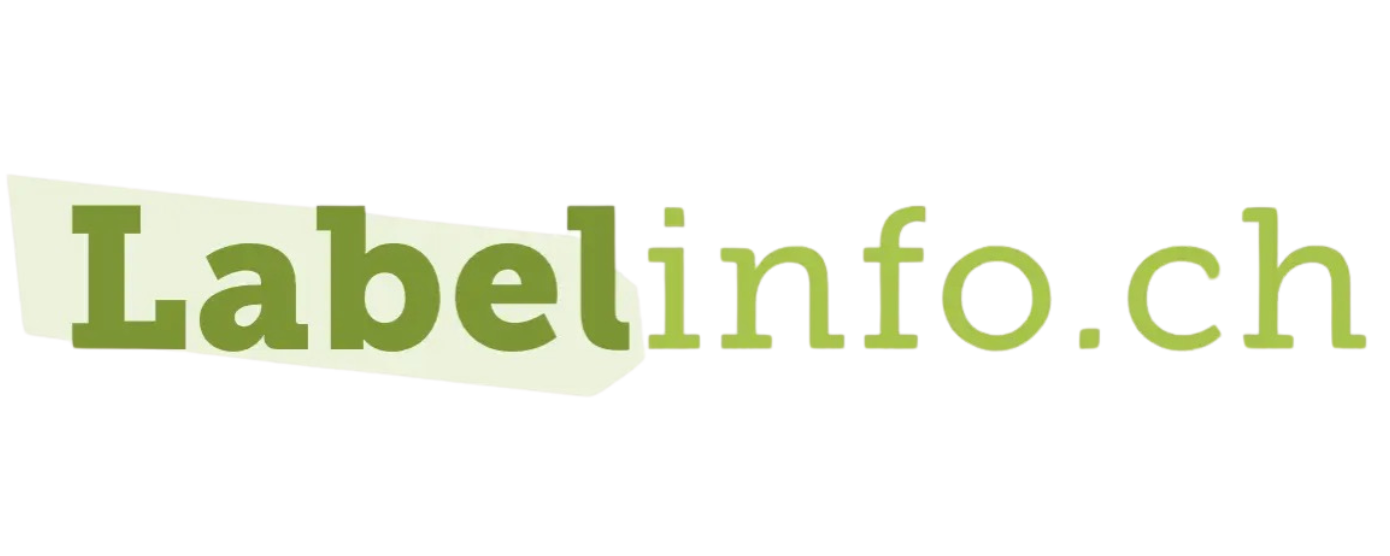
Labelinfo.ch
The Swiss website Labelinfo endorses GOTS, “Excellent, due to credibility, transparency, independence, and sustainability.”
Global Networks & Memberships
-
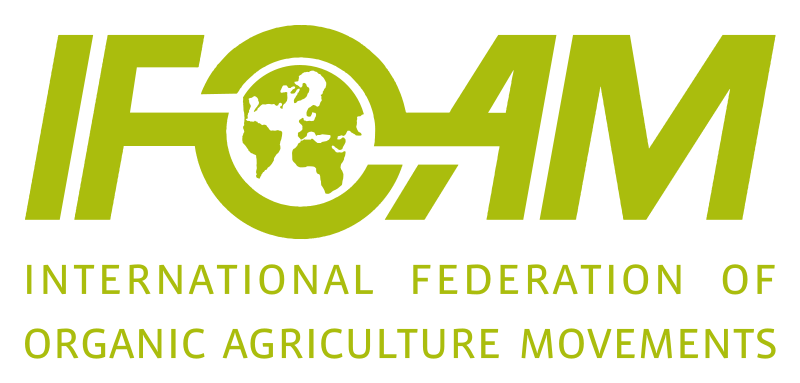
International Federation of Organic Agriculture Movements (IFOAM)
Ongoing
IFOAM endorses GOTS as the minimum reference for organic textile processing, including the recommendation to governments not to start development of redundant standards and regulations but to make references to GOTS as processing standard for organic labelled textiles.
-
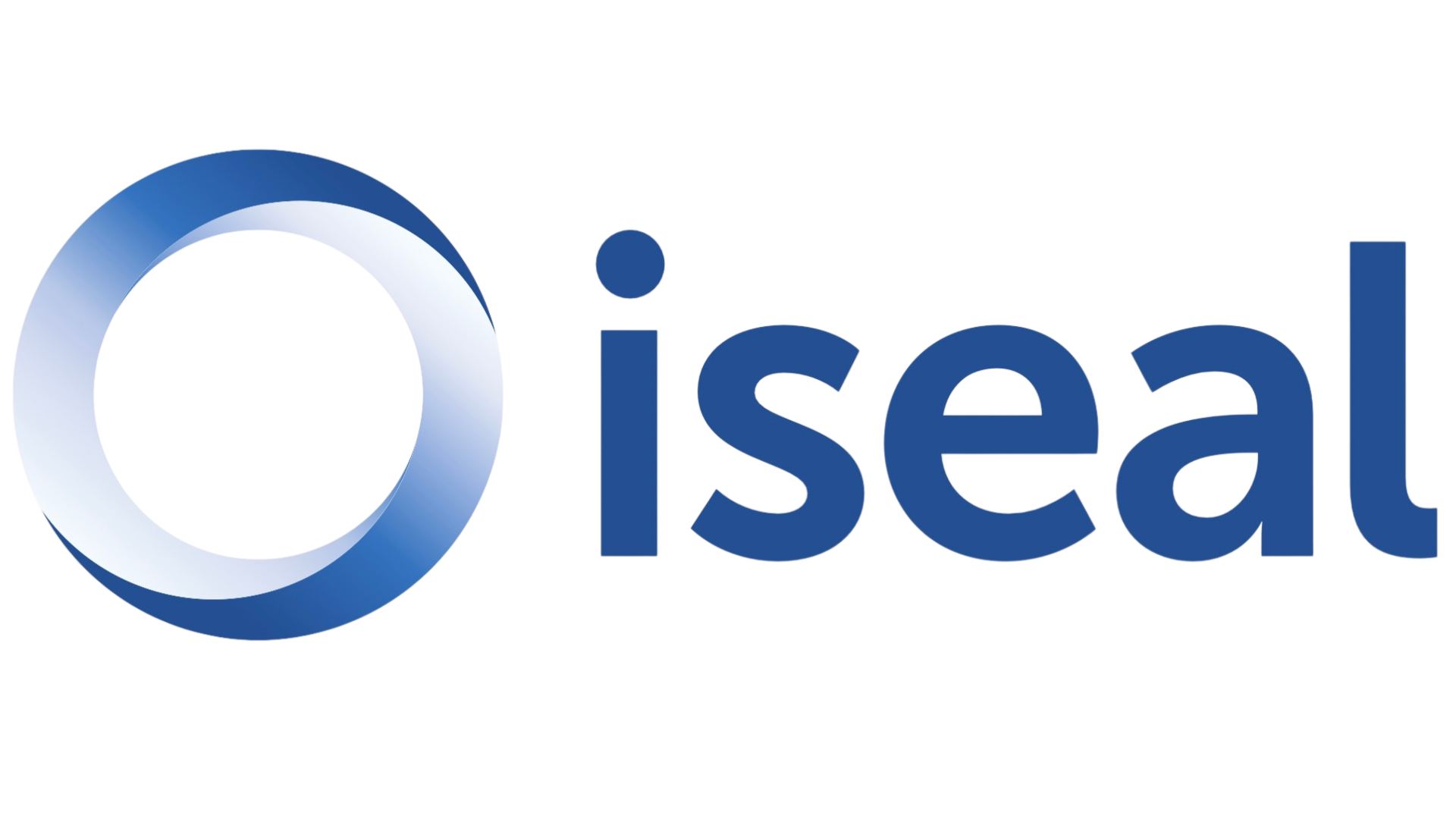
ISEAL Alliance
2023
As an ISEAL Community Member, GOTS joins a number of well-respected sustainability systems that are driving positive social and environmental change across multiple sectors.
Thank You for Your Interest in the #BehindtheSeams Campaign: Your Contribution Matters
Thank you for expressing your interest in the "Behind the Seams" campaign by GOTS. We're thrilled to have you on board as we work together to showcase the value of an equitable, responsible and trustworthy textile industry.
Your commitment to this initiative is greatly appreciated. Our team is excited to collaborate with you to bring consumers closer to the organisations that exemplify best practices in the textile industry. Your contribution will play a vital role in educating consumers about sustainable textile practices and unveiling the hidden history behind their favourite textile products.
What to Expect Next:
Our team is currently reviewing all the submitted interest forms. We will be in touch with you shortly with an invitation to the prep-webinar, to provide more details about your involvement and to discuss the next steps. Your insights and creativity will help shape the campaign's success, and we're looking forward to working closely with you.
In the meantime, if you have any questions or ideas that you'd like to share, please don't hesitate to reach out to us at .
Once again, thank you for your dedication to promoting a more sustainable and responsible textile industry. Together, we can make a significant impact and inspire positive change.
Best regards,
GOTS
TW
Reach out to the GOTS Representative in your region
GOTS has appointed several representatives who operate in a global network to promote GOTS in their respective regions and around the world.
Find the Representative in your region
Featured on the GOTS Youtube Channel:
Faces from Field to Fashion: Meet Maridos, Sample Master Cutter at the GOTS certified Armstrong Knitting Mills in Tirupur India. Click below to hear about his story and how he benefits from working in a GOTS certified company.
Follow Us on LinkedIn & Instagram
Wir freuen uns sehr über Ihr Interesse ein Teil der Kampagne #NahtlosNachhaltig zu werden.
Was folgt in den kommenden Wochen?
Unser Team sammelt momentan alle eingereichten Registrierungen und wird sich bald mit einer Einladung zum Vorbereitungs-Webinar am 30.10 melden. In diesem werden alle Einzelheiten zur Kampagne besprochen, sowie die nächsten Schritte erklärt. Falls Sie Interesse bekundet haben sich aktiv in die Kampagne einzubringen, werden wir uns zeitnah direkt bei Ihnen melden.
Falls in der Zwischenzeit Fragen oder Ideen aufkommen: Wir stehen jederzeit via zur Verfügung.
Nochmal ein großes “Dankeschön!” für Ihr Interesse.
Mit besten Grüßen,
GOTS Marketing
Wir freuen uns sehr über Ihr Interesse ein Teil von #NahtlosNachhaltig zu werden.
Was folgt in den kommenden Wochen?
Unser Team sammelt momentan alle eingereichten Registrierungen und wird sich bald mit einer Einladung zum Vorbereitungs-Webinar am 25.10 melden. In diesem werden alle Einzelheiten zur Kampagne besprochen, sowie die nächsten Schritte erklärt.
Falls in der Zwischenzeit Fragen oder Ideen aufkommen: Wir stehen jederzeit via zur Verfügung.
Nochmal ein großes “Dankeschön!” für Ihr Interesse.
Mit besten Grüßen,
GOTS Marketing
Your attendance details for the GOTS UK Roundtable
Thank you for confirming your attendance details for the Reclaim Trust UK Roundtable at Sheepdrove Organic Farm Eco-Conference Center Thursday September 25th, 2025. We will get back to you shortly to confirm your registration.
If you have any questions regarding the roundtable please don't hesitate to reach out to .
Your interest for the GOTS UK Roundtable
Thank you for registering your interest for the Reclaim Trust UK Roundtable at Sheepdrove Organic Farm Eco-Conference Center Thursday September 25th, 2025. We will get back to you shortly to confirm your registration.
To learn more about GOTS or access additional materials, we invite you to browse our website. If you have any questions regarding the roundtable please don't hesitate to reach out to us at .
Your interest in the GOTS Roundtable Lisbon, Portugal
Thank you for registering your interest for the
GOTS ROUNDTABLE | LISBON, PORTUGAL
Monday, 13 October 2025
9:00 AM – 2:00 PM
We will contact you shortly to confirm your attendance.
To learn more about GOTS or access additional materials, we invite you to browse our website.
If you have any questions regarding the roundtable please don't hesitate to reach out to us at
Best regards!
Juliane Ziegler
GOTS Representative to Global Brands
Ryan Sitler
GOTS Representative in North America


